Edward Snowden
description: a former National Security Agency contractor who leaked classified information about global surveillance programs run by American and British spy agencies.
249 results
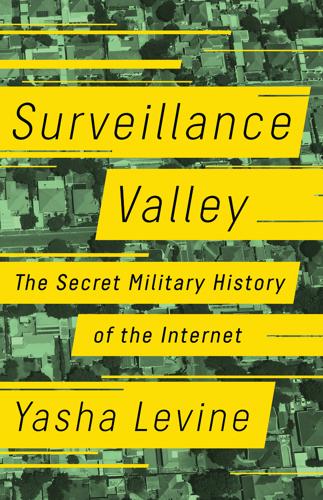
Surveillance Valley: The Rise of the Military-Digital Complex
by
Yasha Levine
Published 6 Feb 2018
Then He Became One,” Ars Technica, June 26, 2013, https://arstechnica.com/tech-policy/2013/06/exclusive-in-2009-ed-snowden-said-leakers-should-be-shot-then-he-became-one/. 42. Edward Snowden, interview with Hubert Siebel on ARD (German television channel), January 26, 2014, transcript at https://edwardsnowden.com/2014/01/27/video-ard-interview-with-edward-snowden/. 43. “Tomgram: Glenn Greenwald, How I Met Edward Snowden,” Tom Dispatch, May 13, 2014, http://www.tomdispatch.com/post/175843/tomgram %3A_glenn_greenwald,_how_i_met_edward_snowden/. 44. Glenn Greenwald, Ewen MacAskill, and Laura Poitras, “Edward Snowden: The Whistleblower behind the NSA Surveillance Revelations,” Guardian, June 11, 2013. 45. Luke Harding, “How Edward Snowden Went from Loyal NSA Contractor to Whistleblower,” Guardian, February 1, 2014. 46.
…
“The NSA and Its Willing Helpers,” Spiegel Online, July 8, 2013, http://www.spiegel.de/international/world/interview-with-whistleblower-edward-snowden-on-global-spying-a-910006.html. 109. Patrick Howell O’Neill, “Tor Now Reaches 200,000 Users in Russia,” Daily Dot, June 18, 2014, https://www.dailydot.com/news/russia-tor-users-censorship/. 110. mikeperry, “This Is What a Tor Supporter Looks Like: Edward Snowden,” Tor Project (blog), December 30, 2015, https://blog.torproject.org/blog/what-tor-supporter-looks-edward-snowden. 111. While Edward Snowden stayed quiet regarding US government backing of Tor, the government continued funding it. In 2014, Tor financial disclosures revealed that government contracts added up to $2.3 million, or roughly 90 percent of its discosed budget for that year.
…
Luke Harding, “How Edward Snowden Went from Loyal NSA Contractor to Whistleblower,” Guardian, February 1, 2014. 46. James Bamford, “Edward Snowden: The Untold Story of the Most Wanted Man in the World,” Wired, August 13, 2014. 47. Lana Lam, “Snowden Sought Booz Allen Job to Gather Evidence on NSA Surveillance,” South China Morning Post, June 24, 2013. 48. “Courage finally. Real. Steady. Thoughtful. Transparent. Willing to accept the consequences,” the right-wing talk show personality (@glennbeck) tweeted on June 9, 2013, https://twitter.com/glennbeck/status/343816977929867265. 49. Bamford, “Edward Snowden: The Untold Story.” 50. Barton Gellman, “Edward Snowden, After Months of NSA Revelations, Says His Mission’s Accomplished,” Washington Post, December 23, 2013. 51.
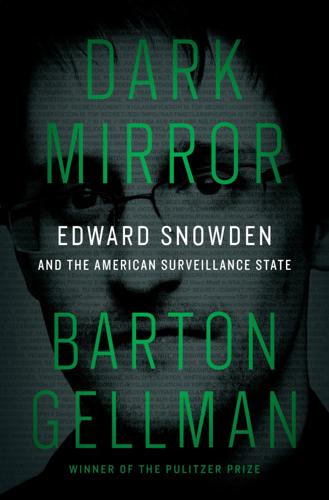
Dark Mirror: Edward Snowden and the Surveillance State
by
Barton Gellman
Published 20 May 2020
The accompanying story is Cora Currier, “The FBI’s Secret Rules,” Intercept, June 30, 2016, republished on January 31, 2017, at https://perma.cc/HRW5-ETNP. his coming-out video: The Guardian posted the videotaped interview: Laura Poitras and Glenn Greenwald, “NSA Whistleblower Edward Snowden: ‘I Don’t Want to Live in a Society That Does These Sort of Things,’” Guardian, on June 9, 2013, www.theguardian.com/world/video/2013/jun/09/nsa-whistleblower-edward-snowden-interview-video. Hong Kong–based reporter: Lana Lam, “EXCLUSIVE: Whistle-Blower Edward Snowden Talks to South China Morning Post,” South China Morning Post, June 12, 2013, at https://perma.cc/7BM6-7DBQ. “Put the data you have uncovered”: Dafna tweeted a photo from the restaurant.
…
: Transcript of live chat on Jabber instant messaging service between Edward Snowden and Daniel Ellsberg, September 8, 2013, on file with author. “that the so-called intelligence community”: Daniel Ellsberg, “Edward Snowden: Saving Us from the United Stasi of America,” Guardian, June 10, 2013, at https://perma.cc/F7RD-LK5V. bore little resemblance: Some have seen these differences as essential to the legitimacy of their respective leaks, comparing Snowden unfavorably to Ellsberg. See Malcolm Gladwell, “Daniel Ellsberg, Edward Snowden, and the Modern Whistle-Blower,” New Yorker, December 19 and 26, 2016, at https://perma.cc/YU2E-EY8W.
…
How did you extract all that information and cross a border with it? It’s just a question of being smarter than the adversary. Which in this case is only the NSA. Ha, true. One step at a time and you climb up the mountain. You can tell that story later. —Author’s chat with Edward Snowden, June 9, 2013 This book takes up the gauntlet that Edward Snowden threw down for me that day, the same day he unmasked himself to the world. Shortly after this exchange, he fled his Hong Kong hotel room ahead of an extradition request from the United States. His parting words were a challenge, not a promise. He did not intend to hand me his story.
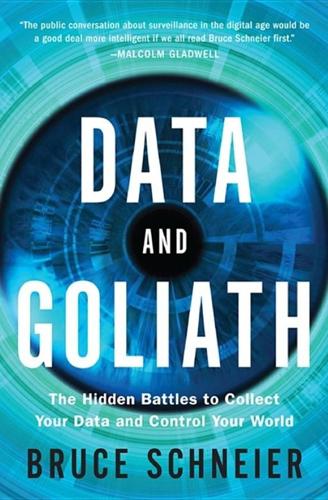
Data and Goliath: The Hidden Battles to Collect Your Data and Control Your World
by
Bruce Schneier
Published 2 Mar 2015
Chelsea Manning was prohibited: David Dishneau (20 Jul 2012), “Manning largely barred from discussing WikiLeaks harm,” Associated Press, http://seattletimes.com/html/nationworld/2018724246_apusmanningwikileaks.html. Edward Snowden claims: The country is fairly evenly divided on this point. Seth Motel (15 Apr 2014), “NSA coverage wins Pulitzer, but Americans remain divided on Snowden leaks,” Pew Research Center, http://www.pewresearch.org/fact-tank/2014/04/15/nsa-coverage-wins-pulitzer-but-americans-remain-divided-on-snowden-leaks. John Kerry insisted that: Jonathan Topaz (28 May 2014), “John Kerry: Edward Snowden a ‘coward … traitor,’” Politico, http://www.politico.com/story/2014/05/edward-snowden-coward-john-kerry-msnbc-interview-nsa-107157.html. Hillary Clinton proclaimed: Phoebe Greenwood (4 Jul 2014), “Edward Snowden should have right to legal defense in US, says Hillary Clinton,” Guardian, http://www.theguardian.com/world/2014/jul/04/edward-snowden-legal-defence-hillary-clinton-interview.
…
It secretly inserts weaknesses: Bruce Schneier (4 Oct 2013), “Attacking Tor: How the NSA targets users’ online anonymity,” Guardian, http://www.theguardian.com/world/2013/oct/04/tor-attacks-nsa-users-online-anonymity. “endpoint security is so terrifically weak”: Glenn Greenwald and Edward Snowden (17 Jun 2013), “Edward Snowden: NSA whistleblower answers reader questions,” Guardian, http://www.theguardian.com/world/2013/jun/17/edward-snowden-nsa-files-whistleblower. Discoverers can sell vulnerabilities: The ethics of this is discussed here. Serge Egelman, Cormac Herley, and Paul C. van Oorschot (9-12 Sep 2013), “Markets for zero-day exploits: Ethics and implications,” New Security Paradigms Workshop, Banff, Alberta, Canada, http://www.nspw.org/papers/2013/nspw2013-egelman.pdf.
…
Rahul Sagar (20 Dec 2013), “Creaky leviathan: A comment on David Pozen’s Leaky Leviathan,” Harvard Law Review Forum 127, http://cdn.harvardlawreview.org/wp-content/uploads/pdfs/forvol127_sagar.pdf. whistleblowing the civil disobedience: These two essays make this point. danah boyd (19 Jul 2013), “Whistleblowing is the new civil disobedience: Why Edward Snowden matters,” apophenia, http://www.zephoria.org/thoughts/archives/2013/07/19/edward-snowden-whistleblower.html. William E. Scheuerman (Sep 2014), “Whistleblowing as civil disobedience: The case of Edward Snowden,” Philosophy and Social Criticism 40, http://psc.sagepub.com/content/40/7/609.abstract. The NGO Human Rights Watch: G. Alex Sinha (28 Jul 2014), “With liberty to monitor all,” Human Rights Watch, http://www.hrw.org/reports/2014/07/28/liberty-monitor-all-0.
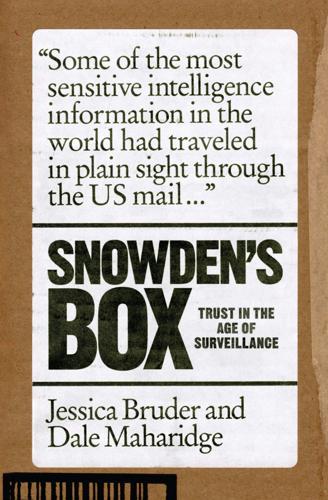
Snowden's Box: Trust in the Age of Surveillance
by
Jessica Bruder
and
Dale Maharidge
Published 29 Mar 2020
p. 48 Snowden answering questions: On June 9, the Guardian ran a short film by Laura Poitras. It showed Snowden answering questions posed by Greenwald. “NSA Whistleblower Edward Snowden: ‘I don’t want to live in a society that does these sort of things,’” Guardian, video, June 9, 2013, www.theguardian.com/world/video/2013/jun/09/nsa-whistleblower-edward-snowden-interview-video. p. 48 The Mira Hotel in Kowloon: Ewen MacAskill, “Edward Snowden: How the Spy Story of the Age Leaked Out,” Guardian, June 12, 2013. p. 49 “I will never commit suicide” (Binney): Laura Poitras, Astro Noise: A Survival Guide for Living under Total Surveillance (New York: Whitney Museum of American Art, 2016), 100.
…
pp. 70–2 twelve-minute instructional video: anon108 [Edward Snowden], “GPG for Journalists,” uploaded Sunday, January 6, 2013, vimeo.com/user15675314. p. 72 “Cincinnatus” described his mounting frustration: Greenwald, No Place to Hide, 10. p. 72 Snowden had seen The Program and read what Greenwald had written about her in Salon: Maass, “How Laura Poitras Helped Snowden Spill His Secrets.” pp. 72–3 “The surveillance you’ve experienced means you’ve been selected”: Poitras, Citizenfour, 4:22–5:06. p. 73 DARKDIAMOND for Laura and SILVERSHOT for Micah: Poitras, Astro Noise, 101. p. 73 COPPERCOMET for Greenwald: Edward Snowden to Laura Poitras in an encrypted email on April 21, 2013.
…
p. 84 as if the Tea Party and Occupy Wall Street had clasped hands: Adam Serwer, “‘Stop Watching Us’ Sees a Chance to Reform the NSA,” MSNBC, October 26, 2013, Msnbc.com. p. 85 march from Union Station to the Capitol Mall: “#StopWatchingUs Rally against Mass Surveillance: Live Updates,” RT Question More, October 26, 2013, rt.com. p. 85 Snowden statement: Jesselyn Radack, “My Visit with Edward Snowden,” Nation, October 17, 2013; “Stop Watching Us Rally 10/26/13 Edward Snowden Statement,” YouTube. p. 85 “Privacy Chernobyl”: Till Wäscher, “Six Frames against Surveillance,” Internet Policy Observatory, Globalnetpolicy.org. p. 86 eight activists broke into an FBI field office: Betty Medsger, The Burglary: The Discovery of J. Edgar Hoover’s Secret FBI (New York: Vintage Books, 2014).
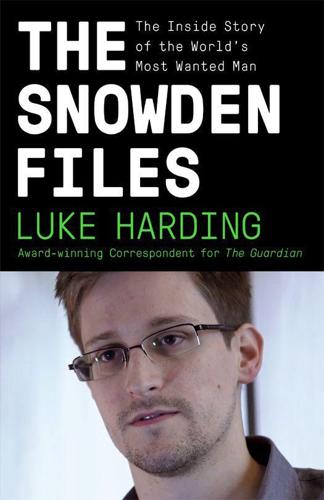
The Snowden Files: The Inside Story of the World's Most Wanted Man
by
Luke Harding
Published 7 Feb 2014
Puzzle Palace 5. The Man in the Room 6. Scoop! 7. The Planet’s Most Wanted Man 8. All of the Signals All of the Time 9. You’ve Had Your Fun 10. Don’t Be Evil 11. Flight 12. Der Shitstorm! 13. The Broom Cupboard 14. Shoot the Messenger Epilogue: Exile Acknowledgements Foreword Edward Snowden is one of the most extraordinary whistleblowers in history. Never before has anyone scooped up en masse the top-secret files of the world’s most powerful intelligence organisations, in order to make them public. But that was what he did. His skills are unprecedented. Until the present generation of computer nerds came along, no one realised it was possible to make off with the electronic equivalent of whole libraries full of triple-locked filing cabinets and safes – thousands of documents and millions of words.
…
Alan Rusbridger Editor-in-chief, Guardian London, February 2014 Prologue: The Rendezvous Mira Hotel, Nathan Road, Hong Kong Monday 3 June 2013 ‘I don’t want to live in a world where everything that I say, everything I do, everyone I talk to, every expression of creativity or love or friendship is recorded …’ EDWARD SNOWDEN It began with an email. ‘I am a senior member of the intelligence community …’ No name, no job title, no details. The Guardian columnist Glenn Greenwald, who was based in Brazil, started to correspond with this mysterious source. Who was he? The source said nothing about himself. He was an intangible presence, an online ghost.
…
She had been a matchmaker, the first to point Greenwald in the ghost’s direction. The two journalists were given meticulous instructions. They were to meet in a less-trafficked, but not entirely obscure, part of the hotel, next to a large plastic alligator. They would swap pre-agreed phrases. The source would carry a Rubik’s cube. Oh, and his name was Edward Snowden. It appeared the mystery interlocutor was an experienced spy. Perhaps one with a flair for the dramatic. Everything Greenwald knew about him pointed in one direction: that he was a grizzled veteran of the intelligence community. ‘I thought he must be a pretty senior bureaucrat,’ Greenwald says.
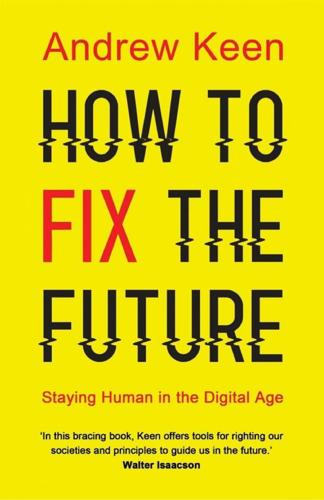
How to Fix the Future: Staying Human in the Digital Age
by
Andrew Keen
Published 1 Mar 2018
But the Apple commercial does remind us, albeit through Madison Avenue’s Technicolor-tinted lenses, about the central role of human agency in changing the world and in keeping us safe from those who would take away our rights. The issue the virtual Edward Snowden is raising with his Berlin audience is also the central question in this book. How can we reassert our agency over technology? How do we become like that vigorous blonde in the Macintosh advertisement and once again make ourselves the pilots of our own affairs? Moore’s Law Edward Snowden is right. The future isn’t working. There’s a hole in it. Over the last fifty years we’ve invented transformational new technologies—including the personal computer, the internet, the World Wide Web, artificial intelligence, and virtual reality—that are transforming our society.
…
But in the Macintosh commercial the man is a version of Big Brother, the omniscient tyrant from Orwell’s twentieth-century dystopian novel Nineteen Eighty-Four. The young man on the Berlin screen, in contrast, is an enemy of authoritarianism. He is someone who, at least in his own mind, is a victim rather than a perpetrator of tyranny. His name is Edward Snowden. A hero to some and a traitorous hacker to others, he is the former CIA contractor who, having leaked classified information about a series of US government surveillance programs, fled to Vladimir Putin’s Russia and now mostly communicates with the outside world through cyberspace. The Berlin audience has come to the old carpet factory for a tech event titled “Encrypted and Decentralized,” organized by the local venture firm BlueYard Capital.
…
This assumption, which Wiener shared not only with Bush and Licklider, but with many other twentieth-century visionaries—including Steve Jobs and Steve Wozniak, the cofounders of Apple—was based on the conviction that this new technology would empower us with agency to change our societies. “You’ll see why 1984 won’t be like ‘1984,’” promised the iconic Super Bowl XVIII advertisement about the transformative power of Jobs’s and Wozniak’s new desktop computer. But Edward Snowden’s virtual speech at the Alte Teppichfabrik doesn’t share this optimism. Communicating in cyberspace, presumably from a Russian safe house a couple of thousand miles east of the German capital, Snowden is warning his Berlin audience that contemporary technology—the power of the network, in an age of ubiquitous computing, to snoop on and control everything we do—is undermining our power to govern our own society.
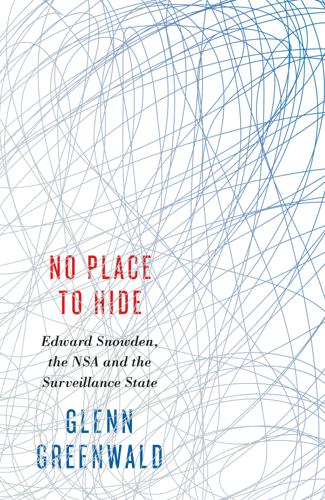
No Place to Hide: Edward Snowden, the NSA, and the U.S. Surveillance State
by
Glenn Greenwald
Published 12 May 2014
I knew that he could rouse so many people to do the same. At 2:00 p.m. Eastern time on Sunday, June 9, the Guardian published the story that revealed Snowden to the world: “Edward Snowden: The Whistleblower Behind the NSA Surveillance Revelations.” The top of the article featured Laura’s twelve-minute video; the first line read, “The individual responsible for one of the most significant leaks in US political history is Edward Snowden, a 29-year-old former technical assistant for the CIA and current employee of the defence contractor Booz Allen Hamilton.” The article told Snowden’s story, conveyed his motives, and proclaimed that “Snowden will go down in history as one of America’s most consequential whistleblowers, alongside Daniel Ellsberg and Bradley Manning.”
…
Glenn Greenwald No Place to Hide Edward Snowden, the NSA and the Surveillance State CONTENTS Title Page About the Author Also by Glenn Greenwald Dedication Epigraph Introduction 1. Contact 2. Ten Days in Hong Kong 3. Collect It All 4. The Harm of Surveillance 5. The Fourth Estate Epilogue A Note on Sources Acknowledgments Endpage Copyright ABOUT THE AUTHOR GLENN GREENWALD is the author of several US bestsellers, including How Would A Patriot Act? and A Tragic Legacy. Acclaimed as one of the twenty-five most influential political commentators by the Atlantic, Greenwald is a former constitutional law and civil rights attorney.
…
My position was straightforward: by ordering illegal eavesdropping, the president had committed crimes and should be held accountable for them. In America’s increasingly jingoistic and oppressive political climate, this proved to be an intensely controversial stance. It was this background that prompted Edward Snowden, several years later, to choose me as his first contact person for revealing NSA wrong-doing on an even more massive scale. He said he believed I could be counted on to understand the dangers of mass surveillance and extreme state secrecy, and not to back down in the face of pressure from the government and its many allies in the media and elsewhere.
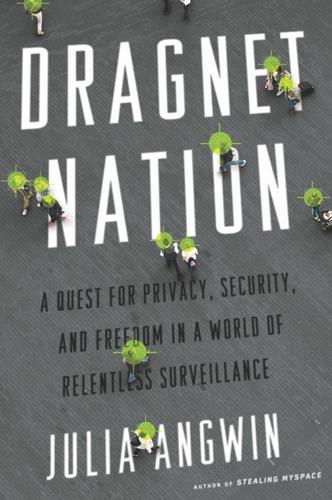
Dragnet Nation: A Quest for Privacy, Security, and Freedom in a World of Relentless Surveillance
by
Julia Angwin
Published 25 Feb 2014
In 2013, Manning was sentenced to: Paul Lewis, “Bradley Manning Given 35-Year Prison Term for Passing Files to WikiLeaks,” Guardian, August 21, 2013, http://www.theguardian.com/world/2013/aug/21/bradley-manning-35-years-prison-wikileaks-sentence. Snowden obtained temporary political asylum: Alec Luhn, Luke Harding, and Paul Lewis, “Edward Snowden Asylum: US ‘Disappointed’ by Russian Decision,” Guardian, August 1, 2013, http://www.theguardian.com/world/2013/aug/01/edward-snowden-asylum-us-disappointed. In 2013, the Justice Department informed: Devlin Barrett, “U.S. Seized Phone Records of AP Staff,” Wall Street Journal, May 13, 2013, http://online.wsj.com/article/SB10001424127887324715704578481461374133612.html.
…
Of course, the largest of the dragnets appear to be those operated by the U.S. government. In addition to its scooping up vast amounts of foreign communications, the National Security Agency is also scooping up Americans’ phone calling records and Internet traffic, according to documents revealed in 2013 by the former NSA contractor Edward Snowden. But the NSA is not alone (although it may be the most effective) in operating dragnets. Governments around the world—from Afghanistan to Zimbabwe—are snapping up surveillance technology, ranging from “massive intercept” equipment to tools that let them remotely hack into people’s phones and computers.
…
Over the years, Reagan’s directive has been interpreted to mean that domestic spying should be done cautiously, and only in cases where there is reason to suspect a crime. But after 9/11, the requirement to establish some kind of suspicion before engaging in domestic spying was, for all intents and purposes, tossed aside. Documents revealed by the former NSA contractor Edward Snowden paint a devastating portrait of how a single decision made in the days after the attack opened the floodgates for vast domestic dragnets. According to a leaked draft of a 2009 inspector general’s report, the NSA’s domestic spying began on September 14, 2001, three days after the attacks, when the agency’s director, Michael Hayden, approved warrantless interception of any U.S. phone call to or from specific terrorist-identified phone numbers in Afghanistan.
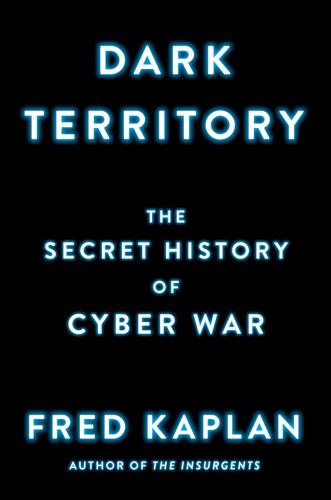
Dark Territory: The Secret History of Cyber War
by
Fred Kaplan
Published 1 Mar 2016
For critical views of Snowden, see Fred Kaplan, “Why Snowden Won’t (and Shouldn’t) Get Clemency,” Slate, Jan. 3, 2014, http://www.slate.com/articles/news_and_politics/war_stories/2014/01/edward_snowden_doesn_t_deserve_clemency_the_nsa_leaker_hasn_t_proved_he.html; Mark Hosenball, “NSA Memo Confirms Snowden Scammed Passwords from Colleagues,” Reuters, Feb. 13, 2014, http://www.reuters.com/article/2014/02/13/us-usa-security-idUSBREA1C1MR20140213; George Packer, “The Errors of Edward Snowden and Glenn Greenwald,” Prospect, May 22, 2014, http://www.prospectmagazine.co.uk/features/the-errors-of-edward-snowden-and-glenn-greenwald. From that point on, the Chinese retort: At a later summit, in September 2015, Obama and Xi agreed not to “conduct or knowingly support” cyber theft of “intellectual property” with the “intent of providing competitive advantage to companies or commercial sectors.”
…
“demonstrated a clear ability”: “Iran—Current Topics, Interaction with GCHQ: Director’s Talking Points,” April 2013, quoted and linked in Glenn Greenwald, “NSA Claims Iran Learned from Western Cyberattacks,” The Intercept, Feb. 10, 2015, https://firstlook.org/theintercept/2015/02/10/nsa-iran-developing-sophisticated-cyber-attacks-learning-attacks/. The document comes from the cache leaked by Edward Snowden. The essential point is confirmed by interviews. At what point, he asked: Gates, Duty, 451; and interviews. “Previous cyber-attacks had effects”: Sanger, Confront and Conceal, 200. “Trilateral Memorandum of Agreement”: The memorandum of agreement is mentioned in a footnote in Barack Obama, Presidential Policy Directive, PPD-20, “U.S. Cyber Operations Policy,” Oct. 2012, https://www.fas.org/irp/offdocs/ppd/ppd-20.pdf. PPD-20 is among the documents leaked by Edward Snowden. An action report on the directive: This is noted in boldfaced brackets in the copy of the document that Snowden leaked.
…
The next morning: The date of the first meeting at Fort Meade comes from a highly entertaining video of Geoffrey Stone delivering the “Journeys” lecture at the University of Chicago, sometime in 2014, http://chicagohumanities.org/events/2014/journeys/geoffrey-stone-on-the-nsa; substance of the session comes from that video and interviews. In Cyber War, he’d criticized: Richard A. Clarke and Robert K. Knake, Cyber War (New York: HarperCollins, 2010), passim, esp. 44ff. Stone was no admirer of Snowden: “Is Edward Snowden a Hero? A Debate with Journalist Chris Hedges and Law Scholar Geoffrey Stone,” Democracy Now, June 12, 2013, http://www.democracynow.org/2013/6/12/is_edward_snowden_a_hero_a.; and interviews. Moreover, if the metadata revealed: The figure of twenty-two NSA officials comes from the White House, Liberty and Security in a Changing World: Report and Recommendations of the President’s Review Group on Intelligence and Communication Technologies, Dec. 12, 2013 (hereinafter cited as “President’s Review Group”), 98, https://www.nsa.gov/civil_liberties/_files/liberty_security_prgfinalreport.pdf; the rest of this section, unless otherwise noted, comes from interviews.
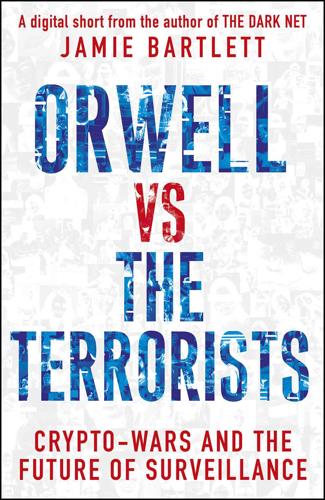
Orwell Versus the Terrorists: A Digital Short
by
Jamie Bartlett
Published 12 Feb 2015
Contents About the Book About the Author Title Page Introduction A Brief History of the Crypto-Wars A New Battle Orwell The Terrorists In Defence of the Security Services Who Wins? Acknowledgements Notes The Dark Net Copyright About the Book On 5 June 2013, the Guardian began publishing a series of documents leaked by NSA contractor Edward Snowden, revealing the extent of internet surveillance undertaken by government and intelligence agencies. It provoked an immediate outcry. ‘I didn’t want to change society,’ Snowden would later say, in exile. ‘I wanted to give society a chance to determine if it should change itself.’ And to some extent, he has.
…
He is the author of The Dark Net, and of #intelligence, a report on the future of internet surveillance, co-authored with Sir David Omand, a former Director of GCHQ. He lives in London. Orwell versus the Terrorists Crypto-Wars and the Future of Internet Surveillance Jamie Bartlett Introduction In late 2012 the National Security Agency (NSA) contractor Edward Snowden contacted Guardian journalist Glenn Greenwald, saying he had sensitive documents about government surveillance he would like to share. In early 2013 he started sending Greenwald – along with the documentary maker Laura Poitras – evidence that revealed the extent of internet surveillance by the US, UK and other governments.
…
Civil liberties groups believe companies, police and governments have a mutual interest in keeping the data gold rush going. Intelligence agencies don’t need to spy on you any more: they simply go to your internet company, and prise out of them what they need. (This, incidentally, is precisely what the NSA’s Prism programme did – which was the very first revelation made by Edward Snowden.) And of course, having all this information centralised in one place is inevitably a honeypot for fraudsters and hackers, with identity and data theft increasing at an alarming rate. Perhaps we’re sleepwalking into a new age, a world where everything is captured, stored, analysed, repackaged and sold.

There's a War Going on but No One Can See It
by
Huib Modderkolk
Published 1 Sep 2021
From where I was standing, it looked like individual privacy was being eroded in all kinds of ways. Cellular technology was taking over more and more of our lives, email had put paid to telephones and now we were all hooked on WhatsApping for free. With smartphones, the outside world had infiltrated our private lives. How was all this affecting our safety? Then onto the scene came Edward Snowden, a twenty-nine-year-old American who made off with tens of thousands of top-secret documents from the US National Security Agency (NSA) and leaked them to journalists in 2013. Just like that, the secrets of the world’s most powerful agency became public knowledge. It was a terrific scandal, setting off a media storm around the globe and revealing that the digital era had also brought new forms of espionage.
…
As many as 230 million internet records a year and everything from a single email to the chat histories of hundreds of people, as well as daily copies of the complete telephone records of 120 million Americans. My boss Jan Meeus assigned me to cover the Dutch and European angle. Were agencies in Europe as invasive as their US counterparts? Did they work together? And did Dutch intelligence always keep within the law? ‘This,’ he said, ‘is your chance.’ I was keen to meet Edward Snowden in person but hadn’t the faintest idea how to make that happen. Could I contact him directly? Could I phone the journalists to whom he gave classified documents? Had you told me that six months later I’d be sitting across from Snowden in the flesh, albeit incognito, I would have laughed. This world was entirely new to me.
…
* But Bais’s explanation also left me with new questions. Such as: who’s powerful online? Who’s attacking data, and who’s protecting it? What are intelligence services doing with these new technologies? There lay my next step. Unfortunately, secrets don’t divulge themselves. I couldn’t just pick up the phone and call Edward Snowden in his hiding place in Moscow. I had to go in search of the insiders who knew this world. As a journalist I’d learned that my phone was my main weapon. Whenever you hit a wall, try to think of who can help you out. So I made some calls and arranged to visit internet service providers, meet with telecom professionals and talk to former intelligence workers and security experts.
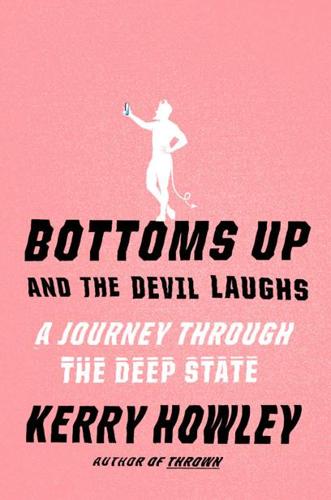
Bottoms Up and the Devil Laughs
by
Kerry Howley
Published 21 Mar 2023
The dreams of Americans showed an increase in “central image intensity.” Where purpose had been muddy, it was now clean. The purpose of the state was to stop another attack. For years afterward servicemen and -women would give 9/11 as the reason for risking their lives, and whether this was catalyst or rationalization would remain mysterious perhaps even to them. Edward Snowden signed up in 2005, Chelsea Manning in 2009, Reality Winner in 2010. In any story, there is a last moment in which the protagonist might have walked away, unbothered by consequence, but we are past that now. Had John Lindh left for his adventure a few months previous and come back home to enroll in a reasonably priced public university in California, it is entirely possible that no one would have known about his wanderings, and had anyone known, it’s unclear anyone would have cared.
…
Highly critical of her carbon-spewing, famine-ignoring fellow citizens, she nevertheless hoped her humanitarian impulses were compatible with the military’s mission, and wished her fellow airmen were not just more competent in their jobs but more motivated to do them well, to save the vulnerable from acts of terror. She believed that change comes not just from within but from the top, which is to say that change involves patience. But patience would prove hard for her. Reality was intellectual but she had not been raised in an intellectually sophisticated household. In this she resembles Edward Snowden and Chelsea Manning and Jesselyn Radack and Daniel Hale. An intellectual orphan comes to knowledge absent the social pressure to conform to a particular set of ideas. Reality would not have known which theories were fashionable or which to be slightly ironic about. It takes such a person, in their conceptual innocence, far longer to ably sort through the tangle of established human thought.
…
The greatest danger to the national security state was now ideological, morally serious twentysomethings finding themselves as they sifted through secrets their younger selves had promised to keep. They didn’t trust the bureaucracies they were in and didn’t feel intimidated by a media that would have seemed far away, inaccessible, in a pre-internet age of three networks and thick newspapers. The media was comprised of accessible personalities an email away. After Manning would come Edward Snowden, Reality Winner, and Daniel Hale. None of them had hit thirty-one on the day they blew the whistle. The most accessible personality, because the most persistent and ubiquitous and resistant to silence, was perhaps that of Glenn Greenwald, who was in 2012 a left-libertarian lawyer-turned-blogger.
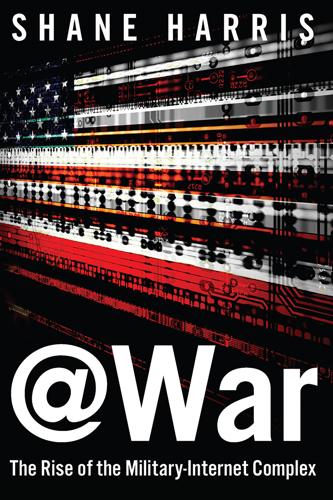
@War: The Rise of the Military-Internet Complex
by
Shane Harris
Published 14 Sep 2014
On the Internet battlefield, TAO is surveilling potential targets. Were an order to attack ever given, they would help lead the charge. US officials and intelligence experts estimate that TAO has implanted spying devices in at least 85,000 computer systems in 89 countries, according to classified documents that were released by former NSA contractor Edward Snowden. In 2010, TAO conducted 279 operations. The unit has cracked the encryption that underpins widely used e-mail systems, including BlackBerry, in order to spy on computer users around the world. It has even gone so far as to divert the shipments of its targets’ computers to an NSA facility and then implant spyware inside the computers.
…
US intelligence officials and some lawmakers have suspected for years that Huawei is a proxy for the Chinese military and intelligence services. US regulatory agencies have blocked the installation of Huawei telecom equipment, including switches and routers, in this country for fear they’ll be used as a conduit for cyber spying. Edward Snowden told Chinese journalists that the NSA broke in to computers at Beijing’s Tsinghua University, one of the country’s top education and research institutions. Snowden described the hacking as extensive. On one day in January 2013, the NSA had penetrated at least sixty-three university computers or servers, according to documents Snowden showed the journalists.
…
Several dozen clandestine CIA officers trained for the black-bag operations to implant this spyware now work full-time at NSA headquarters in Fort Meade. The CIA has also set up its own hacker force, known as the Information Operations Center, or IOC. According to a budget document leaked by Edward Snowden, this CIA group has grown in size in recent years and now employs hundreds of people, making it one of the agency’s largest groups. The IOC launches cyber attacks and recruits foreign spies to help conduct its operations, according to the document. The Internet has become a battlefield. In recent years the alliance between soldiers and spies has grown stronger, and they have expanded the terrain on which they fight together.
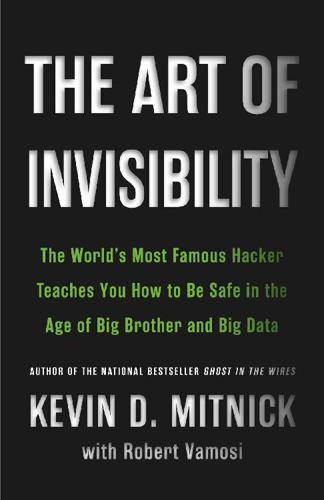
The Art of Invisibility: The World's Most Famous Hacker Teaches You How to Be Safe in the Age of Big Brother and Big Data
by
Kevin Mitnick
,
Mikko Hypponen
and
Robert Vamosi
Published 14 Feb 2017
INTRODUCTION Time to Disappear Almost two years to the day after Edward Joseph Snowden, a contractor for Booz Allen Hamilton, first disclosed his cache of secret material taken from the National Security Agency (NSA), HBO comedian John Oliver went to Times Square in New York City to survey people at random for a segment of his show on privacy and surveillance. His questions were clear. Who is Edward Snowden? What did he do?1 In the interview clips Oliver aired, no one seemed to know. Even when people said they recalled the name, they couldn’t say exactly what Snowden had done (or why). After becoming a contractor for the NSA, Edward Snowden copied thousands of top secret and classified documents that he subsequently gave to reporters so they could make them public around the world. Oliver could have ended his show’s segment about surveillance on a depressing note—after years of media coverage, no one in America really seemed to care about domestic spying by the government—but the comedian chose another tack.
…
But its creator, Phil Zimmermann, also authored an open-source version, OpenPGP, which is free. And a third option, GPG (GNU Privacy Guard), created by Werner Koch, is also free. The good news is that all three are interoperational. That means that no matter which version of PGP you use, the basic functions are the same. When Edward Snowden first decided to disclose the sensitive data he’d copied from the NSA, he needed the assistance of like-minded people scattered around the world. Paradoxically, he needed to get off the grid while still remaining active on the Internet. He needed to become invisible. Even if you don’t have state secrets to share, you might be interested in keeping your e-mails private.
…
After that time has expired, the carriers insist that your text messages are stored only on the phones that send and receive them, and the number of messages stored varies by the phone model. Despite these claims, I think all mobile operators in the United States retain text messages regardless of what they tell the public.4 There is some doubt surrounding this claim by the carriers. Documents exposed by Edward Snowden suggest a tight relationship between the NSA and at least one of the carriers, AT&T. According to Wired, beginning in 2002—shortly after 9/11—the NSA approached AT&T and asked them to begin building secret rooms in some of the carrier’s facilities. One was to be located in Bridgeton, Missouri, and another on Folsom Street in downtown San Francisco.

Spies, Lies, and Algorithms: The History and Future of American Intelligence
by
Amy B. Zegart
Published 6 Nov 2021
Moalin, 973 F.3d 977 (9th Cir. 2020). 33. “Edward Snowden did this country a great service. Let him come home,” Guardian, September 14, 2016, https://www.theguardian.com/us-news/2016/sep/14/edward-snowden-pardon-bernie-sanders-daniel-ellsberg (accessed April 22, 2020); Michael German, “Edward Snowden Is a Whistleblower,” ACLU, August 2, 2013, https://www.aclu.org/blog/national-security/secrecy/edward-snowden-whistleblower (accessed April 22, 2020). 34. PBS NewsHour, Former Def. Sec. Gates Says Edward Snowden Is a Traitor, January 14, 2014, https://www.youtube.com/watch?v=sQKUe96TAh4; ABC News, Edward Snowden NSA Leaker: Boehner Says “He’s a Traitor,” June 11, 2013, https://www.youtube.com/watch?
…
In the 1970s, revelations that intelligence agencies had been spying on Americans, infiltrating dissident groups, and assassinating foreign leaders prompted outcries and congressional oversight reforms. More recent controversies include CIA drone strikes and secret NSA surveillance programs revealed by a former agency contractor named Edward Snowden in 2013. In the summer of 2014, a year after the Snowden revelations hit the press, I held a cyber boot camp for congressional staffers that included a visit to a major Silicon Valley tech company. As we filed into the conference room, the tension was palpable. One tech executive told the group he viewed the U.S. government just like China’s People’s Liberation Army—as an adversary that needed to be stopped from surreptitiously penetrating his systems.
…
To gauge understanding, I asked respondents some basic questions, such as how much intelligence in a typical report was secret and who was the most senior intelligence official in the United States. I also included some questions about the mission of the National Security Agency (NSA) in the midst of the Edward Snowden revelations, the agency’s biggest crisis since its founding in 1952. To make it easier, I gave respondents options, so they didn’t have to come up with answers out of thin air. They just needed to select the right multiple-choice answer, for instance: About what percent of the information in a typical intelligence report comes from secrets?
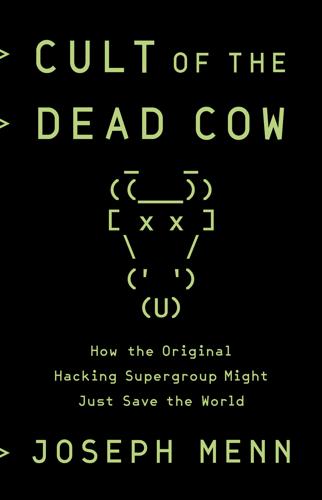
Cult of the Dead Cow: How the Original Hacking Supergroup Might Just Save the World
by
Joseph Menn
Published 3 Jun 2019
At the heart of that book was a true tale of Russian intelligence collaborating with criminal hackers, a scenario that went from shocking at the time of publication in 2010 to widely accepted today. Since then, many books have tackled the military-internet complex, intelligence gathering, and cyberwarfare, together with WikiLeaks, Edward Snowden, and the 2016 US election. Missing in all of them has been a compelling account of the people dedicated to information security who are out of the spotlight or even in the shadows, fighting to protect our personal data and freedom as well as our national security. In many cases, these people are more colorful than their adversaries.
…
The grandson of Greek Cypriot immigrants who ended up in Sacramento, Stamos had a trajectory similar to Adam’s—public schools, serious technical higher education, and then jobs as a principled hacker. One of his first was at @stake, working for Mudge and others in the L0pht who had wowed him by testifying to Congress in 1998, under their hacker handles, about the dismal state of cybersecurity. Following in cDc’s footsteps, Stamos had earned a reputation for independence. When Edward Snowden leaked files showing that the NSA was collaborating closely with the big internet companies, especially to scoop up data on people in other countries, Stamos gave a heartfelt talk on ethics at the biggest hacking conference, Def Con. He declared that despite the lack of widely enforced moral codes, security experts should consider resigning their posts rather than violate human rights.
…
And the majority of hackers did not want to announce themselves as mercenaries or paint a target on themselves for other hackers or governments that might be interested in hacking them for an easy zero-day harvest. So the gray trade grew, driven by useful rumors at Def Con and elsewhere, and stayed out of public sight for a decade. The first mainstream articles on the zero-day business appeared not long before Edward Snowden disclosed that it was a fundamental part of US government practice, in 2013. As offensive capabilities boomed, defense floundered. Firms like @stake tried to protect the biggest companies and, more importantly, get the biggest software makers to improve their products. But just like the government, the criminal world had discovered hacking in a big way.
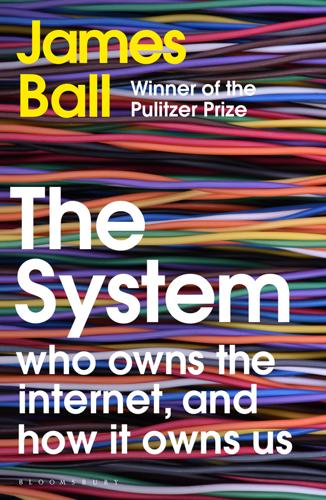
The System: Who Owns the Internet, and How It Owns Us
by
James Ball
Published 19 Aug 2020
My earliest childhood had computers hooked up via creaking modems to the bulletin boards that were the precursor of the popular web. As an adult, my childhood obsession had metamorphosed into using the internet, and working to chronicle it – as a tech journalist, as a WikiLeaks staffer, as someone later working on the NSA (National Security Agency) leaks from Edward Snowden, who documented how the intelligence agencies dominated the networks that had felt like my home. A decade or more of reporting on the internet takes you across the world – from south London squats full of idealistic hackers, to secure operations rooms. For this book, I have tried to get inside the closed rooms, to meet the people who’ve made the decisions that have shaped the internet and to hold them to account.
…
ICANN had always worked relatively independently and transparently, but as the internet grew in power and importance, the USA’s semi-official oversight role began to become more contentious, especially in Russia, China and their allies, leading for calls for the UN or some other body to be given a formal role overseeing some of the key protocols, such as DNS and allocation of addresses. These calls only heightened after the extensive revelations from NSA whistleblower Edward Snowden in 2013 and 2014. These are covered more extensively in Chapter 6, but in short showed the US abusing its role overseeing the internet’s protocols and security to give itself access to intelligence from foreign powers. These scandals fed into years of talks to remove the USA’s formal role overseeing ICANN, which was finally agreed early in 2016, and actually done very late in that year, right at the end of Barack Obama’s term in office.5 The result of trying to make the situation less political, of course, is that the system is very political: the US no longer has a formal role overseeing ICANN, but the UN doesn’t either.
…
The reason we were sitting there was that we were confident it would be worth the wait, because if everything worked okay – and that felt like a big ‘if’ – we would, just as soon as that progress bar hit 100 per cent, become the first UK reporters to set eyes on thousands of documents revealing the activities of GCHQ, the UK’s signals intelligence agency. That progress bar was tracking the decryption of tens of thousands of top-secret intelligence documents leaked by the NSA whistleblower Edward Snowden. Not even he had read them all, but from his time working with the USA’s intelligence agency, he’d relayed one tip of what to look for, and this was all that we’d have to go on as a start. We had no details, no explanations, no lengthy guide. We had a note with one word on it: ‘TEMPORA’. We had no idea what it was, or what it meant, but for investigative journalists, like any other gossip, there is no greater bait than a hint at a mystery, especially one that apparently is on the verge of being solved.
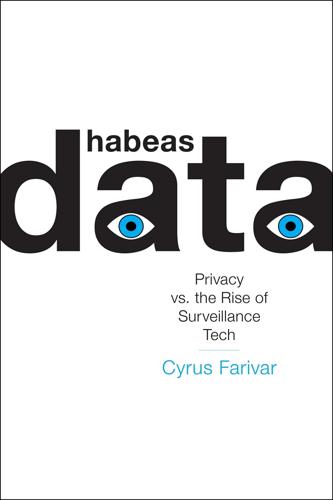
Habeas Data: Privacy vs. The Rise of Surveillance Tech
by
Cyrus Farivar
Published 7 May 2018
Apple had a new problem, and it was with the federal government. Apple had complied with government access before—handing over data when presented with a court order. Apple could even extract data held on phones, and quietly did so for years. But in the wake of National Security Agency (NSA) whistleblower Edward Snowden in 2013, Apple reengineered its software (starting with iOS 8), making it impossible for even it to access data held locally on an iPhone. After a horrific and tragic terrorist attack, the government wanted Apple to break its own security to help the government. The whole debacle turned on two seemingly distant pieces of law: the 1789 All Writs Act, and the more recent but no less outdated 1977 case known as United States v.
…
After all, most people have an opinion about terrorism and what the government should do about it. Moreover, 77 percent of Americans now own a smartphone. Most people feel their privacy being invaded more viscerally when the government wants access to a device that is within arm’s reach at all times. When the NSA’s Section 215 metadata program was revealed by Edward Snowden there was some pushback in the press and popular culture (and some modest legislative reform), but to a lot of people the country’s spookiest spy agency felt very far away. Section 215, which ran from 2001 until 2015, captured the incoming and outgoing calls of everyone in the United States. The government was not listening in to the calls, but rather was capturing the dates, times, durations, and phone numbers used—in other words, just the non-content metadata.
…
Apple is also capable of doing this, however to my knowledge they do not. Under a subpoena, Apple will, however, copy off the same readable contents of the file system if given a warrant. Google did not offer full-disk encryption on its Android devices either. However, everyone’s notion of security changed overnight when Edward Snowden became a household name in June 2013. Snowden, a young contractor for the NSA, leaked a trove of classified documents to two American reporters, Glenn Greenwald and Laura Poitras. (Greenwald famously almost missed the Snowden story as he found setting up encrypted e-mail too difficult.) They reported on a seemingly endless amount of materials from Snowden’s cache, describing in detail how the NSA was conducting its espionage and by what legal means.
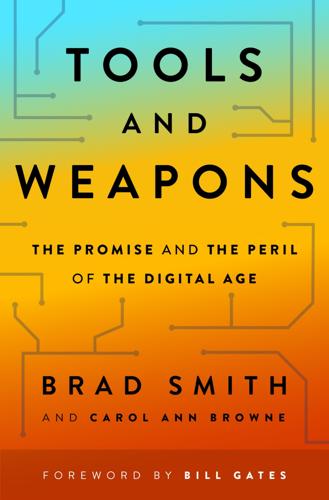
Tools and Weapons: The Promise and the Peril of the Digital Age
by
Brad Smith
and
Carol Ann Browne
Published 9 Sep 2019
Robert O’Harrow Jr., Ellen Nakashima, and Barton Gellman, “U.S., Company Officials: Internet Surveillance Does Not Indiscriminately Mine Data,” Washington Post, June 8, 2013, https://www.washingtonpost.com/world/national-security/us-company-officials-internet-surveillance-does-not-indiscriminately-mine-data/2013/06/08/5b3bb234-d07d-11e2-9f1a-1a7cdee20287_story.html?utm_term=.b5761610edb1. Back to note reference 4. Glenn Greenwald, Ewen MacAskill, and Laura Poitras, “Edward Snowden: The Whistleblower Behind the NSA Surveillance Revelations,” Guardian, June 11, 2013, https://www.theguardian.com/world/2013/jun/09/edward-snowden-nsa-whistleblower-surveillance. Back to note reference 5. Michael B. Kelley, “NSA: Snowden Stole 1.7 Million Classified Documents and Still Has Access to Most of Them,” Business Insider, December 13, 2013, https://www.businessinsider.com/how-many-docs-did-snowden-take-2013-12.
…
Back to note reference 7. Nick Hopkins, “UK Gathering Secret Intelligence Via Covert NSA Operation,” Guardian, June 7, 2013, https://www.theguardian.com/technology/2013/jun/07/uk-gathering-secret-intelligence-nsa-prism; see also Mirren Gidda, “Edward Snowden and the NSA Files—Timeline,” Guardian, August 21, 2013, https://www.theguardian.com/world/2013/jun/23/edward-snowden-nsa-files-timeline. Back to note reference 8. William J. Cuddihy, The Fourth Amendment: Origins and Meaning, 1602–1791 (Oxford: Oxford University Press, 2009), 441. Back to note reference 9. Ibid., 442. Back to note reference 10.
…
Seth Rosenblatt, “‘Pardon Snowden,’ One Tech Exec Tells Obama, Report Says,” Cnet, December 18, 2013, https://www.cnet.com/news/pardon-snowden-one-tech-exec-tells-obama-report-says/; Dean Takahashi, “Zynga’s Mark Pincus Asked Obama to Pardon NSA Leaker Edward Snowden,” VentureBeat, December 19, 2013, https://venturebeat.com/2013/12/19/zyngas-mark-pincus-asked-president-obama-to-pardon-nsa-leaker-edward-snowden/. Back to note reference 30. “Transcript of President Obama’s Jan. 17 Speech on NSA Reform,” Washington Post, January 17, 2014, https://www.washingtonpost.com/politics/full-text-of-president-obamas-jan-17-speech-on-nsa-reforms/2014/01/17/fa33590a-7f8c-11e3-9556-4a4bf7bcbd84_story.html?
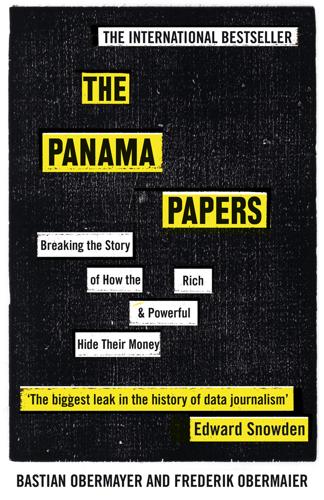
The Panama Papers: Breaking the Story of How the Rich and Powerful Hide Their Money
by
Frederik Obermaier
Published 17 Jun 2016
We have been working on this for over a year and no one knows what will happen next. How will other media institutions take up the story? How will the general population respond? Or will the story fail to attract the attention it deserves, dismissed as ‘just another leak’? A colleague calls unexpectedly: ‘Edward Snowden has just tweeted us!’ We look at each other, baffled. 7.48pm. Edward Snowden? We go on Twitter, and indeed, Edward Snowden has tweeted this message to his 2 million followers: ‘Biggest leak in the history of data journalism just went live, and it’s about corruption.’ Snowden also provides a link to the Süddeutsche Zeitung website and the English version of our article on Iceland and the shell companies owned by Prime Minister Sigmundur Gunnlaugsson and two other cabinet members.
…
‘The biggest leak in the history of data journalism’ Edward Snowden The inside story from the journalists who set the investigation in motion. Late one evening, investigative journalist Bastian Obermayer receives an anonymous message offering him access to secret data. Through encrypted channels, he then receives documents showing a mysterious bank transfer for $500 million in gold. This is just the beginning. Obermayer and fellow Süddeutsche Zeitung journalist Frederik Obermaier find themselves immersed in a secret world where complex networks of shell companies help to hide those who don’t want to be found.
…
Contents Foreword Prologue 1 Start 2 Vladimir Putin’s mysterious friend 3 The shadow of the past 4 Commerzbank and its lies 5 Mossack Fonseca’s role in the Syrian war 6 From the Waffen-SS to the CIA and Panama 7 The football factory 8 On fishing, finding and fine art 9 A view of the White House 10 Sparks fly 11 Fear and trepidation 12 The Siemens millions 13 ‘Regarding my meeting with Harry Potter. . .’ 14 A secret meeting with Alpine views 15 Mossfon Holdings 16 Spirit of Panama 17 The world is not enough 18 The looting machine 19 Secret meetings in the Komitèrom 20 At the mercy of monsters 21 The red nobility 22 The Gas Princess and the Chocolate King 23 Those German banks 24 A raid by the Vikings of finance 25 Dead-end trails 26 United by marriage, united by money 27 Star, star, Mega Star 28 The fourth man and FIFA 29 The 99 per cent and the future of tax havens 30 The cold heart of the offshore world Epilogue The revolution will be digitized Acknowledgements Glossary Notes Foreword There are moments in history when a big truth is suddenly revealed. In 2010 leaked US diplomatic cables showed the White House’s private thinking about its friends and enemies. Three years later a contractor working for the National Security Agency exposed how the US and the UK are secretly spying on their own citizens. His name was Edward Snowden. We learned that spooks from Britain’s listening station GCHQ could – if they wanted – bug your iPhone. Or remotely activate your laptop web camera. Snowden’s revelations caused outrage and started a global conversation about the boundaries of privacy in a digital age. Except in Britain, land of James Bond, where many met his revelations with a complacent shrug.
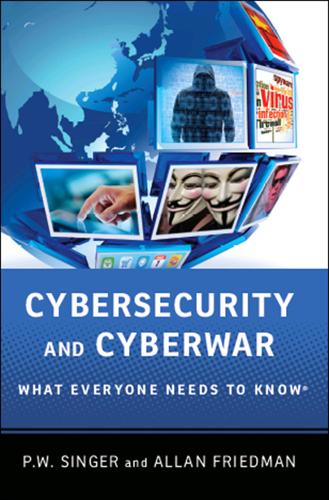
Cybersecurity: What Everyone Needs to Know
by
P. W. Singer
and
Allan Friedman
Published 3 Jan 2014
Failures of access control have been behind some of the more spectacular cyber-related scandals in recent years, like the case of Bradley Manning and WikiLeaks in 2010, which we explore next, and the 2013 Edward Snowden case (where a low-level contractor working as a systems administrator at the NSA had access to a trove of controversial and top-secret programs, which he leaked to the press). These cases illustrate poor access control in all its glory, from low-level individuals being granted default access to anything and everything they wanted, to poor efforts to log and audit access (for several months after Edward Snowden went public with leaked documents about its various monitoring programs, the NSA still didn’t know how many more documents he had taken, but hadn’t yet released).
…
And even if so, is the individual old enough to participate? Or, at a slightly larger world stage, just because someone has access to a military’s classified networks, should the person be authorized to read and copy every file in them (a practice that would haunt the US military in the Bradley Manning and Edward Snowden leaks)? The entire problem was perhaps best illustrated by one of the most cited cartoons in history. In 1993, New Yorker magazine published a drawing by Peter Steiner of two dogs sitting near a computer. One dog tells the other, “On the Internet, nobody knows you’re a dog.” Yet this isn’t to say that people can’t find out private details about you if they want.
…
For Stuxnet (a case we’ll explore further in Part II), the attackers wanted to disrupt industrial control processes involved in uranium enrichment, so as to sabotage the Iranian nuclear program. Finally, it is useful to acknowledge when the danger comes from one of your own. As cases like Bradley Manning and WikiLeaks or Edward Snowden and the NSA scandal illustrate, the “insider threat” is particularly tough because the actor can search for vulnerabilities from within systems designed only to be used by trusted actors. Insiders can have much better perspectives on what is valuable and how best to leverage that value, whether they are trying to steal secrets or sabotage an operation.
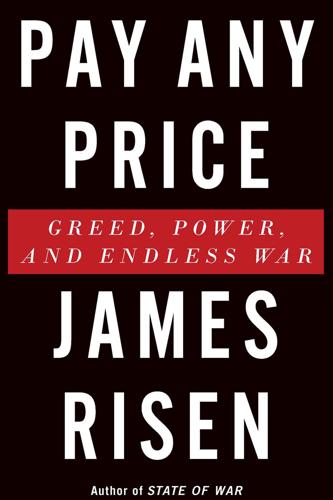
Pay Any Price: Greed, Power, and Endless War
by
James Risen
Published 15 Feb 2014
To put it crassly, the president sought to rebuke his own administration for taking the positions it has—but also to make sure that it could continue to do so.” Similarly, Obama’s January 2014 speech, in which he said he wanted to reform the NSA, appeared designed to placate Americans alarmed by former NSA contractor Edward Snowden’s disclosures of mass surveillance, while actually doing little to limit the NSA’s powers. And Obama’s subsequent proposal to scale back domestic phone data collection was considered little more than a half measure by privacy advocates. Washington’s global war on terror is now in its second decade, thanks to the bipartisan veneer it has gained under Bush and Obama.
…
He claims that he recorded every minute of Al Jazeera’s network broadcast nonstop from February 2004 until the London Olympics in the summer of 2012. “That’s over 8 billion frames.” Today, Dennis Montgomery continues to argue that he is not a fraud, that his technology is genuine, and that he performed highly sensitive and valuable work for the CIA and the Pentagon. After former NSA contractor Edward Snowden leaked documents about the NSA’s domestic surveillance operations in 2013, Montgomery suggested to me that he could provide the documents that would prove not only that he had been telling the truth, but that he had also been used by top U.S. intelligence officials in highly questionable intelligence operations.
…
Secrecy continues to shield the NSA from uncomfortable questions about the growing role of the agency and its contractors in data mining and the burgeoning field of cybersecurity. The only way the American public ever learns what the NSA is doing to them is from whistleblowers, including, most recently, former NSA contractor Edward Snowden, who leaked documents about the rise of the NSA’s massive data-mining operations during the Obama administration. To keep the war on terror going, the government has tried to make sure that whistleblowers are isolated and ostracized. People like Diane Roark. She was perhaps the most courageous whistleblower of the post-9/11 era, and yet her story has never been fully told.
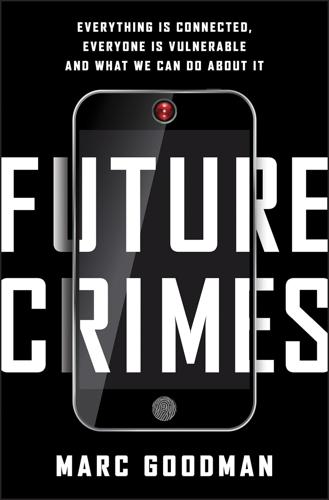
Future Crimes: Everything Is Connected, Everyone Is Vulnerable and What We Can Do About It
by
Marc Goodman
Published 24 Feb 2015
Besides transnational organized crime syndicates, hacktivists—politically motivated cyber attackers—represent one of the most influential and powerful groups in cyberspace. Anonymous, LulzSec, AntiSec, WikiLeaks, and the Syrian Electronic Army fall into this group and launch their attacks in retaliation for perceived injustices. Personalities such as Julian Assange, Chelsea (Bradley) Manning, and Edward Snowden have become household names for challenging some of the world’s most powerful institutions and for releasing data that others would most certainly have preferred remain hidden. While Assange, Manning, and Snowden have been propelled onto the covers of newspapers around the world, other hacktivist groups prefer that their individual members remain discreetly hidden in subordination to the organization itself and its broader agenda.
…
Given that Iran had just bested that attack, one security researcher noted the Islamic Republic’s technical bombardments have graduated from being the equivalent of “a few yapping Chihuahuas into a pack of fire-breathing Godzillas.” Of course, there have also been widespread allegations of hacking by the United States against the rest of the world, based largely on the numerous classified documents stolen and unilaterally released by the former National Security Agency (NSA) contractor Edward Snowden beginning in June 2013. Snowden detailed at great length the global technical surveillance apparatus run by the National Security Agency and provided documentary evidence to support his claims in discussions with the journalists Glenn Greenwald and Laura Poitras. Programs such as PRISM and XKeyscore subsequently came to light, as did the NSA’s purported ability to track billions of e-mails, phone messages, chat sessions, and SMS texts each and every day.
…
Meet the Data Brokers Acxiom, Epsilon, Datalogix, RapLeaf, Reed Elsevier, BlueKai, Spokeo, and Flurry—most of us have never heard of these companies, but together they and others are responsible for a rapidly emerging data surveillance industry that is worth $156 billion a year. While citizens around the world reacted with shock at the size and scope of the NSA surveillance operations revealed by Edward Snowden, it’s important to note that the $156 billion in annual revenue earned by the data broker industry is twice the size of the U.S. government’s intelligence budget. The infrastructure, tools, and techniques employed by these firms rest almost entirely in the private sector, and yet the depth to which they can peer into any citizen’s life would make any intelligence agency jealous with envy.
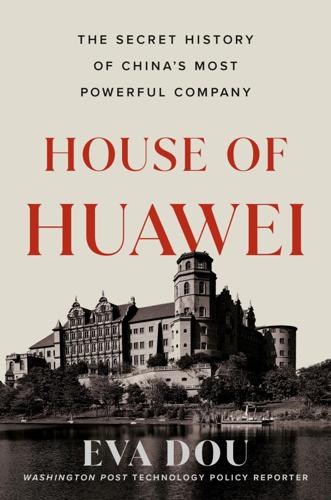
House of Huawei: The Secret History of China's Most Powerful Company
by
Eva Dou
Published 14 Jan 2025
Other Works on State Surveillance and Technological Espionage Permanent Record, by Edward Snowden, explains Snowden’s studies of China’s surveillance capabilities while he was at the NSA and how they led him to investigate what powers the US government had in this regard. The Secret Sentry: The Untold History of the National Security Agency, by Matthew M. Aid, is a deeply researched history of the NSA based largely on US government records released through Freedom of Information Act requests. It includes an account of the 2001 US bombing of Huawei’s fiber-optic network in Iraq. No Place to Hide: Edward Snowden, the NSA, and the U.S. Surveillance State, by Glenn Greenwald, reports explosive details about how the NSA implanted back-door surveillance tools in Cisco routers being sent to overseas customers.
…
But in any case, they are still involved in the market. But we have stopped.” 20 Shotgiant The Snowden Leaks: 2013–2014 In March 2014, The New York Times and German magazine Der Spiegel published startling news. Citing classified documents provided by the NSA contractor turned whistleblower Edward Snowden, they reported that the NSA had infiltrated Huawei years ago through a program code-named “Shotgiant.”[1] American spies had hacked into Huawei’s central email system in 2009 and had been reading the company’s emails ever since—including the communications of Chairwoman Sun and Ren Zhengfei himself, The Times and Der Spiegel reported.
…
“Our customers trust us to be able to deliver to their doorsteps products that meet the highest standards of integrity and security.”[15] After so many years of defending their company against similar allegations, Huawei’s executives couldn’t resist throwing a jab or two. “PRISM, PRISM on the wall, who’s the most trustworthy of them all?” Guo Ping said in a speech at the Mobile World Congress. “If you don’t understand this question, go ask Edward Snowden.”[16] * * * — Ren was now sixty-eight, the gray coming in at his temples, lines etched across his forehead and around the corners of his eyes. For two years now, Huawei had been the world’s largest telecom gear vendor by sales. In 2014, Huawei would book $46.6 billion in revenue—half of Microsoft’s revenue that year but almost four times Facebook’s.
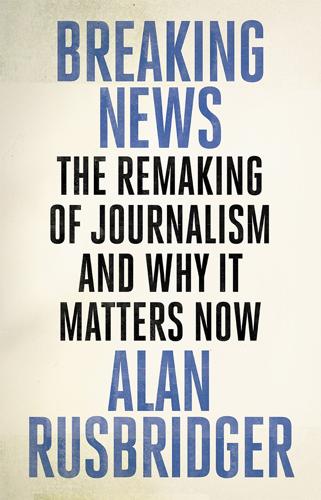
Breaking News: The Remaking of Journalism and Why It Matters Now
by
Alan Rusbridger
Published 14 Oct 2018
He would rather talk to sceptics or trolls than have them filtered out. When I last looked he had nearly a million followers on Twitter and had tweeted 72,000 times.1 He was quite happy – excited, even – to believe that some of his readers knew more than he did. He would learn from them. One certainly did. His name was Edward Snowden.2 And Glenn Greenwald, not ‘a proper reporter’, helped the Guardian win the Pulitzer prize. The second rule breaker was a Dutch journalist who had trained as an anthropologist. At the age of 26, Joris Luyendijk found himself switching careers and becoming a newspaper correspondent in Cairo. After a few years doing what foreign correspondents do – from Lebanon and East Jerusalem after Egypt – he wrote a book, People Like Us,3 which was as much about the failure of journalists adequately to explain the Middle East as it was about the region he had set out to cover.
…
‘If it’s true information, we don’t care where it comes from,’ was Assange’s riposte to what he saw as liberal hand-wringing. ‘Let people fight with the truth, and when the bodies are cleared there will be bullets of truth everywhere.’ To Raffi Khatchadourian of the New Yorker, there was a difference between someone like Chelsea Manning or Edward Snowden and the exploitation of hacking by foreign powers: ‘State-sponsored information warfare is nothing like what activist hackers and whistleblowers do,’ he wrote in an August 2017 article. ‘The latter take personal risks – with their freedom, and their reputation – to release information that matters to them.
…
Almost exactly 250 years earlier, in 1763, John Wilkes1 had been one: hauled in front of MPs to be accused of sedition and treason after publishing issue number 45 of his scabrous newspaper, the North Briton, which had been blisteringly rude about King George III. The Home Affairs committee was notionally looking into counter-terrorism. But today they wanted to know about Edward Snowden, the former National Security Agency (NSA) operative who had given the Guardian and others a very large number of top-secret NSA and GCHQ2 documents showing the extent of the surveillance by states. Such a leak had never happened before. The NSA was so hermetically closed it was known as No Such Agency.
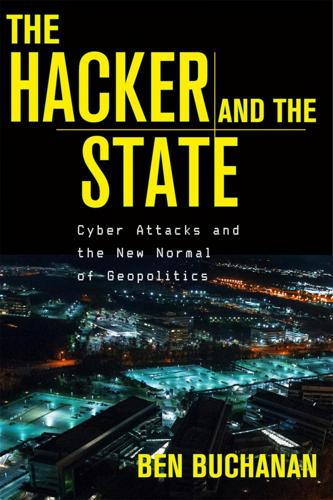
The Hacker and the State: Cyber Attacks and the New Normal of Geopolitics
by
Ben Buchanan
Published 25 Feb 2020
Duncan Campbell, “Revealed: GCHQ’s Beyond Top Secret Middle Eastern Internet Spy Base,” The Register, June 3, 2014. 59. Formally, the NSA refers to DANCINGOASIS as SIGAD US-3171, and the program appears on a chart showing overall collection outcomes. Glenn Greenwald made the chart public when he published No Place to Hide: Edward Snowden, the NSA, and the US Surveillance State (New York: Metropolitan Books, 2014), but the program is not discussed in the book, perhaps due to his agreement with Edward Snowden not to discuss programs related to military activities. Greenwald / MacMillan, “Documents from No Place to Hide,” 79. For analysis, see Peter Koop, “NSA’s Largest Cable Tapping Program: DANCINGOASIS,” Electrospaces, June 7, 2015. 60.
…
President Obama hailed the resolution’s passage as delivering “the toughest sanctions ever faced by the Iranian government.”3 The United States had deployed its espionage capabilities for insights into other countries, then turned those insights into geopolitical advantage. Rice remarked in a file later leaked by Edward Snowden that the NSA’s intelligence effort had “helped me to know when the other [state’s representatives] were telling the truth … revealed their real position on sanctions … gave us an upper hand in negotiations … and provided information on various countries’ ‘red lines.’ ”4 This case reveals an important fact: the United States and its allies have what some in the NSA call a “home-field advantage” when it comes to cyber operations.
…
Since the former take up so much data, it is often best for the agency not to store them at all.22 When looking for a needle in a haystack, the solution is rarely to add more hay. Much of the hard data on passive collection, including that done using transit authority, comes from the documents leaked in 2013 by Edward Snowden, a contractor to the NSA. This means that the evidence of NSA activities is ample but imperfect. On the one hand, some of the leaked documents are likely to overstate NSA capabilities and successes; just as in every organization, employees have incentives to make their programs look good. On the other hand, since most of the leaked files are over five years old, it is likely that NSA capabilities have gotten much better in the intervening years as technology has progressed.
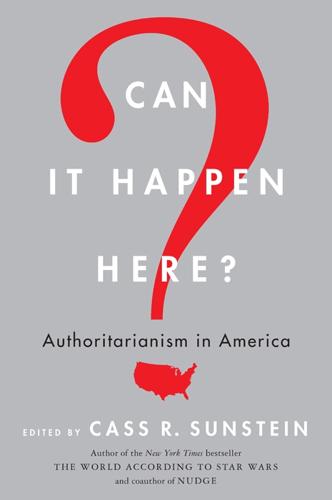
Can It Happen Here?: Authoritarianism in America
by
Cass R. Sunstein
Published 6 Mar 2018
See Barton Gellman, “Edward Snowden, After Months of NSA Revelations, Says His Mission’s Accomplished,” Washington Post, December 23, 2013, at https://www.washingtonpost.com/world/national-security/edward-snowden-after-months-of-nsa-revelations-says-his-missions-accomplished/2013/12/23/49fc36de-6c1c-11e3-a523-fe73f0ff6b8d_story.html?utm_term=.afb795ce3bb1; Amy Davidson Sorkin, “Did Edward Snowden Break His Oath?” New Yorker, January 5, 2014, http://www.newyorker.com/news/amy-davidson/did-edward-snowden-break-his-oath. 35. See, e.g., Glenn Greenwald et al., “Edward Snowden: The Whistleblower Behind the NSA Surveillance Revelations,” The Guardian, June 11, 2013 (“I’m willing to sacrifice all of that because I can’t in good conscience allow the US government to destroy privacy, internet freedom and basic liberties for people around the world with this massive surveillance machine they’re secretly building”); James Bamford, “Edward Snowden: The Untold Story,” Wired, August 2014 (explaining Snowden’s concerns about overbroad US surveillance in China). 36.
…
THE GRAND BARGAIN WAS SUCCESSFUL IN STAMPING OUT THE POLITICAL abuses it aimed to address. In the four decades after the Church Committee, there has been no evidence that presidents and senior executive officials have used the Deep State to attack political enemies or subversive forces in the United States. Ironically, Edward Snowden’s leak in 2013 of information about US signals intelligence practices confirmed the success of the grand bargain. Snowden revealed the massive scope of US signals intelligence collection at home and abroad. He also revealed a new and serious post–Church Committee problem: the rise of secret legal interpretation by executive lawyers and secret courts that can distort the meaning of public laws in ways that allow for intelligence collection against Americans that departs from public expectation.19 But Snowden also showed that the political abuses of the pre-1975 era were gone.
…
We know this is so because American newspaper editors, who carry a heavy presumption in favor of publication, sometimes refuse to publish leaked classified information after weighing the value of publication against possible harms disclosed by the government.29 And then there is the complicated case of Edward Snowden. Snowden worked at the margins of the Deep State. He was technically a contractor, not a bureaucrat, although private-sector growth in the intelligence area has been significant enough to approach Deep State status in terms of what the intelligence contractors do and their distinctive and persistent interests and attitudes.

Fancy Bear Goes Phishing: The Dark History of the Information Age, in Five Extraordinary Hacks
by
Scott J. Shapiro
Even when CrowdStrike had confirmed: “Interview of Shawn Henry,” 26. the Democratic Party: The DNC’s delay was costly. Between May 25 and June 1, Fancy Bear hacked the DNC corporate server and stole thousands of emails: United States of America v. Defendants, 11. basic details: Edward Snowden, Permanent Record (New York: Farrar, Straus and Giroux, 2019). Snowden files: See generally Barton Gellman, Dark Mirrors: Edward Snowden and the American Surveillance State (New York: Penguin Press, 2021). states are permitted: See, e.g., Asaf Lubin, “The Liberty to Spy,” Harvard International Law Journal 61 (2020): 185. Angela Merkel’s cell phone: “German Magazine: NSA Spied on United Nations,” CBS News, August 26, 2013, https://www.cbsnews.com/news/german-magazine-nsa-spied-on-united-nations/.
…
Not only were major agencies of the U.S. government compromised, including the Pentagon, the Department of Justice, and the Treasury Department, but SolarWinds’ global reach meant that NATO, the U.K. government, and the European Parliament were also affected. Even Microsoft was compromised. According to Brad Smith, the president of Microsoft, the SolarWinds hacks were “the largest and most sophisticated attack the world has ever seen.” Foreign governments aren’t the only hackers out there. In 2013, Edward Snowden revealed that the NSA was spying on Americans in multiple undisclosed ways. (I will discuss them in detail later.) But we did not need Snowden to know that states spy on their own citizens. American law is pretty clear that the NSA and the FBI have the right to surveil Americans in a broad range of situations.
…
The simple answer—incompetence—is tempting. It is also wrong. Surprisingly, the actors in this story acted more or less rationally, following the strange upcode that applied to them. To see the strangeness of espionage upcode, consider the Snowden revelations. Most are familiar with the basic details of the story: Edward Snowden, age twenty-nine, computer prodigy, high school dropout, and defense contractor working with the NSA, becomes disillusioned with the system of global surveillance built by the United States and kept secret from the American people. Over the course of six months, he exfiltrates millions of top-secret intelligence files, quits his job, flees to Hong Kong, hides out in a high-end hotel, and turns these documents over to journalists.
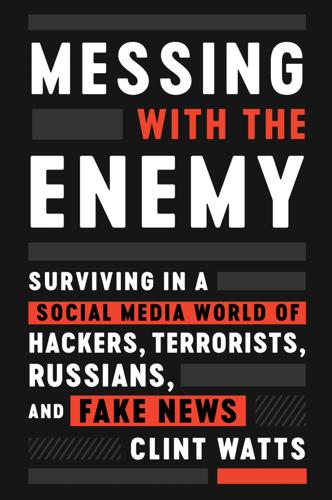
Messing With the Enemy: Surviving in a Social Media World of Hackers, Terrorists, Russians, and Fake News
by
Clint Watts
Published 28 May 2018
The couriers of WikiLeaks secrets, at least for their big public disclosures, arise not from the most corrupt, oppressive regimes in the world, but the most open, for the consequences of these data thefts in the former is death, and in the latter fame. Two Americans, Chelsea Manning (the former Bradley Manning) and Edward Snowden, remain the most famous couriers connected to WikiLeaks. The former fed the outlet; the latter was assisted by it. Their disclosures surfaced in different places, but in spirit they sought the same goal: the transparency and accountability of the U.S. government. Both insiders were young at the time of their insider breaches, in their twenties.
…
Manning began basic training on October 2, 2007, before arriving in Fort Drum, New York. Manning had a difficult time in training, and she found herself sitting in Baghdad by October 2009. In January 2010, only three months after arriving in Iraq, she contacted WikiLeaks. WikiLeaks acted not as an outlet for Edward Snowden, but a shepherd. After Snowden departed for Hong Kong in May 2013, having stolen vast collections of highly sensitive U.S. intelligence, his next move was not to stand trial and be exonerated by the public for his breach, but to seek safe harbor. Snowden needed help, and WikiLeaks stepped in, dispatching Sarah Harrison, of WikiLeaks’ legal defense team, to Hong Kong, where she then traveled alongside Snowden as he made his way to Moscow.
…
The Russian president’s best friend—a cellist called Sergei Roldugin—is at the centre of a scheme in which money from Russian state banks is hidden offshore.”31 Deeper analysis of the records suggests that the law firm represented one step in a shell game of financial maneuvers and false deals by which money moved out of Russia and then back into the hands of Putin’s close friends and family—money and transactions that never bore Putin’s name.32 The Panama Papers shared one thing with the disclosures of Edward Snowden: the organization whose information was stolen wasn’t breaking the law. Mossack Fonseca provided fully legal services. The ICIJ followed up in 2017 with another bombshell, the Paradise Papers. This time, 13.4 million documents focused on the Bermudan law firm Appleby. Again ICIJ received documents and then siphoned them to “more than 380 journalists from over 90 media organizations in 67 countries,” who spent months analyzing the documents before release.33 The Paradise Papers showed how Appleby had helped “clients reduce their tax burden; obscure their ownership of assets like companies, private aircraft, real estate and yachts; and set up huge offshore trusts that in some cases hold billions of dollars.”
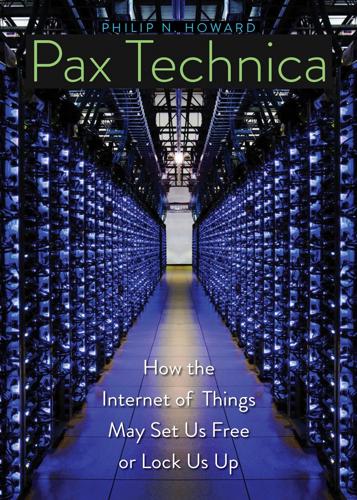
Pax Technica: How the Internet of Things May Set Us Free or Lock Us Up
by
Philip N. Howard
Published 27 Apr 2015
On the whole, democratically elected governments are comparatively open technical systems, and authoritarian regimes are relatively closed technical systems. Indeed, a spectrum of regimes from “open” to “closed” may capture more of the important nuances in what makes a contemporary government than a spectrum that gauges levels of “democracy” and “authoritarianism.” The surveillance scandals triggered by Edward Snowden and Chelsea Manning and the censorship tactics exposed by the OpenNet Initiative complicate many governments’ claims to being democratic. Thinking in terms of democracy and authoritarianism does not make sense in a world where authoritarian governments use digital media to measure and respond to public opinion in positive ways.
…
Yet people migrated to other hashtags, making for a dynamic flow of content that was propelled by an eagerness to help one another.17 The story here is not that people tweeted and saved the world—the story is about altruism and survival strategies. Will the internet of things be a conduit for altruism? The Internet Is Also a Surveillance State While social media has helped communities connect during a crisis, it also provides big governments with a powerful surveillance tool. Edward Snowden gave us two lessons about how information technologies are used in the name of national security. The first is that the intelligence services don’t have a magic decryption key that unlocks everybody’s secrets. They have the political, economic, and social ties, or at least leverage, to get secrets out of the businesses that own and operate the infrastructure.
…
The government of the Philippines has tried to engage with the group by making concessions and involving it in national cyberstrategy.18 Internet pundits have added to the chaos of international politics. Julian Assange’s online WikiLeaks project exposed diplomatic correspondence and upset many delicately balanced relationships among states and between power brokers. Both Assange and Edward Snowden decided that democracies were the least likely to provide them with just treatment as whistle blowers. The Russians gave Assange an online talk show and have sheltered Snowden. Moreover, many kinds of authoritarian regimes like Russia now employ their own social media gurus to engage with the public.
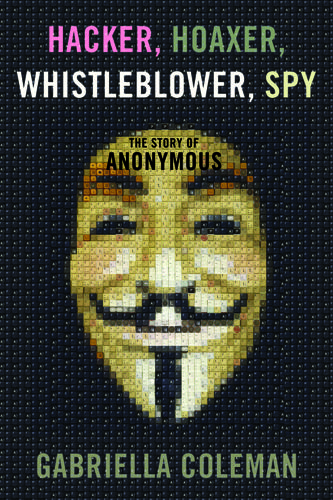
Hacker, Hoaxer, Whistleblower, Spy: The Story of Anonymous
by
Gabriella Coleman
Published 4 Nov 2014
Obama and the Senate need to pass it,” theguardian.com, June 20, 2014. 20. Glenn Greenwald, No Place to Hide: Edward Snowden, the NSA, and the U.S. Surveillance State (New York: Metropolitan Books, 2014). 21. “Cyber security in the post-Snowden era,” panel at 2014 Ottawa Conference on Defence and Security. Video available at http://www.cpac.ca/en/programs/public-record/episodes/31366144. (Last accessed July 2, 2014.) 22. See the website of Reset the Net at resetthenet.org. 23. Quoted in Derek Mead, “‘The Bottom Line Is That Encryption Does Work’: Edward Snowden at SXSW,” motherboard.vice.com, March 10, 2014. 24. “On the FBI Raid,” March 7, 2012, last accessed July 8, 2014, http://pastebin.com/vZEteA3C. 25.
…
It was not as if the “nihilists, anarchists, activists, Lulzsec, Anonymous, twentysomethings who haven’t talked to the opposite sex in five or six years,” the description of hackers provided by Michael Haydn, the ex-director of the CIA and NSA, in reference to those who would come to support Edward Snowden.1 What did come to mind was a pale waif whose wealthy parents thoughtlessly shipped him off at a tender age to boarding school. As it turns out, once he was eighteen, tflow was revealed to be Mustafa Al Bassam, and pictures confirmed that he was not pasty white. He moved to London from Iraq with his family when he was six years old, fleeing Saddam Hussein.
…
They hacked the federal contractor ManTech International, publishing over four hundred megabytes of content that detailed ManTech’s dealings with NATO and the US Army (plus all its employees’ emails). They struck at the mega-security contractor Booz Allen Hamilton; while they were unable to obtain actual documents—though one of Booz Allen Hamilton’s employees at the time, Edward Snowden, eventually would—they managed to download ninety thousand military emails from the company’s site, which they threw up on The Pirate Bay with a long analysis noting “key facts” about the company, such as its funding breakdown. Things had taken a very serious turn. During this surge of activity, arrests became more commonplace.
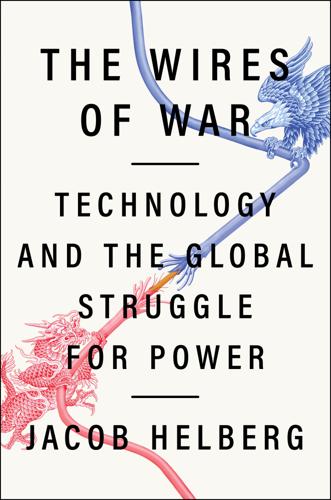
The Wires of War: Technology and the Global Struggle for Power
by
Jacob Helberg
Published 11 Oct 2021
Green, “This Day in Jewish History, 1998: Two Computer Scientists Who Disagreed on Everything Found Google,” Haaretz, September 4, 2015, https://www.haaretz.com/jewish/2-computer-scientists-found-google-1.5394903. 17 “Technology and National Security: Maintaining America’s Edge.” 18 “(U) Review of the Unauthorized Disclosures of Former National Security Agency Contractor Edward Snowden,” U.S. House of Representatives, September 15, 2016, https://fas.org/irp/congress/2016_rpt/hpsci-snowden.pdf. 19 Heather Kelly, “Protests against the NSA spring up across U.S.,” CNN, July 5, 2013, https://www.cnn.com/2013/07/04/tech/web/restore-nsa-protests/. 20 James Gordon Meek, Luis Martinez, and Alexander Mallin, “Intel Heads: Edward Snowden Did ‘Profound Damage’ to U.S. Security,” ABC News, January 29, 2014, https://abcnews.go.com/Blotter/intel-heads-edward-snowden-profound-damage-us-security/story?id=22285388. 21 John R.
…
Some critics argue that the United States treats our telecommunications systems little differently than authoritarian regimes. After all, didn’t the FBI spy on civil rights leaders like Martin Luther King Jr.? Didn’t the post-9/11 USA PATRIOT Act authorize sweeping surveillance? The blockbuster leaks by intelligence contractor Edward Snowden, whose 1.5 million stolen files documented U.S. penetration of the world’s networks, further convinced many that America has become a de facto Big Brother state. There’s no question that at times the U.S. government has clearly overstepped or abused its authority. Yet the very fact that we are aware of and frequently outraged by surveillance abuses sets democracies like the United States apart from our autocratic rivals.
…
But even then, many technologists seemed to appreciate the generally beneficial role Washington played. * * * The love affair began to fray in 2013, after a bespectacled National Security Agency contractor stole an estimated 1.5 million highly sensitive documents detailing the scope of the intelligence community’s surveillance capabilities and began leaking them to the media.18 Edward Snowden’s revelations shined a harsh global spotlight on an organization so secretive that it was long joked that NSA stood for “No Such Agency.” For weeks, articles appeared in the Guardian and the Washington Post detailing the U.S. government’s staggering data collection abilities. One program, code-named PRISM, allowed NSA analysts to collect and search supposedly encrypted communications traveling across the back-end of the Internet—including data centers owned by Google and Verizon.
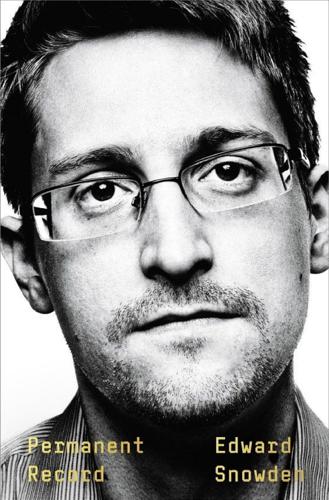
Permanent Record
by
Edward Snowden
Published 16 Sep 2019
Love and Exile Notes Acknowledgments About the Author Copyright First published 2019 by Metropolitan Books, Henry Holt and Company, LLC First published in the UK 2019 by Macmillan This electronic edition first published in the UK 2019 by Macmillan an imprint of Pan Macmillan 20 New Wharf Road, London N1 9RR Associated companies throughout the world www.panmacmillan.com ISBN 978-1-5290-3567-4 Copyright © Edward Snowden 2019. Jacket design by Rodrigo Corral Jacket photograph © Platon The right of Edward Snowden to be identified as the author of this work has been asserted by him in accordance with the Copyright, Designs and Patents Act 1988. You may not copy, store, distribute, transmit, reproduce or otherwise make available this publication (or any part of it) in any form, or by any means (electronic, digital, optical, mechanical, photocopying, recording or otherwise), without the prior written permission of the publisher.
…
All of these devices—wrapped, clamped, cuffed, and belted tightly around me—were connected to the large black polygraph machine placed on the table in front of me. Behind the table, in a nicer chair, sat the polygrapher. She reminded me of a teacher I once had—and I spent much of the test trying to remember the teacher’s name, or trying not to. She, the polygrapher, began asking questions. The first ones were no-brainers: Was my name Edward Snowden? Was 6/21/83 my date of birth? Then: Had I ever committed a serious crime? Had I ever had a problem with gambling? Had I ever had a problem with alcohol or taken illegal drugs? Had I ever been an agent of a foreign power? Had I ever advocated the violent overthrow of the United States government?
…
Meanwhile, the dozen coworkers sitting to your left and right—the same coworkers you work with on the same projects daily—might technically be employed by a dozen different companies, and those companies might still be a few degrees removed from the corporate entities that hold the primary contracts with the agency. I wish I remembered the exact chronology of my contracting, but I don’t have a copy of my résumé anymore—that file, Edward_Snowden_Resume.doc, is locked up in the Documents folder of one of my old home computers, since seized by the FBI. I do recall, however, that my first major contracting gig was actually a subcontracting gig: the CIA had hired BAE Systems, which had hired COMSO, which hired me. BAE Systems is a midsize American subdivision of British Aerospace, set up expressly to win contracts from the American IC.
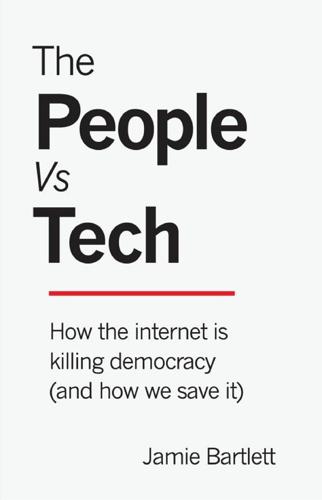
The People vs Tech: How the Internet Is Killing Democracy (And How We Save It)
by
Jamie Bartlett
Published 4 Apr 2018
However, most journalists, imperfect though they are, do have a commitment to ‘the best available version of the truth’ and to holding the powerful to account. The industry’s decline is desperately worrying because almost every story that uncovers shadowy influences in our politics – lobbying, manipulation, corruption – is the result of painstaking, expensive journalism: the Pentagon Papers, the Edward Snowden leaks, the Paradise Papers or even the Observer’s recent investigations into the role played by data analytics firms during the EU referendum. Traditional media is not dead just yet – and journalists have an important job of building public trust in their work too, which has also been in sharp decline over the past several years.
…
I was a little late, and the place was already teeming with scores of men in their twenties and thirties speaking in the mid-Atlantic English that almost every hacker, crypto-enthusiast and bitcoiner seems to possess. A 3D printer whirred in the background, and bitcoin t-shirts and posters of Edward Snowden were available for sale. Within a cable’s reach of every plug socket, eyes stared at lines and lines of the incomprehensible language of computers: Java, Ruby, C++. As I wandered about looking for somewhere to charge up my devices, I spotted ‘The Crypto-Anarchist Manifesto’ printed out and pinned to the wall: A specter is haunting the modern world, the specter of crypto anarchy.
…
At the institute’s cafe the staff were paid in bitcoin; rent collected for their co-working space was paid in bitcoin, too. I was given a little plastic card with a QR code, and transferred bitcoin on to it using one of three yellow ATM machines. From that point on, every time I wanted anything I just scanned the QR code. A coffee. Ping! A Red Bull. Ping! Some goulash. Ping! A postcard of Edward Snowden. Ping! I didn’t use my koruna once.* Bitcoin is more than just money, though: it’s a new way of handling information. Bear with me on this short-but-important technical detour. Every time someone sends a bitcoin payment to a recipient, a record of the transaction is stored in something called the blockchain, a huge database of every bitcoin transaction ever made.

Doing Time Like a Spy
by
John Kiriakou
Published 11 May 2017
But what I will say is this: if you ever fuck with me or mention my name to anybody, in any context, you won’t live to see the next day.” Still smiling, I walked away. Raviv collapsed in a chair, trembling. He never spoke another word about me or about the Italians, until, of course, the run-in with Truck, when he didn’t realize I was nearby. An Open Letter to Edward Snowden I had only been in prison a few months when Edward Snowden revealed to the world evidence that the National Security Agency had violated US law and its own charter by collecting telephone metadata and emails from American citizens. I thought this was an outrageous affront to American civil liberties, and I followed the case closely.
…
Not all of them were prosecuted and not all were whistleblowers, however, their contributions toward whistleblowing are significant enough to be included in the group: Philip Agee, Daniel Ellsberg, Julian Assange, Jeremy Hammond, Thomas Drake, John Kiriakou, Jeffrey Sterling, Aaron Swartz, Chelsea Manning, Edward Snowden. johndinglerart.com (Philip Agee served as a role model for other whistleblowers; Jeremy Hammond and Aaron Swartz were facilitators.) 10 9 8 7 6 5 4 3 2 1 Publisher’s Cataloging-in-Publication data Names: Kiriakou, John, author. Title: Doing time like a spy : how the CIA taught me how to survive and thrive in prison / John Kiriakou.
…
If spying on foreign leaders helps us to formulate our own policy or to get a leg up in trade negotiations, then great. But overall, Snowden revealed government illegality on a massive scale. There was even more to think about in the immediate aftermath of the Snowden disclosures. The most important thing was “what would happen to Edward Snowden?” I knew from my own experience that the government would seek to try Snowden in the Eastern District of Virginia (EDVA), the so-called Espionage Court. This is despite the fact that Snowden was living and working in Hawaii at the time of his disclosures and NSA is located in rural Maryland, not in the Eastern District of Virginia.

Pandora's Box: How Guts, Guile, and Greed Upended TV
by
Peter Biskind
Published 6 Nov 2023
The Homeland folks asked: Mikey O’Connell, “Homeland Declassified: Battles, Backlash, CIA Meetings and a Secret Call with Edward Snowden,” Hollywood Reporter, January 16, 2020, https://www.hollywoodreporter.com/movies/movie-features/homeland-declassified-battles-backlash-cia-meetings-a-secret-call-edward-snowden-1269957. 43. “The first thing we got was a litany”: Alex Gansa, in discussion with the author, August 11, 2022. 44. “We had [Bush’s CIA head]”: Ibid. 45. “‘There’s a senior intelligence officer here”: Mikey O’Connell, “Homeland Declassified: Battles, Backlash, CIA Meetings and a Secret Call with Edward Snowden,” Hollywood Reporter, January 16, 2020, https://www.hollywoodreporter.com/movies/movie-features/homeland-declassified-battles-backlash-cia-meetings-a-secret-call-edward-snowden-1269957. 46.
…
“white-trash porn”: John Hendel, “Showtime’s Shameless New Show About Poverty,” Atlantic, January 8, 2011, https://www.theatlantic.com/entertainment/archive/2011/01/showtimes-shameless-new-show-about-poverty/69108. 34. “I have your next show”: Mikey O’Connell, “Homeland Declassified: Battles, Backlash, CIA Meetings and a Secret Call with Edward Snowden,” Hollywood Reporter, January 16, 2020, https://www.hollywoodreporter.com/movies/movie-features/homeland-declassified-battles-backlash-cia-meetings-a-secret-call-edward-snowden-1269957. 35. “We just felt that our chances”: Lacey Rose, “The Re-Birth of Showtime,” Hollywood Reporter, March 27, 2012, https://www.hollywoodreporter.com/tv/tv-news/birth-showtime-304910. 36. “It used to be”: Quentin Schaffer, in discussion with the author, October 28, 2019. 37.
…
Once Trump was elected president, those two camps were suddenly on the same side.”44 In one such meeting, at the exclusive City Tavern Club in Georgetown, another Pulitzer-winning journalist, Bart Gellman, said he was bringing a guest. He opened his laptop, dialed a number, and there on the screen was Edward Snowden, hitherto on the run, chattering away from Moscow. Former deputy director of the CIA’s clandestine division, John McGaffin, who had no love for Snowden, prompted Gansa to say, “‘There’s a senior intelligence officer here, and he thinks he knows what’s going to happen to you.’ Snowden is all, ‘What do you mean?’”
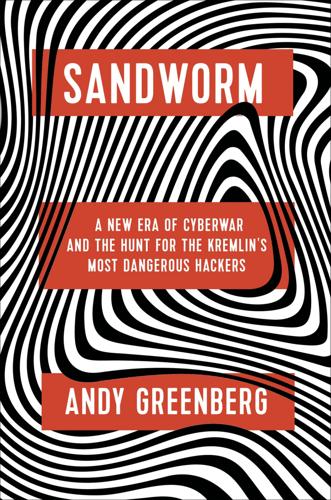
Sandworm: A New Era of Cyberwar and the Hunt for the Kremlin's Most Dangerous Hackers
by
Andy Greenberg
Published 5 Nov 2019
Army base in the west of the country whose role as an intelligence operation was at the time secret and would only later be revealed in the classified documents leaked by the NSA whistle-blower Edward Snowden. 9 THE DELEGATION Rob Lee describes starting his job at the NSA as something like connecting his brain to a vast, ultra-intelligent hive mind. Suddenly he had access to not only expert colleagues but the agency’s corpus of classified knowledge, as well as its vast intelligence collection abilities. Lee, of course, says little about the details of where that intelligence came from. But thanks in part to Edward Snowden, we know that it included a broad array of secret data-gathering tools, labeled broadly as “signals intelligence,” or “sigint,” that ranged from the ability to siphon vast quantities of raw internet data from undersea cables to hacking enemy systems administrators and looking over their shoulders at private networks.
…
The original Guccifer had been a Romanian amateur hacker named Marcel Lehel Lazăr who had broken into the email accounts of high-profile figures like Colin Powell, the Rockefeller family, and the sister of former president George W. Bush. Guccifer 2.0 took on the persona of a cocky eastern European cyberpunk who idolized figures like the original Guccifer, Edward Snowden, and Julian Assange. “Personally I think that I’m among the best hackers in the world,” he would write in a FAQ. When CrowdStrike maintained that Guccifer 2.0 was a thin disguise meant to obscure the Russian state hackers behind the DNC intrusion, Guccifer 2.0 shot back with vague denials.
…
Experts largely agreed the profit motive was likely a cover story, that the Shadow Brokers were probably state-sponsored hackers, not cybercriminals, and they were seeking above all to embarrass the NSA. Jake Williams, for his part, immediately suspected Russia. “There’s only one government capable of doing this,” he said flatly. Another, less expected former NSA figure offered a similar suggestion. Edward Snowden, the NSA whistle-blower who’d leaked a top secret trove of the agency’s documents three years earlier, posted a series of messages on Twitter outlining a larger theory. He guessed that the Shadow Brokers were indeed Russian, that they’d stolen the NSA tools from a “staging server” used as a kind of field outpost for the agency’s hacking operations, and that the thieves’ primary motive was to shame the NSA and broadcast a specific message: We know what you’re up to.
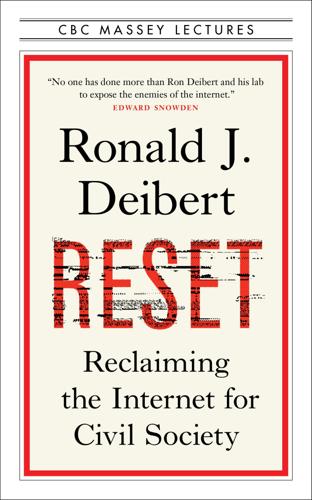
Reset
by
Ronald J. Deibert
Published 14 Aug 2020
To be sure, it won’t be easy, nor will it happen overnight. But fatalistic resignation to the status quo is no real alternative either. One the market for our minds It’s late 2013. Blockbuster reports of state surveillance are dominating the news cycle, courtesy of former National Security Agency contractor and whistleblower Edward Snowden. I settle into a lounge in Toronto’s Pearson International Airport and boot up my laptop. I click the “I accept” button for the Wi-Fi agreement and connect with a VPN (virtual private network) to Citizen Lab servers, effectively wrapping my internet connection in an encrypted tunnel. Reflexively, I pause to consider whether I’ve made any minor errors in my digital security routine that would inadvertently expose my sensitive communications.
…
he asks after an extended silence. “Yeah …” I respond, now with trepidation. “I’ll tell you what. Given that I’m sitting right in one of those very airport lounges as we speak, how about we pick up this conversation another time, in person?” * * * Admire him or not, almost everyone would agree that Edward Snowden is a thoughtful person, and he deliberated carefully over what to do with the enormous cache of top secret materials he had purloined from the U.S. government. Rather than publish them wholesale on the internet via WikiLeaks or another dump site, he chose to hand them over to a few select journalists for vetting.
…
Retrieved from https://theintercept.com/2019/08/21/climate-debate-dnc/ Chapter One: The Market for Our Minds Initial coverage of the PRISM program: Greenwald, G., & MacAskill, E. (2013, June 7). NSA Prism program taps in to user data of Apple, Google and others. Retrieved from https://www.theguardian.com/world/2013/jun/06/us-tech-giants-nsa-data; Gellman, B. (2020). Dark mirror: Edward Snowden and the American surveillance state. Penguin. A top secret program called Dishfire: Poltras, L. V., Rosenbach M., & Stark, H. (2013, September 15). NSA monitors financial world. Retrieved from https://www.spiegel.de/international/world/how-the-nsa-spies-on-international-bank-transactions-a-922430.html A program code-named HAPPYFOOT: Soltani, A., Peterson, A., & Gellman, B. (2013, December 11).
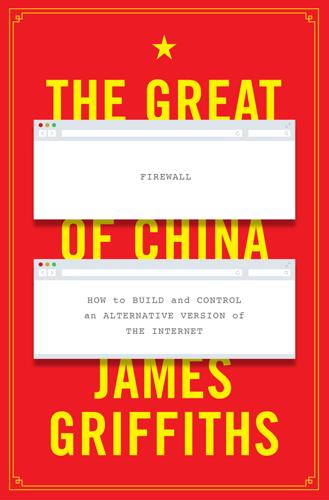
The Great Firewall of China
by
James Griffiths;
Published 15 Jan 2018
Walt, ‘With Telegram, a reclusive social media star rises again’, Fortune, 23 February 2016, http://fortune.com/telegram-pavel-durov-mobile-world-congress/ 38‘FAQ’, Telegram, https://telegram.org/faq#q-do-you-process-data-requests 39G. Greenwald, No Place to Hide: Edward Snowden, the NSA, and the US surveillance state, New York NY: Henry Holt and Company, 2014, p. 7. 40R. McCormick, ‘Edward Snowden’s favorite encrypted chat app is now on Android’, The Verge, 3 November 2015, https://www.theverge.com/2015/11/3/9662724/signal-encrypted-chat-app-android-edward-snowden 41R. Kilpatrick, ‘China blocks Telegram messenger, blamed for aiding human rights lawyers’, Hong Kong Free Press, 13 July 2015, https://www.hongkongfp.com/2015/07/13/china-blocks-telegram-messenger-blamed-for-aiding-human-rights-lawyers/ 42CNN Library, ‘Paris attacks fast facts’, CNN, 8 December 2015, https://edition.cnn.com/2015/12/08/europe/2015-paris-terror-attacks-fast-facts/index.html; S.
…
The indictment of Unit 61398 was a major shot across the bows of China’s cyberespionage operation, and the fact that Washington would risk relations with its most important trading partner demonstrated the severity of harm being experienced by US companies. The US, of course, had long hacked other countries. Within months of Mandiant’s first report on Unit 61398, former National Security Agency contractor, Edward Snowden, flew to Hong Kong, from where he began making dramatic revelations about the extent of US government surveillance and spying. The US had also allegedly built and deployed – along with Israeli intelligence – the Stuxnet virus, a carefully designed cyber-weapon that wreaked havoc on Iran’s nuclear energy programme.
…
Like Durov himself, the app was protean, registered as a company in multiple countries to avoid regulations.37 On Telegram, user data is spread across servers around the world, making it harder to subpoena, and chats can be set to self-destruct after a certain amount of time.38 Its logo was a white paper plane, flying through the air. The launch of the app was well timed, coming on the back of not only an uptick in censorship in Russia, but also the revelations, courtesy of Edward Snowden, of the breadth and scale of US spying overseas. Telegram gave users a way (at least in theory) to avoid NSA and FSB snooping, and to communicate securely and secretly. It’s difficult to recall, post-Snowden, how rare encryption once was, even among some in the cybersecurity community. Glenn Greenwald, who helped break the NSA spying story, almost missed out on it due to his lack of a secure email account and initial unwillingness to use the clunky PGP encryption method to communicate with Snowden.39 Telegram, along with a similar app, Signal, which was endorsed by Snowden himself, helped make encrypted communications easy and straightforward.40 Increased competition from these apps in turn forced larger tech companies to adopt similar security protocols, with Facebook-owned WhatsApp and Microsoft-owned Skype both adopting end-to-end encryption for fear of losing market share.
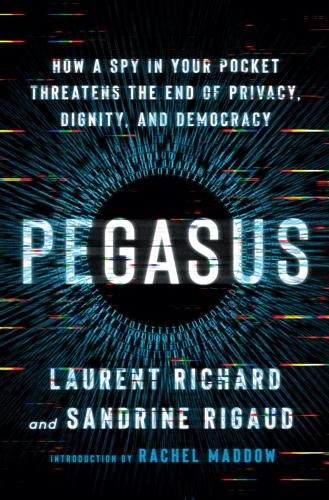
Pegasus: How a Spy in Your Pocket Threatens the End of Privacy, Dignity, and Democracy
by
Laurent Richard
and
Sandrine Rigaud
Published 17 Jan 2023
We were already in the middle of our third major investigation. I was still scanning the room as Sandrine talked, and I was having some doubts. We were a new organization, young in every way. The average age of our core reporting team was about twenty-five. This new investigation we were contemplating had the potential to blow up into a Wikileaks- or an Edward Snowden–sized revelation, much bigger and more sensitive than anything Forbidden Stories had ever tackled—with added layers of danger. NSO would fight us every step of the way. The company had enormous financial resources, as well as the protection of powerful military and intelligence officials in the Israeli government.
…
When he arrived in Berlin as a twenty-one-year-old college student to begin a three-month chemistry research project, Donncha found himself in a promised land of hackers and computer security geeks, complete with its own Moses. “In the year since goateed ex-National Security Agency contractor Edward Snowden catapulted to fame, he has been portrayed in street art, installations, pop songs and performances,” the Wall Street Journal reported/lamented, “not to mention stickers, posters and fridge magnets. In Germany in particular revelations of the NSA’s eavesdropping activities have tapped into the deep-seated aversion to an omniscient, all-powerful state—giving birth to a Snowden cult among creative types here.”
…
In Germany in particular revelations of the NSA’s eavesdropping activities have tapped into the deep-seated aversion to an omniscient, all-powerful state—giving birth to a Snowden cult among creative types here.” Two weeks in Berlin and Donncha knew thirty different cybergeeks locked in battle against the rising tide of cybersurveillance. Donncha ended up back in Berlin after graduation, in the summer of 2015, a few weeks after the unveiling in Alexanderplatz of the life-size bronze statues of Edward Snowden, Julian Assange, and Chelsea Manning, the US whistleblower who had released hundreds of thousands of documents to Wikileaks, a number of them classified or sensitive, and a lot more of them simply embarrassing. Donncha was in Berlin for a Summer of Privacy internship at Tor, a nonprofit cybersecurity venture.
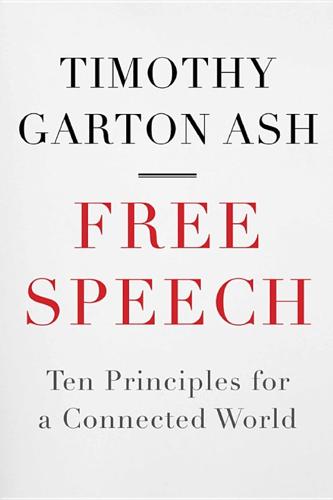
Free Speech: Ten Principles for a Connected World
by
Timothy Garton Ash
Published 23 May 2016
As its power grows, China is promoting a global norm of national, territorial control over the internet—and all other means of communication—effected both by domestic measures and through international organisations such as the International Telecommunication Union. (I say more about this under principle 9.) China’s Westphalian-Huntingtonian insistence on ‘information sovereignty’ resonates with many postcolonial countries, as well as postimperial ones such as Russia, especially following Edward Snowden’s revelations about the degree of US surveillance of international electronic traffic. Graciously visiting a Snowden-shaken Brazil in 2014, president Xi Jinping inaugurated a Portuguese-language version of the Baidu search engine and smiled on Brazilian partnership agreements signed by Huawei and Alibaba.
…
It is run and exploited by companies and, to a varying but always significant degree, controlled and accessed by governments. Each of those two forms of power, private and public, constitutes a threat to privacy; the combination of the two, P2, is the biggest threat of all. This is the lesson that people rightly drew from Edward Snowden’s revelations that US and British authorities had both legally compelled telecommunications and internet companies to share data with them and illegally tapped into their cables. (More on this in the next chapter.) ARE YOU EVER ALONE? ‘Surveillance is the business model of the internet’, says security expert Bruce Schneier.
…
But maybe the combined secret power of the state and companies, P2, is sometimes such that you need these extraordinary measures to combat it? It was not just hacktivists who covered their faces with the stylised Guy Fawkes mask of Anonymous, inspired by the film ‘V for Vendetta’, when they joined real-life protests at what they saw as the abuse of anonymous state and corporate power revealed by Julian Assange and Edward Snowden.144 After all, police or secret services would photograph you as you marched, and enter your digital image ineradicably into a searchable database. Perhaps it takes anonymous to restrain the power of anonymous? 8 SECRECY ‘We must be empowered to challenge all limits to freedom of information justified on such grounds as national security’.
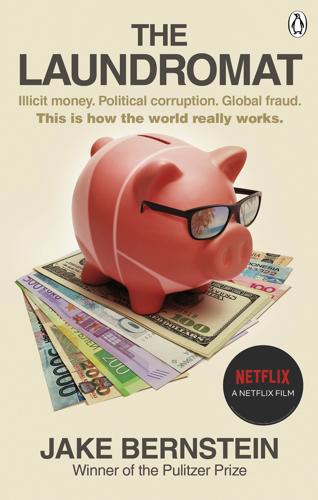
The Laundromat : Inside the Panama Papers, Illicit Money Networks, and the Global Elite
by
Jake Bernstein
Published 14 Oct 2019
David Ford to author, August 2017. 43 even surfaced in a Swiss newspaper: François Pilet and Marie Maurisse, “David Ford, L’homme de Washington,” L’Hebdo, February 12, 2015, https://francoispilet.net/david-ford-lhomme-de-washington/. 44 Somewhere in Geneva was a covert CIA listening post: Glenn Greenwald, Ewen MacAskill, and Laura Poitras, “Edward Snowden: The Whistleblower Behind the NSA Surveillance Revelations,” Guardian, June 11, 2013, https://www.theguardian.com/world/2013/jun/09/edward-snowden-nsa-whistleblower-surveillance. 45 By the end of 1953, they had devised a plan: Riggs Docs from CIA Reading Room—Secret Security Information, declassified, CIA Reading Room. 46 The island’s ruler, France-Albert René: “President Steps Down After 27 Years,” Los Angeles Times, April 15, 2004, http://articles.latimes.com/2004/apr/15/world/fg-briefs15.6. 47 fished the body of a Mafia soldier out of the swamps: The Association for Diplomatic Studies and Training Foreign Affairs Oral History Project, Ambassador David J.
…
Many of Ford’s colleagues believed he was back-channeling information on Republic and HSBC’s customers to U.S. intelligence, although Ford denies the allegation.42 The rumor even surfaced in a Swiss newspaper.43 The CIA refuses to provide documents on Edmond Safra because the information is classified. Nonetheless, if the CIA was involved with HSBC somehow, it would not come as a surprise. Both the CIA and the KGB were early purveyors of the secrecy afforded by Swiss banks and tax havens. Somewhere in Geneva was a covert CIA listening post where a young Edward Snowden once worked as a National Security Agency contractor.44 Snowden told the Guardian how CIA operatives worked to compromise Swiss bankers to gain information. As with Fonseca’s experience in Geneva, Snowden’s time in Switzerland left him disillusioned. It was during his stint in Geneva that he first thought about exposing government secrets, Snowden said.
…
He felt the weight of responsibility, not only to his Icelandic colleagues but to all the partners in ICIJ with whom he had worked so hard for the past nine months. In Munich, Süddeutsche Zeitung had created a special microwebsite specifically for the project. It managed to jump the embargo by fifteen minutes to publish early. A few minutes later, at 1:49 p.m. EDT, Edward Snowden somehow found this microsite and linked to it on Twitter. Snowden’s tweet to his millions of followers declared, “Biggest leak in the history of data journalism just went live, and it’s about corruption.”9 In London, the staff of the Guardian howled. Intentionally or not, the Germans had their revenge for Offshore Leaks.

Artificial Whiteness
by
Yarden Katz
Bottom, number of mentions in the New York Times and Wall Street Journal, used as proxies for U.S. mainstream media and business media. Note logarithmic y-axis scale. Source: Factiva. With the understanding that AI is a malleable technology of power, it is important to explore the political context around its dramatic rise. A DIVERSION FROM MASS SURVEILLANCE In July 2013 Edward Snowden made public what would become known as the “Snowden revelations”: detailed documentation about the systems of global mass surveillance operated by the National Security Agency (NSA). The general outline of the systems described in these documents was not news to journalists who have covered the American national security state.
…
A Washington Post article in 2019 lamented the Pentagon’s recent difficulties in recruiting engineers to work on AI, which is considered “essential for U.S. security.” But happily, the author adds, “the Pentagon, after some false starts, is launching a creative effort to win the trust of suspicious software engineers who grew up in the shadow of Edward Snowden’s revelations.”10 But AI’s reappearance did more than temporarily divert attention from a public confrontation with mass surveillance. As we will see, the major platform companies employed the term as fresh gloss for their usual political agenda. REBRANDING AI TO ADVANCE GOVERNANCE BY THE NUMBERS Corporations played a major role in staging AI’s reappearance.
…
The Guardian reported that Silicon Valley billionaires are “prepping for the apocalypse” by buying secure hideouts in New Zealand, the “apocalypse” being a situation of “systematic collapse” that may include nuclear war or “rampaging AI.”22 Similarly, Silicon Valley mogul Elon Musk has stated to considerable fanfare that current work on AI is “summoning the demon” and that AI is “our biggest existential threat.”23 These narratives are testament to the unstated consensus among experts that AI possesses transformative powers; this is why fantastical commentaries can pass without even referencing specific instantiations of AI or its history. And even the most critical observers of the major platform companies have been swept up by the propaganda about AI’s superhuman capacities. Glenn Greenwald, a journalist who played a key role in reporting on Edward Snowden’s disclosures, claimed that every time we use Google search, we feed the company’s “real business”—which, “unseen to us,” is actually “to analyze how the human brain functions, so that it can replace and then improve upon brain functioning in order to create artificial intelligence that’s more potent than the human brain.”24 Mainstream commentary does sometimes contain caveats about AI’s superhuman potential, but they are modest.

The View From Flyover Country: Dispatches From the Forgotten America
by
Sarah Kendzior
Published 24 Apr 2015
The Senate debate over who is a “journalist” arose in the aftermath of WikiLeaks, whose activity has been defined as both journalism and espionage. Expanding the definition of a journalist means expanding the legal protection journalists receive. “I can’t support it if everyone who has a blog has a special privilege … or if Edward Snowden were to sit down and write this stuff, he would have a privilege. I’m not going to go there,” said Senator Dianne Feinstein, in a statement political commentator Matt Drudge denounced as “fascist.” The debate over who is a journalist is a debate over journalistic privilege. But in a prestige economy, the privilege to protect the confidentiality of sources is not the only privilege at play.
…
The strongest argument against the status quo is the status quo itself. —Originally published March 20, 2014 Snowden and the Paranoid State “Paranoids are not paranoid because they’re paranoid,” Thomas Pynchon wrote in Gravity’s Rainbow, “but because they keep putting themselves, fucking idiots, deliberately into paranoid situations.” On June 23, 2013, Edward Snowden left China, a repressive state with a vast surveillance system, to fly to Russia, a repressive state with an even vaster surveillance system, in order to escape America, where he had worked for a surveillance system so vast he claims it gave him “the power to change people’s fates.” In proclaiming his ability to change the fates of others, Snowden lost control of his own.
…
Our privacy settings, literally and figuratively, need to stop shifting. Our privacy expectations need to stop being dictated by those who read our mail. Until then, paranoia will rule. “Power is impenetrable,” wrote Elias Canetti, in his 1960 study of paranoia in politics. “The man who has it sees through other men, but does not allow them to see through him.” Edward Snowden proclaimed he could see through everybody. And then he said he was on our side. That is the novelty of this whole affair. He saw through us and we watched him run. —Originally published August 5, 2013 Iraq and the Reinvention of Reality The worst thing about the Iraq war was not that people got away with lying.
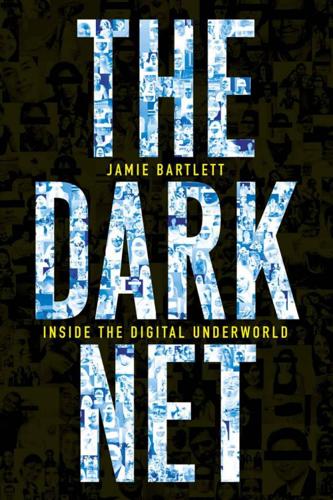
The Dark Net
by
Jamie Bartlett
Published 20 Aug 2014
But he is convinced that terrorists would have been ‘delighted’ by information about the Edward Snowden leaks. ‘You can be sure that they were following the story very closely indeed: as would have been the Russian and Chinese governments.’ I asked him if he was worried about the rise in crypto-parties, or more widespread adoption of Tor, Mailpile and Dark Wallets. Might it make us less safe? ‘Yes, it does concern me. But you won’t stop the intelligence machine.’ He thinks intelligence officers will find a way around it – they have to – but it might end up being more intrusive than using the alleged methods exposed by Edward Snowden. He recounts that during the Cold War, Soviet cyphers were too strong for GCHQ to break, so British intelligence switched to recruiting more Soviet agents.
…
So Smári and two colleagues decided to develop their own, easy-to-use, encrypted email system – and raised $160,000 in August 2013 from supporters on Indiegogo to do so. It’s called Mailpile. ‘It will be feature-complete, and easy to use,’ Smári explains, opening his laptop to give me a sneak preview. It certainly looks good. In 2013, documents released by Edward Snowden alleged that the NSA, working with Britain’s GCHQ and others, was – among other things – tapping seabed ‘backbone’ internet cables, installing back-door access to private company servers and working to crack (and weaken) encryption standards, often without much legal basis, let alone a public debate.
…
Technically speaking, Twister doesn’t store the posts themselves into the blockchain, but rather just the username records. p.98 ‘So Smári and two colleagues . . .’ http://www.indiegogo.com/projects/Mailpile-taking-email-back. p.99 ‘The cypherpunk message isn’t going unheeded . . .’ http://www.dailydot.com/news/pgp-encryption-snowden-prism-nsa/. p.99 ‘In 2013, documents released by Edward Snowden . . .’ James Ball, Julian Borger and Glenn Greenwald, ‘Revealed: how US and UK spy agencies defeat internet privacy and security’, Guardian, 6 September 2013 [http://www.theguardian.com/world/2013/sep/05/nsa-gchq-encryption-codes-security (accessed 20 November 2013)]; Ellen Nakashima, ‘NSA has made strides in thwarting encryption used to protect Internet communication’, Washington Post, 5 September 2013, http://articles.washingtonpost.com/2013-09-05/world/41798759_1_encryption-nsa-internet (accessed 20 November 2013).
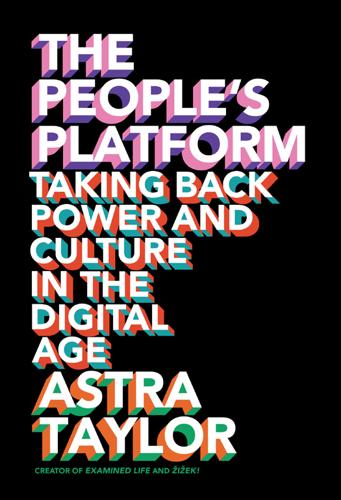
The People's Platform: Taking Back Power and Culture in the Digital Age
by
Astra Taylor
Published 4 Mar 2014
Poitras, however, wasn’t complaining. She experiences her work as a gift, a difficult process but a deeply satisfying one, and was already busy planning her next project, about the erosion of civil liberties in the wake of the war on terror. In January 2013 she was contacted by an anonymous source that turned out to be Edward Snowden, the whistle-blower preparing to make public a trove of documents revealing the National Security Administration’s massive secret digital surveillance program. He had searched Poitras out, certain that she was someone who would understand the scope of the revelations and the need to proceed cautiously.
…
(New York: Simon & Schuster, 2013); Kate Losse’s The Boy Kings: A Journey into the Heart of the Social Network (New York: Free Press, 2012); Evgeny Morozov’s The Net Delusion: The Dark Side of Internet Freedom (New York: PublicAffairs, 2011) and To Save Everything Click Here: The Folly of Technological Solutionism (New York: PublicAffairs, 2013); Eli Pariser’s The Filter Bubble: What the Internet Is Hiding from You (New York: Penguin Press, 2011); Robert McChesney’s Digital Disconnect: How Capitalism Is Turning the Internet Against Democracy (New York: The New Press, 2013); and Siva Vaidhyanathan’s The Googlization of Everything: (And Why We Should Worry) (Berkeley: University of California Press, 2011). 3. On the existence of a sprawling international surveillance infrastructure, see the reporting of Glenn Greenwald on Edward Snowden’s leaks pertaining to the National Security Administration for the Guardian and Barton Gellman for the Washington Post. For more information about uncompetitive business practices, read about the antitrust investigation into Google, which critics say unfairly blocks or demotes its rivals. For example, Brent Kendall, Amir Efrati, Thomas Catan, and Shira Ovide, “Behind Google’s Antitrust Escape,” Wall Street Journal, January 5, 2013.
…
Mooallem, “The Afterlife of Cellphones.” 13. Leonard, The Story of Stuff, 202–3. 14. Mooallem, “The Afterlife of Cellphones.” 15. Chip Bayers, “Why Silicon Valley Can’t Sell,” Ad Week, July 11, 2011. 16. Julia Angwin, “Sites Feed Personal Details to New Tracking Industry,” Wall Street Journal, July 30, 2010; Documents released by Edward Snowden reveal that corporate tracking enables government snooping: “The National Security Agency is secretly piggybacking on the tools that enable Internet advertisers to track consumers, using ‘cookies’ and location data to pinpoint targets for government hacking and to bolster surveillance.” Ashkan Soltani, Andrea Peterson, and Barton Gellman, The Washington Post, “NSA Uses Google Cookies to Pinpoint Targets for Hacking,” December 10, 2013. 17.
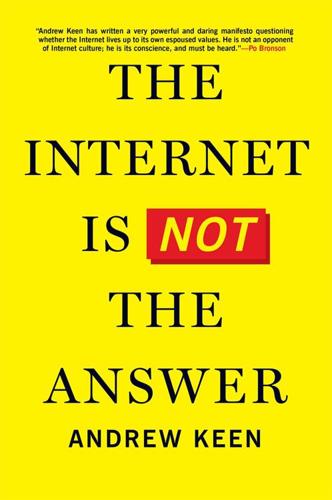
The Internet Is Not the Answer
by
Andrew Keen
Published 5 Jan 2015
Certainly online eyes remain much less valuable than offline ones, with average advertising rates of the printed edition of a major newspaper being around ten times its online cost.36 The same is true of the value of offline versus online readers, with the Newspaper Association of America estimating that the average print reader is worth around $539 versus the $26 value of the online reader.37 And free certainly isn’t working as an economic model for online newspapers. Take, for example, the world’s third most frequently visited news website, the London Guardian. In spite of breaking the News of the World phone hacking scandal and the Edward Snowden and WikiLeaks stories, the Guardian has reported operating losses of more than £100 million since 2010, with a stunning £50 million lost just between 2012 and 2013.38 No wonder the Guardian is experimenting with a robot-generated print edition called #Open001, which replaces editors with algorithms to select relevant stories for publication.39 But robots can’t write the kind of high-quality journalism that distinguishes the Guardian from most of its rivals.
…
But Mielke’s work has been memorialized in the old Berlin headquarters of the Stasi, which has been transformed into a museum displaying the technologies of surveillance that he used to snoop on the East German people. The former East German Ministry for State Security is located on a particularly gray, nondescript street near the Magdalenenstrasse U-Bahn station, a few subway stops away from the center of Berlin. It’s not too far from the US embassy on Pariser Platz, where, the American whistle-blower Edward Snowden revealed, the NSA had a spy hub that monitored the cell phone calls of German chancellor Angela Merkel16—a privacy breach so angering Merkel that the chancellor, who grew up in East Germany, compared the snooping practices of the NSA to the Stasi’s.17 Nor is it a great distance from the British embassy beside the Brandenburg Gate, where, according to documents leaked by Snowden, the British intelligence agency GCHQ was running its own separate spying operation on the German government.18 The gray old Stasi headquarters in Berlin, permanently frozen now in its 1989 appearance, is defiantly analog.
…
asks Guardian columnist Ana Marie Cox.47 Unfortunately, however, it’s not an either/or question. In today’s networked world, we should fear both the government and private big data companies like Facebook and Google. We got a preview of this terrifying new world in the summer of 2013 with the National Security Agency data-mining Prism scandal revealed by the former NSA analyst Edward Snowden. “If Big Brother came back, he’d be a public-private partnership,” explained the British historian Timothy Garton Ash. And it’s exactly this kind of partnership between big data companies like Google and the NSA—both the government and private companies—that we should most fear. According to a June 2013 report in the New York Times, the Prism program “grew out of the National Security Agency’s desire several years ago to begin addressing the agency’s need to keep up with the explosive growth of social media.”48 Prism showed the backdoor access to the data of their customers that Microsoft, Yahoo, Google, Facebook, PalTalk, AOL, Skype, YouTube, and Apple all gave—or were legally required to give, according to these companies—to the government.
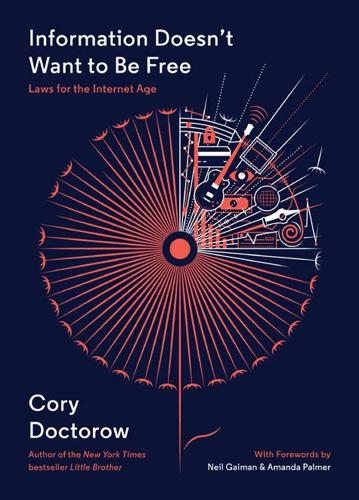
Information Doesn't Want to Be Free: Laws for the Internet Age
by
Cory Doctorow
,
Amanda Palmer
and
Neil Gaiman
Published 18 Nov 2014
Would Iran really hesitate to ensure that they could conduct Staatstrojaner-grade surveillance on anyone, without the inconvenience of installing a Staatstrojaner-type program in the first place? If they chose to, Iran could just ban the sale of computers unless UEFI was set to require surveillance-friendly operating systems out of the box. And if it can happen there, it can happen here. 3.10 A World of Control and Surveillance THE EDWARD SNOWDEN leaks left much of the world in shock. Even the most paranoid security freaks were astounded to learn about the scope of the surveillance apparatus that had been built by the NSA, along with its allies in the “Five Eyes” countries (the UK, Canada, New Zealand, and Australia). The nontechnical world was most shocked by the revelation that the NSA was snaffling up such unthinkable mountains of everyday communications.
…
We have fought for generations for the freedom of conscience necessary to have a robust intellectual and creative sphere. Our forebears risked jail, violence, even death for these freedoms. We owe it to them—and to our children—to pledge ourselves anew to these values in the era of the Internet. Edward Snowden taught us that the Internet could be harnessed and turned into an intrusive and terrifying surveillance mechanism. And since the Internet is likely to be a fixture in our lives and the lives of our children, we all have a duty to stop arguing about whether the Internet is good or bad for us and our particular corner of the world—a duty to figure out how to make the Internet into a force for helping people work and live together, with the privacy, self-determination, and freedom from interference and control that are the hallmarks of a just society.
…
But even on those bad days, I believe that the only answer to this fear is to seize the means of information and ensure that technology’s benefits are distributed to everyone, not just the powerful. A refusal to engage with (or protect) technology doesn’t mean that the bad guys won’t get it—just that the good guys will end up unarmed in the fights that are to come. Edward Snowden, our only credible authority on the capabilities of the world’s spy agencies, tells us that cryptography works. Good, secure networking technology allows everyday people the power to communicate with one another with such a high degree of security that even the most powerful, most adept surveillance agencies in the world can’t spy on them.
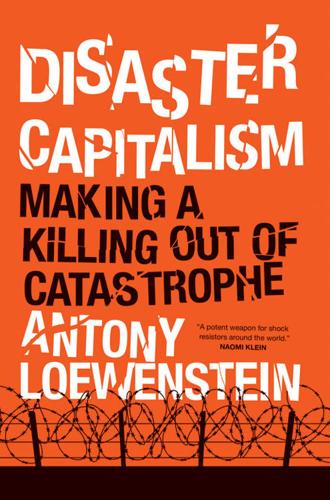
Disaster Capitalism: Making a Killing Out of Catastrophe
by
Antony Loewenstein
Published 1 Sep 2015
Today, there are 4 million US citizens who hold Top Secret security clearance, of whom 500,000 are contractors.31 Robert Greiner, who was the CIA station chief in Islamabad, Pakistan, at the time of the 9/11 attacks, said in 2010 that he believed at least half of the staff working at the CIA’s counterterrorism center were private contractors.32 Former NSA employee Edward Snowden exposed the dangers of mass surveillance being managed by private enterprise when he leaked documents in 2013 proving how easy it was for firms such as Booz Allen Hamilton to view and store information on citizens. It is nothing less than a privatized, modern-day Stasi. The claim that “the world is a battlefield” reflects a military ideology pursued by both Democrat and Republican administrations, as has been detailed by investigative journalist Jeremy Scahill.
…
Carol slammed the presence of US special forces, calling them mere “Taliban hunters.” She argued that “being Taliban or related to Taliban members is not necessarily against the country’s positive future, but [the] US seems to see all Taliban as enemy.” This did not bode well for future peace in Afghanistan. Documents released by former NSA whistle-blower Edward Snowden revealed that NATO killed not just Taliban leaders but countless low-level and mid-level Afghans, as well as drug dealers. Little evidence was needed to kill these individuals. The head of ISAF intelligence in Afghanistan, Michael T. Flynn, explained the mindset: “The only good Talib is a dead Talib.”70 Another consequence of intelligence privatization was that local security entrepreneurs had become the new Afghan elite—the inevitable rise of locals out to exploit the naivety of the country’s occupiers.
…
Vinnie was my host for the day, and he drove us in his SUV for two hours to Lumpkin. He had worked in PR for all of his professional life, from the US military in Kuwait to the US National Park Service. He was skeptical of foreign military interventions, was a supporter of journalist Glenn Greenwald and former NSA whistle-blower Edward Snowden, and said that the immigration system needed urgent reform. He was not the typical representative of a hardline government department known for brutally expelling immigrants. Vinnie said that the Stewart center had provided essential economic opportunities in Lumpkin, an undeveloped town. The detention center parking lot was filled with vehicles when we arrived.
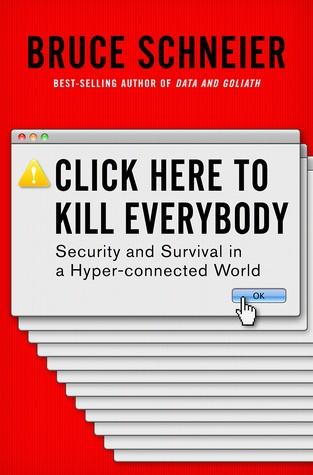
Click Here to Kill Everybody: Security and Survival in a Hyper-Connected World
by
Bruce Schneier
Published 3 Sep 2018
The Border Gateway Protocol, or BGP, is how the Internet physically routes traffic through the various cables and other connections between service providers, countries, and continents. Because there’s no authentication in the system and everyone implicitly trusts all information about speed and congestion, BGP can be manipulated. We know from documents disclosed by government-contractor-turned-leaker Edward Snowden that the NSA uses this inherent insecurity to make certain data streams easier to eavesdrop on. In 2013, one company reported 38 different instances where Internet traffic was diverted to routers at Belarusian or Icelandic service providers. In 2014, the Turkish government used this technique to censor parts of the Internet.
…
In 2017, HP Enterprise faced criticism because it had given Russia the source code to its ArcSight line of network security products. Governments aren’t just compromising products and services in their own countries during the design and production process. They’re interdicting the distribution process as well, either individually or in bulk. According to NSA documents from Edward Snowden, the NSA was looking to put its own backdoor in Huawei’s equipment. We know from the Snowden documents that NSA employees would routinely intercept Cisco networking equipment being shipped to foreign customers and install eavesdropping equipment. That was done without Cisco’s knowledge—and the company was livid when it found out—but I’m sure there are other American companies that are more cooperative.
…
But anything we pay in improved security results in better security technologies, fewer criminals, more secure corporate practices, and so on—all things that will continue to pay off year after year. There’s a joke that says technologists look to the law to solve their problems, while lawyers look to technology to solve their problems. In truth, to make any of this work, technology and law have to work together. This is the most important lesson of the Edward Snowden documents. We always knew that technology could subvert law. Snowden showed us that law—especially secret law—can also subvert technology. Both must work together, or neither can work. Part II describes how we can do that. 6 What a Secure Internet+ Looks Like In 2016, the Norwegian Consumer Council evaluated three Internet-connected dolls.
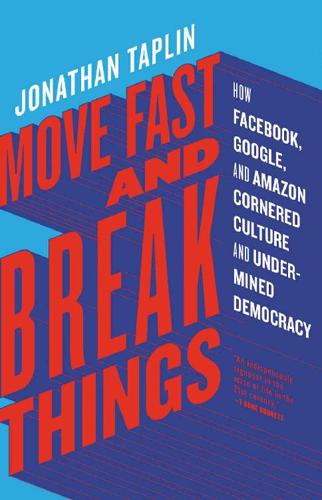
Move Fast and Break Things: How Facebook, Google, and Amazon Cornered Culture and Undermined Democracy
by
Jonathan Taplin
Published 17 Apr 2017
But as one travels through America’s Rust Belt cities, where the forces of technology have destroyed jobs, one sees signs of real suffering—high rates of addiction and suicide and shortened life expectancies. What is the technology fix for these cancers of the spirit? The answer escapes me. Or think about the people—celebrities and others—who are subjected to anonymous hate-filled trolls on Twitter. What is the technology solution to this problem? For all the outrage generated by Edward Snowden over National Security Agency spying, the average citizen has voluntarily (though unknowingly) turned over to Google and Facebook far more personal information than the government will ever have. And even if we are aware that Google’s and Facebook’s primary business is “surveillance marketing”—selling our personal information to advertisers for billions of dollars—we somehow trust that they will not exploit this information in ways that might harm us.
…
The Internet giants were developing a reach that the spooks in Fort Meade, the NSA’s HQ in Maryland, could only dream of. So the spooks stepped in and more than nine corporations obliged by delivering their clients’ data. It was, and is, the largest hack in human history—so far.” Where does surveillance marketing stop and spying begin? When Greenwald’s article, based on the revelations of Edward Snowden, came out, Zuckerberg responded that the government had done a “bad job” of protecting people’s privacy. “Frankly I think the government blew it,” he said. But just how hard did he fight to protect the data of his users? And had Facebook, in its commercial hoovering of consumer data, done an equally bad job of protecting its users’ privacy?
…
Like the Kochs, Google and Facebook are in the extraction industry—their business model is to extract as much personal data from as many people in the world at the lowest possible price and to resell that data to as many companies as possible at the highest possible price—data is the new oil. And like Koch Industries, Google and Facebook create externalities during the extraction process. Brewster Kahle, founder of the Internet Archive, outlined some of these externalities: Edward Snowden showed we’ve inadvertently built the world’s largest surveillance network with the web. China can make it impossible for people there to read things, and just a few big service providers are the de facto organizers of your experience. Others include YouTube’s decision to make available all the world’s music for free, which makes it impossible for many musicians to make a living.
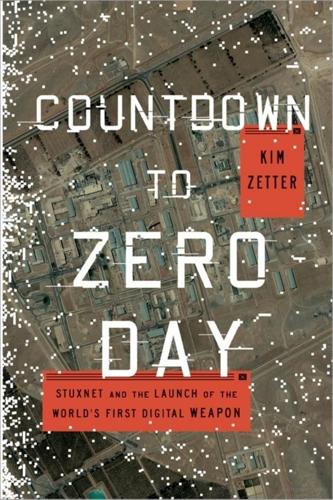
Countdown to Zero Day: Stuxnet and the Launch of the World's First Digital Weapon
by
Kim Zetter
Published 11 Nov 2014
The need for a longer lead time is one of the primary drawbacks of digital operations—designing an attack that won’t cascade to nontargeted civilian systems requires advance reconnaissance and planning, making opportunistic attacks difficult.29 More recently, leaks from former NSA systems administrator Edward Snowden have provided some of the most extensive views yet of the government’s shadowy cyber operations in its asymmetric war on terror. The documents describe NSA elite hacker forces at Fort Meade and at regional centers in Georgia, Texas, Colorado, and Hawaii, who provide US Cyber Command with the attack tools and techniques it needs for counterterrorism operations.
…
Instead, it extracted 1 KB of text from each and transmitted it back to one of the command servers. From there it was likely passed to another location, where Raiu suspected the attackers had a supercomputer set up to sift through all the text samples that came in and determine which files the attackers wanted to grab in full. Notably, a year later when the NSA documents leaked by Edward Snowden were published, they described a system codenamed TURBINE that was designed to do something very similar to this. (See this page.) With such an elaborate operation set up for Flame, it was no surprise that the attack had been around for a while. The earliest infection uncovered, on a machine in Europe, occurred in December 2007.7 A machine in Dubai was struck in April 2008.
…
“If the habits of an agency that were built up in a pre-digital, analog age … are the habits of an agency [that is] culturally tilted a little too much toward the offense in a world in which everybody now is vulnerable,” he said, then the government might want to reassess. In a report issued by a surveillance reform board convened by the White House in the wake of the Edward Snowden leaks, board members specifically addressed this issue and recommended that the National Security Council establish a process for reviewing the government’s use of zero days. “US policy should generally move to ensure that Zero Days are quickly blocked, so that the underlying vulnerabilities are patched on US Government and other networks,” the review board wrote, noting that only “in rare instances, US policy may briefly authorize using a Zero Day for high priority intelligence collection, following senior, interagency review involving all appropriate departments.”39 In almost all instances, they wrote, it is “in the national interest to eliminate software vulnerabilities rather than to use them for US intelligence collection.”
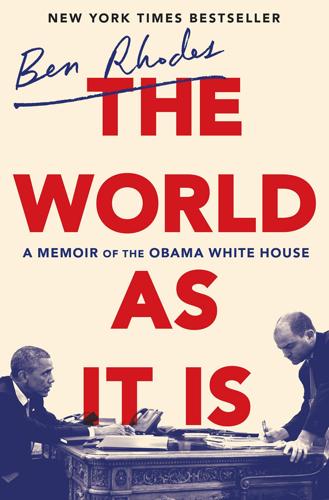
The World as It Is: A Memoir of the Obama White House
by
Ben Rhodes
Published 4 Jun 2018
Legally, we couldn’t say what the support was; all I could say were things like “This is going to be different—in both scope and scale—in terms of what we are providing to the opposition.” I was giving partial answers about an incremental response and felt as though whatever stockpile of credibility I had built up over four years was being drawn down. That summer had been thankless in so many other ways. It began with the spectacle of Edward Snowden releasing a devastating cache of classified information in June, fleeing to Hong Kong, and then somehow boarding a plane to Moscow even though he had no passport. There were weeks of drip-drip-drip revelations about U.S. surveillance, the same tactic that would shadow the run-up to our 2016 elections, involving the same people: Russia, Wikileaks.
…
With help from Senator Patrick Leahy, we allowed the wife of one of the prisoners to pursue artificial insemination. The Cubans allowed for improvements in Alan Gross’s confinement: moving him into a different room, allowing him to take Spanish lessons, giving him access to a printer. There was one other, more important signal. Around the time of our second meeting, Edward Snowden was stuck in the Moscow airport, trying to find someone who would take him in. Reportedly, he wanted to go to Venezuela, transiting through Havana, but I knew that if the Cubans aided Snowden, any rapprochement between our countries would prove impossible. I pulled Alejandro Castro aside and said I had a message that came from President Obama.
…
I reminded him that the Cubans had said they wanted to give Obama “political space” so that he could take steps to improve relations. “If you take in Snowden,” I said, “that political space will be gone.” I never spoke to the Cubans about this issue again. A few days later, back in Washington, I woke up to a news report: “Former U.S. spy agency contractor Edward Snowden got stuck in the transit zone of a Moscow airport because Havana said it would not let him fly from Russia to Cuba, a Russian newspaper reported.” I took it as a message: The Cubans were serious about improving relations. In October, before our third meeting, Ricardo Zuniga and I considered three options: a smaller swap of some of the four Cubans for Gross; proceeding without Gross’s release; or insisting on some kind of swap that went along with a broader transformation of the relationship between our two countries.
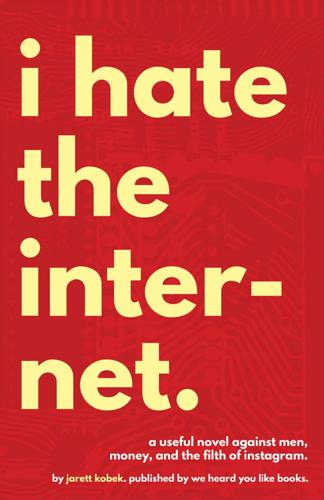
I Hate the Internet: A Novel
by
Jarett Kobek
Published 3 Nov 2016
I worry that the feeling is my own spiritual dissolution. But it can’t be, can it? I still feel young. It’s the others who’ve gotten old. Darling, what I wouldn’t give for some friends as wild and maniacal as dear sweet Edward Snowden.” Baby wasn’t the only person looking at America and feeling as if its unwitting citizens were born into complex and impossible systems of unfathomable evil. The story of the season was about a eumelaninless guy named Edward Snowden, who contracted for an American intelligence agency called the National Security Agency. The NSA was like the CIA, except the NSA didn’t have field agents and hadn’t funded the creation of American literary fiction.
…
There’s no such thing as privacy when every person on the street suspects you of anything. Watching the media coverage of Snowden’s revelations, it was hard not to feel like the world had been transformed. It had become a place where the greatest concern was whether or not mass produced cellphones were turning White people into Black ones. When Edward Snowden made his foray into the seedy world of hotel room revelations. he brought along some reading material. He had two books with him. The first one was the hardcover edition of Homeland by Cory Doctorow. It was published by an imprint called Tor Teen. The second book was a trade paperback of Baby’s Annie Zero.

Four Futures: Life After Capitalism
by
Peter Frase
Published 10 Mar 2015
I follow David Brin, who has both written science fiction and gone by the “futurist” label, when he says that he is “much more interested in exploring possibilities than likelihoods, because a great many more things might happen than actually do.”29 The importance of assessing possibility rather than likelihood is that it puts our collective action at the center, while making confident predictions only encourages passivity. In the same essay, Brin cites George Orwell’s 1984 as a “self-preventing prophecy” that helped prevent the scenario it described from coming true. In the wake of the War on Terror and former National Security Agency (NSA) analyst Edward Snowden’s disclosures about NSA surveillance, one can question just how self-preventing that particular prophecy was, but the general point stands. If this book contributes in some small way to making the oppressive futures described self-preventing, and their egalitarian alternatives self-fulfilling, then it will have served its purpose. 1 COMMUNISM: EQUALITY AND ABUNDANCE Kurt Vonnegut’s first novel, Player Piano, describes a society that seems, on the surface, like a postlabor utopia, where machines have liberated humans from toil.
…
A 2013 report from the International Network of Civil Liberties Organizations documents the widespread “use of lethal and deadly force in response to largely peaceful gatherings seeking to express social and political viewpoints,” in places ranging from Canada to Egypt to Kenya to South Africa to the United States.31 The crackdown on the Occupy movement was one example of this, a show of force by squads of armored cops in cities across the country. Meanwhile the surveillance-state techniques revealed by former National Security Agency whistleblower Edward Snowden and others show just how powerful are the state’s tools for repressing dissent and monitoring the activities of activists. In this context, it becomes easier to envision the slippage from inhuman prisons, violent police crackdowns, and occasional summary executions to more systematic forms of elimination.
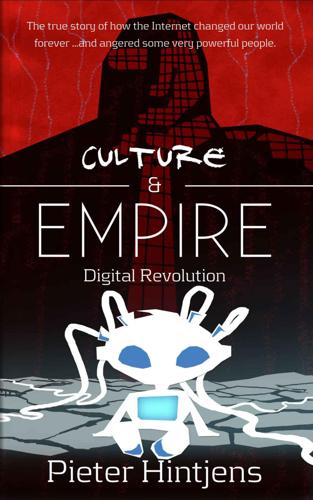
Culture & Empire: Digital Revolution
by
Pieter Hintjens
Published 11 Mar 2013
The anti-Narratives emerge most powerfully from the pioneers in this collective de-programming exercise, the ice-breakers who, for diverse reasons, are prepared to go into incredibly hostile environments with nothing more than their self-faith to keep them going: It all begins with the whistle blowers, particularly those who can leak substantive documentation rather than personal stories and hearsay. Chelsea née Bradley Manning and Edward Snowden are the two main figures here, heroes in a real sense. Other whistle blowers of note are Annie Machon, Gareth Williams, Russel Tice, Jeffrey Sterling, Stephen Jin-Woo Kim, Jesselyn Radack, Thomas Drake, Daniel Ellsberg, and William Binney. We then have the independent media who are willing to report these documents, at personal risk. There is Julian Assange, building wikileaks.org around Manning's leaks, and Glenn Greenwald and Laura Poitras, reporting in the Guardian on Edward Snowden's leaks. Again, heroic figures who have changed the course of history.
…
Leaking sensitive information about malpractice in a business usually leads to firing, blacklisting, and poverty. It's still better than the life of a person who leaks state secrets. Such individuals tend to get suicidal in the most creative ways. Even darknets can't always survive determined leaks, as Chelsea née Bradley Manning and Edward Snowden showed. No security is perfect because it depends on people, and people make mistakes. Someone plugs an off-the-shelf laptop into a darknet, and suddenly it's trivial to copy gigabytes of documents to a USB drive. A maintenance engineer calls the head of operations warning that there's a problem with a router and they have to reset a password.
…
A handful of phone companies control Internet access for most people, and a handful of websites account for most Internet traffic. The capturing of the airwaves is an old sport. What's shifted is the sheer volume and focus. It's the mass digitization of social activity, and its concentration, that has created fertile ground for the greatest spy regime of all time. The Listeners In 2013, Edward Snowden focused the public's attention on the scale and audacity of the global surveillance state, mainly the American parts, and the roles played by the UK and France. The goal of this surveillance state was, and presumably still is, to know everything about everyone, all the time. However, the growth of the global surveillance state wasn't really news.

The Age of Entitlement: America Since the Sixties
by
Christopher Caldwell
Published 21 Jan 2020
This meant that conflict, when it eventually came, would be constitutional conflict, with all the gravity that the adjective “constitutional” implies. 7 Winners Outsourcing and global value chains—Politicized lending and the finance crisis—Civil rights as a ruling-class cause—Google and Amazon as governments in embryo—Eliot Spitzer, Edward Snowden, and surveillance—The culture of internet moguls—The affinity between high tech and civil rights—The rise of philanthropy—Obama: governing without government—Nudge and behavioral economics—From gay rights to gay marriage—Windsor: the convergence of elites—Obergefell: triumph of the de facto constitution It took a long time for Americans to realize that the New Economy was a new economy.
…
With the help of technology, Reaganite capitalism undid the democratic achievements of Reaganite politics. The problem was not the expansion of government until it crowded out the private sector—it was the expansion of the private sector until it became a kind of government. Eliot Spitzer, Edward Snowden, and surveillance The internet, for a while, empowered people as consumers, but it left them more vulnerable as citizens. The ambitious New York attorney general Eliot Spitzer was a pioneer of information-age government, waging a selective investigatory crusade against those who did business in the state.
…
Two years later, a wire transfer he had made to pay for a session with a prostitute at the Mayflower Hotel in Washington, D.C., drew the attention of financial investigators under the Bank Secrecy Act, which was just then being aggressively used to fight terrorism. Politically, Spitzer lived by the sword and died by it. Cyberspace not only held private repositories of data that the state could subpoena and examine. It also offered undreamed-of avenues for government to set up its own surveillance. In the early summer of 2013, Edward Snowden, a young infrastructure analyst with experience at both the National Security Agency and the Central Intelligence Agency, fled to Hong Kong and then to Russia after revealing to the Guardian and other newspapers the extent of the U.S. government’s spying programs. Snowden was a contractor with an impressive intellect, great initiative, and top-level security clearances.
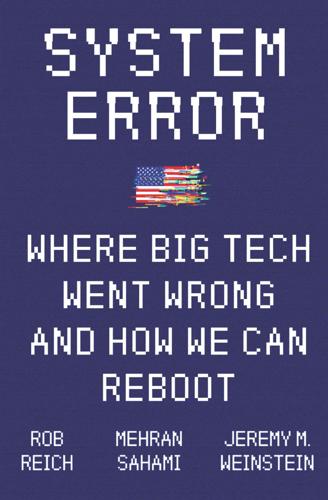
System Error: Where Big Tech Went Wrong and How We Can Reboot
by
Rob Reich
,
Mehran Sahami
and
Jeremy M. Weinstein
Published 6 Sep 2021
The justification now wasn’t just law enforcement but the more widely held concern that future terrorist attacks needed to be stopped at all costs. Through the USA PATRIOT Act, the government enacted sweeping programs to collect phone records and other digital communications, touching nearly everyone in the United States, no judicial authorization required. Ultimately revealed by documents leaked in 2013 by Edward Snowden, a contractor for the National Security Agency, these programs led to a massive global outcry against the government’s privacy infringement overreach. The programs in question were eventually reviewed and a number of reforms adopted to curtail some of the more egregious forms of data collection, but the damage had been done: the public had become even more sensitized to the danger of government violation of basic expectations about personal privacy.
…
None other than the founder of the World Wide Web, Tim Berners-Lee, echoes McNealy’s sentiment. But he also holds companies partly to blame for their willing cooperation in building surveillance technologies for the government. He expresses regret about how far the Web has strayed from his initial vision. After the revelations of Edward Snowden, in an Open Letter to the Internet on the twenty-eighth anniversary of the launch of the web in 2017, Berners-Lee wrote: Through collaboration with—or coercion of—companies, governments are also increasingly watching our every move online, and passing extreme laws that trample on our rights to privacy.
…
Take the American public’s views on the protection of personal data in the aftermath of 9/11. In the years immediately following the attack, citizens were concerned that the government was prioritizing civil liberties too much and not going far enough to protect the country from another terrorist attack. Edward Snowden’s revelations about mass surveillance flipped people’s views almost overnight. Within six months, the share of Americans who supported the government’s collection of telephone and internet data as part of antiterrorism efforts dropped precipitously. We’ve seen similar dynamics at play during the COVID-19 pandemic.

The Fourth Industrial Revolution
by
Klaus Schwab
Published 11 Jan 2016
User profiling through big-data analysis and inference techniques is opening the way for new, much more customized and personalized services, which can benefit users and consumers, but which also raise important concerns when it comes to user privacy and individual autonomy. Given increased concerns around cyber crime and identity theft, in many jurisdictions, the balance between surveillance and freedom is rapidly tipping towards increased monitoring, as shown by revelations brought to light by Edward Snowden, the American intelligence analyst who leaked documents relating to US national security operations. Availability and inclusion As the global economy increasingly moves into the digital realm, the availability of reliable internet infrastructure becomes a crucial prerequisite for a flourishing economy.
…
In our new digital age, it is indeed difficult to step back, though not impossible. 3.5.3 Managing Public and Private Information One of the greatest individual challenges posed by the internet, and our increasing degree of interconnectedness in general, concerns privacy. It is an issue that looms larger and larger because, as the Harvard University political philosopher Michael Sandel has observed “we seem to be increasingly willing to trade privacy for convenience with many of the devices that we routinely use”.68 Spurred in part by the revelations of Edward Snowden, the global debate about the meaning of privacy in a world of greater transparency has only just begun, as we see how the internet can be an unprecedented tool of liberation and democratization and at the same time, an enabler of indiscriminate, far-reaching and almost unfathomable mass surveillance.
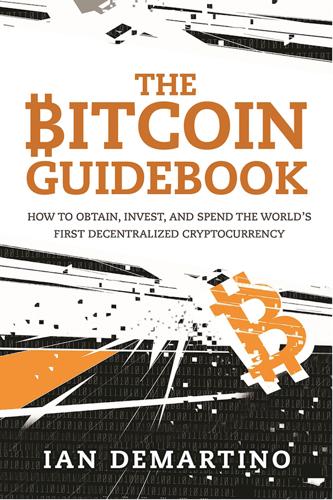
The Bitcoin Guidebook: How to Obtain, Invest, and Spend the World's First Decentralized Cryptocurrency
by
Ian Demartino
Published 2 Feb 2016
Currently, the safest thing one can do is use TailsOS, an operating system that exists solely on a USB stick or other storage device and is reflashed (i.e., erased of data outside the operating system itself) every time it is used. It is like having a brand new Internet identity every time you use it. When used in combination with other privacy techniques, TailsOS can even help circumvent government or other spying significantly. TailsOS was credited by Edward Snowden as being instrumental in helping him maintain his privacy while he leaked what are now known as the Snowden Documents.5 The people who can take advantage of Bitcoin in order to move money overseas without government approval are people who already fly under the radar. Preventing someone from moving their life savings out of a country before they emigrate elsewhere without paying taxes is not likely the kind of financial crime most of us worry about stopping.
…
The concept of government-endorsed backdoors faded from the cryptography community—although that didn’t stop the NSA from covertly adding its own backdoors, as when it paid security firm RSA to preserve security flaws for its snooping operations.5,6 Yet it could be argued they eventually lost the larger battle for the mind—if not the heart—of the general public. Even though the public had gained the ability to keep its communications private, the vast majority didn’t feel like they needed to. From the mid-1990s and until Edward Snowden’s revelations of widespread and illegal government spying, the general public overwhelmingly used the Internet, email, and other forms of electronic communication completely unencrypted, mostly oblivious to the inherent risk. Meanwhile, the government designed surveillance programs and built backdoors into our technology.
…
More recently, financial giants Goldman Sachs,18 USAA,19 and NASDAQ20 all announced they were jumping on the Bitcoin bandwagon and were exploring technologies based on the blockchain. The list of merchants that accept Bitcoin has also continued to grow and now includes Microsoft, PayPal’s Braintree, Dell, DishNetwork, Expedia, Overstock.com, The American Red Cross, RE/MAX London, Save The Children, Edward Snowden’s legal defense fund, and countless others.21,22 One Bitcoin exchange, Circle, is registered and compliant with the New York Department of Financial Services. During the 2016 US presidential race, Rand Paul, a major candidate for the Republican nomination, was accepting Bitcoin donations. I don’t pretend to know what the future of Bitcoin looks like.
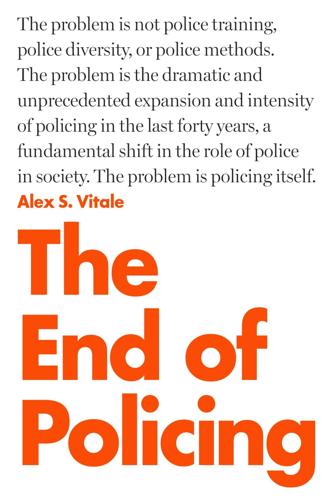
The End of Policing
by
Alex S. Vitale
Published 9 Oct 2017
Miller also highlights the troubling practices of detaining and searching US citizens because of their political, academic, and journalistic activities. Agents have watchlists; people on these lists can be arrested and interrogated and have their electronic possessions seized when crossing the border. The journalist and filmmaker Laura Poitras was detained multiple times after she worked with whistleblower Edward Snowden and produced a film called My Country, My Country, which criticizes US policy in the Middle East. American scholars of Islam and the Middle East have been accused of terrorism, detained without lawyers, and had their personal and electronic possessions searched and seized without a warrant. In none of these cases was there any question about their citizenship.
…
While there is insufficient evidence to support claims by Naomi Wolf and others that the federal government organized or coordinated the local efforts to shut down Occupy, it is clear that federal intelligence agencies, working with local law enforcement, were actively gathering and sharing information about the movement with each other and with financial institutions.40 In the end, the decision to break up Occupy encampments in hundreds of cities was made by local political leaders and carried out by local police, though the timing and tools used to accomplish them may have grown out of federally-coordinated information sharing. Entrapment Police have fought the War on Terror nationally and locally through widespread surveillance, entrapment, and inflaming public fears, with little increase in public safety. Whistleblower Edward Snowden, with the help of journalist Glenn Greenwald, helped to expose the true extent of government spying, which violates constitutional principles and existing laws.41 Americans have come to understand that their telephone and electronic communications are not secure and that this is being done in collusion with major communications corporations.
…
Jeffrey Smith, “Senate Report Says National Intelligence Fusion Centers Have Been Useless,” Foreign Policy, October 3, 2012. 37Michael German and Jay Stanley, Fusion Center Update (New York: American Civil Liberties Union, 2008). 38Missouri Information Analysis Center, “The Modern Militia Movement,” MIAC, February 20, 2009; The Constitution Project, “Recommendations for Fusion Centers” (Washington, DC: The Constitution Project, 2012). 39Beau Hodai, Dissent or Terror: How the Nation’s Counter Terrorism Apparatus, in Partnership with Corporate America, Turned on Occupy Wall Street (Madison, WI: Center for Media and Democracy, 2013). 40Gavin Aronsen, “What the FBI’s Occupy Docs Do—and Don’t—Reveal,” Mother Jones, January 7, 2013. 41Glenn Greenwald, No Place to Hide: Edward Snowden, the NSA, and the U.S. Surveillance State (New York: Metropolitan Books, 2014). 42Human Rights Watch, Illusions of Justice: Human Rights Abuses in US Terrorism Prosecutions (New York: Human Rights Watch and Columbia Law School Human Rights Institute, 2014). 43Matt Apuzzo and Adam Goldman, Enemies Within: Inside the NYPD’s Secret Spying Unit and bin Laden’s Final Plot Against America (New York: Simon & Schuster, 2013). 44New York Civil Liberties Union, “Raza v.
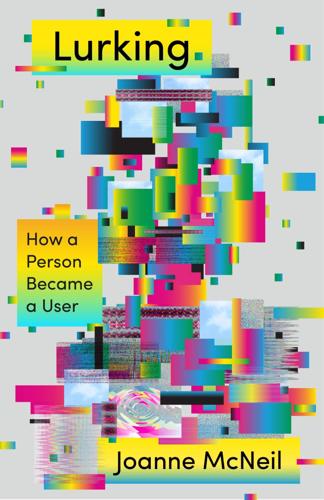
Lurking: How a Person Became a User
by
Joanne McNeil
Published 25 Feb 2020
The sum total of internet users was climbing, major internet companies gained leverage and power, and calls for digital abstinence became less realistic day by day. Still, several years passed before the media responded appropriately. Sara Watson, author of the Columbia Journalism Review report “Toward a Constructive Technology Criticism,” identifies Edward Snowden’s leaks in 2013 as a transformative event that fostered more pointed and nuanced coverage of the internet. Instead of vague stakes like “is it good or is it bad,” moving forward, commentary about the internet involved specifics like diminishing privacy, the fallout of security breaches, and how platforms manipulate user behavior.
…
In any case, it highlighted how people who benefit from one privilege can be hindered by other forms of oppression in other contexts, or contribute to the oppression of another community. What might have been an uncomfortable conversation delivered by other means came through with stunning poignance and dignity. I learned from it. A lot of people did. It was a summer of portents. Edward Snowden had just appeared on camera from a hotel room in Hong Kong, and a few months later, Chelsea Manning was convicted, after a court-martial predicated on a judge’s failure to understand how the internet actually worked. #SolidarityIsForWhiteWomen was groundbreaking and whistle-blowing, too, but due to the nature of its distribution—over Twitter, using hashtags—its significance is often undermined.
…
Throwing money at diversity programs was less fraught than examining the causes for the lack of it (patriarchy, white supremacy, and capitalism). Heartwarming images of ten-year-old girls learning Python could temporarily overshadow other issues that Silicon Valley was increasingly held accountable for, like the vast and growing economic inequality in the Bay Area, the omnisurveillance that Edward Snowden’s disclosures brought to public attention, surveillance capitalism, and how the tech industry exacerbated lack of public trust in institutions. Capitalizing on intersectionality isn’t an altogether bad thing. It’s just complicated. It is wonderful, for example, that Google provides pads and tampons in men’s rooms of some of its offices.
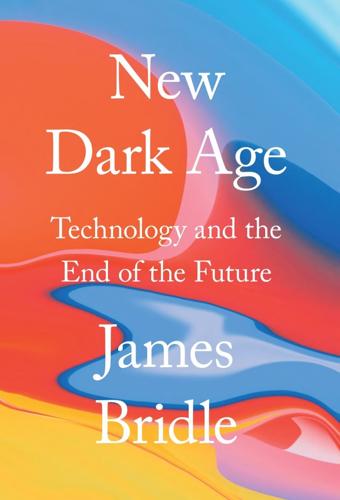
New Dark Age: Technology and the End of the Future
by
James Bridle
Published 18 Jun 2018
The next day came the exposure of the PRISM operation, which gathered up all of the data passing through the servers of the largest internet companies – including emails, documents, voice and video chats, and pictures and videos from Microsoft, Yahoo, Google, Facebook, YouTube, Skype, Apple and others. A short time later, it was revealed that the intelligence agencies’ reach went even deeper into the system, including the collection of raw data from the actual cables that carry information around the world. When asked what it was like to use NSA’s back end system, XKeyscore, Edward Snowden replied, ‘You could read anyone’s email in the world, anybody you’ve got an email address for. Any website: You can watch traffic to and from it. Any computer that an individual sits at: You can watch it. Any laptop that you’re tracking: you can follow it as it moves from place to place throughout the world.’19 It became clear that the international nature of the internet meant that there was no possible restriction on its surveillance, no objection to governments spying upon their own citizens; everyone was a foreigner to someone, and once the data was collected it went into the pot.
…
Code words multiplied, becoming a kind of sinister poetry: TEMPORA, MUSCULAR, MYSTIC, BLARNEY and BOUNDLESS INFORMANT; NOSEY SMURF, HIDDEN OTTER, CROUCHING SQUIRREL, BEARDED PIGGY and SQUEAKY DOLPHIN. Ultimately, these endless lists come to obscure the practical reality of a global surveillance system that is irreducible to its component parts. As Edward Snowden wrote in his first email to the filmmaker Laura Poitras, ‘Know that every border you cross, every purchase you make, every call you dial, every cell phone tower you pass, friend you keep, article you write, site you visit, subject line you type, and packet you route, is in the hands of a system whose reach is unlimited but whose safeguards are not.’25 But what remains most striking, just a few years after the revelations, is ultimately not their extent, but how obvious they should have been – and how little has changed.
…
GCHQ even had a trade union until 1984, when it was very publicly banned by Margaret Thatcher in one of the longest running labour disputes of the twentieth century. Yet discussions of the agencies’ capabilities remained the preserve of students of intelligence – and, as we will see in the next chapter, fodder for conspiracy theorists. It wasn’t until the 2013 release of documents by Edward Snowden that some kind of critical paranoid mass was achieved. Why this should have been the case is debatable; perhaps it was the sheer volume of it, and its visual and narrative flair. It overflowed our ability to ignore it, simply by keeping on coming, day after day, in a welter of buzzwords and ridiculous project names and eye-searing Powerpoint slides, like a never-ending marketing meeting with Satan himself.
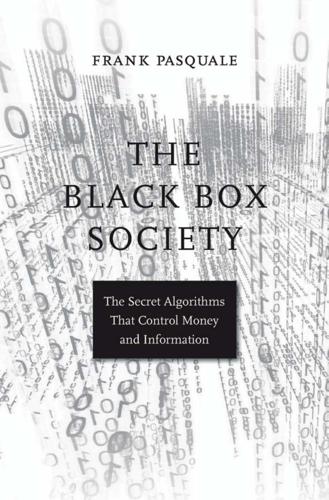
The Black Box Society: The Secret Algorithms That Control Money and Information
by
Frank Pasquale
Published 17 Nov 2014
Google is also reported to have entered into deals with the NSA, but an effort by the Electronic Privacy Information Center (EPIC) to find out whether that was indeed the case was quashed by a federal 50 THE BLACK BOX SOCIETY judge.184 The NSA neither confirms nor denies working with Google to develop its intelligence operations, even after the spectacular revelations of Edward Snowden in 2013. Armies and spies have always relied on stealth; after all, loose lips sink ships. But secrecy also breeds conflicts of interest. Why should Google worry about potential antitrust violations if it’s monitoring Internet access side by side with the DHS and the NSA?185 Like the “too big to fail” banks, it may be “too important to surveillance” for the government to alienate the firm.
…
It can be a marriage—a secret marriage—with a hidden economy of favors exchanged.187 Revolving-door issues loom especially large; government officials looking out for their futures may channel work to a company or industry they have their eyes on.188 Many security officials go on to lucrative private-sector employment soon after leaving public service.189 The manipulation of threat perception by the “homeland security-industrial complex” feeds corporate profits as well as government budgets. All Threats, All Hazards, All Information? Though critics like James Bamford and Tim Shorrock have thoughtfully covered the intelligence beat for years, the full extent of the government’s independent data-gathering practices exploded into public awareness in 2013, when NSA contractor Edward Snowden leaked material documenting extensive domestic surveillance. Snowden’s files suggest that the NSA is working directly with (or hacking) our largest telecom and Internet companies to store and monitor communications; that the agency can seize and bug computers that have never been attached to the Internet; and that it can crack many types of encryption that had previously been thought secure.190 Very little of this relentless collecting is inspired by suspicion about any particular person or plot.
…
A fully transparent society would be a nightmare of privacy invasion, voyeurism, and intellectual property theft. Sometimes the route to orderly and productive investigation is to entrust the job to a small group of experts. For example, courts often need to have a deep knowledge about events leading up to a legal dispute. Even leading leakers seem to agree: both Julian Assange and Edward Snowden fi ltered their revelations though trusted news sources. I call this general trend “qualified transparency”—limiting revelations in order to respect all the interests involved in a given piece of information. As time goes on, the negative impact of disclosure fades. Statutes of limitation run; power moves to other hands; technology that was once state-of-the-art becomes irrelevant.
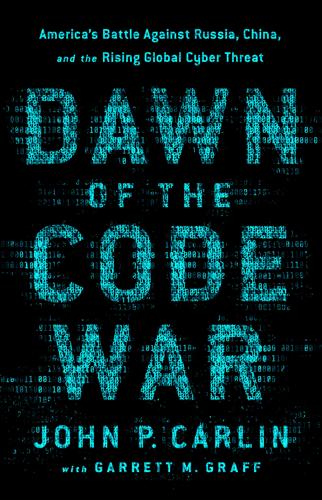
Dawn of the Code War: America's Battle Against Russia, China, and the Rising Global Cyber Threat
by
John P. Carlin
and
Garrett M. Graff
Published 15 Oct 2018
The country simply wasn’t prepared to think that rationally about terrorism; the media was too alarmist, and Obama was criticized for being too publicly blasé—the lack of public government alarm actually seemed to make people feel less secure. At the same time, agents in the field were living with the fallout from Edward Snowden’s leaks in 2013. The leaks all but destroyed any trust and relationship between the US government and Silicon Valley, the companies whose websites housed this new wave of social media–inspired terror. We lived with almost daily examples of what was known as the “going dark” debate; terrorists were adopting encrypted messaging apps such as Telegram, WhatsApp, and Signal so that law enforcement couldn’t intercept their conversations even with a valid court order.
…
Sleepless, stressed FBI agents cried out in frustration as they saw would-be jihadists move their conversations with terrorists like Hussain into a digital realm they couldn’t read. What was being discussed? Where was the next target? The problem couldn’t have arisen at a worse time. For two years, the revelations from Edward Snowden salted the relationship between intelligence agencies and technologists, causing our requests and alarms to be met with instant skepticism and suspicion. These Silicon Valley companies built powerful, well-intentioned tools, and terrorists turned them against the American people. Yet those companies were so disillusioned with the government that initially they were barely willing to listen when we asked for help.
…
Russia, meanwhile, watched the Sony hack and learned the power of stolen information to influence public opinion and undermine confidence in an organization. And Russia saw how American society had been quick to blame and isolate the victim, Sony, rather than unite against the perpetrator. The Sony attack, as it turned out, represented the Rubicon: coupled with the experience of media and global reaction to WikiLeaks and Edward Snowden, North Korea knew that media organizations—some reputable, some not—would rush to cover the leaks, amplifying the thefts with little self-reflection. If North Korea simply sent a stolen spreadsheet of a company’s executive salaries to reporters, they’d publish it quickly. Particularly in the sped-up news cycles of the digital age, the media had decided that the “newsworthiness” of purloined internal secrets outweighed any ethical dilemmas raised by how that material was obtained.
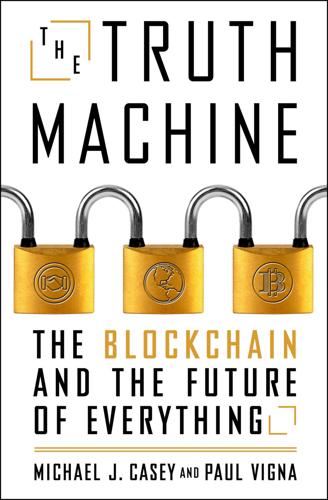
The Truth Machine: The Blockchain and the Future of Everything
by
Paul Vigna
and
Michael J. Casey
Published 27 Feb 2018
A Hacker’s Dream In the wake of the 2016 legal battle between Apple and the FBI over the latter’s demand that the smartphone maker give the law enforcement agency access to customers’ encrypted data, consumers would seem to be between a rock and a hard place. If we want to live in the digital economy, it seems, either we let private companies control the data with all the capacity for abuse that entails or we let governments control those private companies and expose ourselves to the kind of intrusions that Edward Snowden revealed at the NSA. But the choice need not be so stark. We hope to demonstrate that the solution may lie in a third way, one that involves reimagining the very structure of how online data is organized. The ideas behind Bitcoin and blockchain technology give us a new starting point from which to address this problem.
…
Not only would that company gain an unprecedented, privileged window onto the entire world of material things and human activity, but it would, in effect, put those centrally controlled companies in charge of what will be billions of machine-to-machine transactions of tokens and digital currencies. That would give a new meaning to the phrase “too big to fail.” One alternative is for governments to act as gatekeepers—but if you think Edward Snowden’s NSA snooping allegations were bad, just imagine the Feds intermediating all the personally revealing data flowing from your gadgets. No thanks. “The Internet was originally built on trust,” write the authors of the IBM paper, Veena Pureswaran and Paul Brody. “In the post-Snowden era, it is evident that trust in the Internet is over.
…
Well, Facebook’s subscribers now exceed 2 billion and Google’s are at 1.2 billion (via Gmail), while Twitter’s active users number around 320 million. If there were ever a measure of the influence these companies wield over our lives, surely it is that the data they hold on us quite literally defines who we are. This kind of corporate intrusion has sparked a backlash in the West. Edward Snowden’s revelations on the U.S. National Security Agency’s surveillance of personal data also entangled companies like this and thrust the issue into public debate. In James Graham’s engaging play Privacy, which featured Harry Potter star Daniel Radcliffe in the lead role for its New York premier (and included a cameo video feed from Snowden himself), audience members got a disturbing view of how the data on their phones accumulates and can be used against them, as those who gave permission had their trips with ride-hailing service Uber displayed on a giant screen.
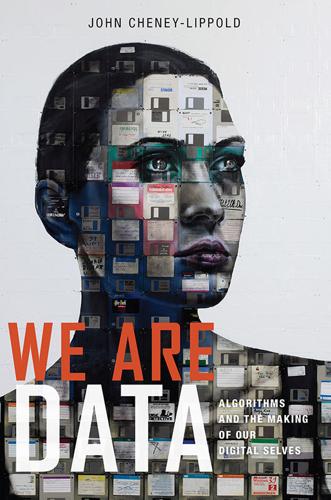
We Are Data: Algorithms and the Making of Our Digital Selves
by
John Cheney-Lippold
Published 1 May 2017
In this “as if” relation, we are defined according to digital theorist Seb Franklin’s understanding of “control as episteme” from chapter 2, a “wholesale reconceptualization of the human and of social interaction . . . to both model and direct the functional entirety of such forms of life.”8 For the NSA, these reconceptualized constraints were largely fashioned in secret, hidden behind an opaque suite of classified documents, practices, and technologies. That was until May 2013. In the beginning of that summer, Edward Snowden told his supervisors in Hawaii that he had epilepsy and would need to take medical leave. With four laptops in tow, the NSA contractor quietly landed in Hong Kong. In the weeks that followed, Snowden leaked to journalists hundreds of thousands of classified documents regarding the U.S. government’s global surveillance and data-mining programs.
…
The NSA’s surveillance program collected the “whole haystack” so that, citing then–NSA director General Keith Alexander, “whatever it is you want, you [can] go searching for it.”10 The ensuing debate over surveillance, privacy, and the dynamics therein took hold of global public discourse for years. As we learned from these Snowden-leaked NSA classified documents, the most ordinary of datafied events can determine how we are situated within the NSA’s rubrics of identification. In an interview in Russia with NBC’s Brian Williams, Edward Snowden described how an NSA analyst might use supposedly inconsequential data pieces to construct an idea of who you are as a user, thus adding yet another condition to your combined subject position: Williams: Did anyone [at the NSA] know or care that I Googled the final score of the Rangers-Canadiens game last night because I was traveling here?
…
Electronic Frontier Foundation, “2013 in Review: The Year the NSA Finally Admitted Its ‘Collect It All’ Strategy,” 2013, www.eff.org. 10. Ellen Nakashima and Joby Warrick, “For NSA Chief, Terrorist Threat Drives Passion to ‘Collect It All,’” Washington Post, July 14, 2013, www.washingtonpost.com. 11. NBC News, “Inside the Mind of Edward Snowden, Part 3,” May 29, 2014, www.nbcnews.com. 12. The NSA’s assemblage depends heavily on several different code-named programs: PRISM was the system used to access emails, chat messages, search queries, and personal data within Microsoft’s, Google’s, Yahoo!’s, Facebook’s, PalTalk’s, AOL’s, YouTube’s, Skype’s, and Apple’s secure networks; XKeyscore acted as a “front-end search engine” for all of the NSA’s recorded data—like a Google for the NSA’s huge cache of data that lets analysts search the near entirety of the past three to five days of Internet traffic; Trafficthief and MARINA both produced reservoirs of Internet metadata from physical wiretaps. 13.
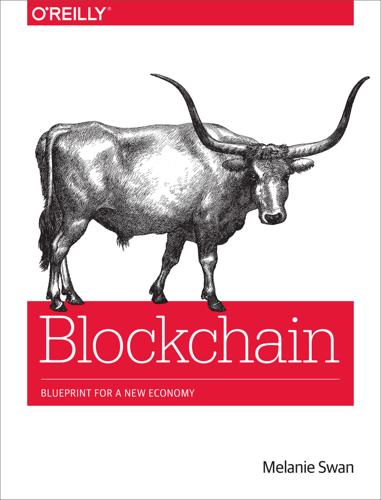
Blockchain: Blueprint for a New Economy
by
Melanie Swan
Published 22 Jan 2014
For example, to counter repressive political regimes, blockchain technology can be used to enact in a decentralized cloud functions that previously needed administration by jurisdictionally bound organizations. This is obviously useful for organizations like WikiLeaks (where national governments prevented credit card processors from accepting donations in the sensitive Edward Snowden situation) as well as organizations that are transnational in scope and neutral in political outlook, like Internet standards group ICANN and DNS services. Beyond these situations in which a public interest must transcend governmental power structures, other industry sectors and classes can be freed from skewed regulatory and licensing schemes subject to the hierarchical power structures and influence of strongly backed special interest groups on governments, enabling new disintermediated business models.
…
It is possible that blockchain mechanisms might be the most efficient and equitable models for administering all transnational public goods, particularly due to their participative, democratic, and distributed nature. A notable case in which jurisdictional nation-state entities were able to effect centralized and biased control is WikiLeaks. In the Edward Snowden whistle-blowing case in 2010, individuals were trying to make financial contributions in support of the WikiLeaks organization but, strongarmed by centralized government agendas, credit card payment networks and PayPal, refused to accept such contributions, and WikiLeaks was effectively embargoed.75 Bitcoin contributions, had they been possible at the time, would have been direct, and possibly produced a different outcome.
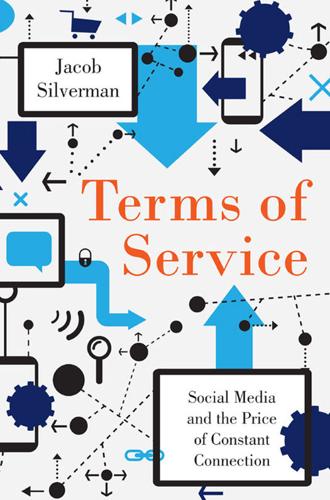
Terms of Service: Social Media and the Price of Constant Connection
by
Jacob Silverman
Published 17 Mar 2015
Due to vigorous reporting and important leaks from intelligence-industry whistleblowers, we now know that U.S. intelligence agencies, along with their foreign partners, have access to immense quantities of Internet traffic, some of it available in real time. “They quite literally can watch your ideas form as you type,” NSA whistleblower Edward Snowden told the Washington Post. The NSA recently opened a $2 billion data center in Utah, a facility designed to help crack previously unbreakable encryption methods and to store and mine the billions of e-mails, phone calls, and other electronic communications that the NSA sucks up around the world.
…
Surveillance, after all, is predicated on vigilance, discernment, and judgment. It’s an environment of suspicion, the definition of which has become elastic in an age of ubiquitous surveillance, when intelligence services, Facebook, and market research firms insist on collecting data about everyone. Edward Snowden helped popularize the term “suspicionless surveillance.” By this, he meant surveillance without cause, which shifts the presumption of innocence toward guilt. The mutual surveillance of social media still has the skeptical and judgmental qualities of classic surveillance, but now we must prove ourselves not as innocent but as worthy of interest, of being followed and celebritized.
…
Our friends become our press agents, and we return the favor for them, knowing that it grants us social capital. And we’ll present our lives as precious and perfect and worthy of being known, because there is no trite saying that better embodies celebrity than “fake it till you make it.” Your public awaits; it just might not know it yet. In rare cases, visibility serves as a form of security. Edward Snowden outed himself as the source of NSA leaks because it ensured that he couldn’t be spirited back to the United States and kept incommunicado. He pursued and embraced viral fame because there was safety in having his name known. To use a term native to digital culture, one that I’ll explore more deeply in the next chapter, he “doxed” himself—he revealed his identity.

Active Measures: The Secret History of Disinformation and Political Warfare
by
Thomas Rid
The second issue of Wired magazine, issued in May 1993, featured three of these “crypto rebels,” faces covered by white plastic masks with keys printed on their foreheads, bodies wrapped in the American flag. Ten years later, the Anonymous movement, which embodied many of the same rebellious values, would embrace nearly identical Guy Fawkes masks as its trademark. Another decade after that, Edward Snowden, the iconic intelligence leaker who likewise combined a belief in the power of encryption with far-out libertarian ideas, also appeared wrapped in the American flag on the cover of Wired. The movement’s breathless optimism expressed itself in slogans and themes: that information wanted to be free, sources open, anonymity protected, and personal secrets encrypted by default, yet government secrets could be exposed by whistle-blowers, preferably anonymously, on peer-to-peer networks.
…
And yet, at the fringes, this emerging subculture embraced a combination of radical transparency and radical anonymity, along with hacking-and-leaking, stealing-and-publishing—and thus created what had existed only temporarily before: the perfect cover for active measures, and not only thanks to the white noise of anonymous publication activity, from torrents to Twitter. What made the cover perfect was the veritable celebrity culture that surrounded first Julian Assange, then Chelsea Manning, and finally Edward Snowden. These self-described whistle-blowers were widely idolized as heroes, seen by their supporters as unflinching and principled in the face of oppression. The situation was a dream come true for old-school disinformation professionals. The internet first disempowered journalism and then empowered activism.
…
The leaked diplomatic cables spanned about a decade, and turned Assange and his website into household names. By 2013, Cryptome had collected and published just 70,000 files, many random and hand-curated. WikiLeaks was pushing out secret information on an industrial scale. Then, in June 2013, Edward Snowden opened the floodgates. The precise number of files Snowden exfiltrated from the NSA remains unclear, as does the number of files that were passed on to various media outlets and how access to the documents spread from these initial brokers as more and more media organizations reported on the files.
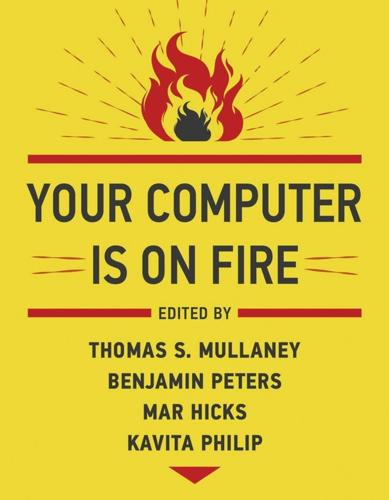
Your Computer Is on Fire
by
Thomas S. Mullaney
,
Benjamin Peters
,
Mar Hicks
and
Kavita Philip
Published 9 Mar 2021
Today’s euphemism “cloud computing,” a public relations triumph taken straight from the playbook of immaterial media myths, lacks the punch and clarity with which the Soviet network designers described “remote-access networking”; at least the Soviets had the pluck to call cloud computing what it remains today—a network designed to monitor, track, and survey all nodes in its reach.40 The network vocabulary inherited from the Cold War also needs a serious update: the oppositions between capitalism and socialism, private corporation and public state do not adequately describe the complex institutional practices that supported computer networks in Cold War mixed economies or today’s global network economy. Understanding the Cold War as an ideological battle between social freedoms and fairness, it is clearer in the wake of Edward Snowden’s revelations of the NSA’s global surveillance and the Russian hacking of the 2016 US elections that the very technology thought to herald the end of that conflict and to usher in an age of information freedom—global computer networks—has actually left no clear victor among our multipolar world of networked citizens and migrants.41 Instead, the sure victors of the last half century of network history have been large organizations—telecommunication companies, surveillance states, big tech (Amazon, Apple, Facebook, Google), internet providers, cybersecurity organizations, data broker services (SAS and SalesForce), and other technologically powerful few that, fueled by data breaches and the fumes of modern privacy, sort, toll, and monitor our many network traffic bottlenecks.
…
,” Scientific American 28 (January 2011), https://www.scientificamerican.com/article/egypt-internet-mubarak/. 35. Tom Parfitt, “Georgian Woman Cuts Off Web Access to Whole of Armenia,” Guardian (April 6, 2011), https://www.theguardian.com/world/2011/apr/06/georgian-woman-cuts-web-access. 36. Florian Sprenger, The Politics of Micro-Decisions: Edward Snowden, Net Neutrality, and the Architectures of the Internet (Lueneburg, Germany: Meson Press, 2015). See also Alex Galloway, Protocol: How Control Exists after Decentralization (Cambridge, MA: MIT Press, 2004); Laura Denardis, Protocol Politics: The Globalization of Internet Governance (Cambridge, MA: MIT Press, 2009). 37.
…
It would not, however, be the last.”18 In Connelly’s 1931 autobiography, and at the heart of the things that fascinated his generation, we see an exuberant imagination associated with material objects and the physical constraints of transporting them. In the shift from physical to virtual mail, tubes fell out of public imagination, even though information tubes of a different kind were proliferating around the world. The 1990s were a boom time for internet cable laying. So, too, were the years after Edward Snowden’s 2013 disclosures about NSA surveillance, which spurred many nations to start ocean-spanning cable projects, hoping to circumvent US networks. Undersea cable technology is not new; in the mid-nineteenth century, a global telegraph network depended on them. In the 1850s, undersea cables were made of copper, iron, and gutta-percha (a Malaysian tree latex introduced to the West by a colonial officer of the Indian medical service).
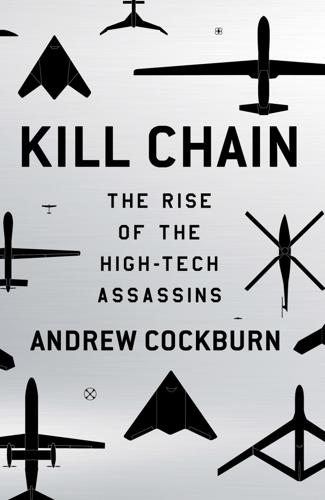
Kill Chain: The Rise of the High-Tech Assassins
by
Andrew Cockburn
Published 10 Mar 2015
Settling into their new home, the terrorists stayed in regular contact with the organization by phoning al-Midhar’s father-in-law’s house in Yemen, which served as an al-Qaeda message center. These conversations were duly swept up by the NSA’s omnivorous global eavesdropping system, but the intelligence went no further. Many years later, the electronic intelligence agency, under fire thanks to whistle-blower Edward Snowden’s revelations of its mass surveillance programs, would claim that had such programs been in place before 9/11, they would have nipped the attacks in the bud. President Obama himself, in defending the massive domestic “metadata” phone records program, repeated this canard. But, as a number of former senior NSA officials swiftly pointed out, the NSA not only had been intercepting calls to and from the Yemeni house since 1996 but also could very easily have traced them back to San Diego.
…
The devices, also known generically as “virtual base-tower receivers,” could be carried not only by a person or vehicle but also in a pod mounted on a drone. The implications of these developments in tracking technology were thrilling, at least to the NSA and its partners. An NSA document dated March 3, 2005, and later released by the whistle-blower Edward Snowden asks rhetorically: What resembles “LITTLE BOY” [one of the atomic bombs dropped on Japan during World war II] and as LITTLE BOY did, represents the dawn of a new era (at least in SIGINT and precision geolocation)? If you answered a pod mounted on an Unmanned Aerial Vehicle (UAV) that is currently flying in support of the Global War on Terrorism, you would be correct.
…
Openings at just the Langley node, for example, were appearing daily, with no sign of a slowdown even as Washington rang with talk of austerity and “a hollowed out military.” A typical day’s sample in early March 2014 advertised openings for, variously, a “systems administrator” (the position that Edward Snowden put to good use) required by CACI International, a “subject matter expert” sought by Sehike Consulting, an “intelligence capabilities analyst” required by Digital Management, while General Dynamics was looking for a network engineer. All positions required at least a Top Secret Clearance, and most mandated SCI (special compartmented information), which usually meant signals intelligence.
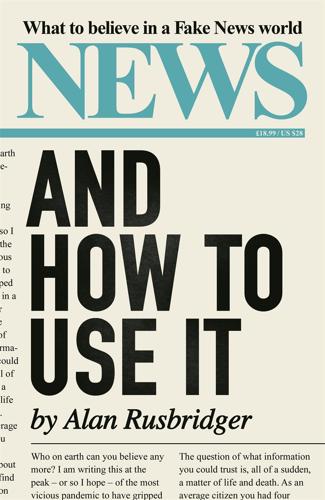
News and How to Use It: What to Believe in a Fake News World
by
Alan Rusbridger
Published 26 Nov 2020
It is one of the few times in US history that anyone has been punished under the Espionage Act for allegedly being in contact with a journalist. Both Bush and Obama took a heavy-handed approach to National Security Agency whistleblowers such as William Binney and Thomas Drake before going on to charge the most famous of them, Edward Snowden, who leaked tens of thousands of documents disclosing the capabilities of government for mass surveillance in the US and UK. Snowden is a case study of the competing definitions of ‘national security’. The agencies claimed the leaks damaged ‘national security’. Snowden and the journalists involved in the story countered that the leaks showed the governments in the US and UK were acting illegally and the public had a right to know about the scale of mass surveillance.
…
The original source for that story, it became apparent, was Bradley (now Chelsea) Manning, a twenty-three-year old US Army intelligence analyst. How much should editors have considered the purity of her motives? Or (as with the Pentagon Papers) was it enough just to look at the documentary evidence she had obtained? The same questions arose with Edward Snowden, who became the next most celebrated whistleblower to leak vast quantities of top secret documents, this time from the National Security Agency (NSA). No evidence has ever emerged that he was working on behalf of a foreign power, though many suggested as much. How much would it have mattered if he was?
…
How difficult is it to triangulate the phones and phone masts near you in that supposedly discreet greasy spoon where you agreed to meet your hush-hush source? There is still handwriting, and there are still brown envelopes. But the easier it becomes for the snoopers, the tougher it gets for journalists and whistleblowers. Edward Snowden did try and warn us. T TL;DR It stands for too long; didn’t read. It can be a criticism – ‘this is too long to be worth reading’ – sometimes accompanied by a two- or three-word distillation of what the writer was struggling to say. But it can also be used as a way of anticipating a shrug or yawn by including – at the top or bottom of an article or presentation – what used to be called an executive summary, but is now called tl;dr.

My Glorious Defeats: Hacktivist, Narcissist, Anonymous: A Memoir
by
Barrett Brown
Published 8 Jul 2024
I started off with several comedic pieces for Vice in which I reviewed Chuck Colson’s prison conversion saga Born Again, described the television-viewing habits of inmates, and expounded on the foibles of lyric censorship on the radio. Brave Barrett Brown, cracking jokes in the face of decades of prison time! Just a few months inside, I already had more material than I knew what to do with—enough, in fact, that I had the luxury of abandoning all but the most promising topics. Then Edward Snowden went public, taking with him a vast trove of documents from the NSA and allied agencies in the United States and abroad and providing an unprecedented picture of how our spy agencies are operating. Suddenly I was seeing Glenn Greenwald on television, telling the world of the mass surveillance apparatus described among some of the hundreds of thousands of documents in hand.
…
Some two years later, when Hitler invaded the Soviet Union and the latter turned to England and the United States for help, the line changed anew, and English communists would now speak fondly of Winston Churchill, who himself had hailed Mussolini not long prior as “the greatest lawgiver among men.” “Jailed since 2012 for his investigations, #BarrettBrown has finally been released from prison,” Edward Snowden had written in a tweet I found reprinted in a copy of the Dallas Morning News at the halfway house. “Best of luck in this very different world.” In fact, I recognized this world all too well. * * * The BOP’s standard early release conditions require that one seek employment, and the column seemed not to count any more than did the book deal I signed a few weeks after getting out.
…
At the same time, it was becoming plain that a public break was inevitable. Too much of what Assange now did and said was of such a character that I would have attacked anyone else for it. And to make even constructive criticism was to court conflict. I’d already heard of the July 2016 incident in which Edward Snowden had written, “Democratizing information has never been more vital, and Wikileaks has helped. But their hostility to even modest curation is a mistake,” prompting the official WikiLeaks account to retort, “Opportunism won’t earn you a pardon from Clinton & curation is not censorship of ruling party cash flows.”
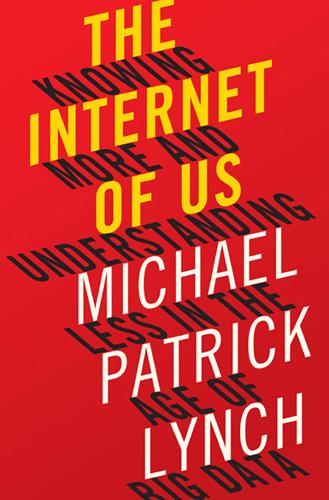
The Internet of Us: Knowing More and Understanding Less in the Age of Big Data
by
Michael P. Lynch
Published 21 Mar 2016
That’s because it depends on what you are hiding and whom you are hiding it from. Hiding a criminal past is one thing; hiding Jews in your basement from the Nazis is another. In reality, there are much more basic reasons information privacy matters to us. The Pool of Information In the summer of 2014, following the revelations of Edward Snowden, the Washington Post revealed what many had long suspected: that the NSA, in targeting foreign nationals, is collecting and storing extremely large amounts of information on American citizens.5 This information is not restricted to meta-data of the sort collected by the NSA’s infamous phone data collection program.
…
This is not just common sense, it explains why the NSA’s repeated assertions that they aren’t actually looking at the content of emails, or targeting Americans, should have been greeted with skepticism. The pool of data is a pool of knowledge. Knowledge is power; and power corrupts. It is difficult to avoid drawing the inference that absolute knowledge might corrupt absolutely. That, not surprisingly, is the view of folks like Edward Snowden. But a growing number of stories strongly suggest that fear of abuse is more than a mere theoretical worry. These examples are not constrained to the widely reported cases of NSA employees using their access to spy on sexual partners,6 nor to similar cases in the UK where analysts collected sexually explicit photos of citizens without cause.

The Secret World: A History of Intelligence
by
Christopher Andrew
Published 27 Jun 2018
See above, pp. 583–4, 591–3, 675. 83. See above, p. 673. 84. See above, p. 675. 85. Aldrich, GCHQ, pp. 399–400. 86. Andrew, For the President’s Eyes Only, pp. 483–4. 87. ‘Trump CIA director blames “worship of Edward Snowden” for rise in leaks’, Guardian, 24 June 2017. 88. https://www.cia.gov/news-information/speeches-testimony/2017-speeches-testimony/pompeo-delivers-remarks-at-csis.html. 89. Alan Judd, ‘Edward Snowden, MI5, The Guardian: who are the bad guys?’, Daily Telegraph, 9 Oct. 2013. 90. See above, pp. 712–13. 91. Andrew and Mitrokhin, Mitrokhin Archive, Introduction to paperback edn and ch. 1. Three other books are based on secret exfiltration of additional important material from KGB foreign-intelligence files: Andrew and Gordievsky (eds.), Instructions from the Centre and More Instructions from the Centre; Haynes, Klehr and Vassiliev, Spies. 92.
…
Seemingly half of the Tunisian business community can claim a Ben Ali connection through marriage . . .70 The publication of such reports arguably raised the reputation of the US foreign service. A limited number of ambassadors were, however, forced to leave or change their posts. Manning’s achievements as a whistleblower were far outdone by Edward Snowden, an NSA contractor who claimed that its electronic eavesdropping had spiralled out of control. In 2013 Snowden downloaded 1.5 million highly classified intelligence documents onto thumbnail drives – the largest ever breach of Western SIGINT security. Even Julian Assange was taken aback. Andrew O’Hagan, who was commissioned to ghostwrite Assange’s autobiography (which was never completed), found him ‘like an ageing movie star, . . . a little put out by the global superstardom of Snowden’.71 As Snowden began to release documents for publication by global media, he took refuge in, successively, Hong Kong and Moscow.
…
Unlike Mark Felt, Ellsberg’s identity quickly became public knowledge. Charged on twelve felony counts which carried a total maximum sentence of 115 years, he was found not guilty at a trial in 1973 on the grounds of governmental misconduct and illegal evidence gathering against him.§ Ellsberg later became a supporter of WikiLeaks, Chelsea Manning and Edward Snowden. Ellsberg’s example inspired NSA’s first whistleblower, Perry Fellwock, a 25-year-old former analyst opposed to the Vietnam War, to give an interview in 1972 to the radical Ramparts magazine. So little had been made public about NSA that Fellwock was the first insider to reveal that it had a budget larger than the CIA’s and to give some details of the global UKUSA network, but damaged his credibility by claiming total success in SIGINT operations against the Soviet Union: ‘The fact is that we’re able to break every code they’ve got, understand every type of communications equipment and enciphering device they’ve got.’* The New York Times reported that its own ‘intelligence sources both in and out of the Government had corroborated much of Mr.
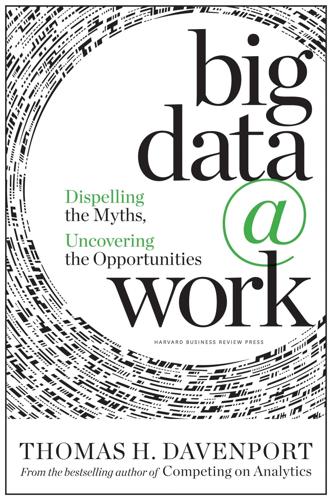
Big Data at Work: Dispelling the Myths, Uncovering the Opportunities
by
Thomas H. Davenport
Published 4 Feb 2014
He emphasizes the need for “analytics that work,” which he describes as analytics that are reliable and robust and capable of being automated. The analytics, algorithms, and user interfaces must be connected to provide new methods to interact with and support the “human in the loop.” Perhaps some of this push toward automation is being driven by the fact that at least one “human in the loop” in the intelligence community, Edward Snowden, used the data from the military and intelligence machinery to become what Michael Hayden, a former CIA and National Security Agency director, called “the most costly leaker of American secrets in the history of the Republic.”13 Chapter_01.indd 19 03/12/13 3:24 AM 20 big data @ work One element of the new architecture for big data is the view of discovery and analysis as the first order of business.
…
Schwartz was interviewed by Paul Barth and Randy Bean for “How Big Data Is Different.” 12. Spencer Ackerman, “Welcome to the Age of Big Drone Data,” Wired.com, April 25, 2013, http://www.wired.com/dangerroom/2013/04/drone-sensors-big-data/. Notes.indd 211 03/12/13 1:13 PM 212 Notes 13. Michael Hayden, “Ex-CIA Chief: What Edward Snowden Did,” CNN.com, July 19, 2013, http://www.cnn.com/2013/07/19/opinion/hayden-snowden-impact. 14. Peter Drucker, “The Next Information Revolution,” Forbes ASAP, August 24, 1998. 15. Thomas H. Davenport, “Recorded Future: Analyzing Internet Ideas About What Comes Next,” Case 613-083 (Boston: Harvard Business School, 2013). 16.
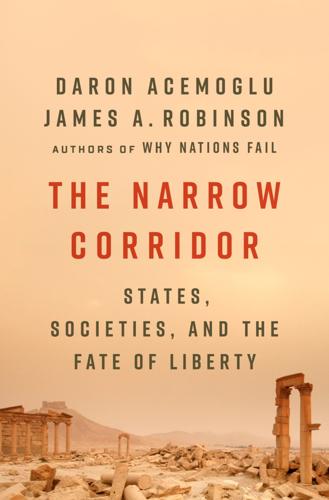
The Narrow Corridor: States, Societies, and the Fate of Liberty
by
Daron Acemoglu
and
James A. Robinson
Published 23 Sep 2019
So it developed these capacities on the side without much oversight from society. This set the scene for a Leviathan, though subject to myriad constraints and still wearing the imprint of its foundational weakness, in command of an unshackled security service and military. The resulting fearsome face of the American Leviathan was on display when Edward Snowden laid bare the massive surveillance and data-gathering activities of the National Security Agency targeted at U.S. citizens that had been taking place without any checks from society or even other branches of government. What Bill of Rights? So why did the FPD harass the city’s black citizens so much?
…
The public-private partnerships and the constraints on the state, even as it was getting emboldened, have shaped other dimensions of state actions as well. They explain how the U.S. mobilized for World War II and the way it organized to fight the Cold War. They also account for the controversial role that contractors and companies such as Halliburton and Blackwater played in the Iraq War. It’s worth recalling that Edward Snowden, at the time of his explosive revelations about the National Security Agency’s secret data collection program, was a private contractor for the Central Intelligence Agency. Who Gets Their Kicks on Route 66? The shifting mix of private and public provision was an expedient way for the American state to gain greater capacity over time, but it also meant that it was particularly hamstrung in dealing with several critical problems.
…
But how can the citizenry do that if it has no idea about what the FBI, the CIA, or the military are up to? The revelations about the NSA wiretapping programs should thus be seen as a continuation of this trend of expanding military and security powers away from the supervision and monitoring of either other branches of the government or society at large. Information revealed by Edward Snowden indicates that the NSA used several different media, ranging from Internet servers and satellites to underwater fiber-optic cables and phone records in order to collect information about both foreigners, including leaders of American allies such as Germany and Brazil, and millions of Americans.
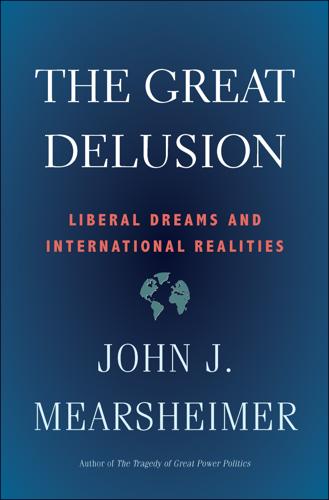
The Great Delusion: Liberal Dreams and International Realities
by
John J. Mearsheimer
Published 24 Sep 2018
The deep affection for secrecy shown by both the Bush and Obama administrations is not surprising in light of their illegal or at least questionable surveillance of American citizens, which they tried to hide from the public, Congress, and the courts.74 This is one reason President Obama was so determined to punish Bradley Manning and Edward Snowden, and more generally why he went to war with unprecedented fervor against reporters and whistleblowers.75 He also went to great lengths to disguise how deeply involved the United States was in the Syrian civil war, and to divulge as little information as possible about drone strikes. Obama was given to claiming that he ran “the most transparent administration in history.”76 If true, the credit should go to the reporters and whistleblowers who defied his deep commitment to government secrecy.
…
Even when the government thinks someone is dangerous or behaving unlawfully, it ordinarily cannot act without judicial approval. There is little doubt the Bush administration was engaged in warrantless surveillance of American citizens from shortly after 9/11 until January 2007.80 We also know, thanks to Edward Snowden, that the government, mainly the NSA, also searches and stores vast amounts of emails and text-based messages.81 While limited by law to monitoring international communications for foreign intelligence purposes, the NSA nevertheless collected domestic communications between American citizens.
…
Also see Dana Priest and William M. Arkin, Top Secret America: The Rise of the New American Security State (New York: Back Bay Books, 2011); Charlie Savage, Power Wars: The Relentless Rise of Presidential Authority and Secrecy (New York: Back Bay, 2017). 75. Glenn Greenwald, No Place to Hide: Edward Snowden, the NSA, and the U.S. Surveillance State (New York: Picador, 2015), chap. 5. 76. Jonathan Easley, “Obama Says His Is ‘Most Transparent Administration’ Ever,” The Hill, February 14, 2013. 77. These definitions are taken from John J. Mearsheimer, Why Leaders Lie: The Truth about Lying in International Politics (New York: Oxford University Press, 2011), chap. 1. 78.

Silk Road
by
Eileen Ormsby
Published 1 Nov 2014
One store was perhaps not as dark as the others: ‘Medical marijuana market ONLY. No chems allowed.’ Others, darker: they offered to sell cyanide, ricin and other poisons that had no discernible medical or recreational purpose. Browsing the Hidden Wiki makes it obvious why many who visit the dark web want their activities to remain anonymous. Even before the Edward Snowden affair, where a former CIA employee leaked details of global surveillance operations by governments, people had become suspicious that authorities could track every site visited and every keystroke made, which could become rather inconvenient for those who wanted to purchase cocaine or heroin online.
…
As membership grew, the servers strained under the enormous amount of traffic and Silk Road became the target of malicious hackers and, some suspected, law enforcement attempting to bring the website down. It wasn’t difficult to imagine what law enforcement thought of the technologies that allowed black markets to thrive openly and in defiance of politicians, police and outraged talkback callers. Tor, PGP and bitcoin had made their lives very difficult. When whistleblower Edward Snowden released his barrage of documents in 2013, purportedly among them was a top-secret National Security Agency (NSA) presentation from June 2012 about Tor. The leaked document described the ways in which NSA had been frustrated by Tor and the agency’s acknowledgment that Tor was really quite secure.
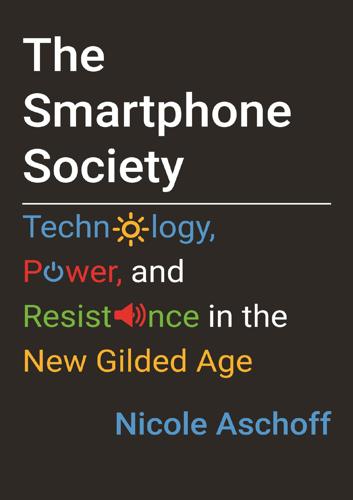
The Smartphone Society
by
Nicole Aschoff
Also to the benefit of companies and settlers, the US military cleared the land of Native Americans—a population that the historian Alan Trachtenberg argues was seen as “the utmost antithesis to an America dedicated to productivity, profit, and private property.”68 In short, private property and corporate rights in the new western frontier were enforced by a deep partnership between US companies, the federal government, and the military. The intertwining of martial virtues and entrepreneurial adventurism has never wavered in the development of the United States, but it slipped from public attention in recent years. Until, that is, Edward Snowden, a system administrator for government consulting firm Booz Allen Hamilton, fled to Hong Kong in 2013, taking a thumb drive containing thousands of classified NSA (National Security Agency) documents with him. The US government is usually seen as a bit player in the modern digital frontier. Although many are aware that the first version of the internet, ARPANET (Advanced Research Projects Agency Network), was created by the Department of Defense in the late 1960s, most people familiar with the internet’s creation assume that when the government gave the internet to private telecoms in the early nineties it reduced its role in the digital world.
…
Operation Haymaker, a special-ops campaign in northeastern Afghanistan, provides a sense of both how unreliable signals intelligence is and, more broadly, the “collateral damage” of war in the smartphone age: “During one four-and-a half month period of the operation, nearly 90 percent of the people killed in airstrikes were not the intended targets.”23 As Edward Snowden says, surveillance technologies are “limited to war zones at first,” but eventually “surveillance technology has a tendency to follow us home.”24 Technologies developed for military use are used by American police departments and intelligence services to track American civilians. One such technology is “stingrays” (or IMSI catchers)—portable devices that mimic cell-phone towers, tricking any nearby phones into connecting with them, thus revealing their location and identifying information.
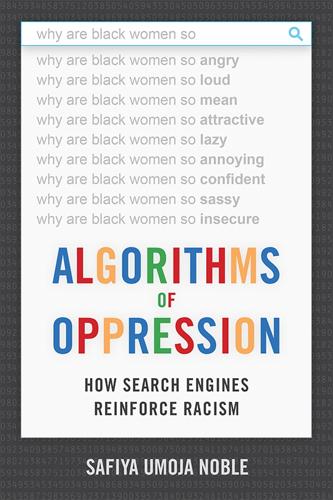
Algorithms of Oppression: How Search Engines Reinforce Racism
by
Safiya Umoja Noble
Published 8 Jan 2018
The information studies scholars Jean-François Blanchette and Deborah Johnson suggest that the tremendous capture and storage of data, without plans for data disposal, undermines our “social forgetfulness,” a necessary new beginning or “fresh start,” that should be afforded people in the matter of their privacy record keeping. They argue that much policy and media focus has been on the access and control that corporations have over our personal information, but less attention had been paid to the retention of our every digital move.15 The Edward Snowden revelations in 2014 made some members of the public aware that governments, through multinational corporations such as Verizon and Google, were not only collecting but also storing private records of digital activity of millions of people around the world. The threats to democracy and to individual privacy rights through the recording of individuals’ information must be taken up, particularly in the context of persistent racialized oppression.
…
“Security Whitepaper: Google Apps Messaging and Collaboration Products,” 2011, linked from Google, “Data and Security,” accessed August 16, 2016, www.google.com/about/datacenters/inside/data-security/. 22. See Storm, 2014. 23. Blanchette and Johnson, 2002, 36. 24. See Xanthoulis, 2012, 85, citing Fleischer, 2011. 25. Ibid. 26. See Google, 2012. 27. A comprehensive timeline of Edward Snowden’s whistleblowing on the U.S. government’s comprehensive surveillance program is detailed by the Guardian newspaper in MacAskill and Dance, 2013. 28. Tippman, 2015. 29. Kiss, 2015. 30. Goode, 2015. 31. See Robertson, 2016. 32. Ibid. CHAPTER 5. THE FUTURE OF KNOWLEDGE IN THE PUBLIC 1.

Scotland’s Jesus: The Only Officially Non-Racist Comedian
by
Frankie Boyle
Published 23 Oct 2013
I’ll happily print out all the pages I’ve been looking at on the net and post them to her. It’d be identical to what John Terry sees moments before he dies and his life flashes before his eyes. GCHQ and the NSA have been using Google to get information. To be fair, we all do that. Whistleblower Edward Snowden left the US so suddenly the intelligence services didn’t even have time to get a rape allegation together. Snowden exposed the US government’s internet spying programme PRISM. Is it just me or does PRISM sound like one of the pathetic team names on The Apprentice? Instead of spying, you expect to see a woman in a pencil skirt trying to negotiate the price of curtains in East London.
…
I only had to bury four shop mannequins in my garden before I got a free new front door after police kicked the old one off its hinges. Result. It must be weird working for the CIA. The boss comes in and you’ve been looking at spreadsheets, and you have to really quickly pretend that you were actually really busy on Facebook. Edward Snowden’s given me the cheat codes for America and soon I will make a bulletproof Barack Obama fly into an Iranian nuclear reactor. What’s next for Snowden? I’m guessing plastic surgery and a lifetime of burritos. If MI5 were an organisation that was really working for the public’s interest they wouldn’t want to discover your secrets but they’d work tirelessly to help you keep them.
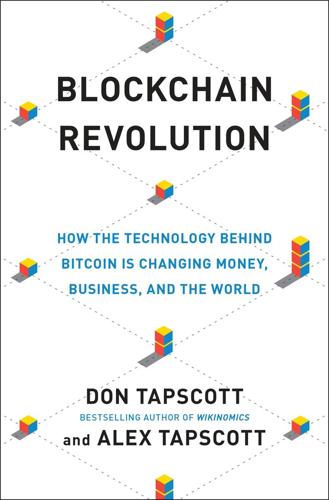
Blockchain Revolution: How the Technology Behind Bitcoin Is Changing Money, Business, and the World
by
Don Tapscott
and
Alex Tapscott
Published 9 May 2016
Also see: www.whitehouse.gov/blog/2013/11/20/building-smarter-more-efficient-government-through-pay-success. 29. R. C. Porter, “Can You ‘Snowden-Proof’ the NSA?: How the Technology Behind the Digital Currency—Bitcoin—Could Stop the Next Edward Snowden,” Fortuna’s Corner, June 3, 2015; http://fortunascorner.com/2015/06/03/can-you-snowden-proof-the-nsa-how-the-technology-behind-the-digital-currency-bitcoin-could-stop-the-next-edward-snowden/. 30. Elliot Maras, “London Mayoral Candidate George Galloway Calls for City Government to Use Block Chain for Public Accountability,” Bitcoin News, July 2, 2015; www.cryptocoinsnews.com/london-mayoral-candidate-george-galloway-calls-city-government-use-block-chain-public-accountability/. 31.
…
PRIVACY, FREE SPEECH, AND FREE PRESS ON THE BLOCKCHAIN Personal privacy, free speech, and free press are essential to an open, free, and prosperous society. On one hand, citizens must be able to communicate privately and anonymously. On the other hand, they must be able to speak freely and securely without fear of repercussion. Online censorship, the hacking of large institutions and civil society, and Edward Snowden’s revelations of mass and targeted surveillance and data fracking have driven citizens of well-established democracies to seek anonymity and encryption technologies. These tools enable them to disguise their identities and scramble their messages in transit and in storage so that only authorized persons may access them.
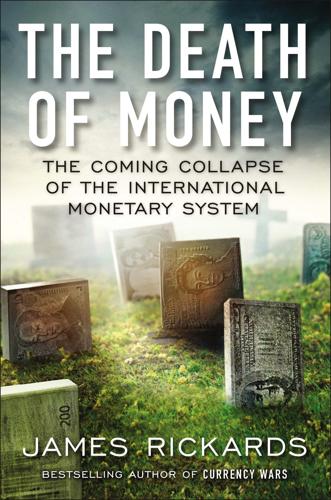
The Death of Money: The Coming Collapse of the International Monetary System
by
James Rickards
Published 7 Apr 2014
The last thing it needed was another media black eye, even if our program was effective and legal. In fact, Morell’s instincts proved prophetic. On November 14, 2013, The Wall Street Journal actually did run a headline that said “CIA’s Financial Spying Bags Data on Americans.” But coming as it did in the midst of a wave of similar revelations by defector Edward Snowden, this disclosure went almost unnoticed. I told Morell that we would end our SEC referrals, and I offered to provide him with the technical specifications needed to assure the agency that the information we used was open source and involved no individuals. He thanked me, and with that the meeting was over.
…
It collects intelligence information on foreign targets by surreptitiously hacking into their computers and telecommunications systems, cracking passwords, compromising the computer security systems protecting the targeted computer, stealing the data stored on computer hard drives, and then copying all the messages and data traffic passing within the targeted email and text-messaging systems. Spying operations such as TAO are far more sophisticated than the relatively simple sweeps of e-mail and telephone message traffic revealed by Edward Snowden in 2013. Wall Street is also improving its finance-related cyberabilities. On July 18, 2013, a securities industry trade organization sponsored a financial war game, called Quantum Dawn 2, that involved more than five hundred individuals from about fifty entities and government agencies. Quantum Dawn 2 was aimed principally at preventing attacks that would disrupt normal trading.
…
Petersburg on September 5, 2013, held in conjunction with the G20 Leaders Summit. At that summit, the BRICS agreed that their contributions to the new fund would come 41 percent from China, 18 percent each from Russia, Brazil, and India, and 5 percent from South Africa. In a surprising coda to the revelations of U.S. spying on allies emerging from defector Edward Snowden, Brazil announced plans in September 2013 to build a twenty-thousand-mile undersea fiber optic cable network from Fortaleza, Brazil, to Vladivostok, Russia, with links in Cape Town, South Africa, Chennai, India, and Shantou, China, to be completed by 2015. This system is tantamount to a BRICS Internet intended to be free from U.S. surveillance.
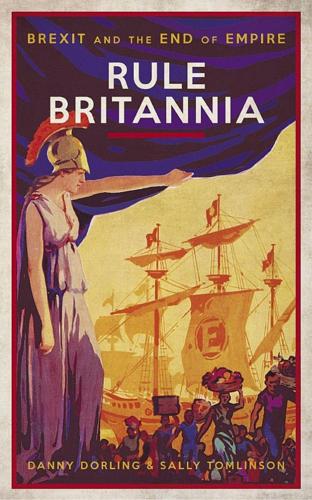
Rule Britannia: Brexit and the End of Empire
by
Danny Dorling
and
Sally Tomlinson
Published 15 Jan 2019
Tory in charge of Universal Credit fails to turn up to emergency debate on bungled rollout’, Daily Mirror, 24 October, http://www.mirror.co.uk/news/politics/wheres-david-gauke-tory-charge-11400282 48 Press Association (2018) ‘Government faces £1.67bn bill for underpaying disabled benefits’, Powys County Times, 17 October, http://www.countytimes.co.uk/news/national/16989630.government-faces-167bn-bill-for-underpaying-disabled-benefits/ 49 Bowcott, O. (2017) ‘Lord Chief Justice attacks Liz Truss for failing to back Article 50 judges’, The Guardian, 22 March, https://www.theguardian.com//politics/2017/mar/22/lord-chief-justice-castigates-liz-truss-for-failing-to-defend-judges 50 Chambre, A. (2017) ‘Liz Truss says she would now back Brexit’, Politics Home, 11 October, https://www.politicshome.com/news/uk/foreign-affairs/brexit/news/89727/liz-truss-says-she-would-now-back-brexit 51 Mason, R. (2013) ‘Edward Snowden NSA files: Guardian should be prosecuted, says Tory MP’, The Guardian, 22 October, https://www.theguardian.com/politics/2013/oct/22/edward-snowden-guardian-should-be-prosecuted-tory-mp 52 Cole, H. (2017) ‘Defending the indefensible: Theresa May backs Attorney General Jeremy Wright after he lands public with MASSIVE bill by losing Brexit case’, The Sun, 24 January, https://www.thesun.co.uk/news/2697011/theresa-may-backs-attorney-general-jeremy-wright-after-he-lands-public-with-massive-bill-by-losing-brexitcase/ 53 Smith, M., Blanchard, J. and Bloom, D. (2016) ‘Highest-earning Tory MP claimed £1 on expenses for cheap bin bags’, Daily Mirror, 13 May, https://www.mirror.co.uk/news/uk-news/highest-earning-tory-mp-claimed-7959693 54 McSmith, A. (2016) ‘Geoffrey Cox: Tory MP has expenses claim for 49p pint of milk rejected by Commons’, The Independent, 14 January, https://www.independent.co.uk/news/uk/politics/geoffrey-cox-tory-mp-has-expenses-claim-for-49p-pint-of-milk-rejected-by-commons-a6813131.html 55 https://en.wikipedia.org/wiki/Brandon_Lewis#Expenses 56 Dunt, I. (2012) ‘The Ten Worst MPs on Twitter: 8 – Damian Hinds’, Politics.co.uk, 15 May, http://www.politics.co.uk/comment-analysis/2012/05/15/the-ten-worst-mps-on-twitter-8-damian-hinds 57 Wilby, P. (2018) ‘The European Research Group is the Tory group more powerful than Momentum’, New Statesman, 4 February, https://www.newstatesman.com/2018/02/european-research-group-tory-group-more-powerful-momentum 58 Montgomerie, T. and Pancevski, B. (2017) ‘May drafts Gove in to Brexit war Cabinet’, Sunday Times, 3 November, https://www.thetimes.co.uk/article/theresa-may-drafts-michael-gove-into-brexit-war-cabinet-p6g0rdzz0 59 Hope, C. (2012) ‘Exclusive: Cabinet is worth £70million’, Daily Telegraph, 27 May, http://www.telegraph.co.uk/news/politics/9290520/Exclusive-Cabinet-is-worth-70million.html 60 Weaver, M. (2015) ‘British slavery reparations Q&A’, The Guardian, 30 September, https://www.theguardian.com/world/2015/sep/30/british-slavery-reparations-qa 61 Belltoons.co.uk, 21 November 2015. 62 BrexitCentral (2017) ‘Brexit News for Wednesday 6 September’, http://brexitcentral.com/today/brexit-news-wednesday-6-september/ 63 Hope, C. (2012) ‘Exclusive: Cabinet is worth £70million’, op. cit. 64 Watkins, J. et al. (2017) ‘Effects of health and social care spending constraints on mortality in England: a time trend analysis’, British Medical Journal Open, pp. 7, 11, http://bmjopen.bmj.com/content/7/11/e017722 65 Lambert, V. (2014).
…
She voted Remain and then switched to Brexit.50 Julian Smith, an MP since 2010, was little known before being promoted from Deputy to Chief Whip in November 2017. In 2013, he was accused of authoritarianism when he called for The Guardian newspaper to be prosecuted for publishing stories about the extent of state surveillance based on leaks from the US whistleblower Edward Snowden. His remarks were condemned as McCarthyism and ‘absolute scaremongering’ by Labour MPs.51 Jeremy Wright [3] became Attorney General in 2014, breaking the usual tradition of appointing a QC. Under Wright’s aegis, the government was repeatedly taken to court and lost, appealed and lost again. After failing to overturn a court case insisting that Parliament had a right to vote on Brexit, a Conservative MP simply said, ‘It would be better to have a more senior lawyer around the table.’52 Jeremy Wright became Culture Secretary on 9 July 2018.

Doppelganger: A Trip Into the Mirror World
by
Naomi Klein
Published 11 Sep 2023
“It’s like a goddamned conspiracy.” Then we both burst out laughing. In the decade since Occupy, Wolf has connected the dots between an almost unfathomably large number of disparate bits of fact and fantasy. She has floated unsubstantiated speculations about the National Security Agency whistleblower Edward Snowden (“not who he purports to be,” hinting that he is an active spy). About U.S. troops sent to build field hospitals in West Africa during the 2014 Ebola outbreak (not an attempt to stop the disease’s spread, but a plot to bring it to the United States to justify “mass lockdowns” at home). About ISIS beheadings of U.S. and British captives (possibly not real murders, but staged covert ops by the U.S. government starring crisis actors).
…
The past two decades have been a nonstop drip of shocking revelations about the myriad ways in which the record of our daily and intimate lives has somehow become the property of others. First came the Patriot Act and the post-9/11 spawning of a global surveillance industry. Then the AT&T whistleblower came forward to tell us of secret rooms where data about global internet traffic was being forwarded to the National Security Agency. Then came Edward Snowden’s harrowing leaks and the confirmation of this massive data dragnet, followed by the Cambridge Analytica scandal and the revelation that Facebook was selling users’ data to third parties for political manipulation. Then came Pegasus, the self-cloaking Israeli-designed spyware that was being used by governments around the world to gain full access to the phones of their opponents and critics.
…
“Sadly, Americans this week”: Wolf, “The Shocking Truth About the Crackdown on Occupy.” “Her partner, the film producer Avram Ludwig”: Matt Wells, “Occupy Wall St: Naomi Wolf Condemns ‘Stalinist’ Erosion of Protest Rights,” The Guardian, October 19, 2011. “not who he purports to be”: Joe Coscarelli, “Naomi Wolf Thinks Edward Snowden and His Sexy Girlfriend Might Be Government Plants,” New York Magazine, June 14, 2013; Naomi Wolf, “My Creeping Concern That the NSA Leaker Is Not Who He Purports to Be…,” Facebook Notes, posted June 15, 2013, updated March 14, 2021. “mass lockdowns”: Naomi Wolf, Facebook post, September 30, 2014.
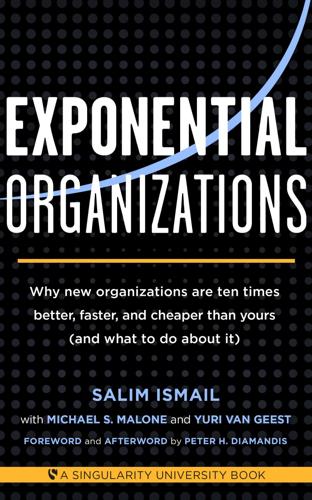
Exponential Organizations: Why New Organizations Are Ten Times Better, Faster, and Cheaper Than Yours (And What to Do About It)
by
Salim Ismail
and
Yuri van Geest
Published 17 Oct 2014
Some premium news organizations, such as the New York Times and Wall Street Journal, have thus far avoided that fate thanks to paywalls or freemium models. But few have actually changed their fundamental model. Meanwhile, a plethora of new media startups have entered the field, among them Medium, Inside, BuzzFeed, Mashable, Blendle and Correspondent. The Guardian, a UK-based newspaper best known for unleashing Edward Snowden’s revelations onto the world, has been furiously innovating on the traditional model of newsgathering. Advised by industry icons Jeff Jarvis and Nicco Mele (who describes the Guardian’s model in his recent book, The End of Big: How the Internet Makes David the New Goliath), the Guardian has been audacious in its efforts to reinvent journalism.
…
Goodman recommends that CIOs run Red Ops teams to find hidden breaches before external agents can exploit them, pointing to a study showing that if you leave a thumb drive in an office parking lot, 60 percent of employees will plug it into their corporate computers to see what is on it (thus instantly compromising security). If the company logo happens to be printed on the thumb drive (an absurdly easy ruse), a whopping 90 percent of employees will plug it in. Does your company’s CIO ban all thumb drives and work overtime to alert all employees (not to mention contractors, who are the potential Edward Snowdens on your payroll) to this particular danger? Key Area to Track Implications and Actions BYOx Bring your own devices, technology, services and sensors to the company, providing a lot more data and resulting in more possibilities and innovation. Cloud access Access to social technologies, data and services everywhere, independent of location (cloud access).
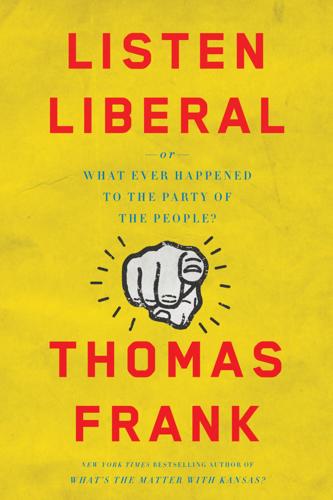
Listen, Liberal: Or, What Ever Happened to the Party of the People?
by
Thomas Frank
Published 15 Mar 2016
Similarly, it was “unprofessionalism” (in the description of Thomas Friedman) that embarrassed the insubordinate Afghan-war General Stanley McChrystal, who made ill-considered remarks about the president to Rolling Stone magazine. And in the summer of 2013, when National Security Agency contractor Edward Snowden exposed his employer’s mass surveillance of email and phone calls, the aspect of his past that his detractors chose to emphasize was … his failure to graduate from high school.14 How could such a no-account person challenge this intensely social-science-oriented administration? But it was public school teachers who made the most obvious target for professional reprimand by the administration.
…
She was introduced on that occasion by Google’s Eric Schmidt, who praised her as “the most significant secretary of state since Dean Acheson”; Hillary reciprocated by calling Schmidt a “co-conspirator” and welcomed the participation of his company, which she said was “co-hosting” the freedom-ringing proceedings.18 As everyone would soon learn with the help of a National Security Agency contractor named Edward Snowden, to understand the Internet in terms of this set-piece battle of free speech versus censorship was to miss the point entirely. There’s something else the Internet makes it easy for governments to do—something called “mass surveillance,” and, we later learned, the very government Hillary Clinton served was the one doing it.
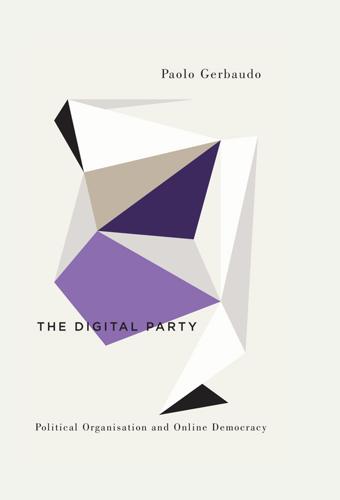
The Digital Party: Political Organisation and Online Democracy
by
Paolo Gerbaudo
Published 19 Jul 2018
The conflict around digital freedoms regards the condition of the individual vis-à-vis large-scale organisations such as corporations and the state and the emergence of new forms of online surveillance. The consequences of Big Data on civil liberties and individual privacy have become widely debated after a number of famous events, from the revelations made in 2013 by U.S. information analyst Edward Snowden about the way digital companies were collaborating with the National Security Agency to conduct mass surveillance on internet users, to the 2018 controversy surrounding Cambridge Analytica and its data misuse. A concern about privacy was also central to Pirate Parties’ campaigning in defence of peer-to-peer file-sharing, as it was felt that preventing people from downloading copyrighted material would have involved large-scale surveillance.
…
In fact, since Pirate Parties’ early days, one of the arguments in defence of peer-to-peer file exchange was precisely that in order to block it, governments would have had to conduct very intrusive controls on people’s online activities. The urgency of this issue has become all the more apparent in the aftermath of the 2013 Edward Snowden revelations about the doings of the National Security Agency mass surveillance operations, and after the Cambridge Analytica scandal which highlighted the scale of Facebook’s mishandling of user data. Activists have proposed various solutions, including the use of encrypted communication and the development of the Tor (the onion router) tunnelling service, which shields internet users from control over their internet activity.
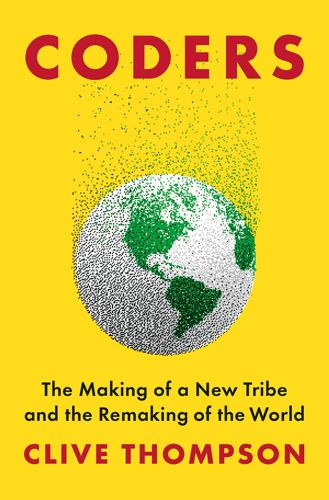
Coders: The Making of a New Tribe and the Remaking of the World
by
Clive Thompson
Published 26 Mar 2019
He decided he was a “small government socialist,” supporting a state that provided basic humanitarian goods like centralized health care, but otherwise kept its nose out of people’s business. That wasn’t the way the world was going, though. Indeed, increasingly the government was getting caught poking its nose deeply into people’s lives. In 2013, Edward Snowden revealed that the NSA was collecting everyday Americans’ phone calls, hoovering up chat messages, and tapping into the backbones of services like Google and Yahoo! Phillips was horrified. But it also seemed like an area where he could make an impact. He’d been reading up on cryptographic history and watching videos where Julian Assange and the founders of the Tor project talked about the need for better, easy-to-use tools for everyday people to enable them to remain private online.
…
“People should have the ability to read freely, speak freely, which you don’t have when everything is being watched by the government, and they can take action against you when they don’t like what they’re seeing,” she says. “The kid who got raided in New York for having a cop emoji next to a gun emoji? That’s nuts, that’s insane and draconian.” Nonetheless, she’d still sometimes get called paranoid. “You’re a conspiracy theorist,” she’d be told—until 2013, when Edward Snowden made the headlines. A computer-security contractor for the NSA, Snowden leaked thousands of documents showing that the agency was, indeed, spying on everyday Americans to a fantastic degree. The Snowden revelations galvanized cypherpunks, and they also provided a measure of validation. See, we’re not tinfoil-hat crazy.
…
: Barton Gellman, “NSA Infiltrates Links to Yahoo, Google Data Centers Worldwide, Snowden Documents Say,” Washington Post, October 30, 2013, accessed August 19, 2018, https://www.washingtonpost.com/world/national-security/nsa-infiltrates-links-to-yahoo-google-data-centers-worldwide-snowden-documents-say/2013/10/30/e51d661e-4166-11e3-8b74-d89d714ca4dd_story.html; Barton Gellman, Aaron Blake, and Greg Miller, “Edward Snowden Comes Forward as Source of NSA Leaks,” Washington Post, June 9, 2013, accessed August 19, 2018, https://www.washingtonpost.com/politics/intelligence-leaders-push-back-on-leakers-media/2013/06/09/fff80160-d122-11e2-a73e-826d299ff459_story.html. crowdsourced-journalism project: Andy Greenberg, ‘‘Anonymous’ Barrett Brown Is Free—and Ready to Pick New Fights,” Wired, December 21, 2016, accessed August 19, 2018, https://www.wired.com/2016/12/anonymous-barrett-brown-free-ready-pick-new-fights/.

Homeland: The War on Terror in American Life
by
Richard Beck
Published 2 Sep 2024
Finally, Obama oversaw a secret government surveillance apparatus that reached deep into the private lives of Americans, targeting not just those suspected of terrorism but hundreds of millions of innocent civilians. Though not in office when these systems were built, he made a conscious choice to allow them to continue operations without any public scrutiny. It was not until almost five years into Obama’s presidency that Edward Snowden, a former contractor for the National Security Agency, revealed that the NSA had constructed a bulk surveillance program that was monitoring the phone calls and emails of millions of Americans, not to mention those of millions more around the globe (the Snowden leaks would push German-American relations, for example, to their lowest point since before the Iraq War).
…
Dedicated water, gas, and food supplies could sustain fifteen hundred people for two weeks, and the structure was designed to withstand a nuclear fallout.[1] AT&T moved some of its equipment out of the building following an embarrassing central switch malfunction in 1991, but after September 11 it relocated some of the offices that had been destroyed at the World Trade Center to 33 Thomas. September 11 was just the beginning of AT&T’s new lease on life at Long Lines. In 2016, two reporters working for The Intercept found among the documents leaked by the whistleblower and NSA contractor Edward Snowden more or less conclusive evidence that 33 Thomas Street was also a crucial hub for the National Security Agency’s mass surveillance operation. The documents in question referred to a New York City surveillance site code-named TITANPOINTE, and they also informed NSA employees planning to travel to TITANPOINTE that their visit would be supervised by a “partner” with the code name LITHIUM, which was the NSA’s code name for AT&T.
…
Their goals were different—the government wanted to prevent further terrorist attacks, while the tech companies simply wanted to make money—but they could be achieved by the same means. Many Americans had begun to suspect that something like this kind of network was being constructed very soon after September 11, and their suspicions were confirmed a little more than a decade later when Edward Snowden leaked information about the government’s domestic spying operation. Despite more than two decades during which to think about the implications of this operation, however, trying to understand the effects of surveillance on people’s daily lives is a bit like staring at the blank walls of the Long Lines Building and wondering uselessly about what exactly goes on in there.
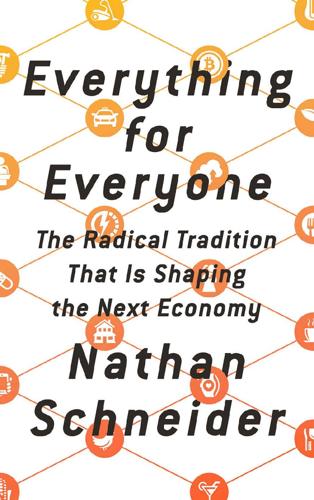
Everything for Everyone: The Radical Tradition That Is Shaping the Next Economy
by
Nathan Schneider
Published 10 Sep 2018
The unMonastery vision went viral among the Edgeryders. It fit into a widely felt longing at the time, evident in many parts of Europe and North America where protest had been breaking out, to start figuring out practical alternatives to the failed order. This was the period, too, of National Security Agency whistleblower Edward Snowden’s leaks, of persecuted hacker Aaron Swartz’s suicide, of blockades against techie commuter buses in San Francisco. Google became one of the world’s leading lobbyists, and Amazon CEO Jeff Bezos bought the Washington Post. The internet could no longer claim to be a postpolitical subculture; it had become the empire.
…
When I was first deciding whether to join, I went to visit May First’s founders, Jamie McClelland and Alfredo Lopez, at their office in Sunset Park, Brooklyn, where we spent a few hours discussing our technological preferences and life stories. I learned that they pay a premium to keep the servers in the city, rather than in some far-off data center. It’s important for them to have physical access in case something goes haywire. They like to keep our data close. I joined May First about a year after Edward Snowden’s leaks, when it became clearer how the National Security Agency had deputized corporate cloud services for blanket surveillance. I’m not sure if I do anything especially worth spying on, but I figured I’d try to opt out. The May First team has a record of resistance to snooping law-enforcement agencies; McClelland more recently told me about the security system they’d built around the servers, which relays its data outside US borders.

Hiding in Plain Sight: The Invention of Donald Trump and the Erosion of America
by
Sarah Kendzior
Published 6 Apr 2020
During his 2012 presidential debate with Mitt Romney, Obama laughed off the Russian threat, telling Romney: “The 1980s called—they want their foreign policy back.”32 But even after the dangers of Putin’s Russia were clear, the administration did little to combat them. Obama’s second term was particularly egregious in its dereliction of duty. In 2013, Russia gave shelter to Edward Snowden, an NSA employee who had fled there with an enormous cache of stolen classified documents. In 2014, Russia invaded Crimea and then held an illegal referendum that allowed the Kremlin to annex Ukraine territory. In 2015, Russia committed war crimes in Syria and began its illicit influence operations in Western elections—not only in the United States, but in the United Kingdom prior to the Brexit referendum.
…
I was also not surprised when, over the course of the next few years, officials gradually revealed that Russian hackers had targeted election systems in 2016 in all fifty states.23 The most damning evidence of this was brought forward by NSA whistleblower Reality Winner, a twenty-five-year-old Air Force veteran who anonymously sent proof of the attacks to the website The Intercept. The Intercept then published the leaked information in a way that made Winner easy for officials to identify and then arrest.24 The Intercept is home to Glenn Greenwald, the journalist famous for aiding Kremlin abettor Julian Assange and Edward Snowden, who gained asylum in Russia after fleeing the United States with classified documents. In 2018, Winner was jailed under the Espionage Act and was given the longest sentence in US history for her particular offense, totaling sixty-three months.25 She is banned from speaking to the press. No government official has bothered to interview Winner about her explosive findings, not even Robert Mueller.26 There remains to this day a publicly available NSA document showing that US voting infrastructure was attacked.
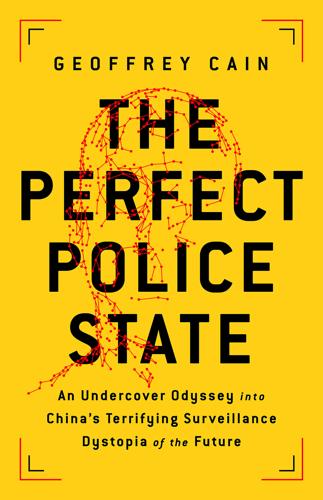
The Perfect Police State: An Undercover Odyssey Into China's Terrifying Surveillance Dystopia of the Future
by
Geoffrey Cain
Published 28 Jun 2021
“We assess with high confidence that the increasing role of international companies and foreign individuals in US information technology supply chains and services will increase the potential for persistent, stealthy subversions,” the US National Security Agency (NSA), charged with intercepting communications around the world, wrote in a 2010 slide leaked by the whistleblower Edward Snowden.31 Edward Snowden’s leaked documents also revealed that the NSA was tracking twenty Chinese hacker teams attempting to break into US government networks and companies like Google. Huawei was also laying undersea cables that the NSA hoped to intercept, so it could read the communications of Huawei customers that happened to be “high-priority targets,” like Cuba, Iran, Afghanistan, and Pakistan.32 The NSA hacked Huawei’s headquarters, monitored the communications of its top executives, and ran an operation called Shotgiant aimed at finding a link between Huawei and the People’s Liberation Army.
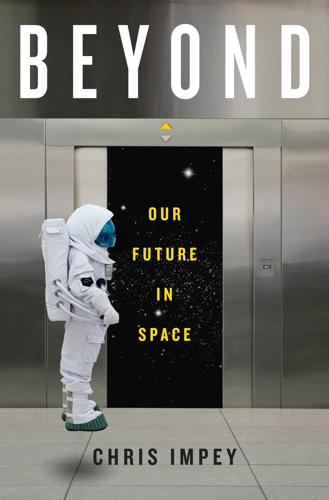
Beyond: Our Future in Space
by
Chris Impey
Published 12 Apr 2015
They’re even beginning to be seen in the boardroom and the workplace. Many commercial robots look like vacuum cleaners with a screen on top and are no more than ventriloquist’s dummies; after the comical first impression, it’s disconcerting to realize that there’s a real person at the other end of the device. A striking recent example was a talk by Edward Snowden at the TED2014 conference.4 The controversial NSA whistleblower was in hiding somewhere in Russia, but he was represented on stage by a screen attached to two long legs that ended in a motorized cart. Snowden communicated with the moderator and turned toward the audience to answer questions; he could see and hear everything that was going on.
…
See “Another Look at ‘Being There’ Experiences in Digital Media: Exploring Connections of Telepresence with Mental Imagery” by I. Rodriguez-Ardura and F. J. Martinez-Lopez 2014. Computers in Human Behavior, vol. 30, pp. 508–18. 3. Brother Assassin by F. Saberhagen 1997. New York: Tor Books. 4. See http://www.ted.com/talks/edward_snowden_here_s_how_we_take_back_the_internet. 5. “Multi-Objective Compliance Control of Redundant Manipulators: Hierarchy, Control, and Stability” by A. Dietrich, C. Ott, and A. Albu-Schaffer 2013. Proceedings of the 2013 IEEE/RSJ International Conference on Intelligent Robots and Systems, Tokyo, pp. 3043–50. 6.

Mindf*ck: Cambridge Analytica and the Plot to Break America
by
Christopher Wylie
Published 8 Oct 2019
I was exhausted, I had been burned over and over, and I wished that I could just put the Cambridge Analytica ordeal in the past. On top of that, Cambridge Analytica was no longer just a company. My old boss Steve Bannon was now sitting in the White House and on the National Security Council of the most powerful nation on earth. I had seen what happened to whistleblowers like Edward Snowden and Chelsea Manning when they were at the mercy of the full force of the U.S. government. It was too late to change the outcome of the Brexit vote or the U.S. presidential election. I had tried to warn people, and no one seemed to care. Why would they care now? But Cadwalladr cared. When I read what she had already published, I could see that she was on the trail of Cambridge Analytica and AIQ but had not yet cracked how deep their misdeeds actually went.
…
But a good defense does not prevent a lawsuit from being filed in the first place, and fighting Cambridge Analytica in court would mean hundreds of thousands of pounds in legal fees—money I didn’t have. All the same, I remained determined that the full story come out. My best course of action, I soon discovered, ran through Donald Trump’s hometown. Carole passed me on to Gavin Millar QC, a well-known barrister in London at Matrix Chambers who had worked on the Edward Snowden case for The Guardian, and he suggested that I give the story to an American newspaper. The First Amendment provided U.S. newspapers with much stronger defenses against accusations of libel, he said. The New York Times was far less likely to back down than The Guardian had been, and it would never delete parts of articles after the fact.
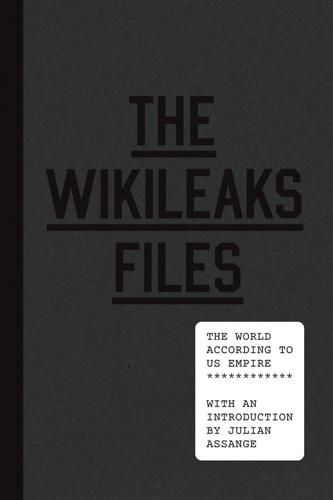
The WikiLeaks Files: The World According to US Empire
by
Wikileaks
Published 24 Aug 2015
His writings for Foreign Policy in Focus have been syndicated in the Nation, Common Dreams, Truthout, and AlterNet, among many other progressive outlets, as well as in regionally focused publications like the Asia Times and Informed Comment. Conn Hallinan can be read at dispatchesfromtheedgeblog.wordpress.com. Sarah Harrison is a journalist, and WikiLeaks’ investigations editor. In June 2013, Harrison accompanied Edward Snowden when he left Hong Kong to seek asylum, ensuring he could leave Hong Kong safely and receive asylum from the Russian Federation. She is the acting director of the Courage Foundation, which manages the legal defense of Edward Snowden, among others, and fights for the protection of truth-tellers worldwide. Harrison was a senior coordinator in the Cablegate publication, and in the creation of the PlusD archive.
…
As the cables show, these efforts have not gone unnoticed by Russia, and are recurring points of conflict in US-Russian diplomatic relations, even during the most cordial of periods. The chapter provides the necessary context for recent East-West tensions centering around Syria, Ukraine, and the granting of asylum to Edward Snowden, and yields critical insight into a geopolitical relationship that, if mishandled, threatens the survival of our civilization and even of our species. Perhaps no region of the world demonstrates the full spectrum of US imperial interference as vividly as Latin America. Since the 1950s, US policy in Central and South America has popularized the concept of the CIA coup d’état, deposing democratically elected left-wing governments and installing US-friendly right-wing dictatorships; inaugurating legacies of brutal civil war, death squads, torture, and disappearances; and immiserating millions to the benefit of the American ruling class.
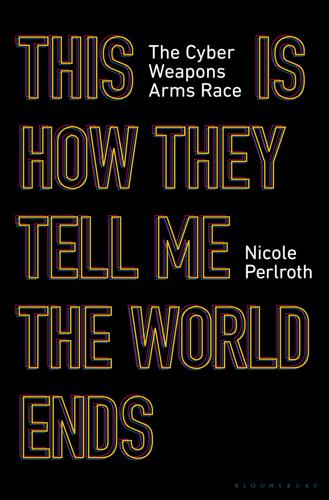
This Is How They Tell Me the World Ends: The Cyberweapons Arms Race
by
Nicole Perlroth
Published 9 Feb 2021
James and Ewan relayed how days earlier, British intelligence officers had stormed the Guardian’s headquarters back in London and forced the newspaper to take drills and whirring blades to Snowden’s hard drives of classified secrets, but not before a copy had been smuggled to the New York Times. Together, Jill and Dean said Scott and I were to work alongside the Guardian and ProPublica to write two stories based off the leaks from Edward Snowden, the infamous NSA contractor who had removed thousands of classified documents from the agency’s computers before fleeing to Hong Kong, and later taking up exile in Moscow. Snowden had given his trove of classified secrets to Glenn Greenwald, a Guardian columnist. But we were reminded that day, Britain lacked the same free speech protections as the United States.
…
The breach had exposed the very data you would think the government had the most personal incentive to protect: Social Security numbers, fingerprints, medical records, financial histories, home addresses, and sensitive details for every American given a background check for the last fifteen years—which included Comey, and the most senior officials at the Department of Justice and the White House. If they could not even manage to keep their own data safe, how could they ever be expected to safeguard Apple’s backdoor? Back and forth Apple and the Justice Department went, in a courtroom dispute that captivated the country. Everyone from the president to Edward Snowden to the comedian John Oliver weighed in. Polls showed Americans were split but tilting toward Apple, more so every day. Even Carole Adams, the mother of one of the victims who had died in San Bernardino, offered public support for the company. Nobody deserved to know more about her son’s killers, but even she didn’t think the FBI’s request was worth the risk to privacy.
…
CHAPTER 7: THE GODFATHER Gosler’s favorite Price Pritchett quote can be found in his 1994 book, The Employee Handbook of New Work Habits for a Radically Changing World: 13 Ground Rules for Job Success in the Information Age. I relied on Matthew Carle’s 2013 retrospective on Operation Ivy Bells to describe the undersea cable tap: “40 Years Ago, The Navy’s ‘Operation Ivy Bells’ Ended With a 70s Version of Edward Snowden,” published by Business Insider. A history of Los Alamos is available via the U.S. Department of Energy’s Office of History and Heritage Resources in “The Manhattan Project: An Interactive History.” The reference to Sandia’s role in developing 97 percent of America’s non-nuclear weapons components is available on Sandia’s website: “Evaluating Nuclear Weapons: A Key Sandia Mission.”
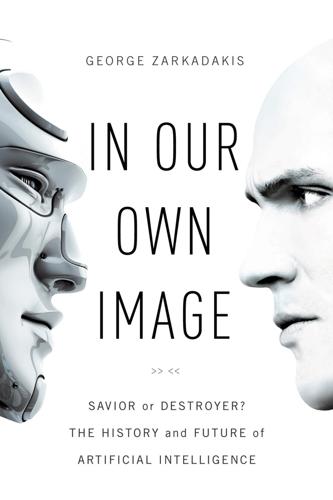
In Our Own Image: Savior or Destroyer? The History and Future of Artificial Intelligence
by
George Zarkadakis
Published 7 Mar 2016
Not only are we members of digital social networks, but our personal data are hosted in numerous databases that are controlled by governments, insurance companies, utilities, banking, and so on. For many of us, our digital existence – and the rights it confers – is extremely important and vulnerable. When former CIA analyst Edward Snowden revealed the extent of government spying by the NSA on US citizens, his revelations shook the political system of the Western world. What is the meaning of democracy in the twenty-first century when the state can keep a watchful eye on each and every one of us (i.e. our ‘digital’ selves)? Who watches the watchmen17 in a digital world?
…
The incident was picked up by the media, and created the spooky feeling that Target was actually stalking its customers, gravely affecting the company’s reputation. That spooky feeling that someone is watching us online was further accentuated following the revelations of US National Security Agency (NSA) contractor Edward Snowden in 2013. According to classified documents leaked by Snowden to the Guardian newspaper, the NSA spied on US citizens as well as on citizens from other countries, including top foreign politicians, by ‘listening in’ to their conversations over the Internet. Data from these conversations were stored in massive computer server farms, where they were mined by algorithms searching for patterns.
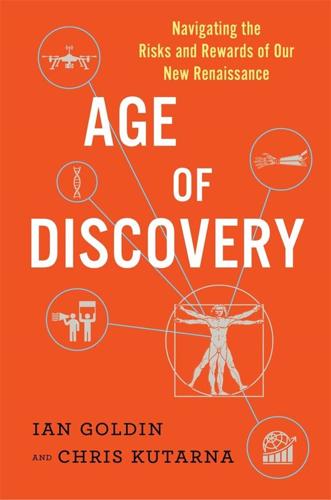
Age of Discovery: Navigating the Risks and Rewards of Our New Renaissance
by
Ian Goldin
and
Chris Kutarna
Published 23 May 2016
Media freedoms have taken a beating in Latin America, Turkey, Hungary, the Middle East and northern Africa, as nervous authorities adapt to weakening economic conditions. In developed democracies, voter participation rates are in long-term decline, and civil liberties have been clawed back in the name of public security. (Since Edward Snowden blew the whistle on the surveillance activities of the National Security Agency [NSA] in 2013, this once-hushed trade-off has been loudly debated, but it has not been reversed.) On the other hand, the Arab Spring revolutions from 2010 onward across the Arab world, the dissolution of Myanmar’s military junta in 2011, stirrings of political reform in Cuba, Hong Kong’s “umbrella revolution” pro-democracy demonstrations in 2014, and even the evolving rhetoric of the Chinese Communist Party make it clear that “democracy,” in some form, is a prerequisite to “legitimacy” everywhere in today’s world.
…
Retrieved from www.oxfordmartin.ox.ac.uk. 69. Gunn, Steven (2010). “War and the Emergence of the State: Western Europe 1350–1600.” In European Warfare 1350–1750, edited by F. Tallett and D. Trim. Cambridge, UK: Cambridge University Press, pp. 50–73. 70. Sands, Philippe (2014, May 23). “No Place to Hide: Edward Snowden, the NSA and the Surveillance State by Glenn Greenwald—a Review.” The Guardian. Retrieved from www.theguardian.com. 71. Gallagher, Ryan (2014, August 25). “The Surveillance Engine: How the NSA Built Its Own Secret Google.” The Intercept. Retrieved from firstlook.org/theintercept. 72.
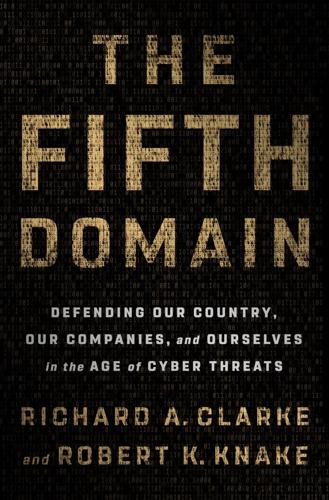
The Fifth Domain: Defending Our Country, Our Companies, and Ourselves in the Age of Cyber Threats
by
Richard A. Clarke
and
Robert K. Knake
Published 15 Jul 2019
If the government tells the software developer, then the company issues a “patch” that can fix the problem. If the government does not tell them, then it can hack into interesting foreign networks using the vulnerability in order to learn things to protect the country. (The government creates an “exploit,” a hacking tool that takes advantage of the poorly written computer code.) After Edward Snowden stole sensitive NSA information and gave it to WikiLeaks (and the Russians), Obama appointed a five-man group to investigate and make recommendations. Dick Clarke was one of the group that became known as the Five Guys, after the Washington hamburger chain. The Five Guys’ recommendations were all made public, every single word of them, by the Obama White House.
…
According to press reports, the Russian GRU gained access to Kaspersky’s Moscow headquarters and then used the millions of Kaspersky Anti-Virus packages installed on computers around the world to search for documents with certain keywords. (Kaspersky denies that this is what happened.) Maybe the GRU learned those keywords, which may have been Top Secret Exceptionally Controlled Information code names, from the Edward Snowden treasure trove. In any event, one possibility is that, using a backdoor in Kaspersky Anti-Virus on Harold Martin’s home computer, the Russian GRU found a ton of NSA attack tools, perhaps including the EternalBlue exploit. Now, how would anybody know that the Russian GRU did that? Well, it just could be that Israel’s military intelligence Unit 8200 was sitting inside Kaspersky’s network watching it all go down.

Fire and Fury: Inside the Trump White House
by
Michael Wolff
Published 5 Jan 2018
Trump’s criticism seemed to align him with the left in its half century of making a bogeyman of American intelligence agencies. But, in quite some reversal, the liberals and the intelligence community were now aligned in their horror of Donald Trump. Much of the left—which had resoundingly and scathingly rejected the intelligence community’s unambiguous assessment of Edward Snowden as a betrayer of national secrets rather than a well-intentioned whistle-blower—now suddenly embraced the intelligence community’s authority in its suggestion of Trump’s nefarious relationships with the Russians. Trump was dangerously out in the cold. Hence, Kushner thought it was sensible to make a reach-out to the CIA among the first orders of the new administration’s business
…
Yates now told the White House that Flynn’s conversation with Kislyak had actually been captured as part of an “incidental collection” of authorized wiretaps. That is, a wiretap had presumably been authorized on the Russian ambassador by the secret Foreign Intelligence Surveillance Court and, incidentally, picked up Flynn. The FISA court had achieved a moment of notoriety after the Edward Snowden revelations briefly made it a bête noire for liberals who were angry about privacy incursions. Now it was achieving another moment, but this time as the friend of liberals, who hoped to use these “incidental” wiretaps as a way to tie the Trump camp to a wide-ranging conspiracy with Russia. In short order, McGahn, Priebus, and Bannon, each with prior doubts about Flynn’s reliability and judgment—“a fuck-up,” according to Bannon—conferred about the Yates message.
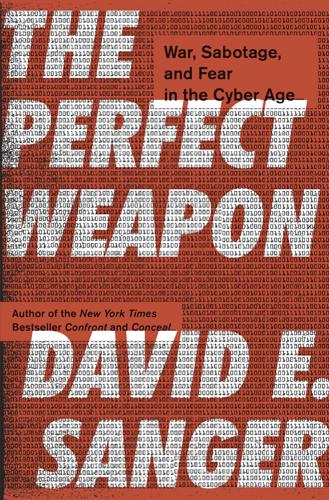
The Perfect Weapon: War, Sabotage, and Fear in the Cyber Age
by
David E. Sanger
Published 18 Jun 2018
Robert Work, the former deputy secretary of state who pushed the Pentagon into competing in this arena, told my colleague Cade Metz. “This is a Sputnik moment.” Work’s analogy captured a critical truth: any breakthroughs produced by the concentrated Chinese effort will flow directly to the country’s military might. An equivalent to the Silicon Valley/Washington divide, which bubbled along before Edward Snowden’s disclosures and re-erupted in the battles over the government’s effort to get a back door into encrypted systems, does not exist in China. Yet in the United States, the divide is widening. The Cold War model, in which breakthroughs in American military technology and the space program flowed to the commercial sector, is gone forever.
…
But I withheld some of the details at the request of American officials who did not believe the Iranians yet understood how the technology worked. After the Snowden revelations, of course, they had a road map. “You have not heard me as the director say”: Maya Rhodan, “New NSA Chief: Snowden Didn’t Do That Much Damage,” Time, June 30, 2014, time.com/2940332/nsa-leaks-edward-snowden-michael-rogers/. But Merkel was outraged: Alison Smale, “Germany, Too, Is Accused of Spying on Friends,” New York Times, May 6, 2015, www.nytimes.com/2015/05/06/world/europe/scandal-over-spying-shakes-german-government.html. Unsatisfied, Merkel called Obama: David E. Sanger and Alison Smale, “U.S.
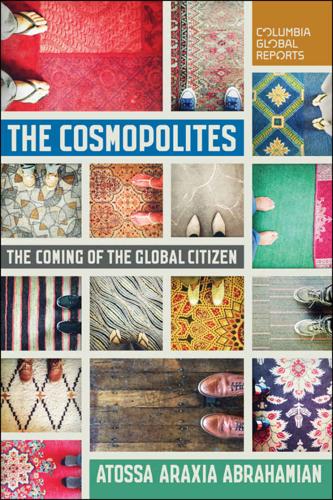
The Cosmopolites: The Coming of the Global Citizen
by
Atossa Araxia Abrahamian
Published 14 Jul 2015
Before tax-free zones, freeports, and airports became indispensable cogs in the machinery of globalization, Davis found ways to exploit them. It’s essentially the same loophole that has allowed WikiLeaks founder Julian Assange to seek refuge at the Ecuadorean embassy in London, where, as of this writing, he languishes still. It’s the tool Edward Snowden exploited during his stint living in Moscow’s Sheremetyevo International Airport after he leaked National Security Agency data in a hotel in Hong Kong and went on the run. Just weeks before his death, Davis appeared on CBS news and announced that he had sent Snowden a World Passport. When Roger Ver travels, he makes a point of wearing his favorite item of clothing: a green T-shirt with a globe and the phrase “borders are imaginary lines” silk-screened on the front.
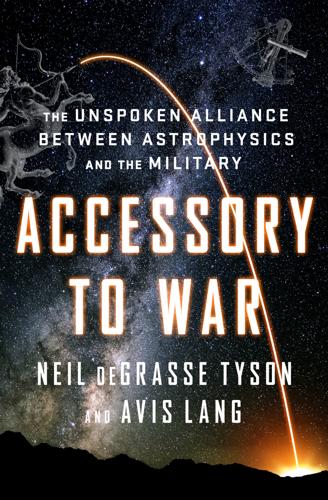
Accessory to War: The Unspoken Alliance Between Astrophysics and the Military
by
Neil Degrasse Tyson
and
Avis Lang
Published 10 Sep 2018
Government in cryptology that encompasses both Signals Intelligence (SIGINT) and Information Assurance (IA) products and services, and enables Computer Network Operations (CNO) in order to gain a decision advantage for the Nation and our allies under all circumstances.19 Speaking of the National Security Agency, its most famous whistleblower, Edward Snowden, is far more sympathetic to the ACLU’s vision than to that of his employers. Rather than invoking national security, to which he was quickly and widely accused of doing irreparable harm, he invokes the public interest—not the freedom of government to engage in massive, blanket surveillance of individuals for the ostensible goal of national security, but rather the right of individuals to know, debate, understand, and meaningfully consent to the actions of their government.20 Taking yet a different tack, the progressive Massachusetts-based National Priorities Project looks at national security in terms of the costs of various components and different viewpoints, noting that in 2016 US taxpayers shelled out, per hour, $57.52 million for the Department of Defense while spending $11.64 million on education and $2.95 million on the environment.21 Move outward from nation to globe.
…
Following seven months of revelations and accusations by and against Snowden, a major US newspaper contended: “The shrill brigade of his critics say Mr. Snowden has done profound damage to intelligence operations of the United States, but none has presented the slightest proof that his disclosures really hurt the nation’s security.” Editorial Board, “Edward Snowden, Whistle-Blower,” op-ed, New York Times, Jan. 1, 2014. In an Oct. 2014 interview published in The Nation, Snowden said that certain phrases “parroted” by the media are intended “to provoke a certain emotional response—for example, ‘national security.’ . . . But it is not national security that they’re concerned with; it is state security.
…
But it’s a key concept, because when these officials are out on TV, they’re not talking about what’s good for you. They’re not talking about what’s good for business. They’re not talking about what’s good for society. They’re talking about the protection and perpetuation of a national state system.” Katrina vanden Heuvel and Stephen F. Cohen, “Edward Snowden: A ‘Nation’ Interview,” The Nation, Nov. 17, 2014. 21.National Priorities Project, “Cost of National Security,” www.nationalpriorities.org/cost-of (accessed Apr. 3, 2016). 22.Re antibiotic resistance, see, e.g., Sabrina Tavernise, “U.S. Aims to Curb Peril of Antibiotic Resistance,” New York Times, Sept. 18, 2014; Gardiner Harris, “ ‘Superbugs’ Kill India’s Babies and Pose an Overseas Threat,” New York Times, Dec. 3, 2014.

The Extreme Centre: A Warning
by
Tariq Ali
Published 22 Jan 2015
The Malvinas/Falklands war would have been impossible without the support of Washington and one of its favoured South American satellites, General Pinochet’s Chile. Since British economic and foreign policies are now in tandem with those of its imperial master, British leaders sometimes attempt to stand out by pre-empting US decisions and posturing as being tougher on assorted ‘enemies’ than Washington itself.1 As Edward Snowden has revealed, British intelligence-gathering outposts like GCHQ operate with impunity. The relative autonomy they enjoy – with less restraints than the NSA – is extremely useful for the latter, which treats GCHQ as a valued surrogate. Similarly, till 2008, British politicians liked to boast that the local ‘light-touch regulation’ put the City of London well ahead of Wall Street, as Britain’s current standing as a virtual tax haven still does, approaching Luxembourg levels if not yet those of the Cayman islands.
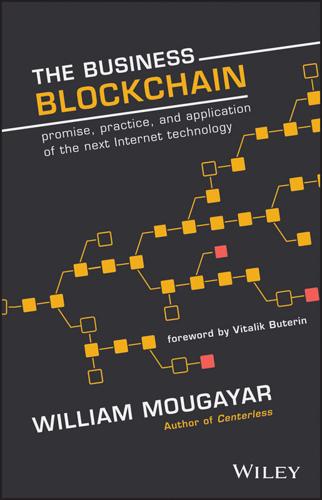
The Business Blockchain: Promise, Practice, and Application of the Next Internet Technology
by
William Mougayar
Published 25 Apr 2016
The political environment seemed to almost snap into place: the great financial crisis in 2008 spurred growing distrust in mainstream finance, including both corporations and the governments that are normally supposed to regulate them, and was the initial spark that drove many to seek out alternatives. Then Edward Snowden's revelations in 2013, highlighting how active the government was in realms citizens once believed private, were the icing on the cake. Even though blockchain technologies specifically have not seen mainstream adoption as a result, the underlying spirit of decentralization to a substantial degree has.

Because We Say So
by
Noam Chomsky
From that day forward, to carry out violence and subversion abroad, or repression and violation of fundamental rights at home, state power has regularly sought to create the misimpression that it is terrorists that you are fighting, though there are other options: drug lords, mad mullahs seeking nuclear weapons, and other ogres said to be seeking to attack and destroy us. Throughout, the basic principle remains: Power must not be exposed to the sunlight. Edward Snowden has become the most wanted criminal in the world for failing to comprehend this essential maxim. In brief, there must be complete transparency for the population, but none for the powers that must defend themselves from this fearsome internal enemy. THE SLEDGEHAMMER WORLDVIEW July 3, 2014 The front page of the NEW YORK TIMES on June 26 featured a photo of women mourning a murdered Iraqi.

Vertical: The City From Satellites to Bunkers
by
Stephen Graham
Published 8 Nov 2016
Of unacknowledged moons and ‘black’ space craft moving through the pre-dawn and early evening darkness, where the rising and setting sun lights up the stainless steel bodies, and they blink in and out of sight as they glide though the backdrop of a darkened sky hundred of miles below. In most cases, the reflection is all we get.20 Fittingly for this book, Paglen’s work, like the whistle-blowing leaks of Chelsea Manning and Edward Snowden, is an example of what has been called sous-surveillance – literally ‘under surveillance’ or ‘surveillance from below’. In challenging the cloak of invisibility and secrecy that obscures top-down surveillance by national security states, Paglen and the satellite-tracking community fleetingly expose one crucial material embodiment of the increasingly secretive and authoritarian nature of security politics.21 Predictably, further exposures come from the strategic competitors of the United States.
…
Steve Rowell’s chance meeting with a Ministry of Defence police vehicle outside the Menwith Hill NSA Base The 560-acre Menwith Hill site – known to the NSA and NRO as ‘Field Station 83’ – is one of three key US satellite bases at the heart of the globe-spanning communications surveillance system known as PRISM, a system powerfully exposed by the NSA whistle-blower Edward Snowden in 2011.25 Like a dystopian film set, the base’s architecture of over thirty Kevlar radomes sits rather incongruously within the pastoral landscapes of North Yorkshire’s valleys. Its razor-wired peripheries are circled by US military guards, and its 2,300 employees are drawn from all of the three key players in the US satellite-surveillance complex.26 Menwith Hill’s recently expanded and modernised fields of radomes house extraordinarily powerful systems for scooping up all electromagnetic wireless and satellite phone calls and data and video transmissions over large geographical areas.
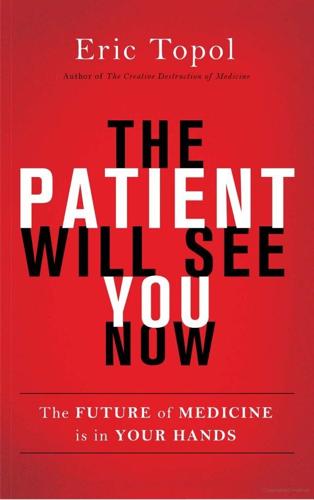
The Patient Will See You Now: The Future of Medicine Is in Your Hands
by
Eric Topol
Published 6 Jan 2015
—EDWARD SNOWDEN1 “Today’s Web-enabled gadgets should come with a digital Miranda warning: Anything you say or do online, from a status update to a selfie, can and will be used as evidence against you on the Internet.” —NICK BILTON, New York Times2 In a world of Julian Assange’s Wikileaks and Edward Snowden’s exposé of the National Security Agency, we are progressing toward zero tolerance of governmental non-transparency.1,3 At the same time, massive Internet security breaches are occurring or being discovered, from retailers like Target to the Heartbleed bug. Just as everything is getting digitized, making it eminently portable and accessible, we’re betwixt and between.
…
It’s bad enough that a large number of medical centers in the United States, and most of the highly prestigious ones with elaborate health information systems, have suffered a breach of electronic medical records. Although some are due to hackers (in about 14 percent of cases), far more are due to a stolen laptop or USB drive (more than 50 percent of cases). Further, according to Edward Snowden, the NSA has cracked the encryption that is used to protect medical records for Americans. With the markedly increasing use of telemedicine and virtual consults, as reviewed in Chapter 9, there must be concern about the security of these electronic exchanges. While many of the companies are using the term “secure” liberally in their promotional materials, all it will take is a full virtual visit to be widely transmitted over the Web before this type of medical encounter becomes suspect.

The Profiteers
by
Sally Denton
“Whoever has studied the Pollard case keeps wondering what the government is hiding,” a venerable journalist described the “ ‘Catch-22’ Plight” of the imprisoned spy. Decrying the “bullying tactics” of federal prosecutors, the Wall Street Journal opined that “Even Pollard Deserves Better Than Government Sandbagging.” Revelations in 2013 by former US National Security Agency contractor Edward Snowden that the United States had spied on at least two Israeli prime ministers brought new frostiness to Israeli-American relations—and new life to the “Free Jonathan Pollard” movement. A number of high-level US intelligence, diplomatic, and military officials joined the escalating campaign to protest the sentence and call for mercy.
…
Another potential catastrophe ensued when six nuclear missiles from a North Dakota facility were accidentally attached to an airplane’s wings and flown across several states before being left unattended on a public tarmac. There were reports of air force officers falling asleep while guarding launch codes for nuclear weapons. There was another chilling vulnerability: that of what was called the “insider threat.” Epitomized by Edward Snowden, the private contractor working for the National Security Agency who gained access to the NSA’s classified secrets, including the “launch codes for America’s nuclear weapons but also for designing the equipment that decrypts the codes,” the insider threat was far more sophisticated and opaque than in the days of the Manhattan Project.

The Controlled Demolition of the American Empire
by
Jeff Berwick
and
Charlie Robinson
Published 14 Apr 2020
Empty crates of dynamite and crumpled boxes of fuses might give her plan away, but if someone was an actual terrorist would they really be dragging their bomb- making garbage to the curb twice a week? This is silly, insulting to the intelligence of the American people, and a colossal waste of time and money. Why doesn’t Janet Napolitano explain to the American people why any of them should trust her? Edward Snowden came forward and “said something”, how is that working out for him? Chelsea Manning “saw something” and they gave her 30 years in prison. Thanks to Wikileaks, the world knows how dirty the war in Iraq was, and how criminal the people running the show actually are. Where are his great thanks from the Department of Homeland Security?
…
Censorship is what happens when powerful people get nervous, so the rise in online censorship is both a good thing and a horrible thing. It is good in the sense that those in positions of power are legitimately nervous about the weakening grip they hold on society. The “alternative media” has been making things more difficult for the controllers over the past half-decade, starting with the revelations from Edward Snowden and Julian Assange, both were rewarded with sequestration and isolation in foreign countries for their troubles. It is a horrible thing in the sense that the controllers do have the ability to switch off those voices that dare to stand up to their plan for an Orwellian Ministry of Truth by de-platforming them one at a time, or in the case of Alex Jones, colluding to remove him from multiple platforms all at the exact same time.
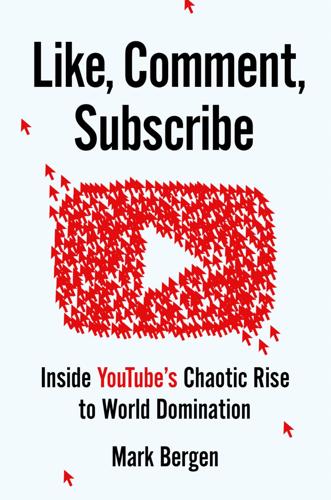
Like, Comment, Subscribe: Inside YouTube's Chaotic Rise to World Domination
by
Mark Bergen
Published 5 Sep 2022
In much of Europe, though, YouTube was criticized for not censoring enough. Google’s good standing on the Continent had already been slipping. European politicians accused the “don’t be evil” company of evading taxes, ignoring privacy, and behaving like a monopolist. Jewish groups would berate YouTube for giving airtime to Holocaust deniers. In 2013 Edward Snowden’s bombshell revelations included charges that the National Security Agency (NSA) had hacked into Google’s data centers. Google denied any foreknowledge. (“We are outraged,” the legal chief, David Drummond, told the press.) But this made life no easier for Google’s European diplomats, who were pummeled as assets of Uncle Sam.
…
Across a small white table from Page sat Charlie Rose, sporting his casual look, no tie, top button undone, still the face of reasoned American discourse. (It would be another three and a half years before reports of sexual harassment undid his reputation.) This TED session was billed as a talk on Google’s future, but Rose had to ask about the past. He brought up Edward Snowden’s NSA revelations and Google’s appalled reaction. Page smiled and mentioned a photo circulating at TED of Sergey Brin, his other half, grinning next to a pixelated Snowden, who dialed in via a teleconference robot. “To me, it’s tremendously disappointing,” Page said, his smile fading, and called the government’s unauthorized snooping a threat to a “functioning democracy.”
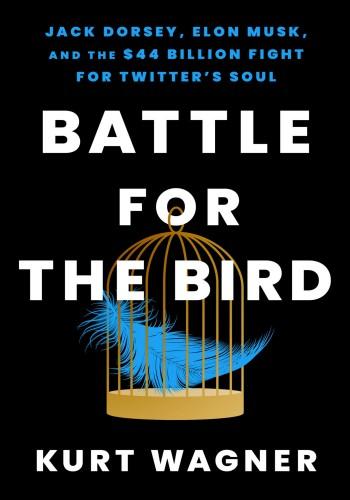
Battle for the Bird: Jack Dorsey, Elon Musk, and the $44 Billion Fight for Twitter's Soul
by
Kurt Wagner
Published 20 Feb 2024
“This is just sad,” wrote Aaron Levie, the CEO of the enterprise software company Box, and an avid Tweeter. Paul Graham, a well-known Silicon Valley investor who tweeted often at Musk, called it the “last straw” and posted a link for people to follow him on Mastodon. (His Twitter account was then temporarily suspended.) Even Edward Snowden chimed in. “This is a bad policy and should be reversed,” he wrote. To Musk, the policy seemed obvious, and at first he tried to defend it by saying that “traditional” publishing companies would never let competing outlets advertise for free. Of course, Twitter wasn’t a traditional media company and forbidding people from linking to other websites felt like the furthest thing from free speech.
…
against Twitter’s rules to post links to other social media sites: “Promotion of Alternative Social Platforms Policy,” Twitter Help Center, Twitter, n.d., https://help.twitter.com/en/rules-and-policies/social-platforms-policy. “This is just sad”: Aaron Levie (@levie), “This is just sad.” Twitter, December 18, 2022, 10:15 a.m., https://twitter.com/levie/status/1604540771951968260. “This is a bad policy and should be reversed”: Edward Snowden (@Snowden), “Twitter seemingly banned @paulg for this tweet. A major account that was obviously not ‘solely created to promote other social media platforms,’ And he didn’t even post the link! As @balajis said, this is a bad policy and should be reversed.” Twitter, December 18, 2022, 2:37 p.m., https://twitter.com/Snowden/status/1604606914372984832.
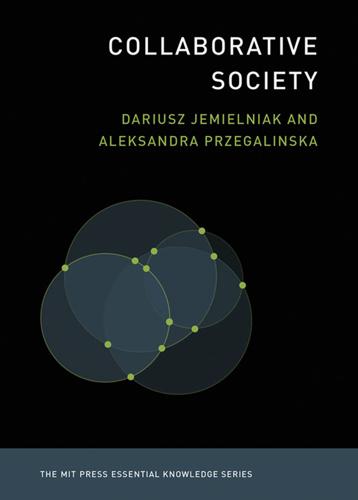
Collaborative Society
by
Dariusz Jemielniak
and
Aleksandra Przegalinska
Published 18 Feb 2020
Collaborative Knowledge Distribution As we noted at the start of this chapter, the decreased trust in science coincides with emerging models of knowledge distribution that are more egalitarian and collaborative, and are supported by new technologies. In fact, the collaborative aspect of these models may contribute to their appeal in fields across the board, not only in science. The phenomenon of WikiLeaks or the support for Edward Snowden—the whistleblower who released enormous amounts of classified data gathered from the US National Security Agency—shows that citizens increasingly demand awareness and a high level of transparency as well as easy access to information. Moreover, there’s a growing interest in a-hierarchical models of knowledge production that oppose the modern state-controlled model of university-fostered formal expertise.
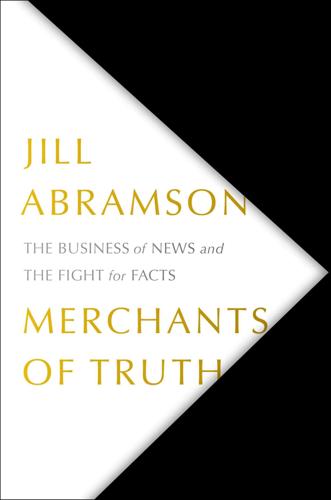
Merchants of Truth: The Business of News and the Fight for Facts
by
Jill Abramson
Published 5 Feb 2019
Keller was criticized for holding back a story about secret domestic government eavesdropping at the request of the White House, which argued that disclosure of the National Security Agency’s secret monitoring would inhibit the government’s counterterrorism abilities. When the Times finally did publish the story, it shocked the country and won a Pulitzer Prize. This story, in fact, was the prelude to the even bigger disclosures of Edward Snowden years later. The Times was hardly the only quality news organization to misreport the lead-up to the Iraq War, but because of its stature its mistakes damaged the institution more deeply. There were a few organizations, like the McClatchy chain’s Washington bureau, that reported skeptically about the prewar intelligence.
…
When I was quoted saying the Obama administration was the most secretive of any I had covered, the president’s press secretary, Jay Carney, accused me of abusing my position. Then we were beaten by the Washington Post and the Guardian on a purloined document revealing widespread NSA eavesdropping. The disclosure of far more pervasive domestic spying came from Edward Snowden, a young contractor for the agency who had stolen massive numbers of files about the most sensitive programs run by the government and its British counterpart, the Government Communications Headquarters. Knowing we had held James Risen and Eric Lichtblau’s story on NSA wiretapping eight years earlier, Snowden didn’t trust the Times.
…
But in 2014, when internal Sony emails were hacked, Baquet and the Times decided not to use the stolen material in coverage. Earlier, though, I had opened the door by publishing front-page stories based on stolen documents, relying on contraband first from U.S. Army Private Chelsea Manning and later from NSA contractor Edward Snowden. These documents revealed major stories about failures of the Iraq War and government snooping, which made their publication worth it, I thought. Newsworthiness and the Times’s responsibility to inform the public were the right standards to use, but these were all hard calls. The paper did delve into scandals involving Trump, especially Paul Manafort’s financial dealings with shady Ukrainians, for which he was indicted by special counsel Robert Mueller in 2017.
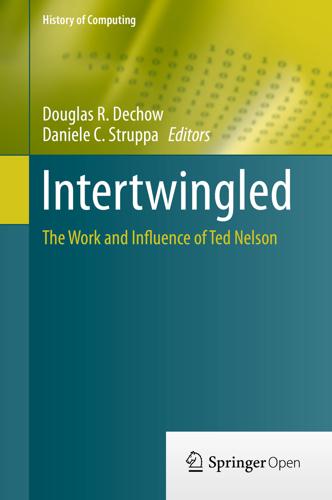
Intertwingled: The Work and Influence of Ted Nelson (History of Computing)
by
Douglas R. Dechow
Published 2 Jul 2015
It was emblazoned across the Computer Lib side of his 1974 Computer Lib/Dream Machines (CL/DM), the most influential book in the history of computational media.1 Nelson’s call is not only memorable today, but still quite relevant. For example, consider the recent revelations of massive government surveillance, as disclosed by Edward Snowden and others. Without a deep understanding of computing, one might debate whether the vision of Total Information Awareness is morally right, or is instead sending us down a path to an “Orwellian,” 1984-style future. However, with a deep understanding of computing, one can not only raise the questions of morality in more depth, but one can also see that Total Information Awareness is a technically unworkable fantasy (like the Star Wars program pursued by the Reagan administration in the non-fictional 1980s) providing a false rationale for treating everyone as a suspect.

The New Class War: Saving Democracy From the Metropolitan Elite
by
Michael Lind
Published 20 Feb 2020
Russian nationalists and many populists in Europe and the US share a common hostility to the transnational European Union as well as contemporary transatlantic social liberalism. In addition, Western intelligence authorities claim that Russian intelligence operatives have engaged in trying to promote conflict in the US and other countries by helping whistle-blowers like WikiLeaks and Edward Snowden leak stolen or classified information and by bombarding carefully targeted audiences with Internet memes and ads. Let us stipulate that this is all true. It was also true in the 1950s that there really were a small number of communists in the US, including a few high-ranking government officials, who spied for the Soviet Union, as well as many more Soviet sympathizers.
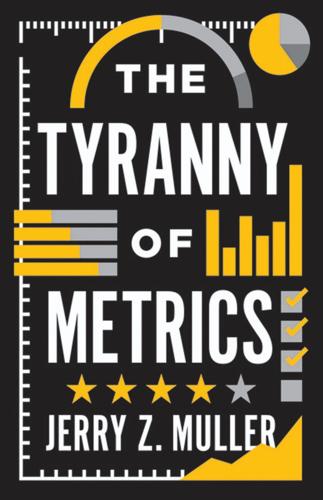
The Tyranny of Metrics
by
Jerry Z. Muller
Published 23 Jan 2018
In 2010, Bradley Manning, an intelligence analyst in the American Army, took it upon himself to disclose hundreds of thousands of sensitive military and State Department documents through WikiLeaks.5 One result was the publication of the names of confidential informants, including political dissidents, who had spoken with American diplomats in Iran, China, Afghanistan, the Arab world, and elsewhere.6 As a consequence, some of these individuals had to be relocated to protect their lives. More importantly, the revelations made it more difficult for American diplomats to acquire human intelligence in the future, since the confidentiality of conversations could not be relied upon. Then, in 2013, Edward Snowden, a computer security specialist formerly employed by the CIA and more recently as a contractor for the NSA in Hawaii, systematically set out to copy thousands of highly secret documents from a variety of government agencies in order to expose the American government’s surveillance programs. Among the many sensitive documents he made available to the press was the eighteen-page text of Presidential Policy Directive 20 on cyber operations, revealing every foreign computer system targeted for potential action—a document published in full by the British journal The Guardian.

How Everything Became War and the Military Became Everything: Tales From the Pentagon
by
Rosa Brooks
Published 8 Aug 2016
Sending in special operations forces would be too risky, they said; we would therefore most likely strike the target using missiles fired from an unmanned aerial vehicle. I can’t tell you the region or the identity of the target. During my twenty-six months working at the Defense Department, I signed dozens of papers promising to keep the secret stuff secret, and unlike Edward Snowden, I have no desire to give out classified information—or live life as a fugitive. But I think I can say that the target was a youngish man, probably not more than thirty. I dutifully studied the small photo displayed on the briefing slides. It showed an ordinary face, the kind you might see on any street in Sana’a or Karachi—or New York or London.
…
The men and women who worked in these dim rooms were pleased to have a visitor from “mission control,” as someone jokingly called the Pentagon—they were glad to show off their clever technological tricks. I can’t tell you what any of those tricks are: they’re the most secret kind of secret, since if any bad guys came to know about them, they wouldn’t work anymore. But just imagine. Imagine the things you think you already know the NSA can do, thanks to Edward Snowden and press reports, and multiply that. Imagine we had the ability to take technologies our adversaries trust and turn them to our own uses. That’s the sort of thing CYBERCOM and a handful of other small Defense Department and intelligence organizations exist to do. It’s not just about protecting email and financial software, or monitoring websites used by U.S. adversaries.
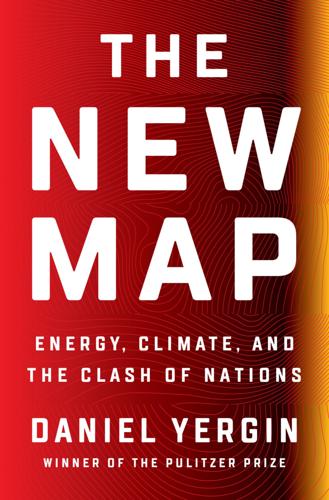
The New Map: Energy, Climate, and the Clash of Nations
by
Daniel Yergin
Published 14 Sep 2020
Petersburg International Economic Forum, Gazprom CEO Alexey Miller told a room largely full of Europeans, “Get over your fear of Russia, or run out of gas.” Chapter 12 UKRAINE AND NEW SANCTIONS On June 23, 2013, whatever remained of the post–Cold War comity began to unravel. On that day, Edward Snowden, a disgruntled contractor for the U.S. National Security Agency, boarded a flight in Hong Kong for Moscow. He was not carrying a valid visa, but the Russians let him in. But he did carry something of enormous value—the “keys to the kingdom” of U.S. intelligence—vast amounts of files he had stolen from the NSA.
…
“But the signal had already been sent.”4 * * * — While all of this was unfolding, the 2014 Winter Olympics was taking place in the snow-covered mountains above Sochi, in the south of Russia—a great celebration of Russia’s return from the abyss of the Soviet collapse. The chief celebrant was Vladimir Putin. The opening ceremony featured a sweeping musical tribute to Russian history. Many heads of state were in attendance, including Xi Jinping. But not Barack Obama, not with Edward Snowden a guest of the Kremlin and not in light of new Russian legislation on homosexuality that the Obama administration had condemned. Representing the United States instead was Janet Napolitano, a former member of Obama’s cabinet and now chancellor of the University of California. At some point, amid all the glory and glitter of the Olympics, the Russian government—presumably Putin and an inner circle—made a decision.
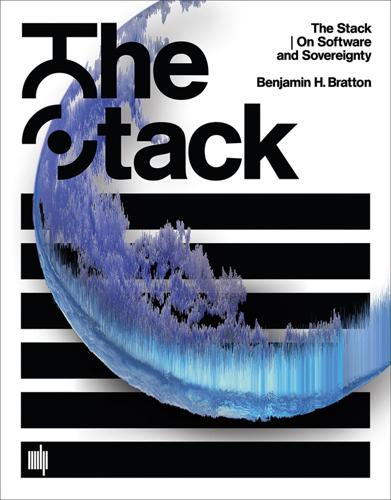
The Stack: On Software and Sovereignty
by
Benjamin H. Bratton
Published 19 Feb 2016
Not only was ICANN (Internet Corporation for Assigned Names and Numbers), the Internet addressing authority, established in California and its relationship with the US federal authorities long controversial, but today the United States is still (and may remain) the unnamed, unmarked center of addressable Internet space (US websites are usually “.com” not “.co.us” as they would be without this infrastructural exceptionalism). It is in this context that the National Security Agency's (NSA) comprehensive data capture, surveillance, storage, and metadata analysis programs as disclosed by Edward Snowden and colleagues are understood to represent a strong American state maneuver of sovereign control over (or, at the very least, of policing of) the spectral spaces of planetary-scale computation. The willing and unwilling complicity of major commercial Cloud platforms in this endeavor associates them directly with the reach of that claim, and so the Monroe Doctrine of the Cloud and the Google Grossraum are seen by some to conceal only one another.
…
But instead of watching from some sterilized perch, even the User of the Palantir software is participating in the tracing of the column. “Palantir's central privacy and security protection would be … ‘the immutable log.’ Everything a user does in Palantir creates a trail that can be audited. No Russian spy, jealous husband or Edward Snowden can use the tool's abilities without leaving an indelible record of his or her actions.”70 This meta-metadata recursivity is a key aspect for how such systems function. The fact that analyst B has already established links between persons X and Y becomes the trail that analyst C explores. The query becomes the quarry.
…
We discussed the strong gravity field between the overestimation of WikiLeaks’ significance and Truther websites, which suggests that apophenia has, for the geopolitics of technology, risen to the level of a political ethics, and that the “Influencing Machine” is no longer the purview of psychiatrists but now also sociologists. 20. “But Palantir's central privacy and security protection would be what Karp calls, with his academic's love of jargon, ‘the immutable log.’ Everything a user does in Palantir creates a trail that can be audited. No Russian spy, jealous husband or Edward Snowden can use the tool's abilities without leaving an indelible record of his or her actions. Why had the thought of these data mining projects analyzing their own use not occurred to me until just now?” Andy Greenberg, “How a ‘Deviant’ Philosopher Built Palantir, a CIA-Funded Data-Mining Juggernaut,” Forbes, August 14, 2014, http://www.forbes.com/sites/andygreenberg/2013/08/14/agent-of-intelligence-how-a-deviant-philosopher-built-palantir-a-cia-funded-data-mining-juggernaut/2/. 21.
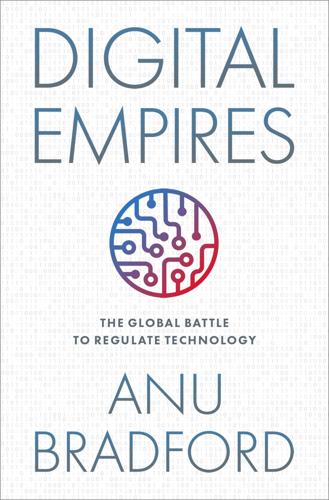
Digital Empires: The Global Battle to Regulate Technology
by
Anu Bradford
Published 25 Sep 2023
Hundreds of millions of surveillance cameras are already installed across China where the government can now match the video footage to personal data collected elsewhere, identifying individuals in real time and potentially predicting or even preventing political resistance before it even happens.18 The government has rolled out AI-driven surveillance programs such as Sharp Eyes,19 the goal of which is to create an “omnipresent, fully integrated, always working and fully controllable” nationwide surveillance system, built and supported by Chinese tech companies.20 Yet it is not only authoritarian governments that deploy the internet as a tool for surveillance. Democratic governments, including the United States, also conduct extensive surveillance operations, as former US National Security Agency (NSA) contractor Edward Snowden revealed as part of the unprecedented leak of sensitive US intelligence data in 2013. Those Snowden revelations exposed how the NSA had engaged in a mass surveillance of individuals by harvesting data available through Facebook.21 Without proper oversight, it is both tempting and feasible for any government to utilize the surveillance capabilities of tech companies to advance their political goals or national security objectives, even when that surveillance undermines individuals’ civil liberties.
…
Surveillance operations provide another example of public-private collaboration in the domain of the digital economy. The US government conducts extensive digital surveillance, both domestically and internationally, as was infamously revealed by a former National Security Agency (NSA) contractor, Edward Snowden, who exposed the US government’s mass surveillance program to the world in 2013.156 These practices have become a major source of controversy between the US and the EU, as will be discussed in Chapter 6. The Snowden revelations also show that the NSA relies on partnerships with major US telecom and internet companies in conducting its surveillance operations, leveraging these private actors to gain access to high-capacity international fiber-optic cables and other key infrastructures.
…
As a result, the US government has often struck a different balance than the EU in reconciling conflicting demands for national security and data privacy, especially in the post-9/11 environment where the war on terror entrenched surveillance deeper into US intelligence policy.18 After 2013, when former National Security Agency contractor Edward Snowden exposed the extent of the US surveillance state to Americans and the wider world, US government surveillance activities were curtailed and additional privacy safeguards were instituted.19 However, even after these safeguards were put into place, US courts have generally been less prepared to second-guess the country’s national security interests compared to their European counterparts.20 Consequently, from the vantage point of Europeans, the balance in US policymaking remains tilted toward national security at the expense of individual privacy.
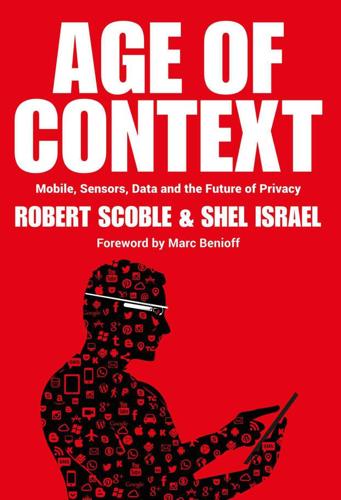
Age of Context: Mobile, Sensors, Data and the Future of Privacy
by
Robert Scoble
and
Shel Israel
Published 4 Sep 2013
But with each chapter we found new privacy issues, and some are too serious to brush aside. While we were busy searching the world for mobile, social media, sensor, data and location technologies, the issues of government surveillance became a prominent national issue in the United States. As the names Bradley (Chelsea) Manning, Dzhokhar and Tamerlan Tsarnaev, and Edward Snowden emerged from the headlines into the national consciousness, public attention came to focus on the role of the secret FISA court, the electronic surveillance of millions of Americans under a National Security Agency data-mining operation called PRISM and so much more. We are just a couple of tech enthusiasts, and some of these national issues would normally go well beyond our purview, were it not for the fact that the same technologies we are extolling are being used to secretly watch people.
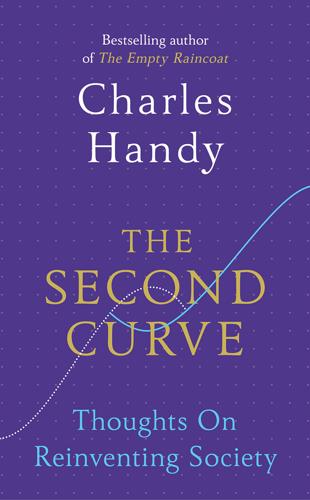
The Second Curve: Thoughts on Reinventing Society
by
Charles Handy
Published 12 Mar 2015
Openness frees up organisations just as it did in Gutenberg’s day when the power of the priesthood was undone by the circulation of the Bible to all who wanted it. Then religion finally belonged to the people, not to the priests. The latter did not, however, give up without a fight, nor will the modern custodians of information. Religion tried to use the Inquisition to re-establish control. Edward Snowden and other hackers have demonstrated that there can be few real secrets any more but the establishment is fighting back, also probably in vain. Here too, when what was secret is revealed the result is often not as explosive as everyone expected. Transparency is not always as risky as it seems.
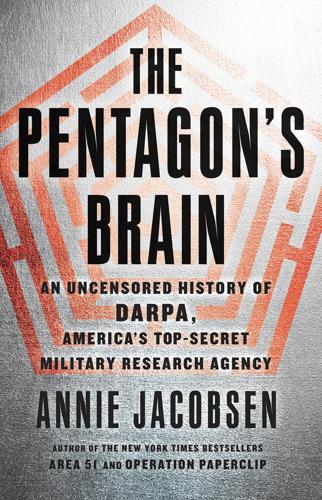
The Pentagon's Brain: An Uncensored History of DARPA, America's Top-Secret Military Research Agency
by
Annie Jacobsen
Published 14 Sep 2015
Major elements of DARPA’s Evidence Extraction and Link Discovery (EELD) and Genoa II programs, including the physical nodes that already existed at INSCOM and in Germany, were folded into a classified NSA system called PRISM—a massive covert electronic surveillance and data-mining program that would create an international uproar in 2013 after NSA whistleblower Edward Snowden leaked thousands of pages of classified documents to the press. Some DARPA programs with public faces were transferred to the Department of Homeland Security, including the Computer Assisted Passenger Prescreening System (CAPPS), Activity Recognition and Monitoring (ARM), and Human Identification at a Distance (HumanID).
…
In Iraq and Afghanistan, by 2011 the Army had intrusively mapped the human terrain of at least 3.7 million foreigners, many of whom were enemy combatants in war zones. Apart from the effectiveness of any of that work—and as of 2015 the Islamic State controlled much of Iraq, while Afghanistan was spiraling into further chaos—there exists an important question for Americans to consider. In the summer of 2013, whistleblower Edward Snowden released classified information that showed the National Security Agency had a clandestine data-mining surveillance program in place, called PRISM, which allowed the NSA to collect information on millions of American citizens. Both of these programs had origins in DARPA’s Total Information Awareness program.
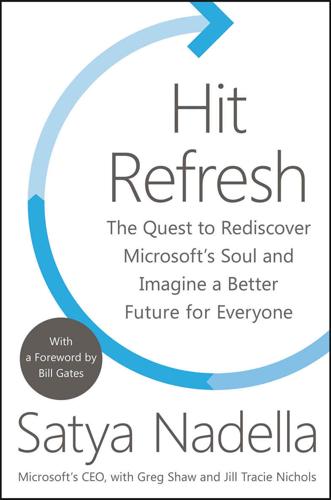
Hit Refresh: The Quest to Rediscover Microsoft's Soul and Imagine a Better Future for Everyone
by
Satya Nadella
,
Greg Shaw
and
Jill Tracie Nichols
Published 25 Sep 2017
Similarly, it should require that governments assist private-sector efforts to detect, contain, respond to, and recover from these events and should mandate that governments report vulnerabilities to vendors rather than stockpile, sell, or exploit them. In retrospect, our preparation for defending our company values and building trust in the face of an international crisis had begun with a very public challenge that had occurred just over a year earlier. When the former National Security Agency contractor Edward Snowden boarded a plane in May 2013 to flee the United States for China on his way to asylum in Russia, the very founding principles of America—not to mention those of our own company—immediately came into play. I was to become CEO in only a few short months, but at the time I ran our cloud and enterprise business, which stored many terabytes of emails and other data on servers worldwide.
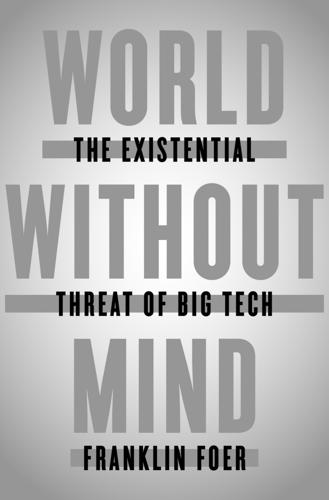
World Without Mind: The Existential Threat of Big Tech
by
Franklin Foer
Published 31 Aug 2017
Google was hardly modest in assessing how it contributed to the campaign’s success: “The results from Election Day speak for themselves: a resounding victory, with nearly every battleground state falling into the President’s column.” We don’t need to assume the worst about the tech companies to fear their capacity to swing votes. As we have seen from the Edward Snowden saga, a rogue programmer can find ways to undermine highly secure systems. Marius Milner, an engineer at Google, abused his access to Google’s street-mapping vehicles. These cars traversed the roadways of America, taking pictures, which Google would stitch together into a coherent view. Milner programmed Google’s cars to tap the WiFi signals coming from the homes they passed, sweeping up private data, even email correspondence.
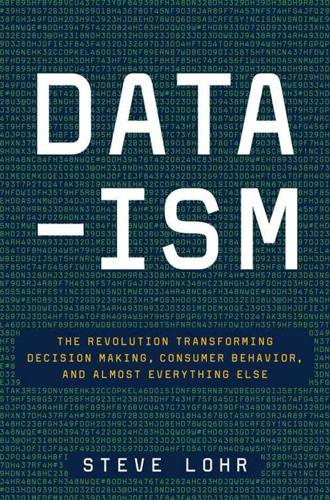
Data-Ism: The Revolution Transforming Decision Making, Consumer Behavior, and Almost Everything Else
by
Steve Lohr
Published 10 Mar 2015
He was a witness for the Justice Department in its landmark antitrust case against Microsoft. Felten also testified on behalf of the American Civil Liberties Union in its suit challenging the National Security Agency’s collection of the telephone call records of American citizens—the surveillance program disclosed by Edward Snowden’s leaks—as a violation of the Fourth Amendment’s protection against unreasonable search and seizure. In a lengthy conversation, I happened to bring up the old Kodak experience. Felten reminded me that we revisited that issue about a decade ago, when fairly high-quality cameras became a standard feature on cell phones.
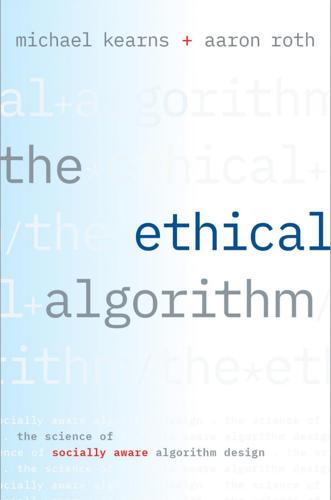
The Ethical Algorithm: The Science of Socially Aware Algorithm Design
by
Michael Kearns
and
Aaron Roth
Published 3 Oct 2019
For Google and Apple, the trade-offs that go with the local model of privacy make sense. First, neither company is necessarily trusted by its users. No matter what you think about the companies themselves, there is a real risk that data they store on their servers will be revealed to others via hacking or government subpoena. For example, in 2013, Edward Snowden released thousands of documents revealing intelligence-gathering techniques used by the National Security Agency (NSA). Among the revelations were that the NSA had been eavesdropping on communications that flowed between Google (and Yahoo) data centers, without Google’s knowledge. Security has been tightened since then—but whether or not surreptitious data exfiltration has been stopped, there is still much data released to national governments via the ordinary legal process.

Smart Cities, Digital Nations
by
Caspar Herzberg
Published 13 Apr 2017
The inevitable signs of economic slowdown began to appear in 2012–2013; by the next year, a wild card news item assured that Cisco’s efforts in China would be a rough ride for the next few years. LESSONS LEARNED By 2014, the political winds, far stronger than any experienced in Songdo, were buffeting Cisco’s business strategy and results in China. As Edward Snowden became famous to some, infamous to others, fresh questions about nations undertaking surveillance—and embroiling IT companies in the efforts—surfaced and consumed the media’s attention for weeks. The U.S. National Security Agency, long regarded as aggressive in its tactics against other countries, stood accused of intercepting and modifying IT equipment before it was shipped to China and other nations.
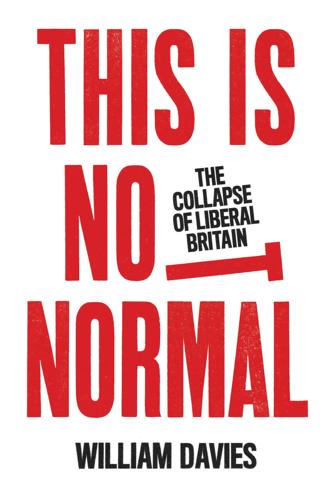
This Is Not Normal: The Collapse of Liberal Britain
by
William Davies
Published 28 Sep 2020
While such torrents are underway, there is no way of knowing how far they may spread or how long they may last. The era of ‘big data’ is also the era of ‘leaks’. Where traditional ‘sleaze’ could topple a minister, several of the defining scandals of the past decade have been on a scale so vast that they exceed any individual’s responsibility. The Edward Snowden revelations of 2013, the Panama Papers leak of 2015 and the HSBC files (revealing organised tax evasion) all involved the release of tens of thousands or even millions of documents. Paper-based bureaucracies never faced threats to their legitimacy on this scale. The power of commissions and inquiries to make sense of so much data is not to be understated, nor is the integrity of those newspapers and whistleblowers that helped bring misdemeanours to light.

McMindfulness: How Mindfulness Became the New Capitalist Spirituality
by
Ronald Purser
Published 8 Jul 2019
Ream was asking Google and other corporations to look at the problems and address them, by paying for the impact on housing and infrastructure. Heart of the City’s demands included funding for affordable housing, public transit, and eviction defense support, as well as an end to for-profit surveillance of the sort exposed by Edward Snowden. What was the response from the wise, empathic, compassionate, mindful sages onstage? Meng sat cross-legged in his Tai Chi costume. Bill Duane, the senior manager of Google’s Wellbeing and Sustainable High Performance Development programs, jumped in with an impromptu meditation. He instructed the audience to — you’ve guessed it — search inside themselves: “check in with your body,” he said, and “feel what it’s like to be in conflict with people with heartfelt ideas,” while security forced the protesters off the stage.16 A beefy guard engaged in an embarrassing tug-of-war with one activist banner-holder, who won.
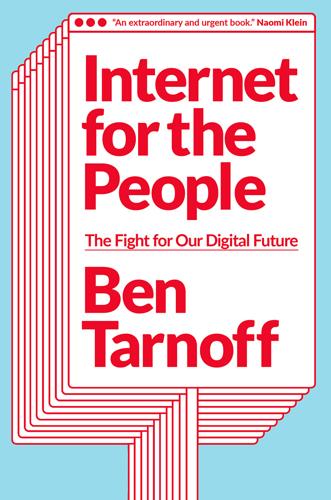
Internet for the People: The Fight for Our Digital Future
by
Ben Tarnoff
Published 13 Jun 2022
People argue, debate, deliberate, and decide how to govern themselves together. Homo politicus is what makes democracy possible. Spy Machines One final area of concern involves state surveillance. State surveillance is an omnipresent feature of online life and the US government runs an especially far-reaching spy machine, as revealed by Edward Snowden’s disclosures in 2013. Any plan that involves leveraging the power of the public sector to transform the internet will raise fears that it could increase state surveillance, or that it could help the state engage in other kinds of repression: blocking access to websites that are considered subversive, for example, or suspending internet access entirely, as India’s government does frequently, particularly in the border region of Kashmir.
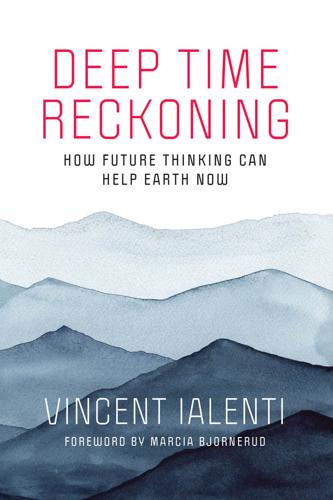
Deep Time Reckoning: How Future Thinking Can Help Earth Now
by
Vincent Ialenti
Published 22 Sep 2020
For some, faith in national security experts had been shaken by failures to foresee the 9/11 terror attacks. For others, faith in military experts had flagged since the United States invaded Iraq based on false pretenses about weapons of mass destruction. For some, faith in intelligence experts had been stunted since Edward Snowden publicly leaked the US National Security Agency’s massive global surveillance operations. For others, faith in big data science was losing its luster, now associated with digital privacy losses and surveillance capitalism. Skepticism was surely warranted in the wake of these grave failures of expertise and breaches of public trust.
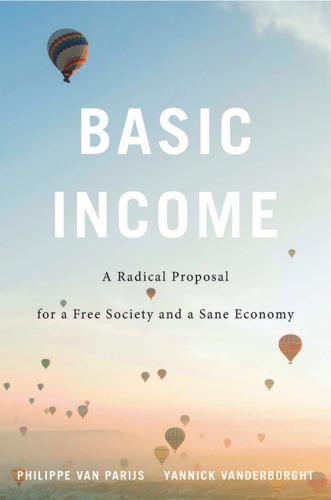
Basic Income: A Radical Proposal for a Free Society and a Sane Economy
by
Philippe van Parijs
and
Yannick Vanderborght
Published 20 Mar 2017
But Â�after all, we have had massive growth since the beginning of the golden sixties—Â�GDP per capita has doubled or trebled since then—Â�and we have not exactly seen the end of joblessness and job insecurity.7 Each of Â�these doubts about growth as a solution to unemployment and precariousness in the context of further automation could be challenged in variÂ�ous ways. But together they suffice to explain and justify growing calls for a more credible response to the impending challenge. Even NSA whistleÂ� blower Edward Snowden has reached this conclusion. He told The Nation in 2014: “As a technologist, I see the trends, and I see that automation inevi6 The Instrument of Freedom tably is Â�going to mean fewer and fewer jobs. And if we do not find a way to provide a basic income for Â�people who have no work, or no meaningful work, Â�we’re Â�going to have social unrest that could get Â�people killed.”↜8 Basic Income Thus, the expectation that meaningful work will be lacking easily leads to the conviction that the growing jobless population must be provided with some means of livelihood.
…
Een onderzoek naar het basisinkomen binnen de Voedingsbond FNV. University of Utrecht: Vakgroep Algemene Sociale Wetenschappen. Vandenbroucke, Frank. 1997. “A propos de l’instauration pragmatique d’une allocation universelle.” La Revue nouvelle 105: 161–166. Vanden Heuvel, Katrina, and Stephen F. Cohen. 2014. “Edward Snowden: A ‘Nation’ Interview.” Nation, October 20. Vanderborght, Yannick. 2001. “La France sur la voie d’un ‘revenu minimum inconditionnel’?” Mouvements 15–16: 157–165. —Â�—Â�—. 2002. “Belgique: VIVANT ou l’allocation universelle pour seul programme electoral.” Multitudes 8: 135–145. 366 B ibliogra p hy —Â�—Â�—. 2004a.
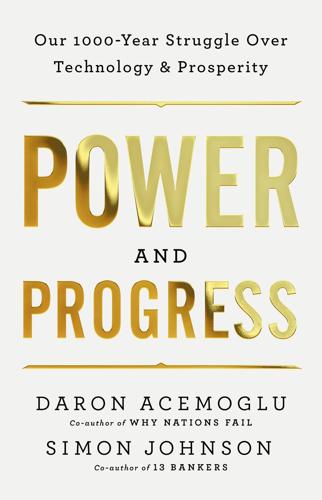
Power and Progress: Our Thousand-Year Struggle Over Technology and Prosperity
by
Daron Acemoglu
and
Simon Johnson
Published 15 May 2023
French president Emmanuel Macron’s phone was on the list, as were the numbers of several high-ranking US State Department officials. The United States does not need Pegasus for high-tech transgressions (although some of its security agencies did experiment with the software and also acted as an intermediary in its sale to the Djibouti government). On June 5, 2013, the world was awakened to revelations from Edward Snowden, first published in the Guardian newspaper, about illegal data collection by the National Security Agency (NSA). The NSA cooperated with Google, Microsoft, Facebook, Yahoo!, various other internet service providers, and telephone companies such as AT&T and Verizon to scoop up huge amounts of data about American citizens’ internet searches, online communications, and phone calls.
…
Quartz, June 4, last updated July 20, 2022. https://qz.com/2016153/ai-promised-to-revolutionize-radiology-but-so-far-its-failing. Solow, Robert M. 1956. “A Contribution to the Theory of Economic Growth.” Quarterly Journal of Economics 70:65‒94. Solow, Robert M. 1987. “We’d Better Watch Out.” New York Times Book Review, July 12, 36. Sorkin, Amy Davidson. 2013. “Edward Snowden, the N.S.A. Leaker, Comes Forward.” New Yorker, June 9. Spear, Percival. 1965. The Oxford History of Modern India, 1740‒1947. Oxford: Clarendon. Specter, Michael. 2021. “How ACT UP Changed America.” New Yorker, June 7. www.newyorker.com/magazine/2021/06/14/how-act-up-changed-america. Spinrad, R.
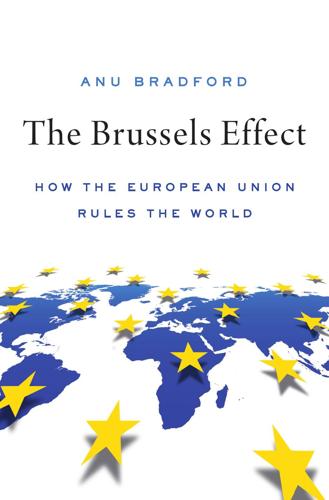
The Brussels Effect: How the European Union Rules the World
by
Anu Bradford
Published 14 Sep 2020
The EU’s proclivity to regulate the conduct of these companies may also reflect some degree of resentment toward the US’ success in dominating the commercial internet.72 By exerting control over data practices of these multinational companies, the EU is staking a clear position against the US’ unregulated approach toward digital companies, thereby countering this dominance—even if only at the margin.73 The politics underlying the international privacy debates have recently shifted in the EU’s favor. As mentioned earlier, a particularly important development was the 2013 Edward Snowden revelations regarding unauthorized NSA surveillance programs. In 2018, another high-profile scandal broke, further entrenching citizens’ concerns about their privacy. That year, a British political consulting firm, Cambridge Analytica, was found to have acquired private data obtained from Facebook users.
…
According to the US Department of Commerce, the value of annual digital services trade between the United States and the EU is $260 billion.162 The ECIPE, a think tank, has estimated that the end to transatlantic data transfers would reduce EU’s GDP by 0.4% a year.163 To resolve the issue and create a legal basis for transatlantic data transfers, the United States and the EU entered into a Safe Harbor agreement in 2000.164 The EU-US Safe Harbor Agreement consisted of a set of negotiated principles, which the EU considered to meet the European “adequacy” standards. The US companies that voluntarily subscribed to these standards were allowed to receive data transfers concerning European data subjects. Over 5,000 US companies entered the Safe Harbor agreement.165 However, following the Edward Snowden revelations about mass surveillance by NSA in the United States,166 the ECJ struck down the Safe Harbor agreement in October 2015 in its Schrems decision, as previously discussed.167 According to the Court, an adequacy standard required that the non-EU country guaranteed “a level of protection of fundamental rights and freedoms that were essentially equivalent to that guaranteed within the EU”168—and the Safe Harbor data-transfer agreement that governed EU data flows across the Atlantic for fifteen years did not meet that standard.169 This setback led the United States and the EU to negotiate a new agreement to govern transatlantic data transfers: The EU-US Privacy Shield.170 This new agreement, which entered into force in August 2016, had 4,685 US companies as signatories in May 2019, including major players such as Facebook, Google, and Microsoft.171 The US Department of Commerce will monitor these companies’ compliance with the Privacy Shield, effectively ensuring that the data protection standards are equivalent to those found in EU.
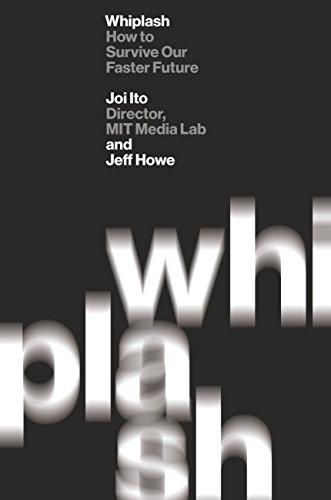
Whiplash: How to Survive Our Faster Future
by
Joi Ito
and
Jeff Howe
Published 6 Dec 2016
We discussed releasing genetically modified organisms with gene drive technology into the wild and extreme geological engineering, for example, throwing diamond dust into the stratosphere to reflect the sun’s rays to cool the earth. We had what I believe to be the first public talk about a campus hack (what MIT calls a particular category of pranks), where students put a fire truck on the MIT dome in the middle of the night. We had Edward Snowden video conference in to give a talk about technologies to protect journalists in war zones. We had Alexandra Elbakyan, the controversial creator of Sci-Hub, the website that illegally hosts almost all of the academic papers available online for free, to the dismay and anger of academic publishers.
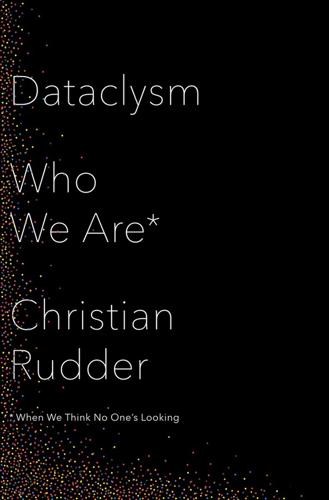
Dataclysm: Who We Are (When We Think No One's Looking)
by
Christian Rudder
Published 8 Sep 2014
We do know that the UK has 5.9 million security cameras, one for every eleven citizens. In Manhattan, just below Fourteenth Street, there are 4,176. Satellites and drones complete the picture beyond the asphalt. Though there’s no telling what each one sees, it’s safe to say: if the government is interested in your whereabouts, one sees you. And besides, as Edward Snowden revealed, much of what they can’t put a lens on they can monitor at leisure from the screen of an NSANet terminal, location undisclosed. Because so much happens with so little public notice, the lay understanding of data is inevitably many steps behind the reality. I have to say, just pausing to write this book, I’m sure I’ve lost ground.
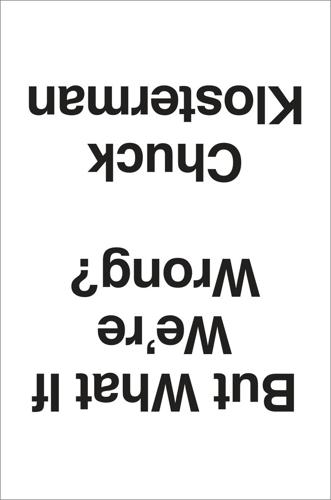
But What if We're Wrong? Thinking About the Present as if It Were the Past
by
Chuck Klosterman
Published 6 Jun 2016
All feasible ideas and every possible narrative exist together, and each new societal generation can scoop out a bucket of whatever antecedent is necessary to support their contemporary conclusions. When explained in one sentence, that prospect seems a little terrible. But maybe that’s just because my view of reality is limited to river-based thinking. I’ve slowly become an admirer of Edward Snowden, the former government employee who leaked thousands of classified documents and now lives in exile. I was initially skeptical of Snowden, until I saw the documentary Citizenfour. Granted, Citizenfour is a non-objective telling of his story, produced by the journalists Snowden was aligned with.
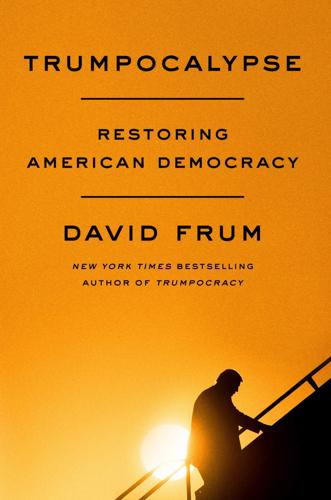
Trumpocalypse: Restoring American Democracy
by
David Frum
Published 25 May 2020
Former allies find themselves at dagger’s point; former adversaries forge new alliances. It’s much more likely that George W. Bush and Barack Obama will vote for the same candidate for president in 2020 than it is that George W. Bush and Donald Trump will vote for the same candidate. The people who most vociferously cheered for Edward Snowden and Julian Assange in the first half of the 2010s made clear they preferred Donald Trump over Hillary Clinton in the second half. Is anti-vaccination a left-wing or right-wing movement? Hard to say. Who is more anti-Semitic, the far left or the far right? Again, hard to say. Who is more likely to absorb Putin’s online propaganda and favor his foreign policy over America’s, Bernie bros or MAGA hats?
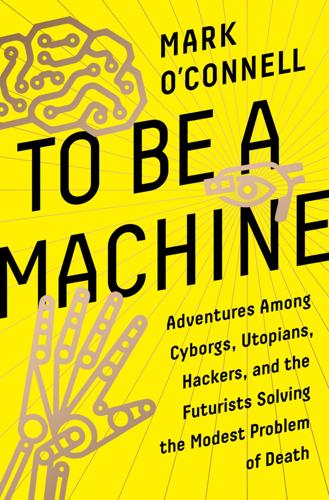
To Be a Machine: Adventures Among Cyborgs, Utopians, Hackers, and the Futurists Solving the Modest Problem of Death
by
Mark O'Connell
Published 28 Feb 2017
I found it difficult to accommodate the sight of this pleasant-looking woman, smiling fondly at the driving robot, with what I knew about the organization she led. When I thought of DARPA, I thought, among other things, of its administration of the so-called Information Awareness Office, exposed by the former CIA employee Edward Snowden as a mass surveillance operation organized around a database for the collection and storage of the personal information (emails, telephone records, social networking messages, credit card and banking transactions) of every single resident of the United States, along with those of many other countries, all of which was accomplished by tapping into the user data of marquee-name tech companies like Facebook, Apple, Microsoft, Skype, Google—the corporate proprietors of the sum of things that might be factually and usefully said about you, your information.
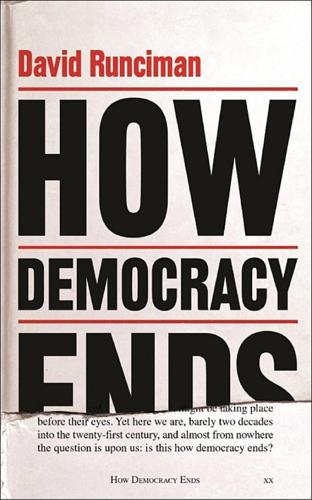
How Democracy Ends
by
David Runciman
Published 9 May 2018
Otherwise there could be no true security, since political trouble can break out in the most unexpected places. Bentham created a different version of the same idea. He designed a prison he called the Panopticon. It was constructed on a circular model that would allow the governor to keep permanent watch on the inmates. Whistleblower Edward Snowden’s nickname for the National Security Agency (NSA), whose secret mass surveillance operations he revealed to the world, was ‘the Panopticon’. Bentham’s original purpose in designing his prison was to ensure that convicted criminals did not use prison as an opportunity to conspire with each other.
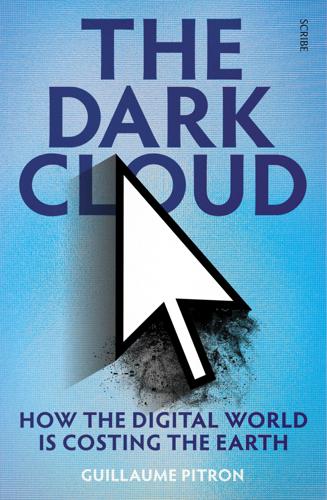
The Dark Cloud: How the Digital World Is Costing the Earth
by
Guillaume Pitron
Published 14 Jun 2023
At first, it was rejected by the agency, who responded: ‘Armed with this information, one could then deduce how much intelligence NSA is collecting and maintaining.’63 Pressured into transparency, the agency caved in two months later, and it was revealed that its facility was consuming between 100,000 and 200,000 cubic metres of water every month.64 This was not enough to dry up Utah’s Jordan River, which the municipality uses to meet its own needs, but let it be said: there can be no generalised surveillance without water. Yet the public disclosure of this information sparked an unexpected battle … Alerted to the matter, the Tenth Amendment Center (TAC) — a non-profit dedicated to the protection of the American Constitution — took up the case. The recent revelations of the whistleblower Edward Snowden had shaken the defenders of civil liberties. They wanted to thwart the activities of the NSA. TAC’s executive director, Michael Boldin, discovered through his investigations that a few years prior, another one of the agency’s data centres, operating in the city of Baltimore, had ‘maxed out’ the local power grid.65 ‘We understood that the NSA needed natural resources, so we thought “Why not cut off supply?”’
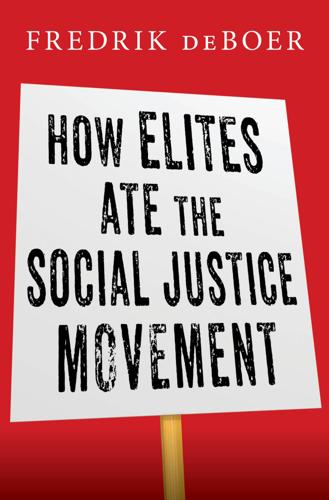
How Elites Ate the Social Justice Movement
by
Fredrik Deboer
Published 4 Sep 2023
Even if you could amass more followers and gather more guns, the outcome of violence against the state would be predetermined. Consider the military advantage the United States government would hold against any possible internal resistance movement. The first advantage would not be in military might but in intelligence. Revelations about spying by US intelligence agencies, such as those made possible by Edward Snowden, demonstrate that the government would have all the information needed to quell any uprising before it started. Anytime members of a resistance group used a cell phone, their communications could be easily intercepted; simply having the device on in their pocket would enable the state to track them.

A World in Disarray: American Foreign Policy and the Crisis of the Old Order
by
Richard Haass
Published 10 Jan 2017
The World Conference on International Telecommunications, held in Dubai in December 2012, ended with no consensus as to whether the International Telecommunication Union (ITU), established in 1947 for different purposes, would gain oversight over the Internet, something that would bring about a larger role for governments. What little consensus there was on how to handle data in a manner that protected privacy broke down in the wake of the revelations by the disgruntled former CIA employee Edward Snowden; the EU Court of Justice voided the 2000 Safe Harbor accord, causing frictions across the Atlantic until a U.S.-EU pact was reached in 2016 that addressed EU concerns.23 Overall, the governance gap over all things cyber expanded, the result of rapid technological innovation and an absence of much in the way of consensus as to what the rules ought to be.
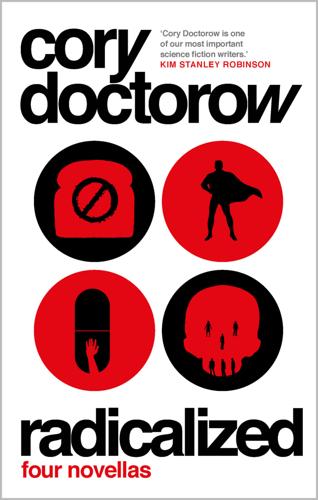
Radicalized
by
Cory Doctorow
Published 19 Mar 2019
Kim Stanley Robinson ‘A dystopian future is in no way inevitable; [Doctorow] reminds us that the world we choose to build is the one we’ll inhabit. Technology empowers both the powerful and the powerless, and if we want a world with more liberty and less control, we’re going to have to fight for it.’ Edward Snowden ‘The darker the hour, the better the moment for a rigorously imagined utopian fiction. Walkaway is now the best contemporary example I know of, its utopia glimpsed after fascinatingly extrapolated revolutionary struggle. A wonderful novel: everything we’ve come to expect from Cory Doctorow and more.’

The Hostage's Daughter
by
Sulome Anderson
Published 24 Aug 2016
I spend a lot of money and many frustrated tears trying to figure out what’s happening, and it isn’t long before I’m convinced someone is gaslighting me. I spend a significant amount of time obsessing over this, and yes: at this point, I somewhat succumb to paranoia. Around this time, the movie Citizenfour is released, and as I follow Edward Snowden’s exposure of the NSA’s surveillance program, it becomes abundantly clear that governments using technology to violate our privacy is a reality of the world we live in. So I’m occupied by that thought for a while until I realize there’s no possible way for me to find out whether this is a legitimate effort to stall and intimidate me or just a series of unfortunate electronic malfunctions and an overactive imagination.

Dark Matters: On the Surveillance of Blackness
by
Simone Browne
Published 1 Oct 2015
One of the tasks of Dark Matters has been to situate the dark, blackness, and the archive of slavery and its afterlife as a way to trouble and expand understandings of surveillance. Of course, some things are still left in the dark: the open secret that is the operation of black sites for rendition, torture, detention, and disappearance of people suspected as terroristic threats, or Edward Snowden’s revelations in the summer of 2013 of the National Security Agency’s warrantless wiretapping, a program representing what he called “a dangerous normalization of governing in the dark.”8 In the beginning of this book, I named dark sousveillance as a form of critique that centers black epistemologies of contending with surveillance, and I later looked to freedom acts such as escaping from enslavement by using falsified documents and aliases, or the Totau as celebratory resistance performed right under the surveillant gazes of white audiences, and Solange’s critique of TSA searches as “Discrim-FRO-nation.”

Vassal State
by
Angus Hanton
Published 25 Mar 2024
Former French government minister Arnaud Montebourg argues that Americans use pseudo-military tools to wage economic warfare: First of all, they use all the listening and intelligence systems that they built on after 9/11… they listen to foreign companies that compete with theirs… it became clear in 2014 when [Edward] Snowden revealed that there were 75 million conversations and emails that had been exploited by the NSA [National Security Agency] on France, on French companies… Second, they have a tool called extraterritorial law. The Americans are using a form of law, which is an imperialist law, which consists in declaring themselves competent for matters which in no way concern them… They declare themselves policeman of the world by undermining the sovereign interests.
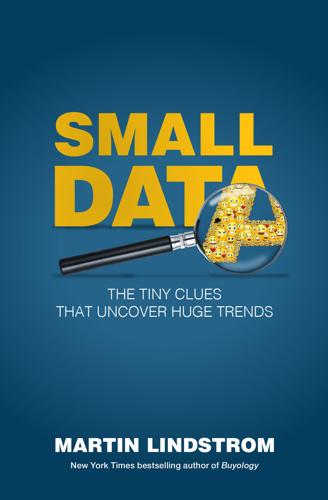
Small Data: The Tiny Clues That Uncover Huge Trends
by
Martin Lindstrom
Published 23 Feb 2016
As everyone knows, people send out unconscious signals, and, as I am a chameleon by nature, one of the things I do is “become” the person I’m talking to, since we tend to respond to the people who are most similar to us. This turned out to be harder than usual in Russia, where trust is generally lacking. Most people there don’t look you in the eyes, and their gazes have a cloudy, dissociated look. Decades before Julian Assange and Edward Snowden made headlines, Russians knew their phone lines were being tapped. My Moscow-based employer had a dozen or so cell phones on him at all times. The people who mattered most to him had their own dedicated phones, and whenever one rang, he had to sort through his briefcase to find it. When he spoke, his words were hushed, a hand always covering his mouth in case someone could read his lips.
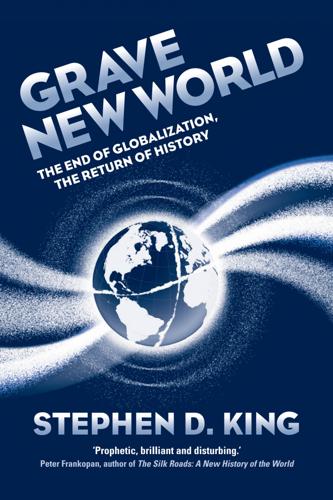
Grave New World: The End of Globalization, the Return of History
by
Stephen D. King
Published 22 May 2017
Bush and Tony Blair allegedly prayed together for a successful outcome. While the UK still talks in romantic terms about its ‘special relationship’ with the US, it’s special largely because it is so unequal, as Anthony Eden discovered to his personal cost during the Suez Crisis. And Germany’s relations with the US temporarily soured when Edward Snowden’s WikiLeaks revealed that Chancellor Angela Merkel’s mobile phone had been hacked by the US National Security Agency. Presumably, Barack Obama was hastily removed from her speed dial. A third way might simply be a moral equivalent of the Washington Consensus. In this case, behaviours should somehow be judged relative to moral norms established by America’s Founding Fathers and subsequently delivered to the world through the benevolent exercise of American ‘soft power’.
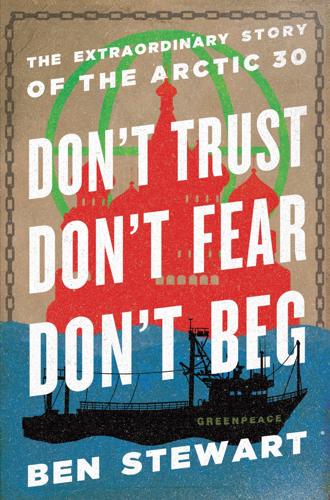
Don't Trust, Don't Fear, Don't Beg: The Extraordinary Story of the Arctic 30
by
Ben Stewart
Published 4 May 2015
v=8xRT7wQiebw 83http://www.reuters.com/article/2013/10/17/russia-greenpeace-gazprom-idUSL6N0I73BV20131017 84http://www.mensjournal.com/magazine/pete-willcox-high-seas-avenger-20140324 85http://www.mensjournal.com/magazine/pete-willcox-high-seas-avenger-20140324 86http://www.mensjournal.com/magazine/pete-willcox-high-seas-avenger-20140324 87http://www.mensjournal.com/magazine/pete-willcox-high-seas-avenger-20140324 88http://www.crmvet.org/tim/timhis63.htm#1963selma1 89http://www.crmvet.org/info/lithome.htm 90http://www.nps.gov/nr/travel/civilrights/al4.htm 91http://www.nps.gov/semo/historyculture/index.htm 92http://news.bbc.co.uk/onthisday/hi/dates/stories/march/28/newsid_4264000/4264241.stm 93http://iipdigital.usembassy.gov/st/english/publication/2009/01/20090107151130srenod0.5167658.html#axzz3EDtsZjvF 94http://www.mensjournal.com/magazine/pete-willcox-high-seas-avenger-20140324 95http://www.sciencephoto.com/media/152694/view 96http://www.mensjournal.com/magazine/pete-willcox-high-seas-avenger-20140324 97http://www.mensjournal.com/magazine/pete-willcox-high-seas-avenger-20140324 98http://www.academia.edu/1005097/The_Rainbow_Warrior_bombers_media_and_the_judiciary_Public_interest_v_privacy 99http://www.theguardian.com/environment/2005/jul/15/activists.g2 100http://www.academia.edu/1005097/The_Rainbow_Warrior_bombers_media_and_the_judiciary_Public_interest_v_privacy 101David Lange, My Life (Auckland, 2005), pp. 222–3, pp. 274–5. 102Terry Crowdy, Military Misdemeanours: Corruption, Incompetence, Lust and Downright Stupidity (Oxford, 2007), p. 246. 103http://www.thetimes.co.uk/tto/news/world/article1980551.ece 104http://www.theguardian.com/environment/2007/may/25/usnews.france 105http://www.mensjournal.com/magazine/pete-willcox-high-seas-avenger-20140324 106Dear Comrade 107http://www.rferl.org/content/article/1059107.html 108http://www.bloomberg.com/news/2013-11-06/dutch-urge-release-of-greenpeace-crew-in-court-clash-with-russia.html 109http://www.dailymail.co.uk/debate/article-2458302/DOMINIC-LAWSON-Putins-brute-Greenpeace-bigger-menace-future.html 110http://www.thesundaytimes.co.uk/sto/news/article1323429.ece 111http://best-museums.com/russia/85-museum-crosses.html 112http://www.poetryfoundation.org/bio/anna-akhmatova 113http://www.spb.aif.ru/society/135936 114http://www.spb.aif.ru/society/135936 115http://articles.latimes.com/1999/oct/17/news/mn-23277 116http://www.greenpeace.org/international/en/press/releases/Greenpeace-Current-draft-of-Russian-amnesty-does-not-include-Arctic-30/ 117http://www.greenpeace.org/international/en/press/releases/Russian-parliament-votes-for-amnesty-for-Arctic-30/ 118http://www.telegraph.co.uk/news/worldnews/vladimir-putin/10527779/Vladimir-Putin-pardons-oil-tycoon-Mikhail-Khodorkovsky-in-Amnesty.html 119http://www.theguardian.com/world/2013/dec/19/russia-never-worked-edward-snowden-nsa-putin 120http://eng.kremlin.ru/news/7040 121http://www.ship-technology.com/projects/mikhail_ulyanov/ INDEX Akhan, Gizem, in SIZO-1, Murmansk 198 Akhmatova, Anna 277, 278 Alexander (lawyer) 243, 263 Alexei (inmate) 101, 108, 109–10, 211 imprisonment of 110 Allakhverdov, Andrey, in SIZO-1, Murmansk 110–11, 125 Amnesty International, Litvinov Sr alerts 86 Anders, William 1 Andrews, Iris 136 Andropov, Yuri 95 Anton (inmate) 282, 295, 305, 310, 311, 317 Arctic: ‘always been Russian’ 176 calls for sanctuary status of 346–7 as planet’s air conditioner 131 Russian platform in, see Arctic 30 activists/crew; Prirazlomnaya platform and Russian seabed flag 129, 170, 176 Arctic 30 activists/crew: accused of being CIA 49 and Amnesty Bill 329–33 bail applications for 290–1, 296–300, 302–4, 305–11, 319; granted, see individual activists/crew calls to Russian embassies for release of 134 campaign to free: apology statement drafted by 173–4; appeals launched by 155, 179–80; Christensen made leader of 51–2; and Christensen’s global sources 168; Emergency Day of Solidarity 134–5; further global action by 193, 296–7; Gazprom stations shut down by 139; global co-ordination by 136–7; global hubs of 135; London hub of 135–6; and UEFA Champions League game 137–9 charges against 204 eventual numbers calling for release of 346 families called from Arctic Sunrise by 53 hashtag devised for 50 initial interrogations of 57–8 Investigative Committee HQ arrival of 56 Investigative Committee tries to split 252 jail arrival of, Murmansk 68–9 jail arrival of, St Petersburg 276–7 jail sentences pronounced on 65–6 London homecoming of members of 335–6 Moscow march for release of 208 Murmansk arrival of 55–6 Nobel laureates’ plea for 199 piracy charges against 5, 58, 101, 109, 121, 147; hooliganism substituted for 204–6 post-release bonds among women of 323 post-release confinement of 328 Presidential Council for Civil Society and Human Rights offers to act as guarantor for 263 at Prirazlomnaya protest 19–28 prison psychologist’s meeting with 119–20 prison transfer of 270–3, 275–6; prospect of 257–8, 260, 264, 267–9 Russian citizens complain about detention of 129 smuggled letters to and from 159–60 state broadcaster’s news reports on 110–11 supplies got to 162 thirtieth day of imprisonment of 193 Tutu’s letter concerning 198 see also Arctic Sunrise Arctic Sunrise: film footage of Russians’ raid on, see camera memory card, footage on FSB’s drugs-find claim concerning 189–93 guns fired towards 25–6, 28–9 ITLOS orders release of 322 Prirazlomnaya hailed by 21 Prirazlomnaya platform observed by 11–12 RHIBs launched from 11–12 Russian occupation of 31–41 Russians’ aggressive radio messages to 14 Russians disable comms systems of 37 towing of, to Murmansk 41–7 see also Arctic 30 activists/crew Argus 342, 348 Artamov, Andrey 8 Auden, W.H. 93 Ayliffe, Ben 33, 136, 172, 186–7, 289, 302, 306 and FSB’s drugs-find claim 190 ‘Babinski, Mr’ (smuggler) 160, 163, 205, 226 Ball, Phil: and Amnesty Bill 332 appeal of 181 bail application of 319; granted 321 camera memory card hidden and smuggled out by, see camera memory card, footage on cell of 73 jail arrivals of, see under Arctic 30 activists/crew jail sentence pronounced on 66 leaves Russia 334–5 and Mikhail Ulyanov 340, 347–8 at Prirazlomnaya protest, see under Arctic 30 activists/crew prison messages of 85, 102 release of, on bail 321–2, 325–6 and Russian seizure of Arctic Sunrise, see under Arctic Sunrise in SIZO-1, Murmansk 73, 75, 79, 85, 102, 144, 155–6, 202, 262; and cell searches 163; and Gulag Gazette 212–15; and ‘Why I am not a hooligan’ letter 205–6 in SIZO-1, St Petersburg, awaiting paperwork for release 321, 325 strip-searched 71 and Winter Olympics campaign design 172 see also Arctic 30 activists/crew Beauchamp, Jon, in SIZO-1, Murmansk 263 Beránek, Jan 297–8, 299, 302, 303, 306, 307–8 Bolshevik Revolution in 90 Boris (inmate) 7–10 passim, 109, 112–15, 122–3, 142, 148, 194–5, 202, 206, 251–2, 267–8, 269 charges against 6 described 5–6 Borman, Frank 1 BP: Deepwater Horizon platform of, see Deepwater Horizon platform Northstar drilling operations of 128 Brezhnev, Leonid 95, 96 Bronshtein, Lev 89 (See also Leon Trotsky) Brownell, Sonia 93 Bryan, Kieron: appeal of 181 camera memory card hidden by 45 cell of 71–2 described 71 and fellow inmate (Ivan) 72–3 girlfriend of (Nancy) 182 jail arrivals of, see under Arctic 30 activists/crew jail sentence pronounced on 66 leaves Russia 334–5 marriage of 343 at Prirazlomnaya protest, see under Arctic 30 activists/crew prison messages of 85 and Russian seizure of Arctic Sunrise, see under Arctic Sunrise in SIZO-1, Murmansk 71–3, 74–5, 79, 85, 100 Cairn Energy 127–9, 131 camera memory card, footage on 43–4, 155–6, 163–4, 181 Christensen downloads 182 handed to ‘Mona’ 181 handed to Rondal 182 shown to ITLOS Dutch delegation 261 TV stations transmit 261–2 Camp Artek 247 Chaplin, Charlie 244 Chilingarov, Artur 129–30, 176 Christensen, Mads, 128, 135, 137, 167–8, 185, 289, 290–1, 302–3, 306 and Amnesty Bill 331 bail amount proposed by 291 first, most urgent task of 52 and FSB’s drugs-find claim 190–1, 193 global sources run by 168 leadership of campaign to free Arctic 30 handed to 51–2 London HQ connection to office of 135 and Naidoo’s letter to Putin 186–8 Christensen, Nora 135–6 Chuprov, Vladimir 192 Cold War 244 Daily Mail 273–4 D’Alessandro, Cristian: at gunpoint 23 release of, on bail 315 Davies, Andrew 50 Davis, Ruth 136, 168–9, 173, 345 and Sixsmith 168–72 Day-Lewis, Cecil 93 Deepwater Horizon platform 83, 87, 127–8, 133 Desert Island Discs 342 Dillais, Louis-Pierre 247 Dolgov, Roman 8–10 appeal of 179–80; and judge’s silly antics 180 arrest of 8 bail application of 319; granted 321 calendar made by 144 described 76 jail sentence pronounced on 65 release of, on bail 321–2 and Russian seizure of Arctic Sunrise, see under Arctic Sunrise in SIZO-1, Murmansk 8–9, 10, 76–8, 115, 123–4, 144; video link from, to court appeal 180 in SIZO-1, St Petersburg 287 see also Arctic 30 activists/crew doroga (road), see SIZO-1 isolation jail, Murmansk Dubček, Alexander 94, 95 Dzerzhinsky, Felix 174 Dzhugashvili, Josef, see Stalin, Joseph Eells, Josh 246, 249 Esperanza 128 European Parliament, call of, for Arctic sanctuary 347 Exxon 87 Fainberg, Viktor 95 Federal Security Bureau (FSB) 50, 55, 121, 147, 239–40, 291 drugs-find claim of 189–93 Litvinov interviewed by 207–11, 252–5 and possible raid on Greenpeace office 185–6 Putin appointed to head 175 suspected false intelligence from 168 see also Russia Fedotov, Mikhail 263, 287–8 Finland, call of, for Arctic sanctuary 347 First Circle, The (Solzhenitsyn) 92 French secret service 15 Gagarin, Yuri 247 Galich, Aleksandr 94 Gazprom 8, 16, 131–2, 344 campaigners shut down stations of 139 continuing demonstrations against 197–8 Izvestia owned by 257 lies from 49 as proxy for Kremlin 137 Putin congratulates 339–40 TV channel owned by 87 and UEFA Champions League game 137–9 Germany, Nazi government in 91 Gold, Nina 122, 147, 148–9, 195, 251, 311, 329, 343 Golitsyn, Vladimir 261 Gostev (security official) 255–6 Greenpeace: and Amnesty Bill 329 Arctic Sunrise’s occupation communicated to 42 Cairn campaign of, see Cairn Energy campaign of, to free Arctic 30, see Arctic 30 activists/crew: campaign to free crew’s relatives contacted by 44 growth of, in size and scope 248–9 Hewetson’s history of sailing with 12 initial actions of, after Arctic Sunrise occupation 49–51 lawyers assembled by 50 Mail article on 273–4 North Pole sanctuary plan of 130 possible bugging of 51 possible raid by FSB on 185–6 Putin furious with 168 TV programme’s claims against 87 youth movement pickets office of 198–9 Gulag Archipelago, The (Solzhenitsyn) 276–7 Gulag Chronicle 212–18, 226 Gulag Gazette 212–15 Gulf of Mexico oil spill, see Deepwater Horizon platform Gumilev, Lev 277 Hamilton, Neil 136, 167 Harper, Stephen 130 Harris, Alex: in Amazon 83 appeal of 183 bail granted to 310 becomes Greenpeace volunteer 83 cell of 70–1 email to parents from 29–30 in Galápagos Islands 83 jail arrivals of, see under Arctic 30 activists/crew jail sentence pronounced on 66 leaves Russia 334–5 parents called from Arctic Sunrise by 53 prison transfer of, see under Arctic 30 activists/crew and Russian seizure of Arctic Sunrise, see under Arctic Sunrise in SIZO-1, Murmansk 70–1, 78–9, 81–4, 116–17, 124–5; ‘curling tongs’ sent to 162, 163; Speziale’s tapping code with 84, 145, 204 in SIZO-5, St Petersburg 282–3, 299–300 SIZO-5, St Petersburg 285–6 strip-searched 70 tweet of 38–9 Willcox’s reunion with 319 see also Arctic 30 activists/crew Harris, Cliff 82, 183 Harris, Lin 82 Haussmann, David 65 Hewetson, Frank: and Amnesty Bill 333 arrest of 8 bail granted to 311 and Cairn Energy 129 ‘Colonel’ sobriquet of 13 diary entries of: post-release 328–9, 333, 335, 342–4; in SIZO-1, Murmansk 156–7, 159, 193, 194–5, 197, 202–3, 206–7, 251–2, 267; in SIZO-1, St Petersburg 281–2, 295, 305, 309–10, 311, 317 and father’s wartime experiences 196 grappling hook skewers 12–13 jail arrivals of, see under Arctic 30 activists/crew jail sentence pronounced on 87 leaves Russia 335 memory stick hidden by 45 other activists blame 272–3, 275, 281–2, 328 panic attack suffered by 6, 149–54 piracy charge put to 120 plane’s take-off blocked by 12 post-release diary entries of 328–9, 333, 335, 342–4 post-release family reunion for 329 postponement of hearing concerning 67 power stations broken into by 12 Prirazlomnaya platform observed by 11–12 at Prirazlomnaya protest, see under Arctic 30 activists/crew prison transfer of, see under Arctic 30 activists/crew release of, on bail 317–19 ‘review’ of prison by 220–2 Russian commandos kick 33 and Russian seizure of Arctic Sunrise, see under Arctic Sunrise in SIZO-1, Murmansk 5–10, 100, 101–2, 109, 112–15, 119–23, 142, 147–50, 154, 219–20; and Arctic Sunrise film footage 262; diary entries of 156–7, 159, 193, 194–5, 197, 202–3, 206–7, 251–2, 267; Popov’s interview with 220–3 in SIZO-1, St Petersburg 280–2, 317–19; British consuls visit 292–3; diary entries of 281–2, 291, 295, 305, 309–10, 311, 317 Sunrise crew first met by 15–16 suspicious hotel man followed by 325–6 tuna protest of 13 US bans 12 and Valium 5, 6 wife’s letter to 147, 148–9 see also Arctic 30 activists/crew Hewetson, Joe 195, 206, 251, 329, 342, 343 Hewetson, Michael 195–7 Hewetson, Nell 195, 206, 311, 329, 342, 343 Hitler, Adolf, Molotov signs pact with 91 House Un-American Activities Committee (HUAC) 244–5 Human Rights Watch, Litvinov Sr alerts 86 Hurricane (RHIB) 20, 23–4 in SIZO-1, St Petersburg, officials’ tour of 285–6 Independent on Sunday 221 International Herald Tribune 93, 256 International Tribunal for the Law of the Sea, Kremlin contemptuous of 263–4 International Tribunal for the Law of the Sea (ITLOS) 155, 260–1, 263, 290, 322 ITLOS, see International Tribunal for the Law of the Sea Ivan (inmate) 72–3, 74–5, 79, 269 Izvestia 255–7 Jensen, Anne Mie, release of, on bail 313–14 Kenyon, Laura 185, 191 Khodorkovsky, Mikhail 64, 176, 330, 345 King, Martin Luther 245–6 Kopelev, Lev 91–2, 93, 94, 97, 300 Korean War 244 Kresty jail, see SIZO-1, St Petersburg Kulluk platform 132 Ladoga 11, 12, 20 Arctic Sunrise challenged by 21 Saarela and Weber detained on 26–7 shots fired by 25–6, 28–9 Larisa (lawyer) 178–9 Lawson, Dominic 273–4 Lenin, Vladimir 89 Lenin’s Tomb (Remnick) 96 Leonid (inmate) 75 Liddle, Rod 274 Litvinov, Anitta 97, 226, 300 Litvinov, Dimitri (Dima): bail application of 320; granted 321 border guard’s exchange with 334 boss cell’s circular to 103–4 described 13 exile childhood of 96 father compares protests of, with own 344 father discovers fate of 86–7 fist of fear felt by 143 grandfather of, see Kopelev, Lev great-grandfather of, see Litvinov, Maxim homophobia fears of 54 initial interrogation of 57–9 jail arrivals of, see under Arctic 30 activists/crew jail sentence pronounced on 87 Kresty governor’s gift to 321 leaves Russia 333–4 letter of, to son 300–1, 309 other activists blame 272–3, 281–2, 328 piracy charge put to 58–9 postponement of hearing concerning 67 previous arrests of 46, 274 Prirazlomnaya hailed by 21 prison transfer of, see under Arctic 30 activists/crew release of, on bail 321–2 and Russian seizure of Arctic Sunrise, see under Arctic Sunrise Siberia upbringing of 13 in SIZO-1, Murmansk 99–108, 109–10, 141, 143, 207–12, 252, 257–60; and discovered letters 225–8, 240–1; and FSB 207–11, 252–5; letters smuggled from 161; library discovered by 143; messages of 102; Popov’s interview with 232–41; and prison psychologist 227–8; and punishment cell 229–32; and radio report heard in cell 60–1; and smoking 211–12 in SIZO-1, St Petersburg 279–80, 287–8, 300–1, 309 smoking quit by 343 strip-searched and fingerprinted 60 US move of 97 see also Arctic 30 activists/crew Litvinov (née Low), Ivy 90 Litvinov, Lara 97 Litvinov, Lev 97, 230, 300–1 Litvinov, Maxim 89, 90–1 Litvinov (née Kopelev), Maya 93, 96 US move of 97 Litvinov, Pavel 85–7, 92–8, 320, 323–4, 344–5 and FSB’s drugs-find claim 192–3 Izvestia letter of 255–6 and KGB 93, 95, 96, 255–6 and son’s bail application 319–20 tried and convicted 95–6, 344 US move of 97 Lost Child of Philomena Lee, The (Sixsmith) 169 Lovell, Jim 1 McCarthy, Joe 244 McCartney, Paul 199–200 Maciel, Ana Paula 303–4 bail application of 305–6; granted 306 release of, on bail 312 Mafart, Lt Col.
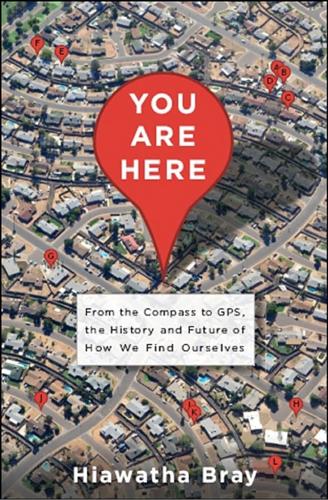
You Are Here: From the Compass to GPS, the History and Future of How We Find Ourselves
by
Hiawatha Bray
Published 31 Mar 2014
A permanent record of our movements over days, months, and years, these maps can reveal the most salient details of our lives—political and religious beliefs, suspicious friendships, bad habits. Much of this information is accumulated by corporations like Google and the major cell phone carriers. They mine it for insights about our tastes and habits, the better to target those profitable little ads that pop up on our phones. But in May 2013, a series of revelations by Edward Snowden, a former technician at the US National Security Agency, revealed that American intelligence agencies also scrutinize these databases, enabling them to subject millions of citizens to near-constant location surveillance. Perhaps the NSA’s methods have made us a little safer from assault by terrorists, but they have also sown distrust of our own government.
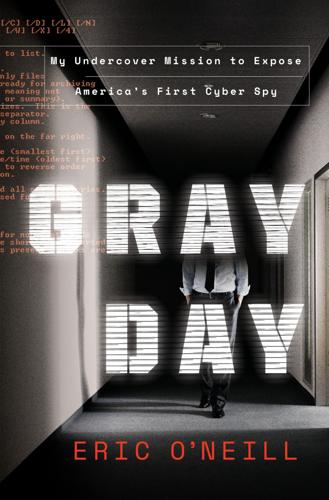
Gray Day: My Undercover Mission to Expose America's First Cyber Spy
by
Eric O'Neill
Published 1 Mar 2019
You might spot a spy. The NSA could have done a better job of heeding that old Russian proverb made famous by President Ronald Reagan. In 2013 a contractor and former CIA employee walked out of the NSA with thumb drives loaded with (according to the NSA) an estimated 1.7 million classified files. Edward Snowden has personally admitted to stealing hundreds of thousands of highly classified files detailing US intelligence-collection programs by the NSA. (The actual number is likely somewhere in the middle.) According to the director of national intelligence, Snowden’s information leak has compromised critical foreign intelligence collection sources and may be one of the most damaging in US history.

The Fourth Revolution: The Global Race to Reinvent the State
by
John Micklethwait
and
Adrian Wooldridge
Published 14 May 2014
The balance between liberty and security has shifted dramatically in a way that may not have advanced security but has certainly diminished liberty. Until recently it was assumed that the evils of the security state were confined to “over there,” to Guantánamo, Abu Ghraib, and extraordinary rendition. But the disclosures from two whistle-blowers, Bradley Manning and Edward Snowden, have revealed a veritable secret Leviathan, capable of classifying more than ninety-two million documents in one year and giving 1.8 million people “top security” clearance, including Manning, a lowly private in his early twenties with a record of emotional instability.2 And who was in charge of all this?

The Alps: A Human History From Hannibal to Heidi and Beyond
by
Stephen O'Shea
Published 21 Feb 2017
On the north side of the mountain wall, near the village of Susten, at a height of about 150 meters, rises a forest of white satellite dishes pointed in all directions. Are they placed there to detect whether anyone in Wallis is not speaking Swiss German? I learn later that the impressive array owes more to listening than talking. The facility would make Edward Snowden ill: Part of the Swiss military system Onyx, the dishes conduct electronic surveillance on all and sundry. There are three such sites in Switzerland, constantly monitoring civilian and military communications conducted via satellite, such as faxes, internet traffic, and telephone calls. In 2007, thanks to a leak to a newspaper, it was revealed that Onyx had intercepted a fax from the Egyptian government to its embassy in London confirming the existence of black sites, CIA torture hot spots in eastern Europe.
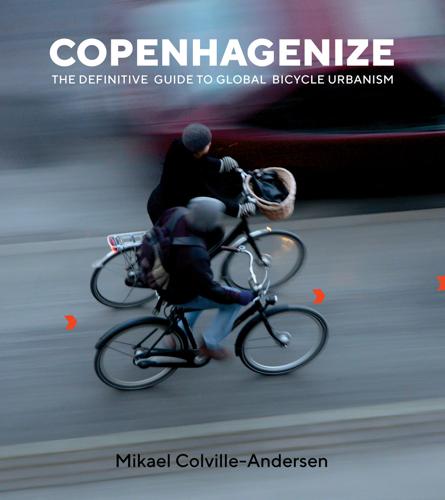
Copenhagenize: The Definitive Guide to Global Bicycle Urbanism
by
Mikael Colville-Andersen
Published 28 Mar 2018
Clarence Eckerson Jr., from Streetfilms.org, thought up “snowy neckdown” and, in collaboration with Aaron Naparstek, Streetsblog founder and former editor-in-chief, the latter gave the world the word and hashtag “sneckdown.” It describes how snowfall in a city reveals how much unused space there is on the streets. This is a fantastic whistleblower technique. The sneckdown is the Edward Snowden of urbanism. As ever, the hashtag is great to explore. CHAPTER 9 MYTHBUSTING The great enemy of the truth is very often not the lie, deliberate, contrived, and dishonest, but the myth, persistent, persuasive, and unrealistic. John F. Kennedy Dress for your destination, not your journey.
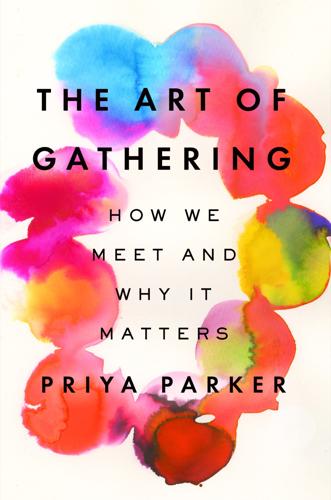
The Art of Gathering: How We Meet and Why It Matters
by
Priya Parker
Published 14 May 2018
He has photographed world leaders from Angela Merkel to Tony Blair to Ban Ki-moon, the eighth secretary-general of the United Nations, and infamous despots from Russia’s Vladimir Putin to Zimbabwe’s Robert Mugabe, from Libya’s Muammar Gaddafi to Iran’s Mahmoud Ahmadinejad. Platon has photographed not only the powerful but also people who have challenged power, from the Burmese activist Aung San Suu Kyi (while still under house arrest), to Pussy Riot, to protesters in Tahrir Square, to Edward Snowden. And he’s shot hundreds of celebrities, from George Clooney to Yoko Ono to Bono. What’s remarkable about Platon, though, beyond his litany of famous subjects, is what he is able to get these people to do in the room with him. It is in the interest of these leaders, many of whom have press secretaries and image consultants, to show a face that they want the public to see.
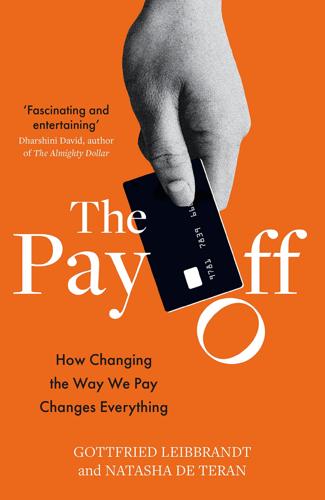
The Pay Off: How Changing the Way We Pay Changes Everything
by
Gottfried Leibbrandt
and
Natasha de Teran
Published 14 Jul 2021
One was apparently a ‘nation-state actor’ engaged in stealing information in attacks that were described as stealthy but ‘not known to be destructive’. In plain English, that’s probably spying. Data privacy authorities are also paying close attention, especially when it comes to cyber incidents that involve payment systems. Swift learned this the hard way in 2013, a few months after American whistle-blower Edward Snowden had leaked highly classified information from the NSA about covert global surveillance programmes to a consortium of journalists. On an otherwise quiet September afternoon, the Brazilian weekly television news magazine Fantástico broadcast a report about the NSA spying on the state-run oil giant, Petrobras.
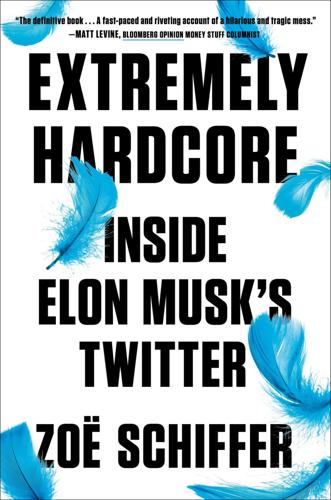
Extremely Hardcore: Inside Elon Musk's Twitter
by
Zoë Schiffer
Published 13 Feb 2024
Popular messaging apps like WhatsApp and Signal brought end-to-end encryption to the mainstream, allowing users to talk to one another without fear of their messages being read by a third party. Even if the companies were subpoenaed by law enforcement, they couldn’t decrypt users’ messages. Ironically, this meant that the user didn’t have to trust the platforms, they just had to trust the technology. In 2016, Edward Snowden had pitched Jack Dorsey on launching encrypted DMs at Twitter. Engineers worked on the project for more than three years, going as far as to test it out internally, but it never launched, according to an internal report titled “What happened to encrypted DMs?” It took Twitter a year to get a license for Signal’s technology to build the feature.
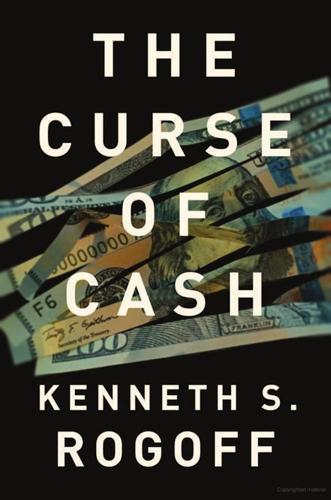
The Curse of Cash
by
Kenneth S Rogoff
Published 29 Aug 2016
PRIVACY When phasing out paper currency, the most fundamental and difficult issue is how to balance an individual’s privacy rights with the government’s need to enforce laws, collect taxes, and combat terrorism. This is an important and subtle question that requires considerable attention, and it goes far beyond the narrow confines of any debate on the role of paper currency.6 Whatever one thinks of American privacy activist and former National Security Agency contractor Edward Snowden, the revelations that have come out from the material he released show that the government already has eavesdropping capabilities once thought to be purely in the realm of science fiction. And it is only going to get worse. Extensive government monitoring of cell phones and emails has already exploded as an issue.
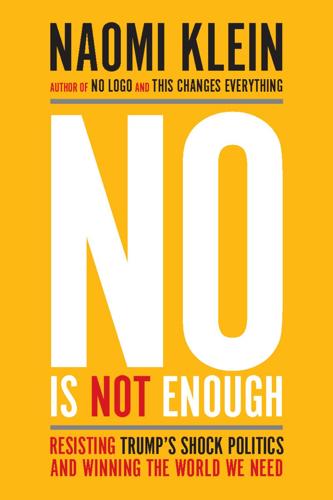
No Is Not Enough: Resisting Trump’s Shock Politics and Winning the World We Need
by
Naomi Klein
Published 12 Jun 2017
After originally stating unequivocally in his confirmation hearing that he would not allow torture tactics to return, he followed up with an addendum: “If experts believed current law was an impediment to gathering vital intelligence to protect the country, I would want to understand such impediments and whether any recommendations were appropriate for changing current law.” He has also called for a reversal of the limited restrictions on digital surveillance put in place after Edward Snowden’s revelations. Even without the blessing of Congress or the CIA, an administration that is determined to violate the law can, unfortunately, find a way. The likeliest route for Trump is to outsource this dirty work to private contractors. None other than Blackwater founder Erik Prince (who happens to be the brother of Secretary of Education Betsy DeVos) has been counseling Trump behind the scenes.

The End of Ownership: Personal Property in the Digital Economy
by
Aaron Perzanowski
and
Jason Schultz
Published 4 Nov 2016
City, 248 F.3d 1214, 1217 (10th Cir. 2001). 19. Iain Thompson, “Adobe Spies on Readers: EVERY DRM Page Turn Leaked to Base over SSL,” Register (London), October 23, 2014, http://www.theregister.co.uk/2014/10/23/adobe_updates_digital_editions_encryption/, accessed June 15, 2015. 20. Glenn Greenwald, No Place to Hide: Edward Snowden, the NSA, and the U.S. Surveillance State (New York: Metropolitan Books, 2014). 21. Throughout this book, we have opted to use the gender-neutral singular “they” wherever possible. See Jeff Guo, “Sorry, grammar nerds. The singular ‘they’ has been declared Word of the Year,” Washington Post, January 8, 2016, https://www.washingtonpost.com/news/wonk/wp/2016/01/08/donald-trump-may-win-this-years-word-of-the-year/, accessed March 16, 2016. 22.
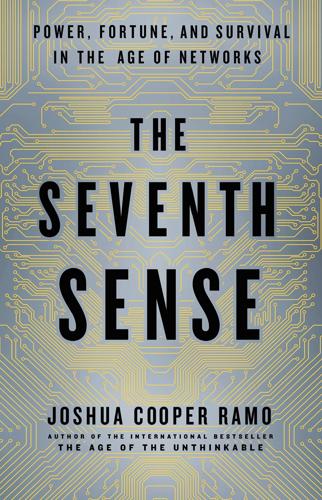
The Seventh Sense: Power, Fortune, and Survival in the Age of Networks
by
Joshua Cooper Ramo
Published 16 May 2016
The brutal, inarguable, profitable demands of this kind of power cracked apart the unique social webs of the Hack-Tic era. The openness that we loved in so many areas of life, from our minds to our markets, has now become a liability. “I remember what the Internet was like before it was being watched, and there has never been anything in the history of man that is like it,” Edward Snowden once observed, nostalgic for the datascape he saw melt away during his time at the NSA. There is a whole new generation of young programmers who won’t ever know the original, generous ethos of a publication like Hack-Tic. There is a fresh cohort of the digital age that now operates at levels of technical mastery far beyond anything that might have been imagined in the Citicorp building basement twenty years ago.

Rogue States
by
Noam Chomsky
Published 9 Jul 2015
One of Washington’s grand hopes for Cuba is that it will accept US initiatives to improve the use of the Internet, permitting US telecom companies to provide Internet infrastructure and services to Cuba. Even in the current state of deprivation and tyranny depicted in US coverage, Cubans are likely to have heard of a gentleman named Edward Snowden, and might therefore be pardoned if they are skeptical about this munificent offer.12 The stream of denunciations of Cuban human rights violations consistently manages to ignore the fact that the worst of these are clearly in Guantánamo, which the US stole from Cuba at gunpoint a century ago, rejecting Cuban requests for its return since Cuba attained its independence in 1959; and the fact that Cuban human rights violations, while real and meriting censure, pale into insignificance in comparison with the crimes of US dependencies in the region, which elicit substantial aid and diplomatic support, not sanctions.
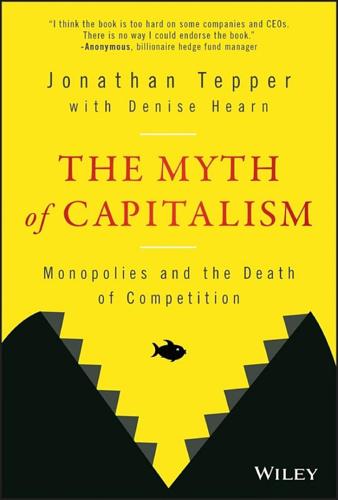
The Myth of Capitalism: Monopolies and the Death of Competition
by
Jonathan Tepper
Published 20 Nov 2018
If the original incarnations of Communism under Lenin, Stalin, and Mao failed because central planning was a disaster, Big Data will now come to the rescue. Last year, Jack Ma, founder of Alibaba, the online platform with over half a billion users, argued, “Big Data will make the market smarter and make it possible to plan and predict market forces so as to allow us to finally achieve a planned economy.”2 The 2013 revelations of Edward Snowden exposed the involvement of American companies and intelligence agencies in programs that gave the government access to personal data. Americans were briefly outraged and then continued their lives as they did before. In fact, consumers were inviting Big Brother into their homes. Millions of consumers now have “smart” devices like Amazon Echo or Google Home that can accurately fingerprint voices and are always on.
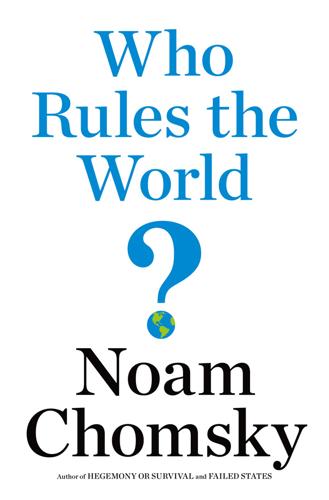
Who Rules the World?
by
Noam Chomsky
A striking illustration is the radical attack on the Constitution by the Obama administration’s massive surveillance program. It is, of course, justified by “national security.” That is routine for virtually all actions of all states and so carries little information. When the NSA’s surveillance program was exposed by Edward Snowden’s revelations, high officials claimed that it had prevented fifty-four terrorist acts. On inquiry, that was whittled down to a dozen. A high-level government panel then discovered that there was actually only one case: someone had sent $8,500 to Somalia. That was the total yield of the huge assault on the Constitution and, of course, on others throughout the world.23 Britain’s attitude is interesting: in 2007, the British government called on Washington’s colossal spy agency “to analyze and retain any British citizens’ mobile phone and fax numbers, emails, and IP addresses swept up by its dragnet,” the Guardian reported.24 That is a useful indication of the relative significance, in government eyes, of the privacy of its own citizens and of Washington’s demands.

Winners Take All: The Elite Charade of Changing the World
by
Anand Giridharadas
Published 27 Aug 2018
They might not have thought of themselves at all, given how long they were likely to live because of their tremendous advantages. “It seems pretty egocentric while we still have malaria and TB for rich people to fund things so they can live longer,” Bill Gates has said. * * * — Perhaps the most unlikely featured speaker at Summit at Sea was Edward Snowden, American whistleblower, scourge of the National Security Agency. He was in Russia, coming to the ship via video. His interviewer was Chris Sacca, a wildly successful VC (Instagram, Kickstarter, Twitter, Uber). One of the founders of Summit walked onstage and said, “We need truth-tellers and thought leaders like Chris Sacca.”
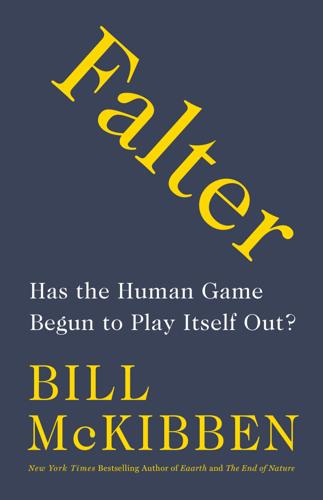
Falter: Has the Human Game Begun to Play Itself Out?
by
Bill McKibben
Published 15 Apr 2019
The great advantage of the twenty-first century should be that we can learn from having lived through the failures of the twentieth. We’re able, as people were not a hundred years ago, to scratch some ideas off the list. It’s very useful to know, for example, that state communism is a really terrible idea. And it’s not as if we have nothing any longer to fear from a powerful central government; as Edward Snowden demonstrated, nation-states are still in the surveillance business. Also, Alexa. But overlearning the lessons of the past is just as dangerous as ignoring them. If you can’t distinguish between national health insurance and indentured servitude, if Denmark reminds you of North Korea, then you damage the present in the name of the past.
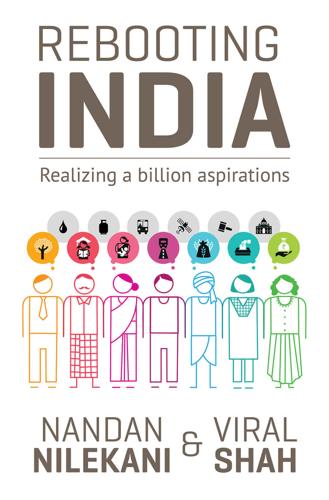
Rebooting India: Realizing a Billion Aspirations
by
Nandan Nilekani
Published 4 Feb 2016
Citizen groups concerned with data privacy and security objected to the idea of creating a database containing the demographic and biometric data of all Indian residents, fearing the emergence of a surveillance state in which biometric information could be used as a targeting mechanism; at a time when whistle-blowers like Edward Snowden have revealed the extent to which governments can snoop into the private lives of unsuspecting citizens, such a database might prove an irresistible temptation to a government wanting to keep tabs on its people, violating their right to privacy in the process. Given that India still doesn’t have a single, well-defined law that regulates data privacy, such concerns were valid.
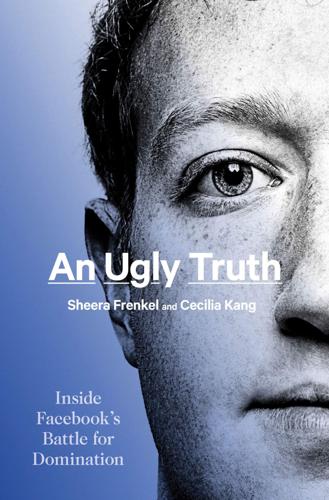
An Ugly Truth: Inside Facebook's Battle for Domination
by
Sheera Frenkel
and
Cecilia Kang
Published 12 Jul 2021
The organization was devoting too much of its security efforts to protecting its website, while its apps, including Instagram and WhatsApp, were being largely ignored, he told the group. Facebook had not made headway on its promises to encrypt user data at its centers—unlike Yahoo, Stamos’s previous employer, which had moved quickly to start securing the information in the two years since National Security Agency whistleblower Edward Snowden revealed that the government was likely spying on user data as it sat unprotected within the Silicon Valley companies.2 Facebook’s security responsibilities were scattered across the company, and according to the report Stamos presented, the company was “not technically or culturally prepared to play against” its current level of adversary.
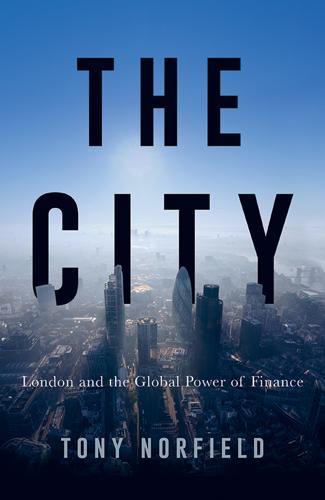
The City
by
Tony Norfield
Britain relied on the latter to protect its non-European interests, even at the expense of having to concede ground to the US where it was not in a powerful enough position to act on its own, as in the 1953 Anglo-American coup against Mohammad Mossadegh, the democratically elected prime minister of Iran. Britain has depended on the US for its nuclear weapons systems since the Polaris deal in 1962, and has maintained close cooperation with the US in military policy and spying activities. This latter form of UK–US cooperation became more widely known following the revelations in 2013 by Edward Snowden, a former US National Security Agency official. Much of the media furore over spying concerned access to personal communications, but the interceptions by British and American spies were clearly focused on major business and political targets. They did not set up a hugely expensive spying infrastructure in order to dredge through billions of telephone calls and emails from Joe Public.
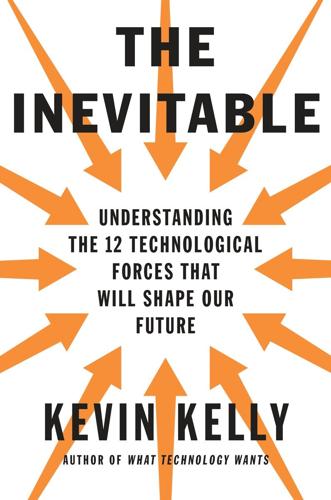
The Inevitable: Understanding the 12 Technological Forces That Will Shape Our Future
by
Kevin Kelly
Published 6 Jun 2016
But every right requires a duty, so every person has a human duty to respect the integrity of information, to share it responsibly, and to be watched by the watched. The alternatives to coveillance are not promising. Outlawing the expansion of easy tracking will probably be as ineffectual as outlawing easy copying. I am a supporter of the whistle-blower Edward Snowden, who leaked tens of thousands of classified NSA files, revealing their role in secretly tracking citizens, primarily because I think the big sin of many governments, including the U.S., is lying about their tracking. Big governments are tracking us, but with no chance for symmetry. I applaud Snowden’s whistle-blowing not because I believe it will reduce tracking, but because it can increase transparency.

The Industries of the Future
by
Alec Ross
Published 2 Feb 2016
The Cold War did not lack for political and military tension, but it did have a clear set of alliances organized around the binary of the struggle between Communist and Western bloc countries. The Code War has no such simple organization, and traditional alliances have fractured. After the revelations of Edward Snowden, the governments and public of European countries condemned American cyberpractices. Billions of dollars of business were lost by American telecommunications and technology companies, which were no longer trusted. One study pegged the loss to American businesses in the cloud computing industry alone at between $22 billion and $25 billion over three years.

Building Microservices
by
Sam Newman
Published 25 Dec 2014
In the next chapter, we’ll take a different holistic view of our systems to consider some of the unique advantages — and challenges — that fine-grained architectures can provide in the area of security. Chapter 9. Security We’ve become familiar with stories about security breaches of large-scale systems resulting in our data being exposed to all sorts of dodgy characters. But more recently, events like the Edward Snowden revelations have made us even more aware of the value of data that companies hold about us, and the value of data that we hold for our customers in the systems we build. This chapter will give a brief overview of some aspects of security you should consider when designing your systems. While not meant to be exhaustive, it will lay out some of the main options available to you and give you a starting point for your own further research.
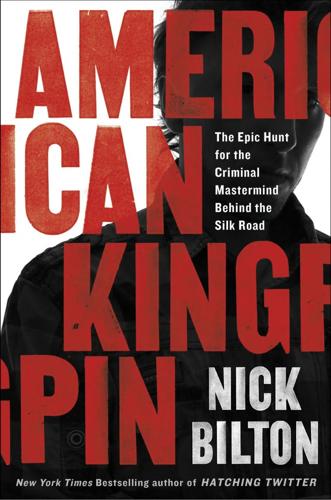
American Kingpin: The Epic Hunt for the Criminal Mastermind Behind the Silk Road
by
Nick Bilton
Published 15 Mar 2017
Tarbell responded, shocked that this was the first he was hearing about this, as the excitement from days earlier returned. “I’m pretty sure I did? Here, let me get it,” Serrin said, rustling some papers on his desk. “It’s ‘try to crack this NSA’ with no spaces.” It was a jab at the NSA from the Icelandic authorities after Edward Snowden had leaked a slew of top secret information to the press a few months earlier. When Thom typed the password into the files on the gray thumb drive, they opened like magic, and there, in front of Tarbell’s eyes, was the entire Silk Road server, unencrypted and as plain as day. “Holy shit!” Tarbell yelled.
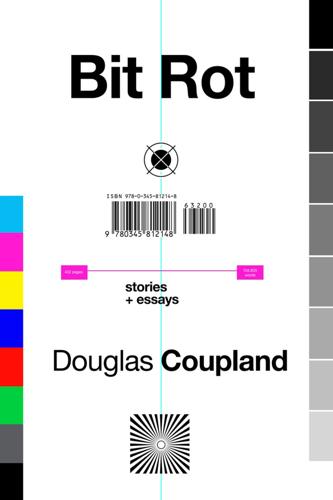
Bit Rot
by
Douglas Coupland
Published 4 Oct 2016
What happened was that a massive power imbalance just entered your life, right there on your roof, an imbalance that’s particularly creepy because there’s something intrinsically cowardly and rapey about drones, and we loathe the sense of powerlessness they instill in those whom they monitor. Getting droned on your rooftop while clad in nothing but Piz Buin makes you understand the value of privacy in a way that all the think pieces on Edward Snowden can never do. Recreational drones (there’s a nice term) possess the consumer world’s newest consumer dynamic: creep. Creep is to creepy what fail is to failure. Creep is getting droned up on your roof. Creep is seeing blurred-out faces on Google Street View. Creep is going into a chain restaurant and reading the menu to discover that supply-chain transparency is the new badge of honour.

Age of Anger: A History of the Present
by
Pankaj Mishra
Published 26 Jan 2017
It is also true that McVeigh’s arguments against the state are by no means unfamiliar or exotic today. In America, it was never a sign of extremism to believe that the government is the greatest enemy of individual freedom. Several generations of conservative politicians have asserted the same, and have been hailed for their wisdom. Today, left-leaning admirers of Edward Snowden and critics of the National Security Agency (NSA) and Guantanamo believe this to be true as much as the NRA, white militias and survivalist groups. The libertarian Silicon Valley billionaire Peter Thiel blames big government on the enfranchisement of women, and he issues such grandiloquent Nietzscheanisms as ‘The fate of our world may depend on the effort of a single person who builds or propagates the machinery of freedom that makes the world safe for capitalism.’

Burning Down the Haus: Punk Rock, Revolution, and the Fall of the Berlin Wall
by
Tim Mohr
Published 10 Sep 2018
Still, it’s important to realize that conformity and complacency didn’t distinguish the DDR from other countries. For an entire century, most Americans went about their daily lives despite the gross injustice of Jim Crow laws: Not my problem. The total indifference with which most Americans reacted to Edward Snowden’s revelations of mass warrantless surveillance is another example: I’ve got nothing to hide. Or white America’s collective shrug at the militarization of its police forces and the ongoing flood of evidence of horrific police brutality: They’re not coming for me. People look away. It’s natural.
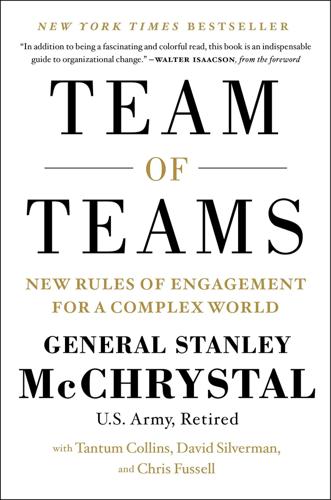
Team of Teams: New Rules of Engagement for a Complex World
by
General Stanley McChrystal
,
Tantum Collins
,
David Silverman
and
Chris Fussell
Published 11 May 2015
“This disclosure is not just an attack on America’s foreign policy interests,” said Secretary of State Hillary Clinton the day after the State Department cables leaked. “It is an attack on the international community.” Never before in U.S. history had so much classified material been compromised in one blow. Since then, several similar incidents have unfolded, most notably the even bigger leak perpetrated by contractor Edward Snowden. An investigation identified the soldier, who by then had been demoted to private first class, as Bradley Manning.* A Fox News op-ed asked with outrage how “all this leaked information was the work of a single 22-year-old enlisted man in the Army.” The author was incredulous: “How could one individual gain such access to all that classified material?
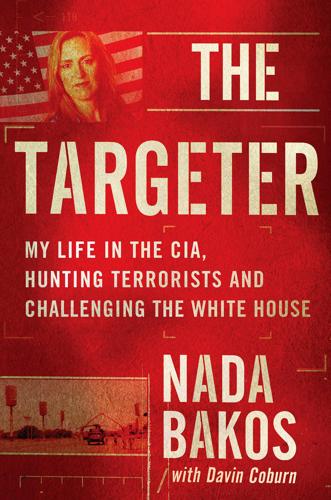
The Targeter: My Life in the CIA, Hunting Terrorists and Challenging the White House
by
Nada Bakos
Published 3 Jun 2019
With Ginny’s help we had two types of collection feeding our targeting packages and providing validation of targets. This was the kind of analysis targeters specialized in. In some ways, the most notable part of the process was how straightforward it seemed. Zarqawi and his top men were clever about the basics of avoiding detection, but particularly in the era before Edward Snowden’s leaks about US intelligence programs, I can’t imagine that those fanatical fighters had any understanding of the true technological capabilities the CIA and the National Security Agency possessed. Soon we were in receipt of the kind of information that made it possible to strike back at a few key players in Zarqawi’s growing operation.
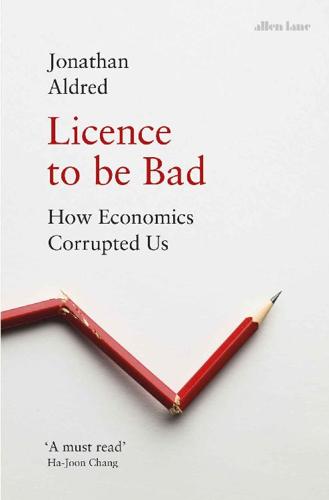
Licence to be Bad
by
Jonathan Aldred
Published 5 Jun 2019
The Plumbers were a motley crew of ex-CIA operatives who were friends of friends of Nixon and used criminal methods to try to get evidence against enemies of Nixon (such as breaking into the office of Ellsberg’s former psychoanalyst). Once it was clear that the case against Ellsberg was based on government gross misconduct and illegal evidence-gathering, the judge dismissed all charges against him. Ellsberg avoided jail, but had attained international notoriety, a 1970s precursor to Julian Assange and Edward Snowden. His new reputation provided another excuse, if decision theorists needed one, not to think about the Ellsberg Paradox for a while longer. FIVE BLACK SWANS AND NOBEL PRIZES In the meantime, the emerging orthodoxy combined bell-curve thinking and the efficient-market hypothesis to suggest that uncertainty in financial markets could be tamed or neutered altogether.
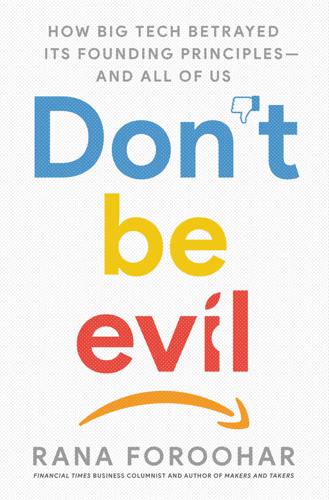
Don't Be Evil: How Big Tech Betrayed Its Founding Principles--And All of US
by
Rana Foroohar
Published 5 Nov 2019
The Chinese have spent the past several years moving up the value chain, and now they want to use their system of state capitalism to give preference to homegrown players, many of whom are just as competitive as American firms in the home market. Indeed, it’s a wonder to me that American firms ever believed they’d be able to compete with Chinese firms in their home market on a completely equal footing. I think frequently of a trip that I took to China, right around the time of the Edward Snowden NSA leaks. I met with a People’s Liberation Army general (a woman, interestingly) and asked her about Chinese state-sponsored intellectual property theft and the notion that technologies taken from the West might be used for both economic and national security advantage. She made it quite clear that “capitalism with Chinese characteristics” meant that there was no real boundary between corporate interests and national interests.
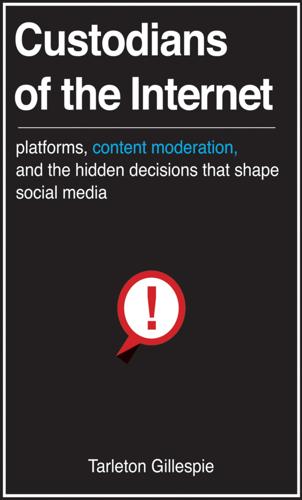
Custodians of the Internet: Platforms, Content Moderation, and the Hidden Decisions That Shape Social Media
by
Tarleton Gillespie
Published 25 Jun 2018
ISPs were forced to respond to requests not only from the court or state regulatory authorities but also from regular citizens, including the Media Guard youth group, which was targeting gay teen forums and Ukrainian political organizations.64 In 2014, the Russian government took a bolder step: a new dictate would require any foreign platforms that have Russian users to store those users’ data on servers located physically in Russia; otherwise the whole platform would be blocked nationwide.65 The revelations of U.S. National Security Agency surveillance by Edward Snowden were Russia’s nominal justification, but many suspected that housing the data within Russia’s borders would make it easier for the government to access that data and squelch political speech. As of this writing, the (mostly U.S.-based) platforms have refused, and Russia has extended the deadline for compliance.
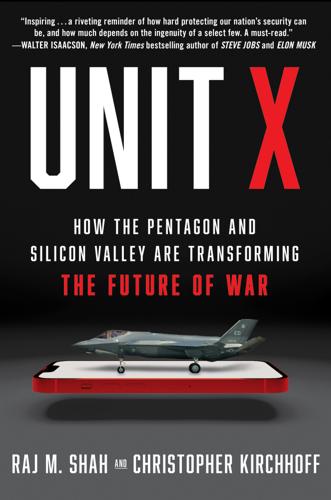
Unit X: How the Pentagon and Silicon Valley Are Transforming the Future of War
by
Raj M. Shah
and
Christopher Kirchhoff
Published 8 Jul 2024
Young people working in the Valley grew up watching the botched invasion of Iraq. They might have seen Saving Private Ryan, but their formative memories of the military were of the abuses at Abu Ghraib, torture at Guantánamo, and drone strikes that killed civilians. The final break came in 2013, when Google and others learned, via material leaked by Edward Snowden, that the National Security Agency was surreptitiously tapping their data interconnects to vacuum up intelligence about foreign threats. The rest of the world now looked at American tech firms as extensions of American intelligence agencies—as spies. Not only was their own government spying on them, Silicon Valley engineers learned, but no one could any longer trust the companies they worked for to secure their data—not Americans, not Europeans, not customers in international markets.
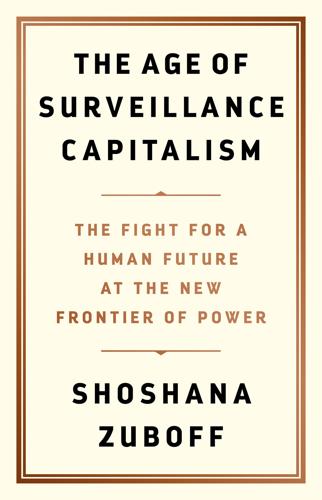
The Age of Surveillance Capitalism
by
Shoshana Zuboff
Published 15 Jan 2019
Peter Swire observes that public officials “know that the private sector is developing many new techniques for collecting and processing data and making decisions based on that data.” The consequence is “a large and ongoing shift toward information-intensive strategies” that avail themselves of these market capabilities.9 This status quo was interrupted in 2013, when Edward Snowden revealed the hidden complicity between state security agencies and the tech companies. In the backlash that followed, surveillance capitalists confronted new public relations challenges in what they portrayed as an uneasy or even unwilling alliance between private power and state security needs.
…
Google responded to its advertising customers with vague platitudes, offering little in the way of change. This was not the first time that the leading surveillance capitalists had been called to account by public and press.43 In addition to the many cycles of outrage generated by Street View, Beacon, Gmail, Google Glass, News Feed, and other incursions, Edward Snowden’s 2013 revelations of the tech companies’ collusion with state intelligence agencies triggered an international eruption of loathing toward the surveillance capitalists. Google and Facebook learned to weather these storms with what I have called the “dispossession cycle,” and close observation of this new crisis suggested that a fresh cycle was in full throttle.
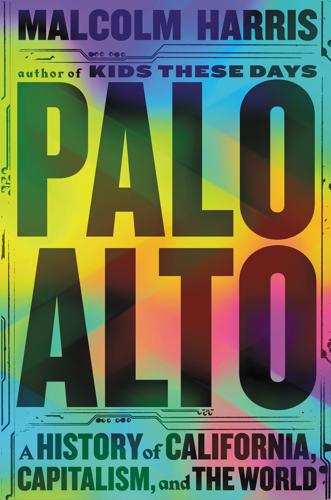
Palo Alto: A History of California, Capitalism, and the World
by
Malcolm Harris
Published 14 Feb 2023
Twitter cofounder Biz Stone evoked the company’s bird logo for the Atlantic, sounding a lot like a ’90s left-wing theorist: “A flock of birds flying around an object in flight has no leader yet this beautiful, seemingly choreographed movement is the very embodiment of change. Rudimentary communication among individuals in real time allows many to move together as one—suddenly uniting everyone in a common goal.”21 The techno-optimism was short-lived. In the late spring of 2013, an NSA contractor named Edward Snowden leaked government documents revealing a vast surveillance program called PRISM, under which everyone’s favorite tech companies collaborated directly with the national security state behind their users’ backs. Despite the public outcry, Total Information Awareness didn’t go away, it just got moved to a less accountable corner of the government: from DARPA to the NSA itself.
…
The Editorial Board, “Open the Airports to Uber,” Chicago Tribune, October 4, 2015. 20. The Editorial Board, “We Were Wrong to Abandon Chicago’s Taxicabs for Ride-Shares and the City Now Needs to Find a Fix,” Chicago Tribune, September 13, 2021. 21. Biz Stone, “Exclusive: Biz Stone on Twitter and Activism,” The Atlantic, October 19, 2010. 22. Edward Snowden, Permanent Record (New York: Metropolitan Books, 2019), 141. 23. Kashmir Hill, “I Tried to Block Amazon from My Life. It Was Impossible,” Gizmodo, January 22, 2019, https://gizmodo.com/i-tried-to-block-amazon-from-my-life-it-was-impossible-1830565336. 24. Sam Levin, “‘We Have Failed’: How California’s Homelessness Catastrophe Is Worsening,” Guardian, March 22, 2022. 25.
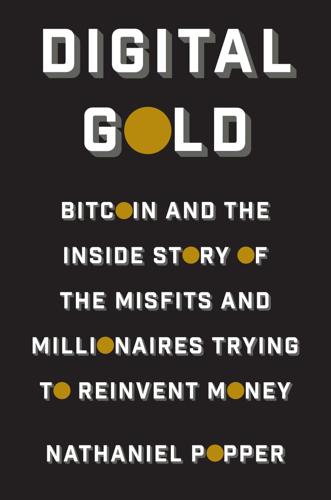
Digital Gold: Bitcoin and the Inside Story of the Misfits and Millionaires Trying to Reinvent Money
by
Nathaniel Popper
Published 18 May 2015
Everyone now saw that any company that handled traditional currencies would inevitably be subject to traditional regulations. Events in the broader world validated many of the fears that had originally driven the Cypherpunks and Satoshi to imagine a revolutionary new currency. Government documents leaked by Edward Snowden showed, over the course of 2013, that the National Security Agency had indeed been secretly monitoring the electronic communications of a wide swath of American citizens. But the relatively apathetic public response to the tales of NSA surveillance suggested that most Americans didn’t actually care much if the government was collecting information about them.
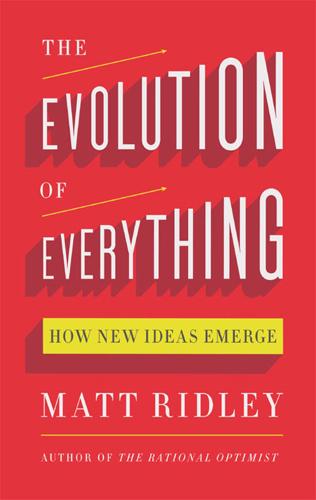
The Evolution of Everything: How New Ideas Emerge
by
Matt Ridley
The governments of America, Europe and Asia, it emerged, all implicitly agreed that they should be free to listen to each other’s populations’ conversations. Only nobody told those populations that this was the new agreement. It was a pity, perhaps, that we found all this out from flawed whistleblowers like Julian Assange and Edward Snowden, who sometimes seemed only too happy to compound the state’s sins by then exposing the contents of the eavesdropping themselves (and throwing themselves on the mercy of illiberal regimes). But you can disapprove of state snooping without approving of the leaks of the snoops. If ever anybody thought that the collapse of communism in 1989 would reduce the need for Western governments to behave secretly and illiberally, they have now been cruelly disillusioned.
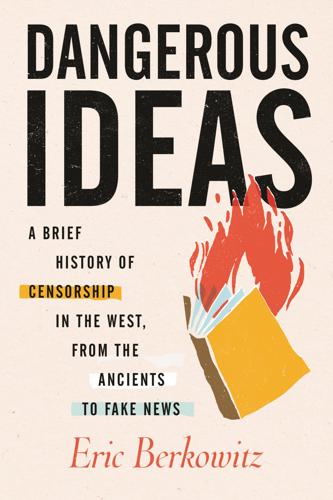
Dangerous Ideas: A Brief History of Censorship in the West, From the Ancients to Fake News
by
Eric Berkowitz
Published 3 May 2021
Pointedly, the same Russian law also made bloggers liable for the “accuracy” of their content—all in a legal environment in which criticism of the government is often labeled false or extremist.46 Greenwald’s travails raise another issue: the extent to which a journalist may bring to light purloined materials without bearing responsibility for the theft. In 2014, Greenwald and others won a Pulitzer Prize for reporting on a cache of confidential documents showing massive global cybersurveillance by the US, while Edward Snowden—the whistleblower who stole the materials and leaked them to Greenwald—was charged with espionage. Another publisher of stolen government documents, Julian Assange, is in serious legal jeopardy for publishing confidential US government materials on his WikiLeaks website in 2010. The materials were stolen by Chelsea Manning, an army intelligence analyst, who was given a lengthy sentence in a military prison for the theft.
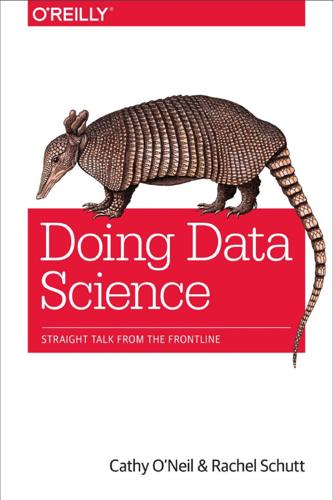
Doing Data Science: Straight Talk From the Frontline
by
Cathy O'Neil
and
Rachel Schutt
Published 8 Oct 2013
For example, a recent Nature study, “Unique in the Crowd: the privacy bounds of human mobility” by Yves-Alexandre de Montjoye, et al., on a dataset of 1.5 million cell-phone users in Europe showed that just four points of reference were enough to individually identify 95 percent of the people. Recently we’ve seen people up in arms about the way the NSA collects data about its citizens (not to mention non-US citizens). In fact, as this book was close to going to print, the Edward Snowden leak occurred. The response has been a very public and loud debate about the right to privacy with respect to our government. Considering how much information is bought and sold online about individuals through information warehousers and brokers like Acxiom—which leads not just to marketing but also insurance, job, and loan information—we might want to consider having that same conversation about our right to privacy with respect to private companies as well.
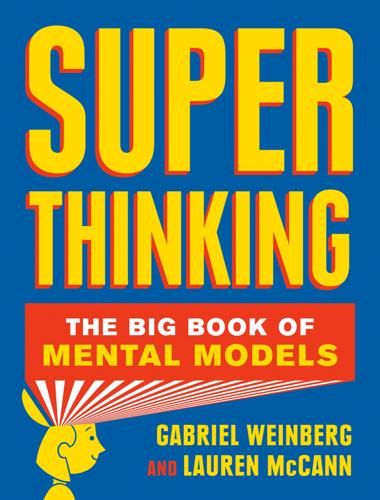
Super Thinking: The Big Book of Mental Models
by
Gabriel Weinberg
and
Lauren McCann
Published 17 Jun 2019
Or how differently you might respond to giving a colleague performance feedback in an anonymous survey versus one with your name attached to it. In “Chilling Effects: Online Surveillance and Wikipedia Use,” Oxford researcher Jonathon Penny studied Wikipedia traffic patterns before and after the 2013 revelations by Edward Snowden about the U.S. National Security Agency’s internet spying tactics, finding a 20 percent decline in terrorism-related article views involving terms like al-Qaeda, Taliban, and car bomb. The implication is that when people realized they were being watched by their governments, some of them stopped reading articles that they thought could get them into trouble.
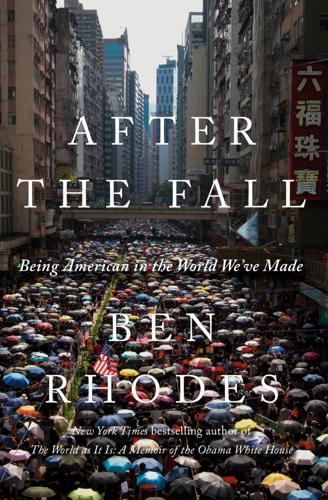
After the Fall: Being American in the World We've Made
by
Ben Rhodes
Published 1 Jun 2021
For Putin, the 2011 opposition to his return to power provided added motivation and incentive to dial up the nationalism. Splashy events like the Sochi Olympics were central to this strategy. So was a more assertive foreign policy that took an even sharper approach against the United States and the West. Edward Snowden was given sanctuary in Moscow. Russian support for Bashar al-Assad’s murderous campaign against his own people steadily increased. Then, in 2014, there was a repeat of the Orange Revolution in Ukraine as people occupied Kiev’s central square—the Maidan—for months, protesting a corrupt government loyal to the Kremlin.
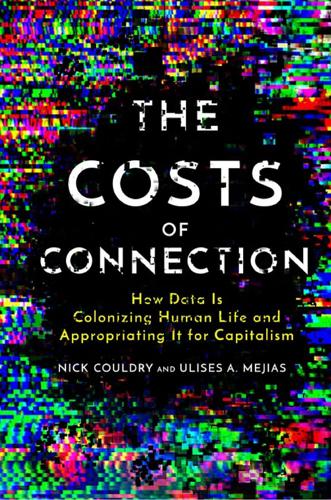
The Costs of Connection: How Data Is Colonizing Human Life and Appropriating It for Capitalism
by
Nick Couldry
and
Ulises A. Mejias
Published 19 Aug 2019
As a leading computer-security expert, Bruce Schneier, put it, “The primary business model of the internet is based on mass surveillance.”12 The all-seeing authoritarian state was a standard topic of twentieth-century literary dystopias (from Kafk a to Orwell),13 but Schneier points to an even bigger problem: the building into corporations’ routine operations of processes that conflict, as surveillance always has, with basic freedoms such as autonomy. The tracking of human subjects that is core to data colonialism is incompatible with the minimal integrity of the self that underlies autonomy and freedom in all their forms. This was the deeper meaning of Edward Snowden’s revelations of US and UK security services’ data-gathering in 2013. Suddenly, citizens became aware that today’s pervasive state surveillance would be impossible without the continuous social-caching operations of commercial corporations.14 Since then, fears of a new “corporate governance of everyday life” have been growing.15 But other fears have started to overtake them, including the “fake news” scandals that have gripped politics since late 2016 in the United States, United Kingdom, and elsewhere.
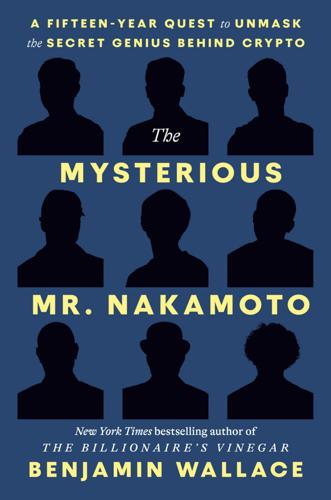
The Mysterious Mr. Nakamoto: A Fifteen-Year Quest to Unmask the Secret Genius Behind Crypto
by
Benjamin Wallace
Published 18 Mar 2025
Fees and other frictions had meant that Bitcoin didn’t work for microtransactions and wasn’t attractive for remittances—a cheap, low-hassle way for immigrants to send money home to their families. A growing blockchain-forensics industry was eroding the persistent myth of Bitcoin’s privacy as a parade of hackers, embezzlers, and conmen were doxed and arrested. A new generation who’d never heard of the cypherpunks had grown up absorbing their values—witnessing Julian Assange’s and Edward Snowden’s revelations, becoming disillusioned about surveillance capitalism—but they tended to view Bitcoin mainly as a speculative investment instead of a useful technology. Even Bitcoin’s vaunted decentralization seemed dubious. It was virtually impossible to use without relying on third-party exchanges like Mt.

Careless People: A Cautionary Tale of Power, Greed, and Lost Idealism
by
Sarah Wynn-Williams
Published 11 Mar 2025
When it comes to the Chinese government getting access to all the data in Facebook’s data warehouse, a report offers drily, “Note that this will happen.” This is the kind of government access to user information that we’d aggressively fought against providing to the US government, even after receiving National Security Letters demanding it in specific cases. When Edward Snowden revealed that the NSA had hacked into Facebook to spy on its users in 2013, Mark called President Obama to express his frustration over government surveillance and “the damage the government is creating for all of our future.” He and Joel went to the White House to meet with Obama about it, with Mark saying, “The government kind of blew it on this.
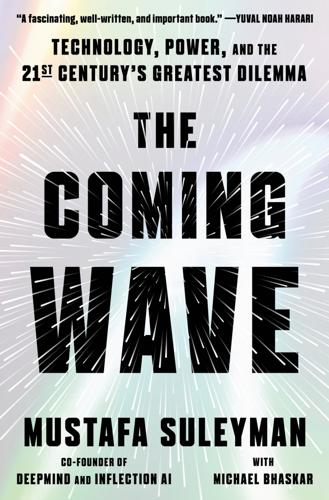
The Coming Wave: Technology, Power, and the Twenty-First Century's Greatest Dilemma
by
Mustafa Suleyman
Published 4 Sep 2023
It built hypersonic missiles thought years away by the United States, is a world leader in fields from 6G communications to photovoltaics, and is home to major tech companies like Tencent, Alibaba, DJI, Huawei, and ByteDance. Quantum computing is an area of notable Chinese expertise. In the wake of Edward Snowden’s leak of classified information from U.S. intelligence programs, China became particularly paranoid and keen to build a secure communications platform. Another Sputnik moment. In 2014, China filed the same number of quantum technology patents as the United States; by 2018 it had filed twice as many.
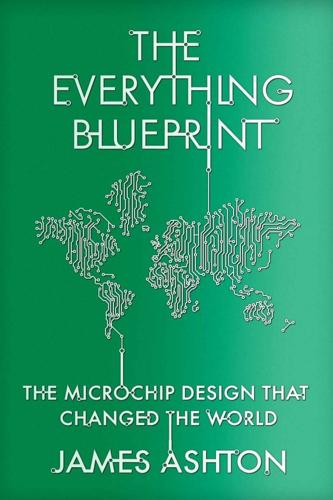
The Everything Blueprint: The Microchip Design That Changed the World
by
James Ashton
Published 11 May 2023
‘This will greatly hurt Taiwan’s semiconductor memory industry,’ Allen Chu, the chairman of Marbo Investment and a regular media commentator on business matters, told one local news bulletin about the Kao defection. ‘It will be impossible for us to stop future poaching of staff.’15 China set out its ambition in 2014. Analysts say the immediate prompt was most likely revelations from the whistleblower Edward Snowden of US cyber-intelligence efforts that made clear to China how much relying on American-made communications equipment posed a national security risk. In response, the country targeted an annual growth rate of 20 per cent up to 2020, by when it would be a volume producer of 16nm and 14nm chips, aided by potential financial support from the government of up to 1 trillion yuan, equivalent to $170bn.
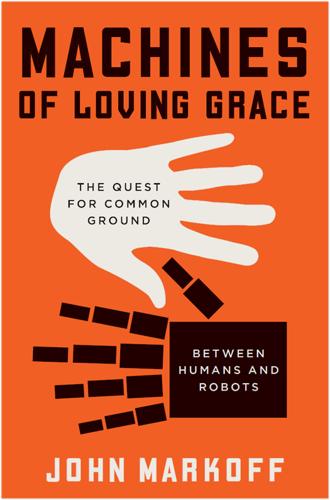
Machines of Loving Grace: The Quest for Common Ground Between Humans and Robots
by
John Markoff
Published 24 Aug 2015
A vast data-mining project that was intended to hunt terrorists online by collecting and connecting the dots in oceans of credit card, email, and phone records, the project started a privacy firestorm and was soon canceled by Congress in May of 2003. Although Total Information Awareness vanished from public view, it in fact moved into the nation’s intelligence bureaucracy only to become visible again in 2013 when Edward Snowden leaked hundreds of thousands of documents that revealed a deep and broad range of systems for surveillance of any possible activity that could be of interest. In the pantheon of DARPA directors, Tether was also something of an odd duck. He survived the Total Information Awareness scandal and pushed the agency ahead in other areas with a deep and controlling involvement in all of the agency’s research projects.
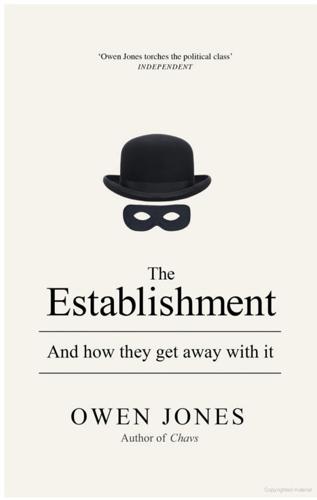
The Establishment: And How They Get Away With It
by
Owen Jones
Published 3 Sep 2014
‘I find that the security services today are so much in hock to America,’ says Robertson, who has taken on several cases against MI5 and MI6. ‘We have the assets in the sense of [RAF listening station] Little Sai Wan and [intelligence agency] GCHQ, but they’re all in hock to America.’ Indeed, according to leaks from the former US National Security Agency analyst Edward Snowden, GCHQ – General Communications Headquarters – was a cornerstone of the UK–US relationship. His revelations suggested that the NSA had been paying GCHQ around £100 million over three years as part of a joint covert mass-surveillance programme. According to legal advice given to MPs in January 2014, a large chunk of this spying was illegal.

Giving the Devil His Due: Reflections of a Scientific Humanist
by
Michael Shermer
Published 8 Apr 2020
Debs, anarchists Emma Goldman and Alexander Berkman, communists Julius and Ethel Rosenberg, and Pentagon Papers revealer Daniel Ellsberg. But, in fact, the Act is still used today as a cudgel against such whistleblowers as diplomatic cable leaker Chelsea Manning and National Security Agency contractor Edward Snowden, still on the lam in Moscow for his Wikileaks revelations about spying (and other questionable activities) on both American citizens and foreign actors (including German Chancellor Angela Merkel) by the United States government. Tellingly, as mission creep set in and “clear and present danger” expanded to include speech unrelated to military operations or combating foreign enemies, Holmes dissented in other cases, reverting to a position of absolute protection for nearly all speech short of that intended to cause criminal harm, concluding that the “marketplace of ideas” of open discussion, debate, and disputation was the best test of their verisimilitude.
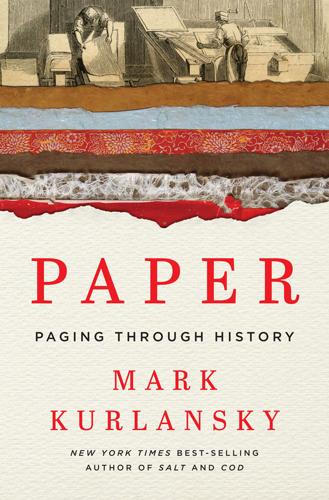
Paper: A World History
by
Mark Kurlansky
Published 3 Apr 2016
It has more longevity because it has attributes for which there are no substitutes. I think we will have paper for a long time, which does not mean forever.” There is another advantage of paper. To use electronic terminology, it is very “secure.” Electronic messages can be hacked, accessed, reconstructed. Paper cannot. When National Security Agency (NSA) whistleblower Edward Snowden started revealing to journalist Glenn Greenwald the extent of the surveillance on the public by the NSA, they feared government interception of their communication, and with good reason. They could talk, but the room might be bugged. They could send highly sophisticated encrypted electronic messages, but even that might not be safe.
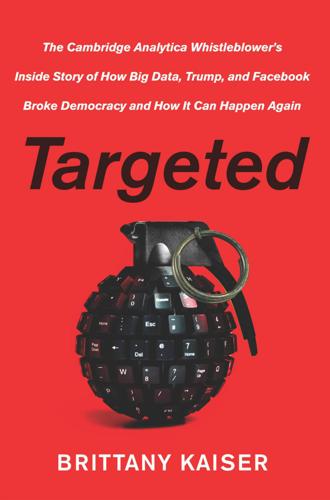
Targeted: The Cambridge Analytica Whistleblower's Inside Story of How Big Data, Trump, and Facebook Broke Democracy and How It Can Happen Again
by
Brittany Kaiser
Published 21 Oct 2019
CA could provide clients with a clear picture of what they had done, whom they’d reached, and, by scientifically surveying a representative sample, what percentage of the people they had targeted were taking action as a result of the targeted messaging. It was revolutionary. When I learned these things from Alex Tayler, I was dumbfounded but also fascinated. I had had no idea of the reach of data collection in America, and although it made me think back to Edward Snowden’s warnings about mass surveillance, Tayler explained everything to me in such a matter-of-fact way that I saw it as just the “way things were done.” It was all so no-nonsense; nothing was dark or troubling. This was just how the data economy flowed, I imagined. Soon, I came to understand that I had been naïve to think I could achieve my goals with anything less than a big database.
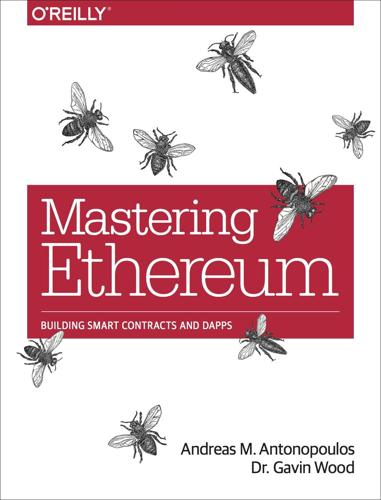
Mastering Ethereum: Building Smart Contracts and DApps
by
Andreas M. Antonopoulos
and
Gavin Wood Ph. D.
Published 23 Dec 2018
However, during the period when Ethereum was developed, the NIST standardization was not yet finalized. NIST adjusted some of the parameters of Keccak after the completion of the standards process, allegedly to improve its efficiency. This was occurring at the same time as heroic whistleblower Edward Snowden revealed documents that imply that NIST may have been improperly influenced by the National Security Agency to intentionally weaken the Dual_EC_DRBG random-number generator standard, effectively placing a backdoor in the standard random number generator. The result of this controversy was a backlash against the proposed changes and a significant delay in the standardization of SHA-3.
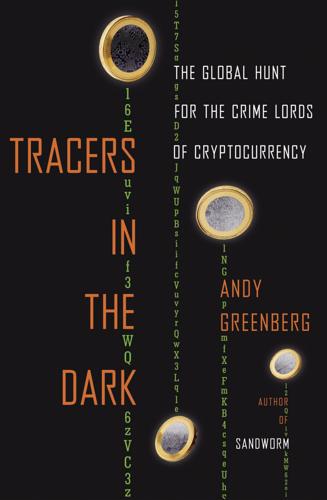
Tracers in the Dark: The Global Hunt for the Crime Lords of Cryptocurrency
by
Andy Greenberg
Published 15 Nov 2022
At a cryptocurrency conference in Princeton where she’d been invited to speak in the spring of 2014, Meiklejohn sat down to breakfast in the hotel dining area next to one programmer and cryptography expert who had worked on Bitcoin privacy issues. She began chatting with him about their respective philosophies around cryptocurrency, privacy, and its limits. They both agreed that privacy should be a fundamental human right. Since the previous summer, Meiklejohn had read the coverage of Edward Snowden’s bombshell leaks of classified documents from the National Security Agency about mass surveillance, and it had bolstered her innate sense of the importance of cryptography to protect spaces for all sorts of human expression. The two cryptographers started discussing how Bitcoin or its wallet programs could be altered to protect its users from the sort of blockchain analysis Meiklejohn had proved was possible, to achieve that sort of privacy for people’s finances, too, and what the trade-offs might be.
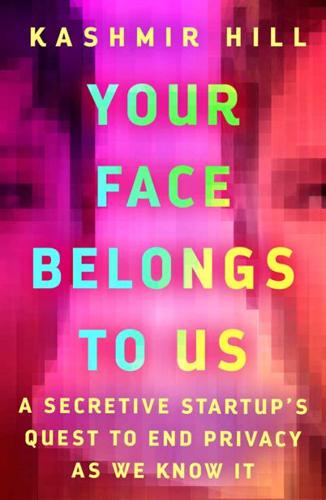
Your Face Belongs to Us: A Secretive Startup's Quest to End Privacy as We Know It
by
Kashmir Hill
Published 19 Sep 2023
Because Bedoya was born abroad and most of his family were foreign nationals or naturalized citizens, he had never applied for a security clearance. And now he felt he was looking at his boss across a great divide. Soon Greenwald’s source was revealed to be a twenty-nine-year-old systems administrator named Edward Snowden. Through his work for an NSA contractor, Snowden had gotten access to thousands of the agency’s files and given them to journalists, fueling story after story about what the NSA had done to tap into the digital spine of the Information Age, including the collection of email metadata and data siphoned from undersea internet cables.

The Powerful and the Damned: Private Diaries in Turbulent Times
by
Lionel Barber
Published 5 Nov 2020
The secret court order covers domestic and international calls. US news organisations reported in 2006 that the NSA was secretly collecting phone data to detect terrorist activity after 9/11. But until now there’s been no indication that the programme was continuing under Obama. This story feels like it’s going to get a lot bigger. SUNDAY, 9 JUNE Edward Snowden, 29, a contractor from Booz Allen Hamilton contracted to the NSA, has revealed himself to be the whistleblower behind the exposure of secret surveillance programmes. I’m torn about what to think about this story. In principle I support the Guardian’s decision to publish, laying bare the scale of data collection and holding the intelligence agencies (and their willing accomplices in Silicon Valley) to account.

Rise and Kill First: The Secret History of Israel's Targeted Assassinations
by
Ronen Bergman
Published 30 Jan 2018
The secret alliance between American and Israeli intelligence was born Other Israeli and American intelligence organizations besides the Mossad and the CIA have forged links with each other as well. Particularly important was the relationship between the American NSA and its Israeli counterpart, Unit 8200 of AMAN. Among the documents that Edward Snowden leaked, there were several historical surveys of these relations, dating back to the early 1960s and documenting deep cooperation in espionage against common adversaries in the Middle East. Perusal of Snowden documents in a vault of The Intercept, New York, May 2016, made possible through assistance and cooperation of that website’s staff, with special thanks to Henrik Moltke.
…
His skull was split open This description of the assassination is based on a video taken by Flotilla 13 commandos and interviews with “Shimshon,” November 2012, and “Dominick,” May 2011. “the first known instance of Israel targeting a legitimate government official” According to documents delivered by Edward Snowden and published on the First Look website, American intelligence intercepted Flotilla 13’s communications prior to the attack and knew exactly who was behind it. Matthew Cole, “Israeli Special Forces Assassinated Senior Syrian Official,” First Look, July 15, 2015. “total mutual striptease” Interview with “Oscar,” May 2014.

The One Device: The Secret History of the iPhone
by
Brian Merchant
Published 19 Jun 2017
One reason for this is that Apple doesn’t know your personal passcode—it’s stored on the phone itself, in an area called the Secure Enclave, and paired with an ID number specific to your iPhone. This maximizes consumer security but is also a proactive maneuver against federal agencies, like the FBI and the NSA, that push tech companies to install back doors (ways to covertly access user data) in their products. The documents leaked by ex-NSA whistleblower Edward Snowden reveal that the NSA has pressed major tech companies to participate in programs, like PRISM, that allow the agency to request access to user data. The documents also indicate that, as of 2012, Apple (along with Google, Microsoft, Facebook, Yahoo, and other tech companies) had been participating, though the company denies it.

Open Standards and the Digital Age: History, Ideology, and Networks (Cambridge Studies in the Emergence of Global Enterprise)
by
Andrew L. Russell
Published 27 Apr 2014
Google’s high-minded defense of the freedom of expression was, the Global Times declared, a ruse – a “disguised attempt to impose its values on other cultures in the name of democracy.”6 The inherent contradictions and tensions bundled within terms such as “openness” and “transparency” have been further exposed by activists such as Chelsea Manning, Aaron Swartz, and Edward Snowden who put powerful institutions in uncomfortable positions by publicizing data that were intended to be secret. In other words, openness (and its ally, transparency) is easy to promote in rhetoric but more complicated to adhere to in practice. One comes away from the popular accounts of high-tech globalization with an oversimplified, linear, and somewhat deterministic view of the relationship between technology and society: for better and for worse, the Internet and digital technologies have thrust an unprecedented era of openness on us.
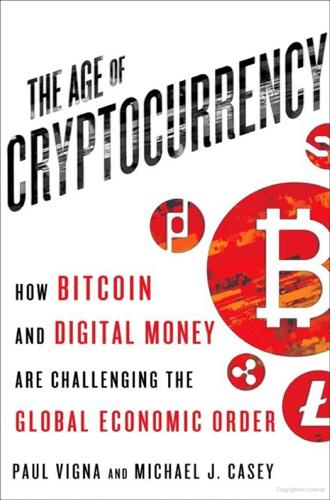
The Age of Cryptocurrency: How Bitcoin and Digital Money Are Challenging the Global Economic Order
by
Paul Vigna
and
Michael J. Casey
Published 27 Jan 2015
But, as noted above, the most direct precursor came from the Cypherpunks. The group had got its start in the early 1990s as a loose affiliation of cryptography wizards who shared a common concern about the creeping erosion of privacy and individual disempowerment in modern society. (This was long before anybody had used the term Big Data, had heard of Edward Snowden, or had an inkling the U.S. National Security Agency was spying on everybody.) One of this group’s first ideas was a digital currency. The movement was founded in September 1992, when a mob of ponytailed coders were invited to the Oakland home of cryptography enthusiast Eric Hughes. In the United States, Arkansas governor Bill Clinton was about to defeat President George Bush in the November election, ending twelve years of Republican rule.
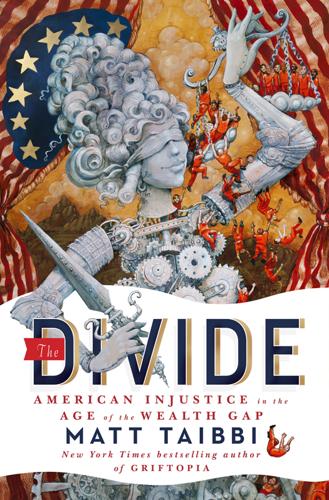
The Divide: American Injustice in the Age of the Wealth Gap
by
Matt Taibbi
Published 8 Apr 2014
In Riverside, California, you get a hundred bucks and a thank-you for bringing a fraud case to light. When you scratch the same civic itch at JPMorgan Chase, you lose everything you own and end up living the life of a financial fugitive. Linda and her kids, when I met them, seemed like a family on the run. Her experience was an early precursor to the Edward Snowden story, and I was meeting her in the Sheremetyevo airport stage of her odyssey. She told me to whip out a notebook and get ready for a long story. “I first got to Chase,” she began, “by way of Washington Mutual.” She’d worked at WaMu as the vice president of enterprise operations, from 2004 till Washington Mutual was sold to JPMorgan Chase during the banking crisis of 2008.
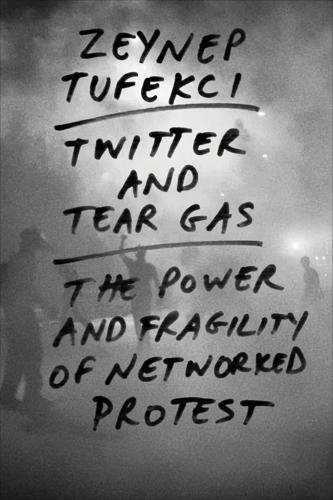
Twitter and Tear Gas: The Power and Fragility of Networked Protest
by
Zeynep Tufekci
Published 14 May 2017
It turns out that the answer to “What happens when movements can evade traditional censorship and publicize and coordinate more easily?” is not simple. If the politics of protest do not look like those of the past, neither do some of the obstacles the protesters face. In the United States, the same week the Gezi protests erupted, Edward Snowden revealed details of the existence of a massive U.S. government surveillance program, and we thus glimpsed a scope of what state surveillance capabilities may exist. The United States is almost certainly not the only government to surveil at large scale. In fact, as I stood in Gezi Park, tweeting from a phone tied by law to my unique citizenship ID number in Turkey, I knew that the government surely had a list of every protester who showed up at the park with a phone.

Nine Pints: A Journey Through the Money, Medicine, and Mysteries of Blood
by
Rose George
Published 22 Oct 2018
In 2006, it won first prize at the Indian Institute of Technology Awards.3 He was given his prize by India’s president. Other entries, he says, included “how to extract gold from seawater, how to go to the moon.” The machine and Muruga became famous. By now, he has been judged one of Time magazine’s top 100 most influential people, alongside National Security Agency whistle-blower Edward Snowden and Beyoncé.4 There is a cupboard in his home where he keeps his awards, which is so crammed that when he opens it they spill out like treasure from a chest. Framed photographs, trophies, gifts, stuff. I notice something: in every picture he is wearing glasses, but he’s not wearing them now. He says, “Once I was being picked up at an airport, and I went over, and the man said, ‘No, no, we are looking for a VIP.’

People, Power, and Profits: Progressive Capitalism for an Age of Discontent
by
Joseph E. Stiglitz
Published 22 Apr 2019
They enhance the ability of any authoritarian government to become a totalitarian government. Some take comfort that Big Data is not in the hands of government but in private hands, those of Google, Facebook, or Amazon. I don’t. Once we think about the problems of cybersecurity, the boundary between the public and private becomes less distinct. Edward Snowden’s revelations taught us of the enormous amount of data that the government is already collecting on us, and made it fairly clear that whatever data the private firms have, the NSA could easily get hold of.23 And revelations about how Facebook has been using some of its data and allowing others (for example, Cambridge Analytica) to use its data, and the security measures it has taken to protect the data shouldn’t make us any too comfortable either.
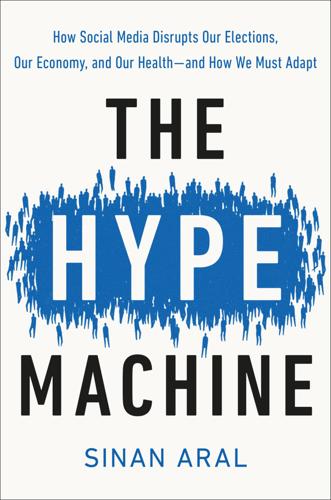
The Hype Machine: How Social Media Disrupts Our Elections, Our Economy, and Our Health--And How We Must Adapt
by
Sinan Aral
Published 14 Sep 2020
Its secret chat option allows users to send messages with self-destruct times, and its public channels allow administrators to publish messages to unlimited audiences. Protecting privacy and individual data has been Durov’s sole priority in building Telegram. He has resisted governments’ requests to hand over data or build back doors into Telegram’s infrastructure. In the wake of Edward Snowden, Cambridge Analytica, and the release of Netflix’s The Great Hack, the reasons behind Telegram’s meteoric rise seem obvious. Individuals around the world are clamoring for privacy, security, and freedom from surveillance. Tim Cook, the CEO of Apple, was applauded when he resisted the government’s request to crack the San Bernardino shooter’s private iPhone data, and there are certainly important values and protections that must be preserved in privacy rights and data security.

The Woman Who Smashed Codes: A True Story of Love, Spies, and the Unlikely Heroine Who Outwitted America's Enemies
by
Jason Fagone
Published 25 Sep 2017
Friedman and her husband . . . are recognized as the leading authorities in the country.” Yet in the canonical books about twentieth-century codebreaking, Elizebeth is treated as the dutiful, slightly colorful wife of a great man, a digression from the main narrative, if not a footnote. Her victories are all but forgotten. I started reading about the Friedmans in 2014, after Edward Snowden shocked the world by revealing that the NSA was gathering the phone records of millions of ordinary Americans. Curious to know more about Elizebeth, I found a brief bio on the website of a Virginia library, along with a set of pictures. There she was, a petite woman in a white dress, standing on a patch of grass almost one hundred years ago, skin porcelain, head cocked at the photographer, smiling and squinting slightly in what must have been a blinding sun.
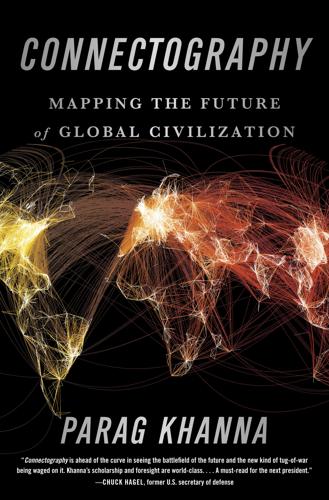
Connectography: Mapping the Future of Global Civilization
by
Parag Khanna
Published 18 Apr 2016
But this does not make them government servants. To the contrary, the Internet Society continuously engineers Internet architecture to better protect against surveillance, while tech firms have actively invested in evading the excessive scope of NSA programs for their users’ and customers’ data. Lavabit, a secure email provider used by Edward Snowden, shut itself down in 2013 rather than hand over its SSL keys to the FBI. Microsoft has resisted U.S. government efforts to demand access to some of its users’ data that is held outside the United States. Apple’s iOS 8 and the latest Android both feature encryption protocols that no longer allow any access to user data—preventing not only the U.S. government but also hackers (particularly from China) who have exploited previous versions’ back doors from accessing it.*5 The Internet’s earliest origins lie in efforts to create redundant communications in the event of enemy attack.
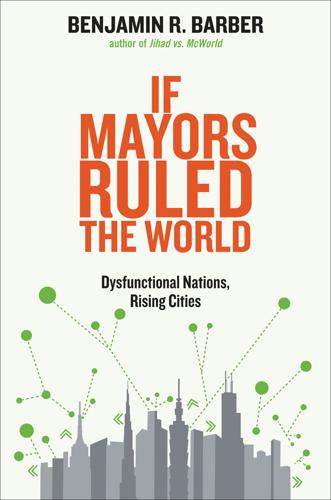
If Mayors Ruled the World: Dysfunctional Nations, Rising Cities
by
Benjamin R. Barber
Published 5 Nov 2013
In Africa, where it has been far too expensive to wire a whole continent that missed the wired revolution, or in ex-Soviet countries like Estonia that were never wired, cell phone technology has leapfrogged the cabled world and become the instrument of choice for economic and civic as well as social and private communications. And in self-advertised open societies not altogether friendly to full transparency, dissidents like Julian Assange and Edward Snowden continue to leak and hackers (such as those in the “Anonymous Movement” and “The Chaos Computer Club”) continue to hack digital information in a fashion intended to compromise elites (along with, some claim, national security) and to render opaque intelligence networks transparent.36 Democratic technology has also been a friend to democratic protest and democratic rebellion in fully democratic nations, having, for example, played a key role in Occupy Wall Street.
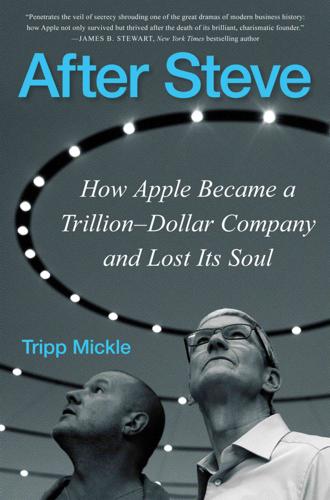
After Steve: How Apple Became a Trillion-Dollar Company and Lost Its Soul
by
Tripp Mickle
Published 2 May 2022
The Obama administration representatives were in Silicon Valley to encourage Facebook, Google, and other social media services to remove Islamic State messages that were radicalizing terrorists. Comey also wanted to discuss encrypted communications services that were complicating criminal investigations. The relationship between the government and the tech giants had soured after Edward Snowden had leaked documents showing that tech companies had aided the National Security Agency’s surveillance of Americans. The public blowback had led the multinationals to become distant and adversarial. The Obama administration wanted a reset. Upbeat about the continued strength of the iPhone and rapid growth of Apple Music, Cook was emboldened and prepared to fight.
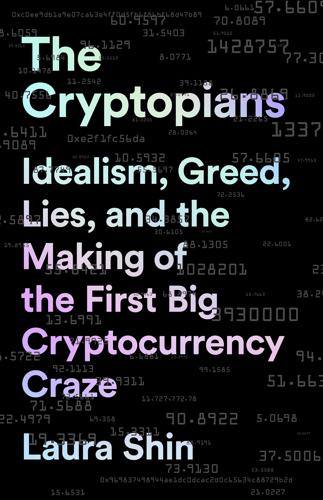
The Cryptopians: Idealism, Greed, Lies, and the Making of the First Big Cryptocurrency Craze
by
Laura Shin
Published 22 Feb 2022
With the arguments around the optimal organization for Ethereum percolating in Gavin’s head, a few days after the Bitcoin Expo, he published a blog post whose title referenced “decentralized apps,” “ÐApps: What Web 3.0 Looks Like,” which began by calling out what was by then the dominant business model on the web, used by Google, Facebook, Twitter, and countless other companies: consumers handing over their data in exchange for free ad-supported services.8 In a revised, “less-techy” version posted a few days later, he began, Even prior to Edward Snowden’s revelations, we had realised that entrusting our information to arbitrary entities on the internet was fraught with danger… [E]ntrusting our information to organisations in general is a fundamentally broken model… Given they tend to have an income model that requires they know as much about people as possible the realist will realise that the potential for convert misuse is difficult to overestimate.9 He then proposed reconceiving the web so that big corporations didn’t provide products for content publishing, messaging, or financial transactions; rather those services would be remade as public goods in the form of decentralized software, the way the internet itself is a public good, not run by any one profit-making corporation.

American Girls: Social Media and the Secret Lives of Teenagers
by
Nancy Jo Sales
Published 23 Feb 2016
Wall Street Journal, June 21, 2013. Gleick, James. The Information: A History, A Theory, A Flood. New York: Vintage Books, 2011. Greenberg, Barbara R., and Jennifer Powell-Lunder. Teenage as a Second Language: A Parent’s Guide to Becoming Bilingual. Avon, MA: Adams Media, 2010. Greenwald, Glenn. No Place to Hide: Edward Snowden, the NSA, and the U.S. Surveillance State. New York: Metropolitan Books, 2014. Grigoriadis, Vanessa. “Kim Kardashian: American Woman.” Rolling Stone, July 27, 2015. Grousnell, Lauren, and Laura House. “Friends of Instagram model who ‘quit’ social media call it a HOAX—as she finally shuts down her accounts.”
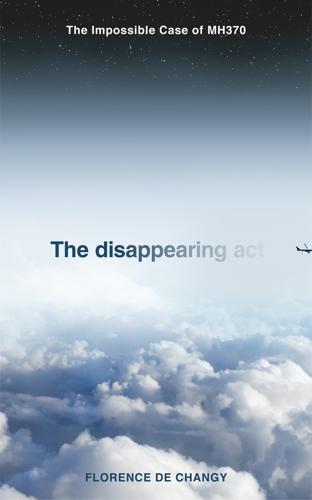
The Disappearing Act
by
Florence de Changy
Published 24 Dec 2020
But his innuendo came as no great surprise, given that his mistrust towards the West had long earned him a reputation of being essentially anti-American.19 Between ‘Cobra Gold’ and ‘Cope Tiger’ One former political adviser to Mahathir also refused to believe that the United States knew nothing. According to lawyer Matthias Chang, ‘Even though Malaysia has radars, we’ve never claimed to be a global power … Who on earth has the means to see everything and hear everything, down to the private conversations of heads of state? Not us!’ he insisted, referring to the revelations made by Edward Snowden about several global surveillance programmes, often run by the US National Security Agency, and the ‘Five Eyes’ intelligence alliance.20 He was amazed at how badly the media had treated Malaysia: ‘It is all fine and well to depict Malaysia as ignorant, incompetent and incapable of coordinating the searches.
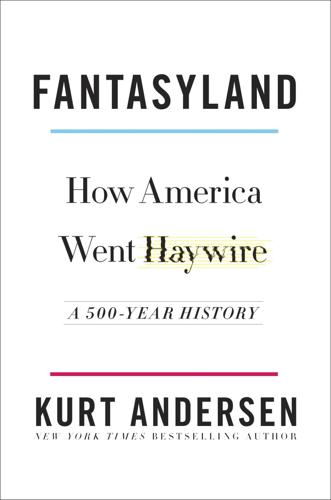
Fantasyland: How America Went Haywire: A 500-Year History
by
Kurt Andersen
Published 4 Sep 2017
He’s still around, ragging on the military-industrial complex (“sending troops to die in illegal wars”), the horrors of the prison camp at Guantánamo Bay, the Bilderberg Group (“the apex of the…power structure”), Goldman Sachs, the World Bank, the International Monetary Fund, corporate America in general (“Madison Avenue makes us addicts of consumerism”). He has been a supporter of Edward Snowden. In an on-air conversation with Noam Chomsky, a towering intellectual avatar of the far left, the men agreed that the elite imposes an illusion of consent on the people, that U.S. elections are mostly meaningless, that the Democrats and Republicans (as Chomsky remarked) are really just “two factions of one party.”
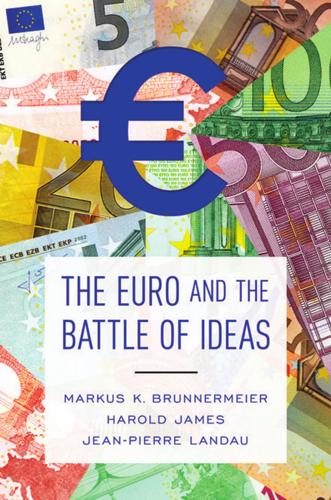
The Euro and the Battle of Ideas
by
Markus K. Brunnermeier
,
Harold James
and
Jean-Pierre Landau
Published 3 Aug 2016
There was no attempt in London to work out the different capacities or room for fiscal maneuver of the various European countries. Later on, the London summit—and the process of summitry in general—also took a knock when it was revealed (as a result of the flight of a former US security analyst Edward Snowden) that British intelligence agencies had been conducting surveillance on the delegations at the London meeting in order for the United Kingdom and the United States to work out their negotiating tactics. Brown’s eventual defeat in the general election in May 2010 had nothing to do with his international activism.
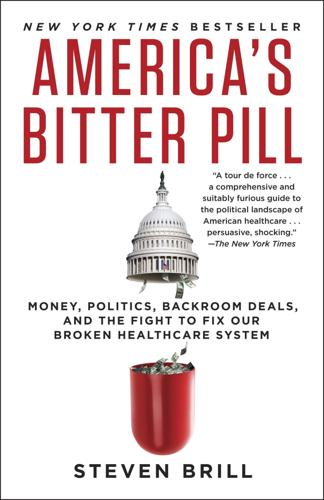
America's Bitter Pill: Money, Politics, Backroom Deals, and the Fight to Fix Our Broken Healthcare System
by
Steven Brill
Published 5 Jan 2015
And a company that she thought was several rungs above her previous private employer, WellPoint, when it came to civic-mindedness. Critics of Washington’s revolving door did not see it that way, particularly a journalist writing for The Guardian named Glenn Greenwald—the same Glenn Greenwald who was soon to make headlines for working with National Security Agency contractor Edward Snowden to reveal the thousands of files Snowden took when he left the NSA. Calling Fowler “the architect” of Obamacare, Greenwald noted that she had worked for WellPoint, the giant insurer, before rejoining Baucus’s staff to draft the law. “The bill’s mandate,” he wrote, “that everyone purchase the products of the private health insurance industry, unaccompanied by any public alternative, was a huge gift to that industry.”

The Enemy Within
by
Seumas Milne
Published 1 Dec 1994
They have already become notorious for the infiltration of undercover agents and agents provocateurs into environmental, animal rights, anti-racist and other protest groups, as well as for disinformation campaigns, while evidence has grown of systematic Special Branch collaboration with private corporations to blacklist trade unionists. Of course, the global blanket surveillance of mobile phone, email and internet traffic by the US National Security Agency and Britain’s GCHQ – revealed by the NSA whistleblower Edward Snowden in 2013 – is on another scale entirely from the then unprecedented operations they carried out against the British miners’ union and its international solidarity network in 1984–5. Both agencies were founded to spy on the rest of the world, but have ended up targeting their own people without effective restraint, hand in glove with a roll call of household-name global corporations.
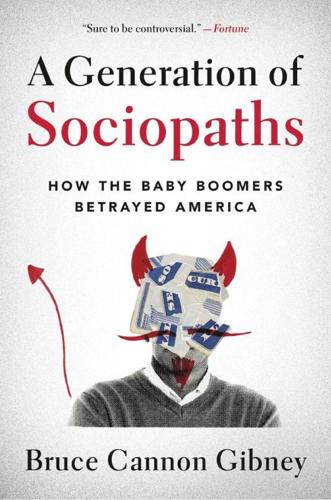
A Generation of Sociopaths: How the Baby Boomers Betrayed America
by
Bruce Cannon Gibney
Published 7 Mar 2017
So far, the Boomers and their hysterical policies are drifting on a different course; if they had followed the internment camp time line, we would have been done with all of this by 2003 at the latest. But ten years after the events that inspired it, Patriot was renewed. In 2015, critical provisions were extended for another four years, as the USA Freedom Act of 2015.* Even after Edward Snowden et al. revealed the flaws of the security state, in part by the simple fact that an only modestly talented and low-level contractor was able to scamper off with secrets (many of them potentially yours, since the government was recording vast amounts of e-mail, though it was trying to “minimize” the impacts on Americans), even after Ground Zero went back to being just “downtown” (complete with another shopping mall), even after all that, Patriot/Freedom continues.36 It is surely time to reconsider—thoroughly—laws conceived in haste and mourning, that have always lived in considerable tension with the freedoms they notionally sought to protect, and whose efficacy has never been entirely clear.
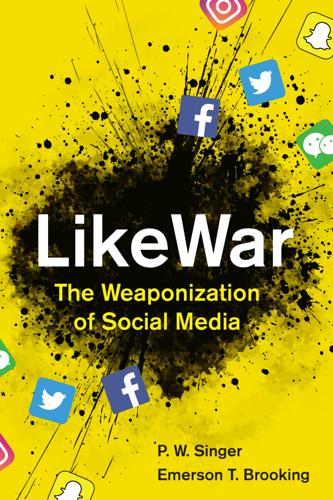
Likewar: The Weaponization of Social Media
by
Peter Warren Singer
and
Emerson T. Brooking
Published 15 Mar 2018
In 2012, both Blogger (originally marketed as “Push-Button Publishing for the People”) and Twitter (“the free speech wing of the free speech party”) quietly introduced features that allowed governments to submit censorship requests on a per-country basis. If there was a moment that signified the end of Silicon Valley as an explicitly American institution, it came in 2013, when a young defense contractor named Edward Snowden boarded a Hong Kong–bound plane with tens of thousands of top-secret digitized documents. The “Snowden Files,” which would be broadcast through social media, revealed an expansive U.S. spy operation that harvested the metadata of every major social media platform except Twitter. For primarily U.S.
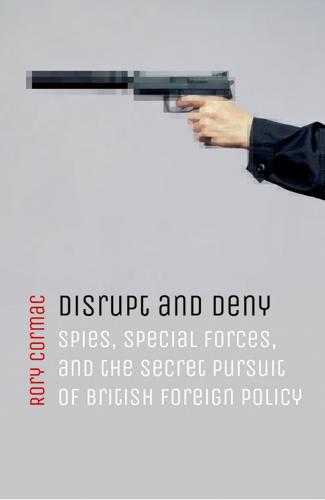
Disrupt and Deny: Spies, Special Forces, and the Secret Pursuit of British Foreign Policy
by
Rory Cormac
Published 14 Jun 2018
This is increasingly the case in a digital, globalized world: more people have access to databases of classified information in the first place; massive files of documents can be shared instantly across borders; and smartphones turn citizens into aspiring photojournalists. Some have termed it ‘regulation by revelation’.42 In 2011, policymakers deployed special forces to Libya, but Al Jazeera soon uploaded photos of them to the Internet.43 Two years later, Edward Snowden, an American contractor for the National Security Agency, was able to leak data not only on mass surveillance programmes but also on British covert action. When prime ministers and foreign secretaries approve covert action they must now assess whether they can publicly justify the operation if it leaks.
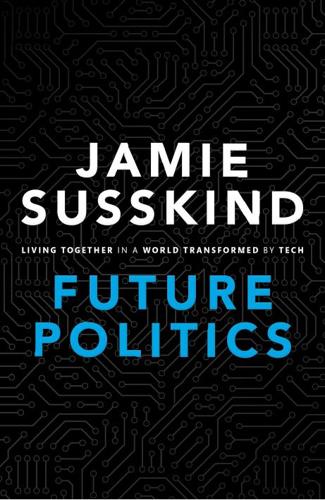
Future Politics: Living Together in a World Transformed by Tech
by
Jamie Susskind
Published 3 Sep 2018
Many European countries and the US have enacted laws requiring Internet Service Providers (ISPs) to adapt their networks to make it possible for them to be wiretapped.13 Sometimes, however, tech companies push back, as when Apple refused to accommodate the FBI’s demands that it unlock the iPhone of one of the San Bernadino terrorists.14 OUP CORRECTED PROOF – FINAL, 28/05/18, SPi РЕЛИЗ ПОДГОТОВИЛА ГРУППА "What's News" VK.COM/WSNWS 156 FUTURE POLITICS But where the state wants information that it can’t buy, legislate for, or demand—it still has the illicit option of hacking the databases of those who hold it. One of the revelations made by Edward Snowden was that the National Security Agency (NSA) project MUSCULAR had compromised the cloud storage facilities of both Google and Yahoo, harvesting a vast trove of emails, text messages, video, and audio for its own purposes.15 As we saw in chapter eight, in jurisdictions such as China the state has gained control over not only the means of force and scrutiny, but also perception-control, in its ability to censor the news people receive, what they can find when they search for information, and even what they are able to say to each other using digital platforms.
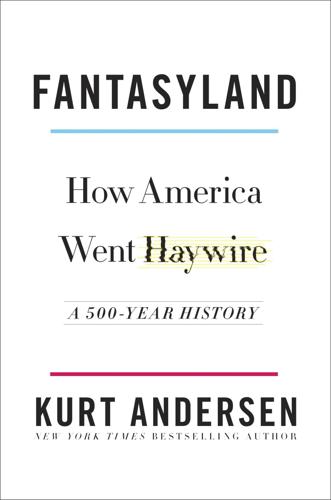
Fantasyland
by
Kurt Andersen
Published 5 Sep 2017
He’s still around, ragging on the military-industrial complex (“sending troops to die in illegal wars”), the horrors of the prison camp at Guantánamo Bay, the Bilderberg Group (“the apex of the…power structure”), Goldman Sachs, the World Bank, the International Monetary Fund, corporate America in general (“Madison Avenue makes us addicts of consumerism”). He has been a supporter of Edward Snowden. In an on-air conversation with Noam Chomsky, a towering intellectual avatar of the far left, the men agreed that the elite imposes an illusion of consent on the people, that U.S. elections are mostly meaningless, that the Democrats and Republicans (as Chomsky remarked) are really just “two factions of one party.”

Generations: The Real Differences Between Gen Z, Millennials, Gen X, Boomers, and Silents—and What They Mean for America's Future
by
Jean M. Twenge
Published 25 Apr 2023
Vance (1984) Jon Ossoff (1987) Alexandria Ocasio-Cortez (1989) Athletes and Sports Figures Venus Williams (1980) Eli Manning (1981) Hope Solo (1981) Serena Williams (1981) Andy Roddick (1982) Aaron Rodgers (1983) LeBron James (1984) Ryan Lochte (1984) Kyle Busch (1985) Megan Rapinoe (1985) Michael Phelps (1985) Allyson Felix (1985) Shaun White (1986) Colin Kaepernick (1987) Steph Curry (1988) Kevin Durant (1988) Brittney Griner (1990) Bethany Hamilton (1990) Damian Lillard (1990) Mike Trout (1991) Bryce Harper (1992) Johnny Manziel (1992) Journalists, Authors, and People in the News Chelsea Clinton (1980) Jenna Bush Hager (1981) Paris Hilton (1981) Meghan Markle (1981) Nicole Richie (1981) Ivanka Trump (1981) Misty Copeland (1982) Anita Sarkeesian (1983) Edward Snowden (1983) Elizabeth Holmes (1984) Ben Shapiro (1984) Eric Trump (1984) Chrissy Teigen (1985) Daniel M. Lavery (1986) Ronan Farrow (1987) Charlotte Alter (1989) Breonna Taylor (1993) Tiffany Trump (1993) An Army of One Trait: Self-Confidence In 2000, the U.S. Army realized it needed to reach a new generation of recruits.

Character Limit: How Elon Musk Destroyed Twitter
by
Kate Conger
and
Ryan Mac
Published 17 Sep 2024
It went against all social media norms and was a direct contradiction to the idea of free speech. The move was also antithetical to the Silicon Valley ethos of competition, which posited that companies should simply build the best products to win, not force people to use them. Among Musk’s critics were whistleblower Edward Snowden; Aaron Levie, the chief executive of Box; and Balaji Srinivasan, a crypto entrepreneur and former partner at Andreessen Horowitz. But one of the loudest was Paul Graham, the founder of start-up incubator Y Combinator, who had tweeted the previous month that “it’s remarkable how many people who’ve never run any kind of company think they know how to run a tech company better than someone who’s run Tesla and SpaceX.”
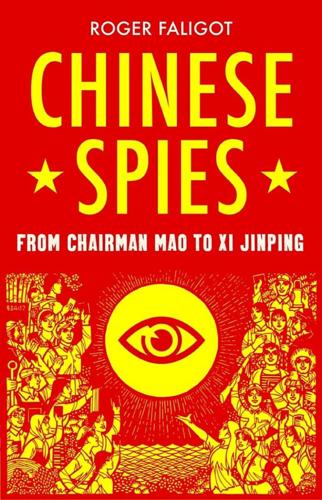
Chinese Spies: From Chairman Mao to Xi Jinping
by
Roger Faligot
Published 30 Jun 2019
Meanwhile, the FBI was continuing its investigation of the Chinese infiltration of the CIA. Within the next six months, two CIA operatives, Kevin Mallory and Jerry Chun Shing Lee—stationed in Beijing until 2007—were charged with espionage. Other Western services had not been immune to the Chinese intrusion. In 2015, after the NSA contractor Edward Snowden’s defection, some of MI6’s agents in China narrowly avoided having their cover blown—which suggested that the Chinese and Russians had intercepted communications from the American NSA.4 In May 2018, it was revealed in France that two former DGSE operatives, Henri Manioc and Pierre-Marie Winterat, had been arrested and accused of spying for a foreign power—China—in December 2017.
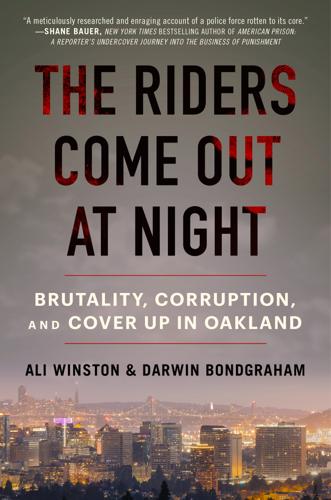
The Riders Come Out at Night: Brutality, Corruption, and Cover-Up in Oakland
by
Ali Winston
and
Darwin Bondgraham
Published 10 Jan 2023
Renee Domingo, a fire department official overseeing the DAC, assured the council members no cameras would be pointed inside homes. “All right, sounds good to me,” said Kalb.61 Oakland’s decision to be Northern California’s first city to build a mass surveillance center couldn’t have come at a worse time. Former National Security Agency contractor Edward Snowden’s monumental leaks had been dominating headlines since early May 2013, and the American public was just beginning to understand the disturbing truth about the post-9/11 surveillance state. When news of the DAC broke, it triggered an uproar from Oscar Grant movement activists, Occupy Oakland organizers, and the Bay Area’s burgeoning privacy community, led by the Electronic Frontier Foundation and the ACLU’s robust Northern California chapter.62 Police departments in New York City, Chicago, and Los Angeles had already built similar systems, with the NYPD’s “Ring of Steel” the most prominent example.63 But Oaklanders were still intensely distrustful of the police, with fresh memories of how law enforcement agencies surveilled the Oscar Grant movement and Occupy.
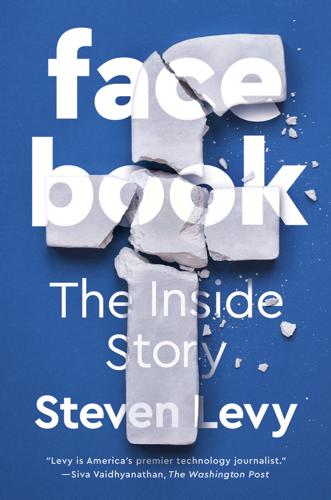
Facebook: The Inside Story
by
Steven Levy
Published 25 Feb 2020
The purchase deal still had not closed when Acton informed Zuckerberg—he pointedly did not ask permission—that WhatsApp was pursuing end-to-end, and the CEO took it in with his typical inscrutable form of assent. “We were like, Mark, we are building end-to-end encryption,” says Acton. “He’s like, Okay, okay fine, you guys go ahead and do that, I don’t care.” Actually, Zuckerberg had done a considerable amount of thinking on the subject. He had been outraged in 2014 when Facebook learned, via Edward Snowden’s leaks, that the US government was snatching its communications from Facebook’s data centers. Zuckerberg also had an emotional bias toward encryption. If his own early communications—the IMs and emails regarding ConnectU when he was at Harvard—had been encrypted, he might have been spared embarrassment.
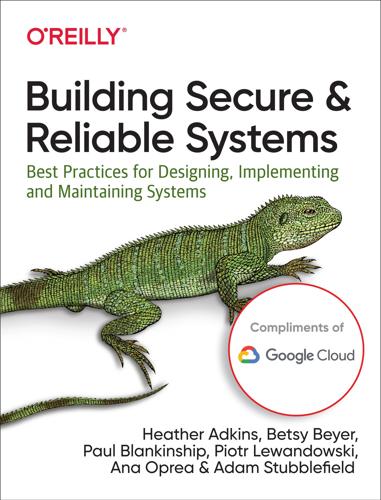
Building Secure and Reliable Systems: Best Practices for Designing, Implementing, and Maintaining Systems
by
Heather Adkins
,
Betsy Beyer
,
Paul Blankinship
,
Ana Oprea
,
Piotr Lewandowski
and
Adam Stubblefield
Published 29 Mar 2020
Proceedings of the 2017 CHI Conference on Human Factors in Computing Systems: 2189–2201. https://ai.google/research/pubs/pub46080. 8 For example, many tools are incorporating the Structure Threat Information eXpression (STIX) language to standardize the documentation of IOCs that can be traded between systems using services like the Trusted Automated eXchange of Indicator Information (TAXII) project. 9 Notable examples include the annual Verizon Databreach Investigations Report and CrowdStrike’s annual Global Threat Report. 10 The Cyber Kill Chain, conceived (and trademarked) by Lockheed Martin, is an adaptation of traditional military attack structures. It defines seven stages of cyberattacks, but we’ve found this can be adapted; some researchers simplify it to four or five key stages, as we’ve done here. 11 Greenwald, Glenn. 2014. No Place to Hide: Edward Snowden, the NSA, and the U.S. Surveillance State. New York: Metropolitan Books, 149. Part II. Designing Systems Part II focuses on the most cost-effective way to implement security and reliability requirements: as early as possible in the software development lifecycle, when designing systems.
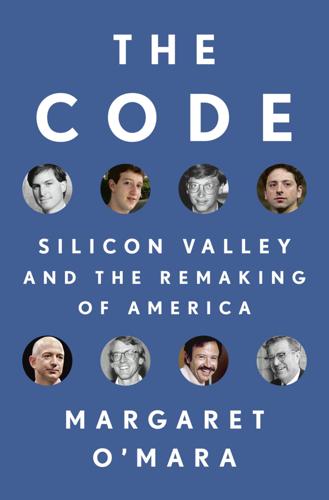
The Code: Silicon Valley and the Remaking of America
by
Margaret O'Mara
Published 8 Jul 2019
Ingrid Burrington, “Why Amazon’s Data Centers are Hidden in Spy Country,” The Atlantic, January 8, 2016. 19. Frank Konkel, “Daring Deal,” Government Executive, July 9, 2014. An advantage for Amazon’s securing national security cloud business was that it was not one of the American tech companies ensnared in PRISM, the intelligence-gathering program revealed in 2013 by NSA contractor Edward Snowden. Nearly every other boldface tech name appeared in the cache of classified documents, but 98 percent of the data came from only three: Yahoo!, Google, and Microsoft. The NSA had been in the electronic surveillance business since its 1947 inception, but involvement of consumer tech’s biggest brands—including the “don’t be evil” empire of Page and Brin—precipitated a major scandal.

Liberalism at Large: The World According to the Economist
by
Alex Zevin
Published 12 Nov 2019
Obama’s unprecedented use of drones to assassinate suspected terrorists on his ‘kill lists’ – in Yemen, Somalia or Pakistan, where America was not at war, and without judicial oversight even when the targets were its own citizens – ‘do not undermine the rules of war’, though more could be done to ‘adapt’ a ‘potent new weapon’ to the constitution.123 When the US Army private then named Bradley Manning leaked hundreds of thousands of secret government documents related partly to the wars in Iraq and Afghanistan in 2010, exposing war crimes committed by US mercenaries, the Economist insisted that both he and the ‘digital Jacobins’ at Wikileaks to whom Manning confided this cache be punished. Julian Assange should be extradited, though in the meantime the paper found ‘some consolation’ that his revelations actually offered ‘a largely flattering picture of America’s diplomats: conscientious, cool-headed, well-informed, and on occasion eloquent’.124 Three years later Edward Snowden, a private analyst for the National Security Agency, exposed the staggering extent of its illegal surveillance of US citizens and foreigners, including such staunch allies of the US as German chancellor Angela Merkel. Disagreement between Lucas and other editors resulted in a toothless verdict on the American security empire – ‘our point is not that American spies are doing the wrong things’ – and a vindictive one on the traitor who had exposed it: Snowden, who had fled to Moscow must return to face US justice.125 Lucas, writing under his own name, was less equivocal.

Political Order and Political Decay: From the Industrial Revolution to the Globalization of Democracy
by
Francis Fukuyama
Published 29 Sep 2014
These include the Federal Reserve Board, the intelligence agencies, the military, and specialized agencies like NASA and the Centers for Disease Control.15 On the state and local levels, attorneys general or prosecutors are given a great deal of discretion over whether to bring charges against individuals accused of crimes, and they are free to enter into plea bargains—much more so than, say, their German counterparts. The military is typically allowed substantial autonomy with regard to operational matters. And, as the world has come to know through the revelations of Edward Snowden, the National Security Agency has been given broad leave to collect data not just on foreign activities but also on American citizens since September 11, 2001.16 While many American libertarians and conservatives would like to abolish these agencies altogether, it is hard to see how it would be possible to govern properly without them under modern circumstances.
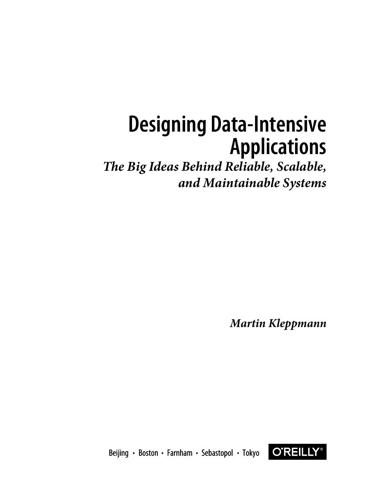
Designing Data-Intensive Applications: The Big Ideas Behind Reliable, Scalable, and Maintainable Systems
by
Martin Kleppmann
Published 17 Apr 2017
Summary | 551 [109] Michiel Rhoen: “Beyond Consent: Improving Data Protection Through Con‐ sumer Protection Law,” Internet Policy Review, volume 5, number 1, March 2016. doi: 10.14763/2016.1.404 [110] Jessica Leber: “Your Data Footprint Is Affecting Your Life in Ways You Can’t Even Imagine,” fastcoexist.com, March 15, 2016. [111] Maciej Cegłowski: “Haunted by Data,” idlewords.com, October 2015. [112] Sam Thielman: “You Are Not What You Read: Librarians Purge User Data to Protect Privacy,” theguardian.com, January 13, 2016. [113] Conor Friedersdorf: “Edward Snowden’s Other Motive for Leaking,” theatlan‐ tic.com, May 13, 2014. [114] Phillip Rogaway: “The Moral Character of Cryptographic Work,” Cryptology ePrint 2015/1162, December 2015. 552 | Chapter 12: The Future of Data Systems Glossary Please note that the definitions in this glossary are short and sim‐ ple, intended to convey the core idea but not the full subtleties of a term.
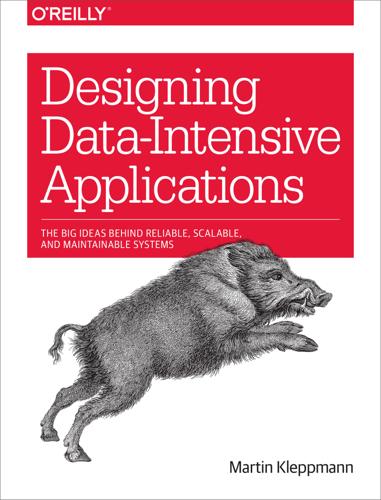
Designing Data-Intensive Applications: The Big Ideas Behind Reliable, Scalable, and Maintainable Systems
by
Martin Kleppmann
Published 16 Mar 2017
[109] Michiel Rhoen: “Beyond Consent: Improving Data Protection Through Consumer Protection Law,” Internet Policy Review, volume 5, number 1, March 2016. doi:10.14763/2016.1.404 [110] Jessica Leber: “Your Data Footprint Is Affecting Your Life in Ways You Can’t Even Imagine,” fastcoexist.com, March 15, 2016. [111] Maciej Cegłowski: “Haunted by Data,” idlewords.com, October 2015. [112] Sam Thielman: “You Are Not What You Read: Librarians Purge User Data to Protect Privacy,” theguardian.com, January 13, 2016. [113] Conor Friedersdorf: “Edward Snowden’s Other Motive for Leaking,” theatlantic.com, May 13, 2014. [114] Phillip Rogaway: “The Moral Character of Cryptographic Work,” Cryptology ePrint 2015/1162, December 2015. Glossary Note Please note that the definitions in this glossary are short and simple, intended to convey the core idea but not the full subtleties of a term.

Chokepoints: American Power in the Age of Economic Warfare
by
Edward Fishman
Published 25 Feb 2025
On February 26, Guo Ping, Huawei’s rotating chairman, spoke at the Mobile World Congress, a marquee trade show for the telecom industry, in Barcelona. His message was simple: Instead of talking a big game on security, the Americans should look in the mirror. “Prism, prism on the wall. Who’s the most trustworthy of them all?” Guo asked, as if reciting an incantation. “If you don’t understand this question, go ask Edward Snowden.” Guo was referring to PRISM, an American program that collected online data from foreigners, whose existence had been leaked by a former NSA contractor. Washington’s warnings about Huawei were hypocritical and untrustworthy. If anything, Guo argued, Huawei was the safer option. Keith Krach, the State Department’s undersecretary for economic affairs, watched in frustration.
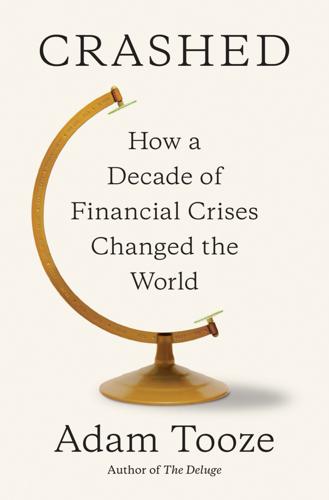
Crashed: How a Decade of Financial Crises Changed the World
by
Adam Tooze
Published 31 Jul 2018
About the technical efficacy of the swap lines there was little doubt. Their political legitimacy was a different matter. And in the autumn of 2013 one couldn’t help thinking of another of America’s technical systems of power that had been revealed earlier that year: the NSA’s electronic surveillance network.49 The network that Edward Snowden exposed in early June also centered on US power and technological capacity. It too was no American monolith. Like the Fed, the NSA worked through local agencies. It too promised to provide a blanket of security for the United States and its allies. Of course spying and exchanging currencies were not the same things.
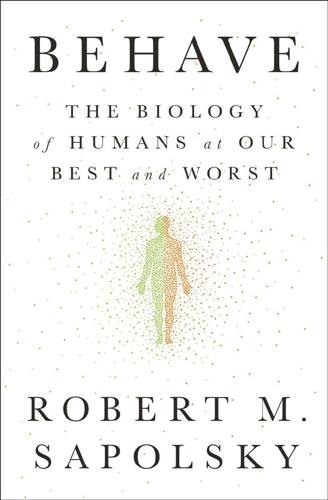
Behave: The Biology of Humans at Our Best and Worst
by
Robert M. Sapolsky
Published 1 May 2017
But they were the catalysts, the ones who paid with their freedom or their lives. And there are whistle-blowers who took great risks to trigger change—Daniel Ellsberg, Karen Silkwood, W. Mark Felt (Watergate’s Deep Throat), Samuel Provance (the U.S. soldier who revealed the abuses at Abu Ghraib Prison), Edward Snowden.* But there are also lesser-known people, acting alone or in small numbers, with extraordinary impact. Take Mohamed Bouazizi, a twenty-six-year-old fruit seller in Tunisia, then in its twenty-third year of corrupt and repressive rule by a dictator. At the market the police hassled Bouazizi about an imaginary permit, expecting a bribe.